Saturday Night Live
description: American late-night live television sketch comedy show
304 results
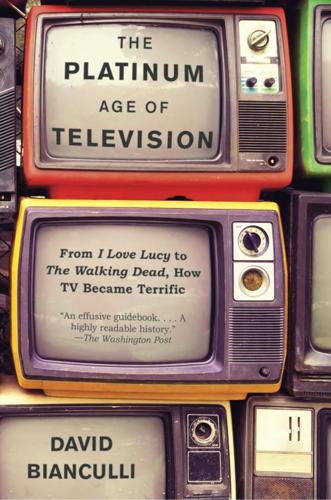
The Platinum Age of Television: From I Love Lucy to the Walking Dead, How TV Became Terrific
by
David Bianculli
Published 15 Nov 2016
It spawned movies, records, comedy stage tours, and Broadway musicals and greatly inspired the producer who was about to launch a new 1975 variety series called Saturday Night Live. Actually, and almost unthinkably, there were two variety shows called Saturday Night Live scheduled to premiere on U.S. TV in 1975. One had Bill Murray and Christopher Guest as regulars; the other one would as well, but not initially. The first show to arrive that year, in prime time on ABC, was Saturday Night Live with Howard Cosell. Hosted by the abrasive co-host of ABC’s Monday Night Football and emanating from the same theater that until recently had housed The Ed Sullivan Show, this Saturday Night Live variety series counted Murray and Guest among its repertory company and premiered on September 20, 1975.
…
He’s trying, he’s experimenting, he’s pushing himself,” Groening concludes, “and it just feels very cinematic.” 3 VARIETY/SKETCH KEY EVOLUTIONARY STAGES Toast of the Town/The Ed Sullivan Show 1948–71, CBS Your Show of Shows 1950–54, NBC The Smothers Brothers Comedy Hour 1967–69, CBS The Carol Burnett Show 1967–78, CBS Saturday Night Live 1975–, NBC Of all the TV genres considered in this book, variety may be the hardest to define and pin down. What is a TV variety show? A parade of talented acts, presided over by a host such as Ed Sullivan? Sure. Then is American Idol a variety show? And musical showcases, from American Bandstand to Shindig! and Hullabaloo? What about sketch shows, like Your Show of Shows and Saturday Night Live? And late-night talk shows that feature comedy sketches, from Steve Allen to Jimmy Fallon?
…
When I teach my TV History and Appreciation class at Rowan University and get to Your Show of Shows, I begin by asking my twentysomething students what TV series comes to mind, based on the following clues: It’s a weekly TV show broadcast live on NBC on Saturday nights, ninety minutes long, featuring different musical guests and guest hosts each week with a regular repertory cast of comic actors. The overwhelming consensus answer is Saturday Night Live, but the answer, because we’re studying TV of the 1950s, is Your Show of Shows, which, I tell my students, was essentially Saturday Night Live more than sixty years ago but in prime time and without cue cards. They seem amazed by the thought, then, after sampling such sketches as “This Is Your Story” (a brilliant parody of the NBC ambush biography show This Is Your Life) and “The Clock” (the core acting quartet as mechanical figures in a malfunctioning Bavarian clock), they seem both amazed and amused.

Is Everyone Hanging Out Without Me? (And Other Concerns)
by
Mindy Kaling
Published 1 Nov 2011
In my imagination, I am, of course, one of the ghostbusters, with the likes of say, Emily Blunt, Taraji Henson, and Natalie Portman. Even if I’m not the ringleader, I’m definitely the one who gets to say “I ain’t afraid a no ghost.” At least the first time. Contributing Nothing at Saturday Night Live I WAS A dreadful guest writer on Saturday Night Live. Not like, destructively bad or anything, just a useless, friendly extra body in the SNL offices eating hamburgers for free, like Wimpy from Popeye. I came into the show during the hiatus between seasons two and three of The Office. My friend Mike Schur, who had worked at SNL before The Office, recommended me to Mike Shoemaker, a producer over there.
…
We were walking by the reservoir one beautiful late-spring afternoon eating ice-cream cones and he was suddenly shot in the back of the head by a deranged man wearing an Antonin Scalia mask. “Scalia” runs away, cackling like the Joker, and hops into an Escalade and peels off. My handsome, innocent husband dies in my arms, the very night he was going to host Saturday Night Live for the first time. (Oh, yes, in this fantasy, my husband is a star point guard for the team that just won the NBA Finals.) They get Jon Hamm to host a very somber Saturday Night Live that night. I can barely do the cameo I was going to do on Weekend Update. Yes, I still do the cameo. I’m sad, but come on—SNL cameo. Seth Meyers can’t muster up the cheerfulness he usually has, either.
…
(Or, How I Made My First Real Friend) I LOVE NEW YORK AND IT LIKES ME OKAY Failing at Everything in the Greatest City on Earth The Exact Level of Fame I Want Karaoke Etiquette Day Jobs Best Friend Rights and Responsibilities Matt & Ben & Mindy & Brenda HOLLYWOOD: MY GOOD FRIEND WHO IS ALSO A LITTLE EMBARRASSING Types of Women in Romantic Comedies Who Are Not Real All About The Office Franchises I Would Like to Reboot Contributing Nothing at Saturday Night Live Roasts Are Terrible My Favorite Eleven Moments in Comedy How I Write The Day I Stopped Eating Cupcakes Somewhere in Hollywood Someone Is Pitching This Movie THE BEST DISTRACTION IN THE WORLD: ROMANCE AND GUYS Someone Explain One-Night Stands to Me “Hooking Up” Is Confusing I Love Irish Exits Guys Need to Do Almost Nothing to Be Great Non-Traumatic Things That Have Made Me Cry Jewish Guys Men and Boys In Defense of Chest Hair Married People Need to Step It Up Why Do Men Put on Their Shoes So Slowly?
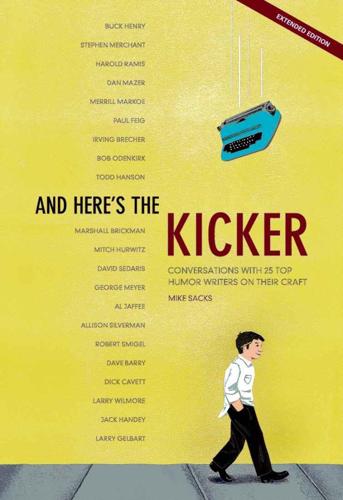
And Here's the Kicker: Conversations with 21 Top Humor Writers on Their Craft
by
Mike Sacks
Published 8 Jul 2009
Show with Bob and David) TODD HANSON (The Onion) MARSHALL BRICKMAN (The Tonight Show, Annie Hall, Manhattan, The Muppet Show) Quick and Painless Advice for the Aspiring Humor Writer, Part Four: Getting Your Humor Piece Published in The New Yorker MITCH HURWITZ (Arrested Development) Quick and Painless Advice for the Aspiring Humor Writer, Part Five: Acquiring an Agent or Manager for Your Script DAVID SEDARIS (Naked, Me Talk Pretty One Day) GEORGE MEYER (Army Man, The Simpsons) AL JAFFEE (Mad's Fold-In, “Snappy Answers to Stupid Questions”) ALLISON SILVERMAN (The Daily Show, Late Night with Conan O'Brien, The Colbert Report) Quick and Painless Advice for the Aspiring Humor Writer, Part Six: Getting a Job as a Writer for Late-Night Television ROBERT SMIGEL (Saturday Night Live, Late Night with Conan O'Brien, “TV Funhouse”) DAVE BARRY (Dave Barry's Guide to Marriage and/or Sex) DICK CAVETT (The Tonight Show, The Dick Cavett Show) LARRY WILMORE (In Living Color, The Bernie Mac Show, The Daily Show, The Office) JACK HANDEY (Saturday Night Live, The New Yorker) LARRY GELBART (Caesar's Hour, M*A*S*H, Tootsie) Quick and Painless Advice for the Aspiring Humor Writer, Part Seven: Getting Your Comic Book or Graphic Novel Published ROZ CHAST (The New Yorker) Quick and Painless Advice for the Aspiring Humor Writer, Part Eight: Getting a Book of Humor Published DANIEL HANDLER (A Series of Unfortunate Events) Quick and Painless Advice for the Aspiring Humor Writer, Part Nine: Selling Your Movie Script to a Studio Executive BRUCE JAY FRIEDMAN (Stir Crazy, Splash) DANIEL CLOWES (Ghost World, Esquire, New York Times Magazine) Canned Laughter: A History Reconstructed Recommended Reading Foreword by Adam McKay There are a few ways that you, the reader, have come to this book.
…
We tried to write a lot of material that was outrageous for its own sake. But the Lampoon material I really enjoyed was the more subtle work. John Belushi left to do Saturday Night Live in 1975. Were you ever asked to join that show? Lorne Michaels offered me a job after the first year, but I was already writing and performing on SCTV. Lorne didn't offer me a guarantee to perform on SNL — only to write. But I was happily doing both at SCTV. And in a way, and this sounds odd to say, I didn't like Saturday Night Live that much. Really? Why? The people I knew on the show, I'd seen them all do better work. I also thought the writing was a little weak and gratuitous in a lot of ways.
…
And my characters, such as the Guy Under the Seats and the Panicky Guy, and all the “guys” for that matter were basically poking fun at the running characters that were the staples of shows like Saturday Night Live. It was all very anti-performance oriented, but at some point the audience did start laughing, and I gradually evolved into the kind of running character that I was making fun of in the first place. How well did you know Andy Kaufman? He was one of the first people I met when I moved to L.A. in 1977. I had seen him on Saturday Night Live and related to him in a big way, because his pieces seemed so art school — esque to me. So we hung out a little. He had started to do a weekly midnight talk show at the Improv in L.A., which he was calling “Midnight Snacks.”
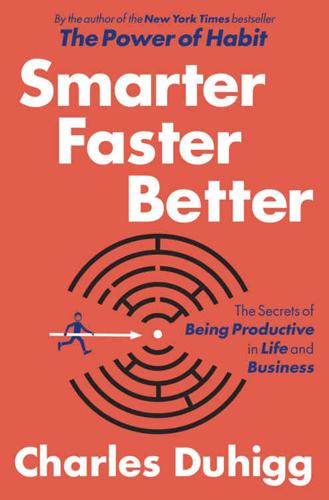
Smarter Faster Better: The Secrets of Being Productive in Life and Business
by
Charles Duhigg
Published 8 Mar 2016
This became one of our five key themes, along with dependability, structure/clarity, job meaning, and impact.” would never stop For my understanding of the early days of Saturday Night Live, I am indebted to those writers and cast members who were willing to speak with me, as well as Tom Shales and James Andrew Miller, Live from New York: An Uncensored History of “Saturday Night Live” (Boston: Back Bay Books, 2008); Ellin Stein, That’s Not Funny, That’s Sick: The National Lampoon and the Comedy Insurgents Who Captured the Mainstream (New York: Norton, 2013); Marianne Partridge, ed., “Rolling Stone” Visits “Saturday Night Live” (Garden City, N.Y.: Dolphin Books, 1979); Doug Hill and Jeff Weingrad, Saturday Night: A Backstage History of “Saturday Night Live” (San Francisco: Untreed Reads, 2011).
…
All of these people created the first season of Saturday Night Live. Howard Shore, the show’s music director, had gone to summer camp with Michaels. Neil Levy, the show’s talent coordinator, was Michaels’s cousin. Michaels had met Chevy Chase while standing in a line in Hollywood to see Monty Python and the Holy Grail. Tom Schiller, another writer, knew Michaels because they had gone to Joshua Tree to eat hallucinogenic mushrooms together, and Schiller’s father, a Hollywood writer, had taken Michaels under his wing early in the young man’s career. The original cast and writers of Saturday Night Live hailed largely from Canada, Chicago, and Los Angeles and all moved to New York in 1975.
…
(They tend to get complicated, because Michaels was married to writer Rosie Shuster, who eventually ended up with Dan Aykroyd, who had dated Gilda Radner, who everyone suspected was in love with writer Alan Zweibel, who later wrote a book explaining they were in love, but nothing ever happened and, besides, Radner later married a member of the SNL band. “It was the 1970s,” Miller told me. “Sex was what you did.”) Saturday Night Live has been held up as a model of great team dynamics. It is cited in college textbooks as an example of what groups can achieve when the right conditions are in place and a team intensely bonds. The group that created Saturday Night Live came together so successfully, this theory goes, because a communal culture replaced individual needs. There were shared experiences (“We were all the kids who didn’t get to sit at the popular table in high school,” Beatts told me); common social networks (“Lorne was a cult leader,” said writer Bruce McCall.
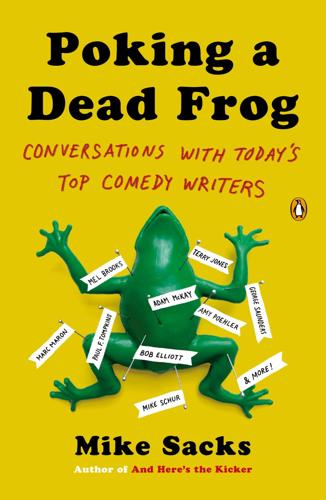
Poking a Dead Frog: Conversations With Today's Top Comedy Writers
by
Mike Sacks
Published 23 Jun 2014
—Chris Elliott as Marlon Brando, Late Night with David Letterman CONTENTS Praise for Mike Sacks Title Page Copyright Dedication Epigraphs Introduction Interview JAMES DOWNEY (Saturday Night Live) Ultraspecific Comedic Knowledge: Writing for Monty Python TERRY JONES Pure, Hard-Core Advice DIABLO CODY: (Juno, Young Adult, Sweet Valley High) Interview MIKE SCHUR (Saturday Night Live, The Office, Parks and Recreation) Ultraspecific Comedic Knowledge: Writing a Submission Packet for Late-Night TV TODD LEVIN (Conan) Pure, Hard-Core Advice ANDRÉS DU BOUCHET (Best Week Ever, Conan) Interview HENRY BEARD (National Lampoon, Bored of the Rings, Latin for All Occasions) Ultraspecific Comedic Knowledge: Getting the Details Right JAMES L.
…
These are writers who do it their way (and always have), and the rest of us, as well as the world of comedy, are much better off for their efforts. —MIKE SACKS JAMES DOWNEY Saturday Night Live has employed hundreds of comedy writers in its four decades on the air, but no writer has been associated with the show longer—or had more of a lasting impact—than James Woodward Downey. If Lorne Michaels is the face of Saturday Night Live, Downey is its behind-the-scenes creative force. Downey first began to consider the possibility of making a living as a writer while at Harvard, where he served as president of the Harvard Lampoon.
…
[except] perhaps if I had a career as a guy who lounged around drunk in poorly maintained Flemish castles.”) Almost immediately upon graduating in 1997, he was hired to write for Saturday Night Live, where he worked for seven seasons (1997–2004), three as producer for Weekend Update during Tina Fey and Jimmy Fallon’s reign on the segment. Schur found his way to The Office, and co-created Parks and Recreation, a mockumentary-style, single-camera sitcom about the parks department of Pawnee, a fictional town in Indiana, starring former Saturday Night Live colleague Amy Poehler. In 2013, he co-created Fox’s Brooklyn Nine-Nine, starring Andy Samberg and Chelsea Peretti.

Girl Walks Into a Bar . . .: Comedy Calamities, Dating Disasters, and a Midlife Miracle
by
Rachel Dratch
Published 29 Mar 2012
How to answer this question: What happened to me? Where have I been since you last saw me on TV? I know where I’ve been. My friends know where I’ve been. They see me all the time. But, to the comedy-viewing public—Where have I been? Sometimes people think I’m still working, because they see me on reruns of Saturday Night Live or King of Queens. People think if they see you on reruns, that means you’re working. No. You are sitting in your apartment watching Judge Mathis. That’s what you are doing. Don’t get me wrong. I’m still a vibrant part of the showbiz community. My agent still calls with offers for work. It goes like this: RRRIIIINNG!
…
In the narrow lens of Hollywood, which wants to give the instant stereotype viewers can zone into, I belong in the lesbian parts. Trolls, ogres, and woodland creatures can be done with CGI, so that leaves yours truly to play the bull dykes. That’s the very quick answer to the question “What happened to me?” But read on—I’ll tell you some more. We’re Going in a Different Direction I was a cast member on Saturday Night Live for seven years. Then my contract was up. I was going to be starring in a new show called 30 Rock in the role of Jenna. Have you guys seen 30 Rock? Yeah … I’m not Jenna. That was back in 2006 and strangers still ask me, “Why aren’t you on 30 Rock?” “What happened with 30 Rock?” “Are we gonna see you on more 30 Rock?”
…
Of course, if you don’t have a television, then none of the following will matter to you, but let me tell you, this is the very important stuff you are missing while you are playing the fiddle or telling stories by firelight or whatever it is you do instead of watching TV. 30 Rock is a show about the backstage happenings at an SNL-type comedy show called The Girlie Show. Created by and starring Tina Fey. Produced by Lorne Michaels (who, for you actively non-TV people, is also the creator and producer of Saturday Night Live). Also starring Alec Baldwin and four other actors Tina had worked with previously—Tracy Morgan from SNL, Jack McBrayer and Scott Adsit from Second City, and, briefly, me from both SNL and Second City. After we shot the pilot, I got a call from my agent. “They’re changing the show.” Or he may have said, “They’re going in a different direction.”

Yes Please
by
Amy Poehler
It’s a privilege if a clear path is laid out that will take you to another work environment. It’s rare that someone builds a bridge to the next great thing. After Saturday Night Live my bridge was Michael Schur. The next great thing was Parks and Recreation.1 1 Note from Mike: My grandmother wanted me to be an engineer; being called a “bridge” is the closest I will ever get, and so I thank you. Mike and I were friends and coworkers at Saturday Night Live. He was a writer before I got there and ran “Weekend Update” during the Tina Fey/Jimmy Fallon years. Mike is a whip-smart Harvard grad who manages to be as compassionate as he is funny.
…
I told her that I loved everything about that show: how it represented time spent with my mother, how it reminded me of myself as a young woman learning to love comedy, how when she took off her makeup and answered questions at the end of the show it was such a generous act because she seemed like one of us. She said, and I quote, “Oh, Amy, you are my new best friend!” It’s in print, I swear. A lot of people ask me if I always knew I was going to be on Saturday Night Live. I think the simple answer is: yes. I don’t mean to sound cocky. I didn’t know if I had the talent or drive, I just had a tiny little voice whispering inside of me. That same voice would tell me I would meet Carol Burnett someday, I would find love, I would be okay. We all have a tiny whispery voice inside of us, but the bad ones are usually at a lower register and come through a little clearer.
…
I don’t know where the good voice came from. It was a mix of loving parents, luck, and me. But ever since I was a small child, I would look at places where I wanted to be and believe I would eventually be on the other side of the glass. I believed that someday in the future, I would be rehearsing onstage at Saturday Night Live while a gaggle of sophomore girls would be waving to me. All of them wearing cooler outfits than my classmates and I wore that day. My high school musical did not offer a shirtless Zac Efron, but it did provide me with many lessons. I learned that I loved being in a theater, attending rehearsals, and building sets.
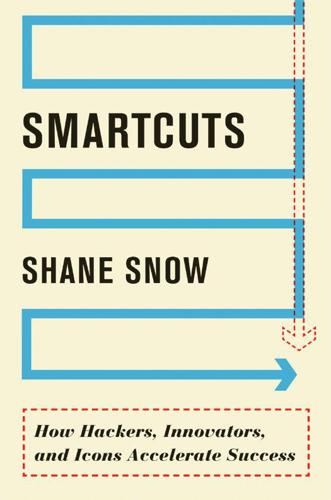
Smartcuts: How Hackers, Innovators, and Icons Accelerate Success
by
Shane Snow
Published 8 Sep 2014
He fixated on the careers of comics like Sandler and Spade and tracked the movements of their management teams, agencies, films, and TV shows as if he was earning school credit for it. Jimmy’s goal since childhood, he explained to Siegel, had been to join the cast of Saturday Night Live. He was endearing. After a two-hour call, Siegel offered to represent him. She had one question, however. “Why don’t you stay and graduate?” Jimmy was a semester shy of a degree. Siegel suggested that they get started in the summer, so he’d have a bachelor’s degree to fall back on, just in case. “No, no,” Jimmy insisted. “I need to get on Saturday Night Live, and you’re going to make it happen, because you know Adam Sandler! I don’t want to do anything else.” Siegel knew this was a long shot—and a long-term endeavor—especially for an out-of-town kid with zero acting credits.
…
After two dozen attempts to recontact her by phone, e-mail, and LinkedIn, and at least one attempt to smooth talk my way past security at 30 Rock, I gave up. IF YOU READ THIS, JIMMY, AND WANT TO HANG OUT, DM ME ON TWITTER @SHANESNOW! 33 the most Emmy-nominated television show: Saturday Night Live has, at the time of this writing, received 171 Emmy nominations: “Awards Search: Saturday Night Live,” Emmys, http://www.emmys.com/awards/nominations/award-search (accessed February 15, 2014). 33 the oldest stand-up comedy showcase: The title of world’s longest-running showcase comedy club is self-proclaimed by The Comic Strip: “About the Comic Strip Live Comedy Club,” http://www.comicstriplive.com/index.php/about-us/ (accessed February 15, 2014).
…
Give yours up and weather the storm with the person of your dreams. The first section of this book discusses how some people use such “hacker” thinking to shorten paths to success. It’s how some people take a few years to become president while others spend 30. It’s how unknown comedians get on Saturday Night Live and Internet companies get to millions of users in months. Lateral thinking doesn’t replace hard work; it eliminates unnecessary cycles. Once they’ve shortened their path, overachievers tend to look for ways to do more with their effort, which brings us to our next section: LEVERAGE Pretend you’re fixing up an old house, and you need to pry a nail out of the wood floor in the living room.
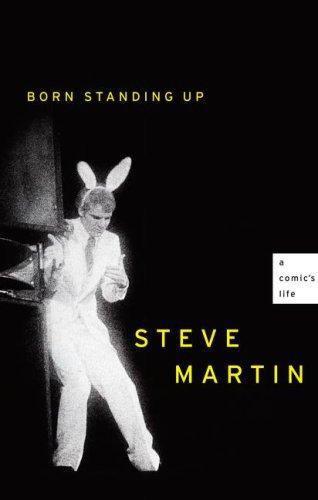
Born Standing Up: A Comic's Life
by
Steve Martin
Published 20 Nov 2007
I MOVED TO ASPEN, COLORADO, to be closer to my pals Bill McEuen and the Dirt Band. It was there, on the night of October 11, 1975, that I turned on the TV and watched the premier episode of Saturday Night Live. “Fuck,” I thought, “they did it.” The new comedy had been brought to the airwaves in New York by people I didn’t know, and they were incredibly good at it, too. The show was a heavy blow to my inner belief that I alone was leading the cavalry and carrying the new comedy flag. Saturday Night Live and I, however, were destined to meet. My performing roll continued. Dave Felton, a highly regarded rock-and-roll journalist, interviewed me for an article in Rolling Stone.
…
When the car got up to speed, the driver pushed him out of the moving vehicle, and he rolled onto the rainy streets of Manhattan. I pictured Danny bouncing down the wet pavement and then said the only thing that came to mind. I asked him if he wanted to go to Saks and shop for clothes. He said, as friendly as he could, “Uh, man, that’s not my thing.” We liked each other, but we were different. I first appeared on Saturday Night Live in October 1976. I felt powerful butterflies just prior to being introduced, especially when I reminded myself that it was live, and anything that went wrong stayed wrong. But it is possible to will confidence. My consistent performing schedule had kept me sharp; it would have been difficult to blow it.
…
My physicality intensified and compressed—smaller gestures had greater meaning—and my comedy became more potent as I settled deeper into my own body. I opened the show with this line: “I have decided to give the greatest performance of my life! Oh, wait, sorry, that’s tomorrow night.” My fame knocked on my parents’ door. They couldn’t help hearing about their son. My father, though, was not impressed. After my first appearance on Saturday Night Live, he wrote a bad review of me in his newsletter for the Newport Beach Association of Realtors, of which he was president: “His performance did nothing to further his career.” Later, shamefaced, my father told me that his best friend had come into his office holding the newsletter, placed it on his desk, and shaken his head sternly, indicating a wordless “This is wrong.”
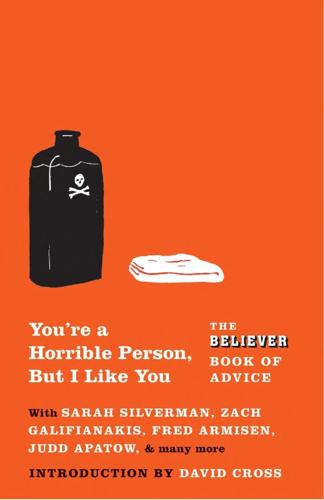
You're a Horrible Person, but I Like You: The Believer Book of Advice
by
The Believer
Published 15 Mar 2010
Judd Fred Armisen Dear Fred: What do you think is the best way to tell my dad I’m a lesbian? I’m thinking he’s already suspicious since I’m thirty-one and haven’t yet brought a guy home. Jennifer Alfonso Tampa, FL Dear Jennifer: I’ll tell him. What’s his number? Let me practice what I’m going to say to him. “Hi, Mr. Alfonso? I’m Fred Armisen from Saturday Night Live on NBC.” No, no, no. “Hey! Señor Alfonso! Whatchoo’ doin’? Slap me five!” No. “Mr. Alfonso, this is an amazing, weird planet we live on. Look at that sky. Is there a name for such a beautiful color? Let’s talk about your daughter.” No. I’ll figure it out. But again, his number, please. Fred … Dear Fred: Which is better for cannabis, the cookie or the brownie?
…
Have you ever been to a Cubs game? Try the deep-dish. Do you like white people playing the blues? How about white people listening to the blues? If “yes,” you’re all set. If “no,” you gotta go. I lived in Chicago and had some good times there. I also felt alienated by the “Da Bears” mentality. Sorry to bring up that Saturday Night Live sketch I helped write. Who invented the phrase “my bad”? That was “their bad” for sure. Bob … Dear Bob: I’m a Jew who doesn’t agree with the politics in Israel. When I explain this to my Jewish friends, they say I’m a self-hating Jew and anti-Semitic. But isn’t that as absurd as calling somebody unpatriotic for not blindly supporting the Bush administration?
…
He’s also one-third of MTV’s hit sketch comedy series Human Giant. Judd Apatow wrote and directed the films Knocked Up and Funny People and was the cowriter and director of The 40-Year-Old Virgin. He was also the executive producer of the television series Freaks and Geeks. Fred Armisen is, among other things, a repertory cast member on Saturday Night Live. This may not still be true when you’re reading this. Welcome to the future! Maria Bamford stars in her own Web sitcom on SuperDeluxe.com and in Comedy Central’s Comedians of Comedy. Her other appearances include Late Night with Conan O’Brien, The Tonight Show with Jay Leno, and Comedy Central Presents … Maria Bamford.
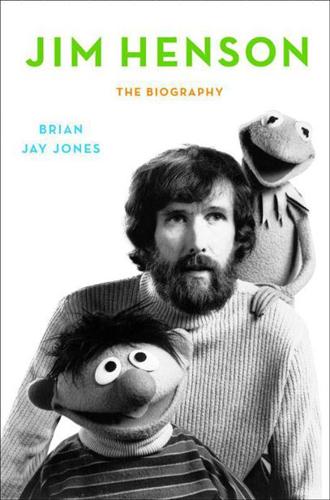
Jim Henson: The Biography
by
Brian Jay Jones
Published 23 Sep 2013
“He described the show, and I really loved it,” said Jim. In August, then, Jim began meeting regularly with Michaels’s writers in preparation for the weekly late night series Jim referred to on his desk calendar only as the “NBC Show,” but which Michaels was calling Saturday Night—and then, eventually, Saturday Night Live. Saturday Night Live was a comedy variety show, but, as envisioned by Michaels and his scrappy team of writers, one unlike any variety show that had ever been seen before. “We wanted to redefine comedy the way the Beatles redefined what being a pop star was,” Michaels said later. The very idea of it—an unpredictable live show unafraid of taking on politicians, presidents, or pop culture—terrified the network even months before it ever went before the cameras.
…
He was accustomed to working hard for his clients and determined never to take no for an answer. Brillstein would eventually become one of the most powerful and respected agents, managers, and producers in show business, with an A-list roster of celebrity clients, including, it seemed, nearly the entire cast of Saturday Night Live. In 1960, however, as head of William Morris’s commercial office, his job was recruiting and representing talent for television commercials. Brillstein, an early fan of television, quickly put to rest the showbiz aphorism that television commercials were for has-beens or the hard up, assembling a stable of top-tier clients like Zsa Zsa Gabor, Harpo Marx … and Burr Tillstrom.
…
And as Jim and his team packed up their boxes to leave, Eisner gave them the go-ahead for a Muppet-related pilot. At last, Jim had yes for an answer—and now that he had ABC on board to produce a pilot, Jim was certain a weekly Muppet television show was a sure thing. He would be wrong. CHAPTER EIGHT THE MUCKING FUPPETS 1973–1975 Jim’s Land of Gortch cast from the first season of Saturday Night Live. Left to right: King Ploobis, Wisss, the Mighty Favog, Scred, Queen Peuta, and Vazh. SNL’s human cast members hated giving up on-screen time for the Gortch sketches almost as much as SNL’s writers loathed writing them. (photo credit 8.1) “THE TIME IS RIGHT FOR A VARIETY SHOW HOSTED BY DOGS, FROGS AND monsters,” wrote Jim in his first official pitch for a Muppet-based television show.
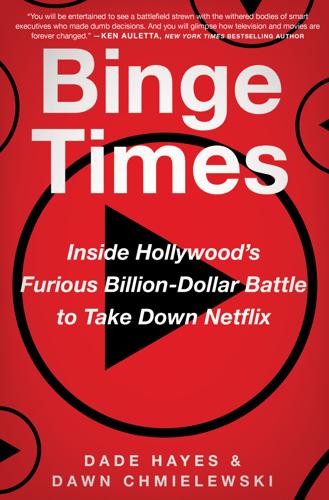
Binge Times: Inside Hollywood's Furious Billion-Dollar Battle to Take Down Netflix
by
Dade Hayes
and
Dawn Chmielewski
Published 18 Apr 2022
The momentary lift provided by the nation’s news obsession didn’t last—in fact, it exposed the threadbare nature of the viewing options available through traditional TV. Unless you were committed to constantly monitoring local or national news, there was little else to watch. With network programming disrupted by production shutdowns and the freeze on live events—everything from reality and awards shows to Saturday Night Live to sports contests—the pay-TV bundle felt more anachronous than ever. A sudden and intense economic recession, which followed a solid ten-year expansion, accelerated the trend of customers’ cutting and shaving the cord. Thankfully for traditional cable operators, broadband internet access became more essential a commodity than Purell, and those profit margins remained fat.
…
The race to embrace Netflix’s streaming destiny set in motion the biggest mistake in the company’s history—the decision in 2011 to separate the company’s DVD rental business into a separate service called Qwikster. Critics trashed the idea, and Hastings himself became the object of ridicule by Saturday Night Live, which parodied his awkwardly lo-fi YouTube video apologizing for the misstep. The debacle cost Netflix millions of subscribers and pummeled the company’s stock, which dropped more than 75 percent. Hastings tearfully apologized for damaging the company at a weekend management retreat months later, though executives say a pall remained over the company for a year.
…
None of that user-created ephemera seemed to pose a serious competitive threat to such television juggernauts as American Idol; CSI: Crime Scene Investigation; and Grey’s Anatomy in 2005. But as often is the case with early-stage technology, the nature of the threat evolved quickly, as users found a new application for the video-sharing site—uploading favorite television clips. One of YouTube’s earliest viral hits was ripped, literally, from TV: Saturday Night Live’s “Lazy Sunday” skit, featuring Chris Parnell and Andy Samberg as two slackers rapping about the virtues of New York’s Magnolia Bakery cupcakes and going uptown to watch The Chronicles of Narnia. The two-and-a-half-minute short racked up five million views in a matter of days, though network parent NBC didn’t see a penny and demanded it be taken down.
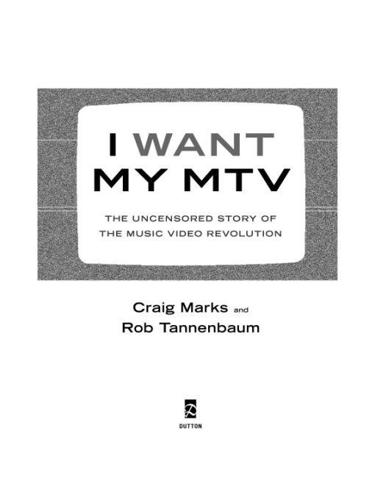
I Want My MTV: The Uncensored Story of the Music Video Revolution
by
Craig Marks
and
Rob Tannenbaum
Published 19 Sep 2011
JOHN LACK: See, the whole pitch to the board of directors at WASEC had nothing to do with music videos. It had to do with demographics. At that point, there was no television aimed at the twelve- to thirty-four-year-old demographic. Half of the Saturday Night Live audience was over thirty-five. If you were an advertiser buying time on Saturday Night Live to reach young adults, half your money was wasted on thirty-five-plus. We said, If this music channel reaches twelve to thirty-four year olds, we can deliver an audience for advertisers they can’t get through broadcast television. Cable providers would sign up new subscribers, because this would be available only on cable.
…
When I got there, she said, “I’m watching this new channel, MTV.” What a weird thing. What do you mean, they’re showing music videos? What’s a music video? Why would you show that? I can’t stop watching! We watched for six hours. It’s one of those things you can’t describe to anyone who’s younger than you, like the first year of Saturday Night Live. It was like a comet streaking across the sky. DAVE MUSTAINE, Megadeth: My mom moved out when I was fifteen, so I’d been living alone in my apartment for a few years. People would ditch school, come over, buy pot from me, and watch MTV. I’m telling you, man, I had the coolest house in the town.
…
LEE MASTERS, MTV executive: Bob and I met in 1972, when we were both teenage disc jockeys, working in the South. A few years later, Bob hired me to work for him at WNBC as on-air talent, and we did Album Tracks together, which was a precursor to MTV in many ways. There weren’t many outlets for music videos, so Bob had an idea for a show that would run after Saturday Night Live on NBC stations in New York, Chicago, Washington, and LA. We wrote the show and we were the on-camera talent, so to speak. We showed “Paradise by the Dashboard Light” and some Styx clips from The Grand Illusion. It was always album rock. ANDY SETOS, MTV executive: I got a call from John Lack, because I was a cool engineer, and I’d had experience doing stereo television at WNET, the public TV station in New York.
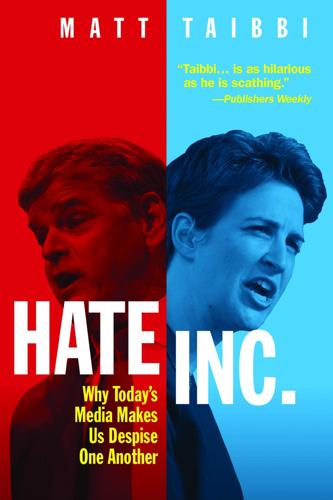
Hate Inc.: Why Today’s Media Makes Us Despise One Another
by
Matt Taibbi
Published 7 Oct 2019
The Washington Post has George Will and Max Boot. “Intellectual diversity” in a major news outlet means “someone from both parties.” You will connect with one or the other. It doesn’t matter which one. 2. THE TWO IDEAS ARE IN PERMANENT CONFLICT It was a joke in the seventies, with Saturday Night Live’s “Point/Counterpoint.” The Saturday Night Live news show pitted Dan Aykroyd and Jane Curtain against each other, viciously railing over issues no sane person could possibly care about. “Jane, you ignorant slut!” seethed Aykroyd, in a “debate” about actor Lee Marvin’s palimony case. The skit was hilarious precisely because normal human beings don’t dress up in suits and ties to yell insults at each other over issues that have nothing to do with their actual lives.
…
Most outsiders recognized this as a political mistake on par with Romney’s 47 percent gaffe. According to the book Shattered: Inside Hillary Clinton’s Doomed Campaign by Jonathan Allen and Amie Parnes, it was Clinton’s “first unforced error of the fall,” or so her staffers were said to have thought. But the “unforced error” soon became gospel in the press. Saturday Night Live’s “Racists For Trump” skit from earlier in the year, which showed Trumpers in swastika armbands and Klan hoods and so on, became the go-to, exclusive explanation for Trump’s rise. The conventional wisdom was that Trump was Hitler, effectively, even before he got elected. “Is Donald Trump a fascist?”
…
The “beer test” became shorthand for something they’d struggled over the years to articulate. For decades, we’d run presidential candidates through humiliating marathons, making them divulge embarrassing family secrets on afternoon talk shows, trade scripted barbs with Lettermans and Lenos, and mock themselves on comedy shows like Saturday Night Live. We wrote seriously about all sorts of things they did that had nothing to do with being president, but answered a lot of questions about their cravenness and their willingness to jump through media hoops. We also systematically removed issue politics from races and gradually degraded the office, training voters to think of presidential candidates as boobs who would do whatever reporters asked of them.
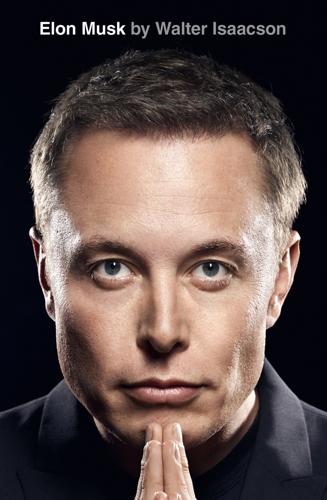
Elon Musk
by
Walter Isaacson
Published 11 Sep 2023
With that threat lifted, he no longer felt quite as desperate to show that the acquisition made financial sense. 61 Nights Out Summer 2021 With Maye onstage at Saturday Night Live and with Grimes at a party Saturday Night Live “To anyone I’ve offended, I just want to say, I reinvented electric cars and I’m sending people to Mars in a rocket ship. Did you think I was also going to be a chill, normal dude?” Musk grinned sheepishly as he delivered his opening monologue as the guest host of Saturday Night Live. Shifting his weight from one leg to the other, he was doing a passable job of making his awkwardness charming. That was his theme: showing that he could be self-aware about his emotional shortcomings.
…
Provide your email again so we can register this ebook and send you more of what you like to read. You will continue to receive exclusive offers in your inbox. To anyone I’ve offended, I just want to say, I reinvented electric cars and I’m sending people to Mars in a rocket ship. Did you think I was also going to be a chill, normal dude? —Elon Musk, Saturday Night Live, May 8, 2021 The people who are crazy enough to think they can change the world are the ones who do. —Steve Jobs PROLOGUE Muse of Fire The playground As a kid growing up in South Africa, Elon Musk knew pain and learned how to survive it. When he was twelve, he was taken by bus to a wilderness survival camp, known as a veldskool.
…
The kitchen counters are white Formica, and the only thing that stands out is the industrial-size refrigerator, stocked with caffeine-free Diet Cokes. The art is early dorm room, including posters of Amazing Stories magazine covers. On the coffee table is volume three of Winston Churchill’s history of World War II, the Onion’s Our Dumb Century, Isaac Asimov’s Foundation series, and a photo album prepared by Saturday Night Live of his May 2021 appearance. A small adjoining room has a treadmill, which he doesn’t use much. The backyard has scrubby grass and a couple of palm trees that, despite being palm trees, wither in the August heat. The white brick wall in back is covered with squiggly graffiti art painted by Grimes, featuring red hearts and clouds with blue emoji-like bubbles.
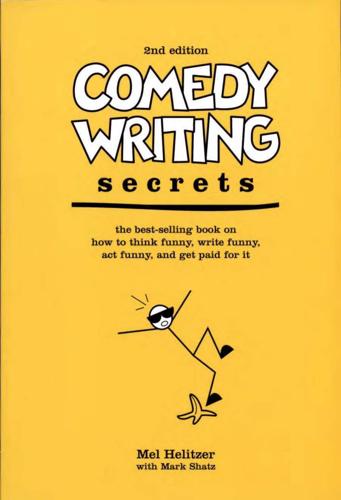
Comedy Writing Secrets
by
Mel Helitzer
and
Mark Shatz
Published 14 Sep 2005
This type of joke would be a fun opening for a speech to a PTA-type group because the audience members are likely to share a parent's ambivalence toward children. When school is out, there's always the tearing up of homework, screeching, and giggling. You would think professors would act more dignified! —Paul Sweeney The Next Giant Step: Reverses 135 SHOWTIME The "news" reports on shows such as Saturday Night Live and The Daily Show With Jon Stewart commonly include reverses in the form of onesentence news headlines followed by contradictory tag lines. Write a reverse for each of the following setups, then compare your responses to the pros' versions that appear on the next page. A Harvard Medical School study has determined that rectal thermometers are still the best way to tell a baby's temperature.
…
Antonyms While synonyms are words or phrases that share the same meaning, antonyms are words or expressions that mean the opposite of each other: hot vs. cold, tall vs. short. Paired antonyms generate humor because they are the simplest form of a reverse. The first word of the phrase starts you in one direction; the antonym flips you in the opposite. When Saturday Night Live was having a bad season, critics were quick to dub it Saturday Night Dead. 142 Comedy Writing Secrets There are good and bad politicians in the government: Some are trying to clean it up; some are trying to clean it out. —Robert Orben Young boy to friend: If I'm too noisy they give me a spanking.
…
The talent comes from suggesting hard-core humor but never actually stating it. A sexually frustrated young girl sat on Pinocchio's nose and said, "Now lie to me. Now tell me the truth. Now lie to me. Now tell me the truth." —Paul Krassner When Ron Nessen, a former presidential assistant, guest hosted Saturday Night Live, writer Alan Zeibel created a skit that reformed presidential elections to presidential erections. That could have been a cheap laugh— and probably wouldn't have been acceptable to NBC censors—but Zeibel finessed that by referring to buildings and monuments. The audience got the point immediately, and the laughter was even louder because the implicitness of the joke made them feel more comfortable.

Reaganland: America's Right Turn 1976-1980
by
Rick Perlstein
Published 17 Aug 2020
Newsweek called it the “Denim Inaugural.” The Washington establishment proved underwhelmed. The night before, there had been a “New Spirit Inaugural Concert” at the Kennedy Center, featuring everyone from John Wayne to Johnny Cash to Aretha Franklin and the National Symphony. Dan Aykroyd of Saturday Night Live performed his Jimmy Carter impression (“Ah promise to be a lusty president”), which was when the guest of honor entered—laughing. He took his seat in the President’s Box in the first balcony, shared a secret with Amy, who giggled (the picture made the front pages), led a standing ovation for Loretta Lynn, then for the poet James Dickey, who called Carter a “mythic hero.”
…
A thirteen-year-old suggested shipping snow to the West to help with their drought. A Mrs. Phyllis Rogers of Albuquerque asked if it might “be possible to eliminate the word ‘drug’ from drug store advertising” to discourage drug abuse, which the president said he thought was a splendid idea. (Saturday Night Live did an affectionate lampoon. One frightened caller was suffering a bad LSD trip. The president calmly talked him down: “You did some Orange Sunshine, Peter.… Do you have any Allman Brothers?…”) He held his first town meeting, in Clinton, Massachusetts. And allowed four NBC camera crews to spend an entire day in the White House, with portable microphones clipped to his and his staffers’ ties, affording NBC nearly carte blanche to choose clips for their A Day with the President documentary.
…
He had been a brash fixture in the city since 1961, when he defended beatniks arrested for performing in Washington Square Park without a permit. He was known as a liberal, had cosponsored the federal gay rights bill—the one introduced by Bella Abzug, who was running in first place in the mayoral race. Her flamboyant hats, abrasive manner, and uncompromising liberalism had made her a national celebrity, her candidacy heralded on Saturday Night Live, when Gilda Radner’s hard-of-hearing character Emily Litella asked if Abzug would throw her “cat into the ring.” Running on a promise to give every out-of-work civil servant his or her job back, she began the race ahead by a comfortable thirty-six points. Third place belonged to a wild card named Mario Cuomo.

The Bedwetter: Stories of Courage, Redemption, and Pee
by
Sarah Silverman
Published 19 Apr 2010
So a heartfelt thanks to Kerry--the friend I deeply adore but get to enjoy only on special occasions. LIVE FROM NEW YORK, YOU'RE FIRED * * * The Happiest I Have Ever Been in a Public Toilet * * * In 1993, when I was twenty-two, I flew to Los Angeles to meet with Jim Downey and Lorne Michaels (the executive producer and head writer nonrespectively, of Saturday Night Live). They were looking to hire new writer-performers for the upcoming season, and I was one candidate among many to be interviewed. To the meeting, I wore my hair mostly down, with two small ponytails pulled off my face, mimicking a picture of Gilda Radner that had always stuck in my mind. Later that night, I was invited to the Coneheads premiere at Grauman's Chinese Theatre, and that's where my manager informed me that I'd gotten the job.
…
Instead, I hugged him. The only thing that kept me from melting to the floor was the fact that I was bouncing up to the ceiling. I could not believe it. I wanted to tell everyone. Nothing in the world--at least for a comedian--could be better than telling your friends that you're going to be on Saturday Night Live. Telling those very people with whom you reenacted all the "Sweeney Sisters" musical numbers, telling your mother who never said "cheeseburger" or "Pepsi" the same way after 1975. I don't know what to compare it to. I guess if you fixed clocks for a living, it'd be like getting to fix Big Ben.
…
Still, I was able to show some prowess on the court, and I piqued Garry's interest enough that he came to see me do stand-up. About a year or so later, he and writer Alan Zweibel created a role for me on an episode of The Larry Sanders Show as one of the writers on the show-within-the-show. It was probably my biggest career thrill since getting hired to be an actual writer at Saturday Night Live. There was just one thing standing between me and a whole new level of career prestige: my agent. I got a call from Justin, the writers' assistant at Sanders, whom I knew from basketball at Garry's house. He said, "You should know this. I was asked to call your agent at CAA to get tape on you, so that the other writers here could get familiar with you and write the part in your voice.
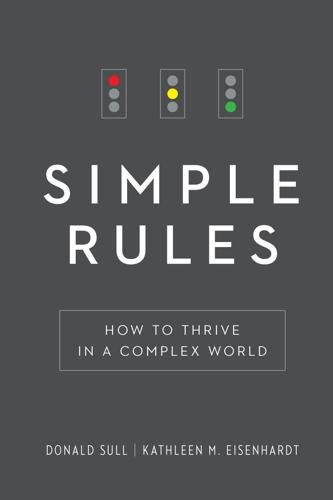
Simple Rules: How to Thrive in a Complex World
by
Donald Sull
and
Kathleen M. Eisenhardt
Published 20 Apr 2015
Members of the group went on to found The Second City, the improvisational comedy troupe whose alumni read like a who’s who of comedy, including Tina Fey, Mike Myers, Bill Murray, Gilda Radner, Steve Carell, Stephen Colbert, and Amy Poehler. The form of improvisation pioneered at The Second City inspired influential U.S. television shows including Saturday Night Live, Whose Line Is It Anyway?, Curb Your Enthusiasm, and too many movies to mention. In contrast to standup comedians, who succeed or bomb alone onstage, improvisation is a team effort where it is hard to look good unless everyone else does. Few tasks are as daunting as getting onstage with a group of actors whom you may barely know and making up a performance as you go along, with the proviso that your performance must be hilarious.
…
CODIFYING PERSONAL EXPERIENCE In a comedy hall of fame, Tina Fey would be a first-ballot inductee. Her stats—eight Emmy Awards, two Golden Globe Awards, four Screen Actors Guild Awards—speak for themselves. After starting her career as an improvisational comedian at The Second City, Fey took a job writing, and then performing, for Saturday Night Live. There, she became the first female head writer in a profession dominated by men. She went on to produce and star in the highly acclaimed 30 Rock, a show loosely based on her time as head writer. Fey is noteworthy not only for her successes, but for the variety in her career. In the span of two decades, she moved through a series of diverse roles including standup comedy, writing, leading a team of writers, producing a show, and starring in feature films.
…
In the span of two decades, she moved through a series of diverse roles including standup comedy, writing, leading a team of writers, producing a show, and starring in feature films. Fey is an incredibly talented comic, yet simple rules also play a role in her success. In an insightful article, Fey distilled what she learned from her experience with Lorne Michaels, the legendary producer of Saturday Night Live. She articulates nine rules for managing a comedy show, five of which deal with handling extremely creative people. Rule number 4 states, “When hiring, mix Harvard nerds with Chicago improvisers and stir.” The Harvard Lampoon alumni bring logic and sophistication to the humor, while veterans of improvisation know what will work in front of a live audience.
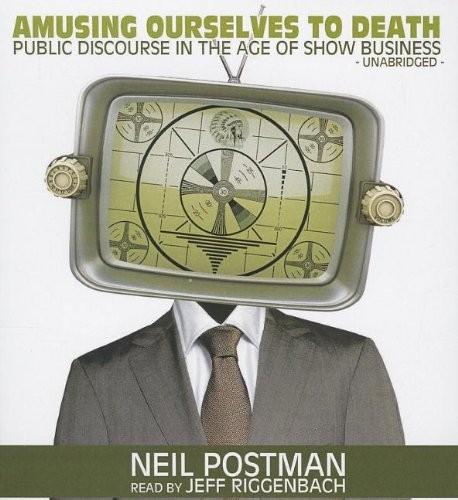
Amusing Ourselves to Death: Public Discourse in the Age of Show Business
by
Neil Postman
and
Jeff Riggenbach Ph.
Published 1 Apr 2013
One of his principal challengers in 1984 was once a featured player on television’s most glamorous show of the 1960’s, that is to say, an astronaut. Naturally, a movie has been made about his extraterrestrial adventure. Former nominee George McGovern has hosted the popular television show “Saturday Night Live.” So has a candidate of more recent vintage, the Reverend Jesse Jackson. Meanwhile, former President Richard Nixon, who once claimed he lost an election because he was sabotaged by make-up men, has offered Senator Edward Kennedy advice on how to make a serious run for the presidency: lose twenty pounds.
…
Former President Gerald Ford joined with former Secretary of State Henry Kissinger for brief roles on “Dynasty.” Massachusetts Governor Mike Dukakis appeared on “St. Elsewhere.” Speaker of the House Tip O‘Neill did a stint on “Cheers.” Consumer advocate Ralph Nader, George McGovern and Mayor Edward Koch hosted “Saturday Night Live.” Koch also played the role of a fight manager in a made-for-television movie starring James Cagney. Mrs. Nancy Reagan appeared on “Diff’rent Strokes.” Would anyone be surprised if Gary Hart turned up on “Hill Street Blues”? Or if Geraldine Ferraro played a small role as a Queens housewife in a Francis Coppola film?
…
The nonsensical answer is to create television programs. whose intent would be, not to get people to stop watching television but to demonstrate how television ought to be viewed, to show how television recreates and degrades our conception of news, political debate, religious thought, etc. I imagine such demonstrations would of necessity take the form of parodies, along the lines of “Saturday Night Live” and “Monty Python,” the idea being to induce a nationwide horse laugh over television’s control of public discourse. But, naturally, television would have the last laugh. In order to command an audience large enough to make a difference, one would have to make the programs vastly amusing, in the television style.

Care to Make Love in That Gross Little Space Between Cars?: A Believer Book of Advice
by
The Believer
,
Judd Apatow
and
Patton Oswalt
Published 6 Mar 2012
Miscellaneous Canadian Rock Musicians: Owen Pallett is from Toronto. Steve Bays is from Victoria. A. C. Newman is from Vancouver. Sara Quin is from Calgary. Steven Page is from Ontario. John Samson is from Winnipeg. Laraine Newman is a writer/performer and a founding member of The Groundlings theater company. She’s an original cast member of Saturday Night Live. Her film, television, animation, and writing credits can be found on her website, larainenewman.com. She lives in Los Angeles with her husband of twenty-one years and their two teenage daughters. Patton Oswalt lives and drinks in Los Angeles. The Pleasure Syndicate is a comedy group that has written, collectively and individually, for The New Yorker, Esquire, The Onion, Conan O’Brien, The Daily Show, and Vanity Fair, as well as the book SEX: Our Bodies, Our Junk.
…
Bob Powers is the author of several humor books, including Happy Cruelty Day! and You Are a Miserable Excuse for a Hero. His long-running humor website is girlsarepretty.com. Simon Rich is the author of two collections, Free-Range Chickens and Ant Farm, which was a finalist for the Thurber Prize for American Humor. He’s written for The New Yorker, Saturday Night Live, and Mad Magazine. His first novel, Elliot Allagash, was published by Random House in 2010. Bob Saget has starred in many successful television shows, but he’s also been an out-of-his-mind stand-up comedian for over thirty years. From his HBO special to his scene-stealing cameos in Entourage and The Aristocrats, it’s always effective as Saget embraces his dark side.
…
She is currently writing the Critical Shopper column for The New York Times and working on her fourth book, Fear and Clothing: Unbuckling America’s Fashion Destiny. “Weird Al” Yankovic is a three-time Grammy winner and a sixth-grade spelling bee winner. His first children’s book, When I Grow Up, was recently released by HarperCollins. Alan Zweibel, an original Saturday Night Live writer, is currently finishing a new play titled Sunday Nights at 8:00 to be directed by Jerry Zaks; he’s also producing a documentary on the history of comedy with Steve Carell and David Steinberg, and writing a novel with Dave Barry.

Fire and Fury: Inside the Trump White House
by
Michael Wolff
Published 5 Jan 2018
The president and First Family are not, at least not usually, subjected to the sort of paparazzi pursuit that in celebrity media results in unflattering to embarrassing to mocking photographs, or in endless speculation about their private lives. Even in the worst scandals, a businesslike suit-and-tie formality is still accorded the president. Saturday Night Live presidential skits are funny in part because they play on our belief that in reality, presidents are quite contained and buttoned-down figures, and their families, trotting not far behind, colorless and obedient. The joke on Nixon was that he was pitiably uptight—even at the height of Watergate, drinking heavily, he remained in his coat and tie, kneeling in prayer.
…
Along with highlighting White House announcements—separating the trivial from the significant—the paper would also highlight, often in front-page coverage, the sense of the absurd, the pitiable, and the all-too-human. These stories turned Trump into a figure of ridicule. The two White House reporters most consistently on this beat, Maggie Haberman and Glenn Thrush, would become part of Trump’s constant refrain about the media being out to get him. Thrush would even become a fixture in Saturday Night Live sketches that mocked the president, his children, his press secretary Sean Spicer, and his advisers Bannon and Conway. The president, while often a fabulist in his depiction of the world, was quite a literalist when it came to how he saw himself. Hence he rebutted this picture of him as a half-demented or seriously addled midnight stalker in the White House by insisting that he didn’t own a bathrobe.
…
Trump demanded and repeated the question, and then repeated the answer: “Zero! Zero!” And that went for his son-in-law, too, who had a lot to learn. The media was not only hurting him, he said—he was not looking for any agreement or really even any response—but hurting his negotiating capabilities, which hurt the nation. And that went for Saturday Night Live, too, which might think it was very funny but was actually hurting everybody in the country. And while he understood that SNL was there to be mean to him, they were being very, very mean. It was “fake comedy.” He had reviewed the treatment of all other presidents in the media and there was nothing like this ever, even of Nixon who was treated very unfairly.
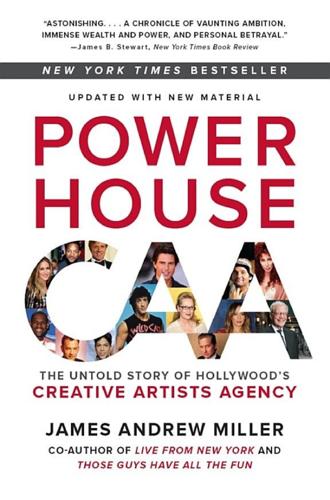
Powerhouse: The Untold Story of Hollywood's Creative Artists Agency
by
James Andrew Miller
Published 8 Aug 2016
This book is the product of both years and decades of work. The interviewing process began several years ago, but CAA has been part of the fabric of two prior books, reporting for which began around the turn of the millennium. Those two books—Live from New York and Those Guys Have All the Fun—were histories of Saturday Night Live and ESPN, respectively. Saturday Night Live is, of course, a television show, and ESPN a network. Both were born in the ’70s and both became world-famous brands. CAA was also a child of the ’70s, and while its initials are not as well-known as SNL’s or ESPN’s, CAA’s breadth and scope are far greater than either.
…
So I went over there to meet him, and he introduced me to Jack Gilardi, who was married to Annette Funicello of the Mouseketeers. We sat there in Gilardi’s office for a while, and then he stood up and said, “Well, okay, let us know when you get work.” I was kind of amused by that. Three days later, I got the Saturday Night Live job and completely forgot to call him back and say I got work. What a drag. RON MEYER: Marty had gotten us into the film business when he came over, and we all had made the decision that when the TV business was strong enough that it was generating serious revenues, Mike and I would focus entirely on the movie business, and that’s what happened starting late in 1979.
…
I signed Dan Aykroyd, John Belushi, Albert Brooks, and many others, and for the next two years, all we did was put comedies together. Here’s the killer: Everyone scoffed at us. We got bad press. Sue Mengers laughed at us. She didn’t want any of these people. Old-fashioned and arrogant movie businesspeople were saying movies like Meatballs and Caddyshack would fail, and that movies with Saturday Night Live people in them wouldn’t work because, as they said, “Why would people pay to see things they could see for free?!” There was even an article calling us idiots. I’ll tell you when people all of a sudden woke up: They woke up on Stripes. IVAN REITMAN: Stripes was the first deal I remember that Michael conducted for me.
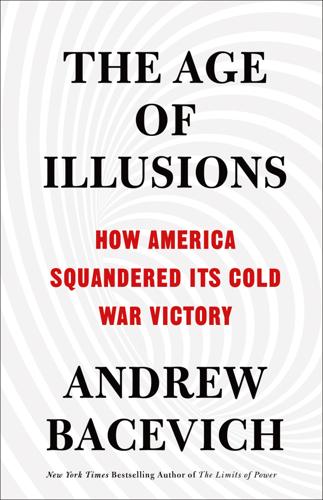
The Age of Illusions: How America Squandered Its Cold War Victory
by
Andrew J. Bacevich
Published 7 Jan 2020
All the chatter served one purpose only: It distracted attention from the shackles imposed by what passed for conventional wisdom. As for Donald Trump, he was now commanding a far wider audience. During the Bush era, he prospered and became a major media presence, treated as both laughingstock and sage. In April 2004, he even hosted Saturday Night Live, one of the nation’s highest accolades. “Nobody’s bigger than me, nobody’s better than me,” he bragged after the show. “I’m a ratings machine.”27 In a sense, he was. Not surprisingly, ratings-conscious news networks and radio talk show hosts regularly booked him, not to discuss real estate deals or gambling casinos, but to get his views on the leading public policy controversies of the day.
…
Imagine, in fact, Trump and Hillary Clinton as contemporary equivalents of Rosencrantz and Guildenstern in Shakespeare’s Hamlet. In that play, the two courtiers function as pawns in a drama they do not begin to comprehend. Much the same can be said of Trump and Clinton. In the 1960s, the playwright Tom Stoppard famously transformed Rosencrantz and Guildenstern into comic figures. It took the writers on Saturday Night Live to do the same with The Donald and Hillary. Notably, while advancing the plot, Shakespeare’s throwaway characters do not determine its outcome. Neither will the forty-fifth president and the woman who so desperately wanted his job. Shakespeare’s play turns on the fate of Hamlet, not on that of the expendable Rosencrantz and Guildenstern.
…
John Yoo, “The President’s Constitutional Authority to Conduct Military Operations Against Terrorists and Nations Supporting Them” (September 25, 2001). Yoo was then serving as deputy assistant attorney general in the Department of Justice. 27. http://www.nme.com/features/every-time-donald-trump-has-appeared-on-saturday-night-live-2019406, accessed May 22, 2018. 28. The Situation Room, CNN (March 16, 2007). 29. During President Bush’s first term, Rice served as national security adviser. In 2005, she succeeded Colin Powell as secretary of state. 30. Kimberly Amadeo, “U.S. Debt by President: By Dollar and Percent,” Balance (April 13, 2018). 31.

Sleepwalk With Me: And Other Painfully True Stories
by
Mike Birbiglia
Published 11 Oct 2010
Although because he was something of a live wire, I never knew what his response would be if I made fun of him. He might laugh a little. He might flip out and then shout something at me really loud, which would get him in trouble with Mr. Bobbin, which was again funny because Mr. Bobbin’s nonthreatening high-pitched admonitions were hilarious. Around this time, I started watching Saturday Night Live religiously and doing terrible impressions of Dana Carvey’s impressions of George Bush. Another popular character at the time was Jon Lovitz’s “Annoying Man.” Annoying Man would come on Weekend Update and make excessively irritating nasal sounds and stick his fingers near Dennis Miller’s face until finally Miller would say, “Annoying Man—please!”
…
—Jonathan Ames, creator of HBO’s Bored to Death and author of The Extra Man and Wake Up, Sir! “Mike Birbiglia is a good friend of mine but I’m still really happy when weird, bad things happen to him because I love hearing the stories.” —Seth Meyers, head writer and host of Weekend Update, Saturday Night Live “Sleepwalk with Me is a delightful stroll into the charming, intelligent, and accessible mind of Mike Birbiglia.” —Kristen Schaal, comedienne and costar of Flight of the Conchords “Mike Birbiglia might be the best comedian of our generation: smart, honest, and always painfully funny. He’s the Rembrandt of awkwardness.”
…
The truths he unpacks from his life ring like a bell.” —Adam Savage, co-host of Discovery’s MythBusters “Sleepwalk with Me is an amazing read—funny, insightful, heartbreaking, uplifting, terrifying at times, and very, very funny. Yeah, I said funny twice, but that’s because it’s really funny.” —Will Forte, writer and cast member, Saturday Night Live “Birbiglia’s ability to translate this singular comic persona into seamless, Pringles-addictive prose is a radical achievement. You will want to play in Mike’s childhood home, experience his delayed adolescence, and walk lucid through his dreams.” —Lena Dunham, writer and director of Tiny Furniture “Mike Birbiglia’s crafted a genuine rarity—a boisterous book you want to listen to, quietly.”

Nothing but Net: 10 Timeless Stock-Picking Lessons From One of Wall Street’s Top Tech Analysts
by
Mark Mahaney
Published 9 Nov 2021
It started generating 20%+ premium revenue growth for over a decade starting in 2009, with an accelerating number of new subscribers every year from 2009 to 2019—with the exception of 2011–2012, when a completely botched effort to materially raise fees and spin off its DVD business (the Qwikster catastrophe) stunted subscriber and revenue growth for 12 months (see Table 5.1). Harvard Business School was going to do a case study on the Qwikster disaster, but Saturday Night Live beat them to the punch with one of the greatest corporate spoof skits of all time. Netflix streaming became so successful that it caused arguably the world’s greatest entertainment company (Disney) to completely upend its business model in search of streaming (Disney+). And NFLX became the single best performing stock of the decade.
…
This ended up being the “New Coke” moment of the Internet era—a horrifically botched product decision. The result was subscriber outrage, the loss of 800,000 customers during the September 2011 quarter, and damage to the brand that took over a year to repair. When the company announced that 800,000 sub loss on October 24, 2011, the stock tanked 35% in one day from $17 to $11. Saturday Night Live did a wonderful satire of this, cementing this fiasco into the tech history books. A few months after the Qwikster fiasco, I had dinner with one of the Netflix board members. I asked him how the board could have signed off on what seemed like—with 20/20 hindsight—such a terrible idea. His response illustrated the power of founders.
…
S&P, 281t, 282t and pricing power flywheel, 194–197, 195f product innovation, 119–123 and Qwikster, 206–208 revenue, 97–102 rise of, 5 sell-offs of, 41–45 share price, 42f, 97f, 271f and streaming service, 212–214 sub forecasts of, 76 Network effects, 170 New York Times, 187 Nike, 173 NILE (Blue Nile), 23–24 No earnings, companies with, 242–254, 243t Obama, Michelle, 128 One Up on Wall Street (Lynch), 1, 2, 5, 77 OpenTable, 31 Orbitz, 90 Other Bets segment, of Google, 208 Outliers (Gladwell), 23, 205 Overature, 80 Overstretching, by Groupon, 30–31 Ownership, of mistakes, 219, 221 Page, Larry: and Burning Man, 220t as CEO of Google, 9, 157 as company founder, 145, 146, 204t, 208 innovation by, 209 and Eric Schmidt, 219 PageRank algorithm, 147 Pandora, 132–133, 166, 210 Past performance, of management teams, 222–223 PayPal, 80, 83, 205 PCLN (see Priceline [PCLN]) Peloton: during Covid-19 pandemic, 17, 303 fundamentals at, 261t Pet Valu, 17 Pets.com (IPET), 67, 68 PetSmart, 68 Pinterest: fundamentals at, 261t market cap of, 247t marketing potential on, 137 profitability of, 248–250, 249t as tech stock, 3 Pitt, Brad, 135 Pittman, Bob, 7, 8 Plated, 20 Platform companies: Amazon as, 119 Uber as, 159 valuation of, 241–242 Podcasts, on Spotify, 128, 131 Postmates, 185f Precision trap, 254–255 Priceline (PCLN): acquisitions of, 80 as competition, 31 fundamentals of, 92t, 95t management teams at, 210 marketing by, 168 revenue, 90–96 reverse stock split of, 28 share price, 92f, 94f total addressable market, 164–165 (See also Booking.com [BKNG]) “Priceline Stock: Dominant, Growing, and Undervalued,” 91 Pricing power flywheel, 192–197 Product innovation, 113–141, 295–296 Amazon vs. eBay, 179 Amazon Web Services, 115–119 defining, 114 of Facebook, 268 Google, 155 importance of getting right, 63 Netflix, 119–123, 273 Spotify, 128–133 Stitch Fix, 124–128 Twitter, 133–139 Uber, 275 Profit, 111 Profitability logic tests, 248–254 Psychology, stock-picking and, 16–17 “Pulling a Google,” 153, 164, 264 Purple Carrot, 20 Quarters: challenges with forecasting, 56 trading around, 74 QVC, 24 Qwikster, 121, 206–208 Rallies in the Valley, 44 Randolph, Marc, 204t, 220t Rascoff, Spencer, 188, 191, 209 Redfin (RDFN), 250–251, 251t Regulation, 308–310 Relevance, of lessons, 305–308 Research, conducting your own, 140 Return on investment (ROI), 147–148 Revenue, 75–111, 294–295 Amazon Web Services, 117f during Covid-19 pandemic, 105–107, 304–305 deceleration of, 110 eBay, 83–86 Facebook, 268 and growth curve initiatives, 102–105 importance of, 77–81 in Internet sector, 81–82 Netflix, 97–102, 272–273 Priceline, 90–96 and stock prices, 63–64 20% revenue “rule,” 107–109 Twitter, 135 Uber, 275 and valuation, 78f Yahoo!, 87–90 Reverse stock splits, 28 Reyes, George, 145 Robust earnings, companies with, 232–235 Rogan, Joe, 128 Rohan, Jordan, 157 ROI (return on investment), 147–148 Roku, 261t Rule of 72, 260 Salzberg, Matt, 18, 20 Saturday Night Live (SNL), 121, 187–188, 207 Saudi Arabian Oil Company, 305 Savored, 31 Scale: benefits of, 132–133, 168–170 and profitability, 250–251 Schlumberger, 5 Schmidt, Eric, 9, 157, 219 Schumer, Amy, 128 Seattle Times, 180 Securities and Exchange Commission, 201 Selling, of dislocated high-quality stocks, 282–290, 292 Sell-offs, 35–53, 294 Amazon, 48–52 Facebook, 36–41 Google, 45–48 and lockup expirations, 73 Netflix, 41–45 as universal events, 50–51 Semel, Terry, 311 7 Now, 163 SFIX (see Stitch Fix [SFIX]) Shareholder letters, 214–216, 216t–217t Shatner, William, 90 Shopify (SHOP): as competitor, 310 and Covid-19 pandemic, 17 during Covid-19 pandemic, 303 fundamentals at, 261t management teams of, 203–204, 204t, 220t revenue of, 79 as tech stock, 3 Short-term investments, 55–59 Short-term volatility, 52, 56–59, 311 Shutterstock (SSTK), 289, 290f Singh, Sumit, 69 SiriusXM, 132 Skype, 84 Smartphones: and apps, 165–167, 168t as disruption, 172 and Google, 155 Snap (Snapchat; SNAP) AWS used by, 118 Snap (Snapchat; SNAP) during Covid-19 pandemic, 17 as downloaded app, 168t earnings outlook and valuation of, 234 fundamentals at, 138t, 261t as long-term investment, 59–65 market cap of, 247t marketing potential on, 137 and network effects, 170 product innovation, 137–139 profitability of, 248–250, 249t revenue and stock price, 283, 283f share price, 64f as tech stock, 3 SNL (Saturday Night Live), 121, 187–188, 207 The Social Dilemma (film), 269 The Social Network (film), 210, 269 Spectacles (smart glasses), 60, 62 Spiegel, Evan, 60–62, 138 Spotify (SPOT): as disruption, 172 fundamentals at, 261t market cap of, 7, 247t and pricing power flywheel, 197 product innovation, 128–133 share prices, 130f total addressable markets, 163–167, 166t, 296 Square, 139 Squier, George O., 212 SSTK (Shutterstock), 289, 290f Stanley Morgan, 83 Step-fixed costs, 169 “Still So Much to Like,” 232 Stitch Fix (SFIX): fundamentals at, 126t product innovation, 114, 124–128 share price, 124f Stock market: after Covid-19 pandemic, 106 taking losses in, 33, 35 Stock-picking, fundamentals of, 15–18 Stocks: driven by fundamentals, 76, 110 growth rates of, 229t, 230t reverse stock splits, 28 when to sell, 282–290, 292 (See also Bad stocks) Stone, Biz, 134 Stone, Brad, 206 Story stock, 254 Streaming services, 119–123 Streep, Meryl, 135 Subscription businesses, 41–43, 101, 237, 270 Sun Basket, 20 Szkutak, Tom, 192 Taleb, Nassim Nicholas, 18 TAMs (see Total addressable markets [TAMs]) Tarrant, Brenton, 36–37 Tech stocks: cost of, 227–232 and Covid-19 pandemic, 17 growth rates of, 229t, 230t importance of fundamentals for, 110 mindset for investing in, 79 performance of, 2–3 Telegram, 168t Tenacity, 218 Ten-baggers, 1–2 Tencent: growth of, 305 management teams of, 203–204, 204t, 220t market cap of, 7 net income of, 5, 6, 6t Tesla (TSLA): as founder-led company, 209–210 management teams of, 203–204, 204t, 220t product innovation at, 114, 139 on S&P 500, 87, 247 Ticket Monster, 30 TicketMaster, 31 TikTok, 3, 168t, 170, 310 Time Warner, 7, 8 Total addressable markets (TAMs), 143–172, 296 Amazon vs. eBay, 180 and benefits of scale, 132–133, 168–170 and Blue Apron, 19 DoorDash, 161–163 of Facebook, 268 Google, 145–157 Netflix, 98, 122–123 of Netflix, 273 Priceline, 93–94 Spotify, 132–133, 163–167 Uber, 158–161, 275 understanding your, 63 The Trade Desk (TTD), 3, 261t, 288 Trading: around quarters, 74 investing vs., 55–59, 302 Travelocity, 90 TREE (Lending Tree), 1 Tripadvisor (TRIP), 284–286, 285f TrueCar (TRUE), 287–288, 288f Trump, Donald, 51, 135 TSLA (see Tesla [TSLA]) TTD (The Trade Desk), 3, 261t, 288 20% revenue “rule,” 107–109, 109t Twitter (TWTR): fundamentals at, 138t, 261t growth of, 5 net income of, 6t product innovation, 133–139 profitability of, 248–250, 249t revenue and stock price, 284, 284f share price, 133f as tech stock, 3 Uber (UBER): during Covid-19 pandemic, 17, 303 dislocation periods of, 274–276 fundamentals at, 261t as long-term investment, 71–73 market cap of, 247t and network effects, 170 profitability of, 252–253, 253t share price, 72f, 277f as tech stock, 3 total addressable markets, 158–161, 158f, 171, 296 and valuation, 226–227, 244–246, 245t volatility of, 311 Uber Eats, 159, 160, 162, 185f, 253 Uber Freight, 159, 160 Uber Rides, 253 UGC (user-generated content) companies, 248–249 Unit economics advantages, 169 USA Today, 69 User-generated content (UGC) companies, 248–249 Vadon, Mark, 23–24, 68 Valuation, 225–258, 298–299 companies with minimal earnings, 235–242 companies with no earnings, 242–254 companies with robust earnings, 232–235 cost of tech/growth stocks, 227–232 long-term outlook in, 102 and precision trap, 254–255 Priceline, 93 and revenue, 78–79, 78f Uber, 160 Venn diagram challenge, 21–22 Verizon, 8, 88 Vogel, Paul, 131 Volatility, short-term, 52, 56–59, 311 Vollero, Drew, 61 Wal-Mart Stores, 6, 10, 49 Wanamaker, John, 149 Wayfair, 303, 310 Waymo, 208 Wehner, David, 39 WFH (work-from-home) companies, 303 WhatsApp, 168t Whitman, Meg, 8 Whole Foods, 80 Wikipedia, 168 Williams, Evan, 134 Williams, Rich, 31 Wing, 208 Wix, 3, 247t Work-from-home (WFH) companies, 303 Yahoo!

Hijacking the Runway: How Celebrities Are Stealing the Spotlight From Fashion Designers
by
Teri Agins
Published 8 Oct 2014
The Saturday night overflowing audience of 1,200 for the most anticipated fashion show of the week, of course, featured a celebrity-studded front row: Busta Rhymes, Bobby Brown, Luther Vandross, Mary J. Blige, Stephen Baldwin, Paris Hilton, Anna Wintour, and NBA star Kevin Garnett, as well as Cochran. J.Lo was notably absent, fueling rumors that her relationship with Combs was on the skids, but Combs’s publicist explained that she was hosting Saturday Night Live that same night. Nevertheless, Combs made certain her presence was felt—just as if she were in the front row. In the printed show program, he dedicated the show to her: “Jennifer, thanks for showing me life.” J.Lo also made an unexpected cameo in the video reel that ran throughout the fashion show, projected on a huge screen as the backdrop for the runway.
…
The hip-hop kids went nuts when they saw rapper LL Cool J decked out in one onstage. Rapper Grand Puba wore a dark green Tommy jacket and Tommy T-shirt on his 2000 CD cover. Then came the ka-ching! moment in 1994, when Snoop Dogg wore a rugby shirt with TOMMY across the front and HILFIGER across the back on Saturday Night Live. Retailers from coast to coast called the following Monday morning begging for those rugbys. Tommy was officially on fire. Hip-Hop Santa Claus Such fortuitous plugs were part organic, part staged, and worth millions of dollars in publicity—and cost the company hardly anything. It was the power of the giveaway, peddled by Tommy’s brother Andy Hilfiger, who was living in East Harlem, working as a lighting man for rock bands and music videos.
…
Cheeky, with an edgy, asymmetrical haircut, Siriano became famous for his sassy lexicon: “fierce” for ultracool, and “you’re a hot tranny mess” when your look isn’t working. Siriano became the youngest winner and the biggest breakout star of Project Runway since the show’s inception in 2004. Actress Amy Poehler played him in a Project Runway parody called “Fierce: The Hot Mess Makeover Show” on Saturday Night Live, while Siriano, as a guest star on the sitcom Ugly Betty, hammed it up playing himself, making his entrance with three dolled-up models, declaring, “The house of Siriano has arrived. Worship me, bitches!” Siriano’s fame emanated from his mass-market relatability—that was out of reach to new designers too bland or anonymous to be well known.
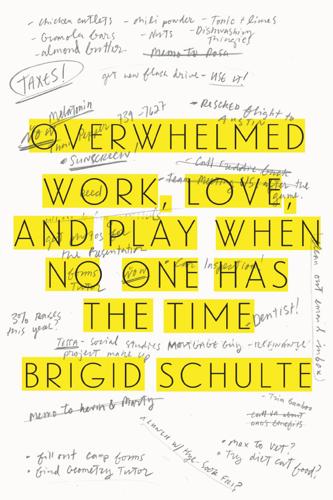
Overwhelmed: Work, Love, and Play When No One Has the Time
by
Brigid Schulte
Published 11 Mar 2014
Jennifer Soong, “When Technology Addiction Takes Over Your Life,” WebMD, June 6, 2008, www.webmd.com/mental-health/features/when-technology-addiction-takes-over-your-life. 24. Justin Ravitz, “Exclusive Video: Happy Endings’ Casey Wilson Wants to Return to Saturday Night Live—as Host!” Us Weekly, April 6, 2012, www.usmagazine.com/entertainment/news/happy-endings-casey-wilson-wants-to-return-to-saturday-night-live-----as-host-201264. 25. Universal Television, “Saturday Night Live—Press Releases,” December 5, 2011, www.nbcumv.com/mediavillage/studio/ums1/saturdaynightlive/pressreleases?pr=contents/press-releases/2011/12/05/quotablesfromsa1323122223585.xml. 26. Christopher K.
…
Being superbusy has become so normal that it’s now a joke. The actor Casey Wilson explained in an interview that her character, Penny, on the TV Show Happy Endings, abbreviates her words, like “hilar” for hilarious and “appresh” for appreciate, because she’s just too busy to say the whole word.24 And on Saturday Night Live, Seth Meyers joked in a Weekend Update segment that retailers like Target, Costco, and Kmart were selling freshly cut Christmas trees online that could be delivered to people’s homes. “And for just a few dollars more,” Meyers cracked, “they’ll put it up, they’ll decorate it, unwrap all your presents, play with your new toys, and feel the joy that you and your family apparently no longer have time for.”25 So much do we value busyness, researchers say they have found a human “aversion” to idleness and need for “justifiable busyness.”
…
productivity prolactin psychotherapy pulses Purdue University Pythagoras Quakers Quinn, Patricia radio reading Reagan, Ronald recession (2008) Reed, Donna religion RescueTime résumé retirement rhythm Richardson, Elliot risk Rivelli, Renate Robinson, John; Time for Life; time studies Robinson, Sara Rockefeller University Rodriguez, Edson role overload Romans, ancient Romney, Mitt Rosie the Riveter ROWE Rowe, Tim Rowe-Finkbeiner, Kristin; The F-Word: Feminism in Jeopardy Rubenstein, Carin: The Sacrificial Mother Rudman, Laurie Running Out of Time (PBS program) rural America, busyness in Russell, Bertrand, “In Praise of Idleness” Rutberg, Malin Rutgers University Samuelsson, Marcus Sandberg, Sheryl; Lean In San Francisco Saturday Night Live (TV show) Saudi Arabia schizophrenia Schlafly, Phyllis Schneider, Barbara Schneider, Matt Schor, Juliet; The Overwhelmed American Schroeder, Pat Schwartz, Tony; Be Excellent at Anything; The Way We’re Working Isn’t Working Schweiker, Richard science seasons, changing of Seattle self-efficacy Semedo-Strauss, Carolyn Senge, Peter: The Fifth Discipline “separate spheres theory” serotonin service industry Sevareid, Eric seven deadly sins Sevilla-Sanz, Almudena sex; discrimination Shaw, Sue Shelton, Beth Anne Sheridan, Rich shopping Sibelius, Kathleen SIDS Silicon Valley Simplicity Moms single mothers Skype Slaughter, Anne-Marie; “Why Women Still Can’t Have It All” slavery sleep; brain and; cortisol levels during; lack of smartphones smiling Smith, Tom social media software South Africa South Korea Soviet Union Spain Spira, Jonathan: Overload!
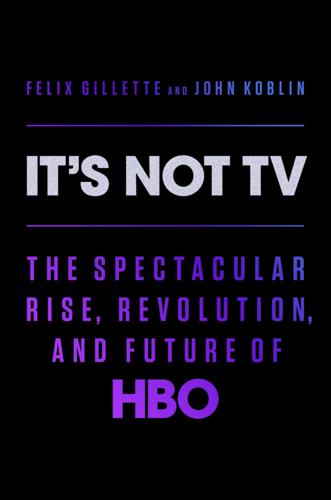
It's Not TV: The Spectacular Rise, Revolution, and Future of HBO
by
Felix Gillette
and
John Koblin
Published 1 Nov 2022
One day, his boss, Budd Friedman, told Albrecht that he was moving to L.A. to open a new club there. Would Albrecht like to buy 25 percent of the Improv in New York for twenty-five thousand dollars? Albrecht borrowed money from his grandmother and bought in. He was in the right place at the right time. In 1975, Saturday Night Live debuted on NBC and turned into a national phenomenon. A new wave of young comedians from SNL and National Lampoon frequently came by the Improv to perform and party. Albrecht played the accommodating host to John Belushi, Andy Kaufman, Gilda Radner, and Garrett Morris. It was a bacchanalian, anything-goes scene, fueled by liquor and cocaine.
…
To help him get back on his feet, HBO signed the comedian to a development contract, which paid the comedian “somewhere between fifteen thousand and twenty-five thousand dollars,” according to Albrecht. Rock returned to the clubs and kept refining his material. In 1990, Rock was invited to join the cast of Saturday Night Live, his biggest job yet. But SNL was just entering a boorish phase, one that would be dominated for the next several years by blunt physical comics like Chris Farley and Adam Sandler playing loutish, thickheaded simpletons. The things that made Rock a growing legend in comedy clubs—brutally honest dissections of race, and gender, and money—had little place on the show, and he was largely relegated to the sidelines.
…
The things that made Rock a growing legend in comedy clubs—brutally honest dissections of race, and gender, and money—had little place on the show, and he was largely relegated to the sidelines. HBO quickly proved to be a much better forum for Rock’s particular talents. For viewers and critics who mainly knew him for his brief goofy segments on Saturday Night Live, Rock’s 1994 stand-up performance on HBO was a revelation. For Rock and HBO, it was just the start of big things to come. * * * • • • IN THE SPRING OF 1995, Michael Fuchs received a big promotion at Time Warner. Gerald Levin, now the chairman of the entire mega-conglomerate, announced that Fuchs would be taking over as the new head of Warner Music, by far the largest record company in the world.
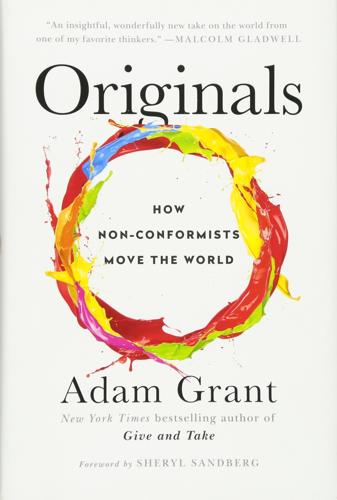
Originals: How Non-Conformists Move the World
by
Adam Grant
Published 2 Feb 2016
If you think, “That can’t possibly work because that producer doesn’t have enough experience, or no idea like that has ever worked”—if you have those kinds of roadblocks in your head, you’re going to miss something. One of the best things that I had going for me was the fact that I had never developed a primetime situation comedy, but I was accustomed to offbeat, off-kilter ideas. I could see what worked, and what didn’t work. The time I spent reading Saturday Night Live scripts made me more open to the offbeat storylines that are now legendary on Seinfeld. This unique combination of broad and deep experience is critical for creativity. In a recent study comparing every Nobel Prize–winning scientist from 1901 to 2005 with typical scientists of the same era, both groups attained deep expertise in their respective fields of study.
…
Then, instead of hiding Dalio’s shortcomings or attacking the author of the note, Bridgewater’s co-CEO copied the email trail to the entire company so that everyone could learn from the exchange. In many organizations, people give negative feedback only behind closed doors. As Jack Handey advised in one of his “Deep Thoughts” on Saturday Night Live, before you criticize people, you should walk a mile in their shoes. That way, when you criticize them, you’re a mile away and you have their shoes. At Bridgewater, employees are expected to voice concerns and critiques directly to each other. “Don’t let ‘loyalty’ stand in the way of truth and openness,” Dalio writes in the principles.
…
Bridgewater has prevented groupthink: Personal interviews with Zack Wieder and Mark Kirby, June 24, 2014; personal interviews with Zack Wieder, January 12, February 9 and 16, and April 16, 2015; personal interviews with Ray Dalio, July 31, 2014, and February 12, 2015; and many hours of additional interviews, observations, videos, and cases from current and former Bridgewater employees between June 2014 and January 2015; Ray Dalio, “Principles,” www.bwater.com/home/culture—principles.aspx; Robert Kegan, Lisa Lahey, Andy Fleming, and Matthew Miller, “Making Business Personal,” Harvard Business Review, April 2014, 45–52; Kevin Roose, “Pursuing Self-Interest in Harmony with the Laws of the Universe and Contributing to Evolution Is Universally Rewarded,” New York Magazine, April 10, 2001, http://nymag.com/news/business/wallstreet/ray-dalio-2011-4/; Jeffrey T. Polzer and Heidi K. Gardner, “Bridgewater Associates,” Harvard Business School Video Case 413-702, May 2013, www.hbs.edu/faculty/Pages/item.aspx?num=44831. As Jack Handey advised: Jack Handey, Saturday Night Live, 1991. “Cultural fit”: Lauren A. Rivera, “Guess Who Doesn’t Fit In at Work,” The New York Times, May 30, 2015,: http://www.nytimes.com/2015/05/31/opinion/sunday/guess-who-doesnt-fit-in-at-work.html. IDEO: Personal communication with Duane Bray, January 30, 2014. bring in someone to oppose: Charlan Jeanne Nemeth, “Minority Influence Theory,” in Handbook of Theories in Social Psychology 2 (2012): 362–78; Charlan Nemeth, Keith Brown, and John Rogers, “Devil’s Advocate Versus Authentic Dissent: Stimulating Quantity and Quality,” European Journal of Social Psychology 31 (2001): 707–20; personal communication with Charlan Nemeth, January 15, 2015; Roger B.
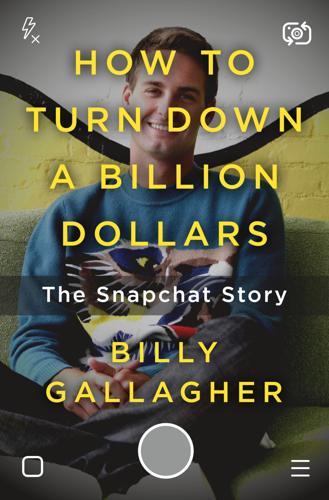
How to Turn Down a Billion Dollars: The Snapchat Story
by
Billy Gallagher
Published 13 Feb 2018
” * * * If you made a country out of all the companies founded by Stanford alumni, it would have a GDP of roughly $2.7 trillion, putting it in the neighborhood of the tenth largest economy in the world. Companies started by Stanford alumni include Google, Yahoo, Cisco Systems, Sun Microsystems, eBay, Netflix, Electronic Arts, Intuit, Fairchild Semiconductor, LinkedIn, and E*Trade. Many were started by undergraduates and graduate students while still on campus. Like the cast of Saturday Night Live, the greats who have gone on to massive career success are remembered, but everyone still keeps a watchful eye on the newcomers to see who might be the next big thing. With a $17 billion endowment, Stanford has the resources to provide students an incredible education inside the classroom, with accomplished scholars ranging from Nobel Prize winners to former secretaries of state teaching undergraduates.
…
NBC won’t simply be repurposing TV content, like it does on Facebook and YouTube, but will be shooting content specifically for Snapchat’s vertical video format. First up, The Voice came to Snapchat, with users submitting performances and celebrity coaches like Miley Cyrus and Blake Shelton judging them, all via Snapchat. NBC will also showcase comedic talent from Saturday Night Live and The Tonight Show Starring Jimmy Fallon to create short series on Snapchat. Snapchat spoke with content creators about making original shows for Snapchat like Peter Hamby’s Good Luck America. As it made room for new shows, Snapchat continued to cut what wasn’t working. The company killed off its local stories, the city stories in New York and Los Angeles that let anyone in the city contribute to a daily story that only those in the city could watch.
…
Powerhouse: The Untold Story of Hollywood’s Creative Artists Agency. New York: Custom House, 2016. Miller, James Andrew, and Tom Shales. Those Guys Have All the Fun: Inside the World of ESPN. New York: Little, Brown and Company, 2011. ________. Live From New York: The Complete, Uncensored History of Saturday Night Live as Told by Its Stars, Writers, and Guests. New York: Little, Brown and Company, 2016. Moritz. Michael. Return to the Little Kingdom: How Apple and Steve Jobs Changed the World. New York: Overlook Press, 2009. Reis, Eric. The Lean Startup: How Today’s Entrepreneurs Use Continuous Innovation to Create Radically Successful Businesses.
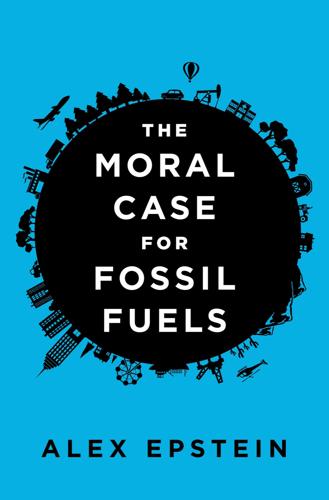
The Moral Case for Fossil Fuels
by
Alex Epstein
Published 13 Nov 2014
THE HAZELNUT ENERGY PROBLEM The simple answer is: because it’s a really, really, really hard challenge to produce cheap, plentiful, reliable energy for billions of people—and the fossil fuel industry is the only one, by a mile, that’s figured out a solution. (Although there’s one source of energy that may well outcompete fossil fuels in three to five decades—stay tuned.) A brilliant illustration of this appeared on, of all places, Saturday Night Live a few years ago. The host of the “Weekend Update” segment at the time, Jimmy Fallon, commented on a plan to use oil derived from hazelnuts to power a car. I have no doubt that this could work technically—vegetable oil and petroleum oil are extremely similar chemically. But I wasn’t excited, and neither was Fallon: New Scientist magazine reported that in the future, cars could be powered by hazelnuts.
…
Milton Friedman and Rose Friedman, Free to Choose: A Personal Statement (San Diego: Harcourt Brace, 1980), 148. 7. International Energy Agency, “Energy Poverty,” www.iea.org/topics/energypoverty. 8. Ibid. 9. World Bank, World Development Indicators (WDI) Online Data, April 2014, http://data.worldbank.org/data-catalog/world-development-indicators. 10. Saturday Night Live, Jimmy Fallon, NBC, Dec. 9, 2000. 11. Food and Agriculture Organization, Regional Office for Europe, “Inventory of Hazelnut Research, Germplasm and Reference,” (accessed July 17, 2014), http://www.fao.org/docrep/003/x4484e/x44 84e03.htm. 12. BP, Statistical Review of World Energy 2013, www.bp.com/en/global/corporate/about-bp/energy-economics/statistical-review-of-world-energy-2013.html. 13.
…
Jr., 192 Kenya, electricity in, 53–54 kerosene, 73 Kerry, John, 87, 100, 109, 127 Keystone XL pipeline, 9, 190 knowledge, integration of, 28, 33, 113–14, 183 Krupp, Fred, 136 land: for farming, 56, 81–82 and rising sea levels, 130–31 scarcity of, 46, 178 lice, 146 life, and energy, 37–39 life expectancy: and climate livability, 128 and fossil fuel use, 13, 14, 15, 30, 77–78, 77, 119–20 as leading indicator of human flourishing, 119–20 and natural environment, 86 rising, 174–76, 174 Life magazine, 7 Lindzen, Richard, 90 liquid fuel, 55, 68 Lovins, Amory, 9, 12, 194, 196 machine calories, 40–42 Maddison, Angus, 77 malaria, 145–47 malnutrition, 15, 174–75, 174 manure, 82 McKibben, Bill, 135, 178, 197 debate with author, 5, 187–91 dire forecasts of, 8, 22, 108, 127 Eaarth, 31–32 The End of Nature, 30–31, 108 influence of, 9, 189–90, 194 on outlawing fossil fuels, 9, 189 mechanization, oil-powered, 81 media: dramatic stories in, 164–65 on pollution, 6–7, 8 mercury, 165–66 methane, 83 methanol, 68 methyl alcohol, 68 Michaels, Patrick, 90 Miliband, David, 178 mobility, 132–33, 171 models, see computer models Monterey Shale, California, 191 morality, 13 mosquitoes, 145–46 Mother Nature, 86, 128, 129 NASA, on temperature change, 22 natural gas: availability of, 17, 18, 178 consumption of, 11, 18, 44, 44 drilling of, 74 energy from, 3, 66, 69–70 and fracking, 70 LNG terminals, 70 methane, 83 and peak-load electricity, 69 reliability of, 12 resources required for production of, 49–50, 49 and safety, 159 nature: enjoyment of, 170 hazards of, 176 nonimpact on, 194, 195, 199 preservation of, 32, 171–73 pristine, 30 transformation of, 129 Neff, Wes, 190 neodymium, 49 Netherlands, sea level in, 130–31, 134 Newcomen, Thomas, 141 New Scientist, 45 New York Times, 80 97 percent fabrication, 109–11 nitrogen: and coal, 154, 168 plant absorption of, 82, 93 synthetic, 83 nitrogen oxides, 68 no-threshold fallacy, 166–68 nuclear fusion, 195–96 nuclear power, 59, 61–63, 135, 195 government control of, 62–63 opponents of, 9, 54 reliability of, 12 resources required for production of, 49–50, 49 and safety, 61–62, 159, 168 as supplement, 44 Obama, Barack, 109, 206–7 oil: availability of, 17, 17, 178 consumption of, 11, 17, 44, 44 crude, 73 energy from, 3, 61, 71–72 exploration and extraction of, 71, 152 portability of, 71, 72 as raw material, 72, 73, 74 and resource creation, 73 shale, 71 spills, 159 strength to weight ratio of, 71 as transportation fuel, 68, 70, 71, 81–82 oil sands (tar sands), 26, 71 oil wells, first, 73 oxygen, 93 Paracelsus, 166 Parry, Simon, 155–56 peat, 131 Phelps, Michael, 40, 41 philosophy, study of, 5 phosphorus, 49 photosynthesis, 55 plants: and CO2, 92, 114–17, 115, 208 dead, 65–66, 114, 151 energy from, see biomass poisonous, 168 plastics, raw material for, 69, 74, 154 poisons, 62, 166–68 polar melt, 4, 130 polls, limited value of, 27 pollution: catastrophic, 16 legislation of, 160–61 media stories about, 6–7, 8 overregulation of, 158 reduction of, 19, 19, 149–50, 156–59, 199 risks and side effects of, 151–54, 153, 165 smog, 20, 79, 143, 152, 158 polymers, 74 population, growth of, 15, 77–78, 77, 121 positive feedback loops, 99–100 Powder River Basin, Wyoming, 192 power: cost of, 8–9, 63 definition of, 41 and energy, 41 out of control, 152, 159 rationed use of, 9 see also specific sources precipitation, 93 predators, threat from, 128 quantification, use of term, 110 radiation, 97, 168 radiation poisoning, 62 radioactive metals, 61 radioactive waste, 47 railroads, 82 Rand, Ayn, Atlas Shrugged, 138–39 rare-earth elements, 49, 154–55 Reiter, Paul, 146–47 religion, standard of value in, 30 renewability, 181 resources: creation of, 18–19, 73, 75, 180–82, 185, 195 depletion of, 8, 16, 179 evolution of, 75–76 increases in, 16–19, 181–82 proven reserves of, 17, 17 underpredicted availability of, 17–18 Ridley, Matt, The Rational Optimist, 81 Rifkin, Jeremy, 196 risks: and alternatives, 43 and benefits, 15, 28–29, 134 dire forecasts of, 16, 18, 21 media attention on, 15 minimizing, 43, 159–60 Rockefeller, John D., 74 Rokita, Todd, 29 Rolling Stone, 108, 189 Russia, gas from, 69 sanitation systems, 21, 142, 147–49, 148 SASOL, 68 Saturday Night Live, 45 Scafetta, Nicola, 111 scalability, 56–57, 63, 65, 86–87 Schneider, Stephen, 111 scientific method: ethical bind in, 112 and hypothesis presented as fact, 113 sea levels, rising, 4, 95, 106, 107, 130–31 shale energy technology, 191, 207; see also fracking shale oil, 71 Shaviv, Nir, 111 Shikwati, James, 54 silicon, 49 Silliman, Benjamin Jr., 73 SkepticalScience.com, 110 slavery, 41 smog, 20, 79, 143, 152, 158 Socrates, 91 solar cells, 47 solar power: backup required for, 53 concentrated solar power (CSP), 47–48 cost of, 46 cutting-edge promise of, 12 diluteness of, 48–50, 49, 65 energy from, 3 in Germany, 50–55, 51, 52 inadequacy as energy source, 57–58, 135 intermittency problem of, 48, 50–53, 65 niche uses for, 58 process of producing, 46 solar photovoltaic (solar PV), 47 supporters of, 9 unreliability of, 12 world use of, 11, 12, 44, 44 specialists, specialization, 27, 71, 112–14 standard of value, 29–33, 136, 195, 201; see also human life Standard Oil, 74 statistics: about disasters, 120–26, 121–25 cherry-picking, 54 computer models, 100–104, 102, 103, 108, 138 explicit endorsement without qualification, 110–11 hindcasting with, 101, 103 limited value of polls, 27 manipulation of, 17, 29, 99, 108, 109, 111–12 political uses of, 109 satellite data, 120 speculative models, 164–65 steam engine, 68, 74, 141, 142, 184 storm energy, 105, 105 storms, deaths from, 23, 121, 123–25, 123, 125, 128 storm walls, 131 sugarcane, energy from, 56 sulfur, 154, 168 sulfur dioxide, 47, 68, 158 sun, infrared radiation from, 97 sunlight, see solar power Superstorm Sandy, 24, 25 supply and demand, 75 sustainability, 177–79, 180–81 synthetics, 72, 83 technology: abuse of, 162–63 and climate livability, 126–29, 133, 137 development of, 18 energy needed to run, 129 energy needs met by, 34, 128–29, 172–73 opponents of, 196–97 solutions via, 134–35, 156–59, 207 technophobia, 164 temperature inversion, 158 temperatures: and CO2, 22, 23, 108 deaths from, 23, 121 excessive, 128 and greenhouse effect, 22, 97, 102–3 rising, 7, 22, 104 and weather, 93 Tesla Roadster, 72 thorium, 61 3D seismic imaging, 71 Three Mile Island, 62 time, 172, 183, 185–86 titanium dioxide, 49 Tol, Richard, 111 transformation, as moral ideal, 200–202 transportation: cost of, 82 high-energy, 128 improved, 123 travel, 84–85 trucks, 82 tsunamis, 130, 142 tuberculosis, 145, 146, 175 Turkey, hazelnuts grown in, 46 underdeveloped nations, 136–37 United Nations (UN): on energy supply, 26 The State of Food Insecurity in the World, 56–57 United States: air pollution in, 152–53, 153 energy availability in, 41–42 life expectancy in, 128 storms in, 124–25 technology in, 128 zero deaths from drought in, 126 uranium, 61, 196 value: of human life, see human life standard of, 29–33, 136, 195, 201 Washington, George, 147 waste disposal, 21, 142, 147–49, 148 water: bacteria-filled, 128, 142, 145 clean, 19–20, 20, 67, 86 distilled, 167 for irrigation, 83 lesser meaning of, 31–32 purification of, 144, 148–49 quality of, 143–45, 143, 163–64 shortages of, 178 for solar and wind installations, 56 water purification plants, 21 water vapor, 94, 97, 99 wealth, creation of, 18 weather: misrepresentation of, 105–6 storm-related deaths, 23, 121, 123–25, 123, 125, 128 unsettled conditions, 21 use of term, 93 wet mass movement, deaths from, 121 wilderness, pristine, 30 wildfires, deaths from, 121 wind, cause of, 47 wind power: backup required for, 53 cutting-edge promise of, 12 diluteness of, 48 energy from, 3 in Germany, 50–55, 51, 52 inadequacy as energy source, 57–58, 135 intermittency problem with, 48, 50–53 in Netherlands, 131 niche uses for, 58 resources required in, 49–50, 49, 56, 154–55 turbine blades, 49 unreliability of, 12 world use of, 11, 12, 44, 44 wood, energy from, 55, 56 World Bank, 28 Yergin, Daniel, The Prize, 159

Pocket New York City Travel Guide
by
Lonely Planet
Published 27 Sep 2012
Come early and book ahead – that’s the only way to gain access if you’re not a cornerstone of New York’s social scene. ( 212-645-4646; 848 Washington St btwn 13th & Little W 12th Sts; 10pm-4am Wed-Thu, 11pm-4am Fri & Sat; L to 8th Ave, 1/2/3, A/C/E to 14th St) Le Bain Dance Club Offline map Google map This sweeping rooftop venue sits at the tragically hip Standard Hotel along with Boom Boom Room (see 33 ; Offline map). Le Bain sees a garish parade of party promoters who do their thang on any day of the week. Have you seen those Stefon sketches on Saturday Night Live? If not, brace yourself for plumes of pot smoke on the turf-laced balconies, make-out sessions in the jet-black bathrooms, a giant Jacuzzi built right into the dance floor, and an ambassador from every walk of life in New York getting wasted on pricy snifters. Best. Night. Ever. ( 212-645-4646; 848 Washington St btwn 13th & Little W 12th Sts; 10pm-4am Wed-Thu, 11pm-4am Fri & Sat; L to 8th Ave, 1/2/3, A/C/E to 14th St) 34 Kettle of Fish Bar Offline map Google map Step into this dimly lit spot, full of couches and plump chairs, and prepare to stay for a while because the crowd is simply beguiling.
…
It’s not easy to get tickets, but it can be a lot of fun hanging out with other fans, especially in good weather. Understand TV Tapings If you want to be part of a live studio audience for a TV taping, NYC is the place to do it. Just follow the following instructions. For more show ticket details, visit the websites of individual TV stations or try www.tvtickets.com. Saturday Night Live Known for being difficult to get into. Try your luck in the fall lottery by sending an email to snltickets@nbcuni.com in August. Or line up by 7am the day of the show on the 49th St side of Rockefeller Plaza for standby tickets. Late Show with David Letterman Request tickets online at www.cbs.com/lateshow or submit a request in person by showing up at the theater (1697 Broadway between 53rd and 54th Sts) between 9:30am and 12:30pm Monday to Friday, and 10am and 6pm Saturday and Sunday.
…
(Click here) Lincoln Center The mother ship of the performing arts on the Upper West Side. (Click here) Brooklyn Academy of Music The country’s oldest performing arts center and supplies New York City with its edgier works of modern dance, music and theater. (Click here) Best for Laughs Upright Citizens’ Brigade Theatre Improv at its finest by many who go on to star in Saturday Night Live. (Click here) Comedy Cellar Celebrity joke-tellers regularly plow through this basement club. (Click here) Best for Film Angelika Film Center Foreign and independent films galore; comes with quirky charms (subway rumbles and occasionally bad sound). (Click here) 92YTribeca Well placed on the festival circuit, this theater offers a bit of everything.
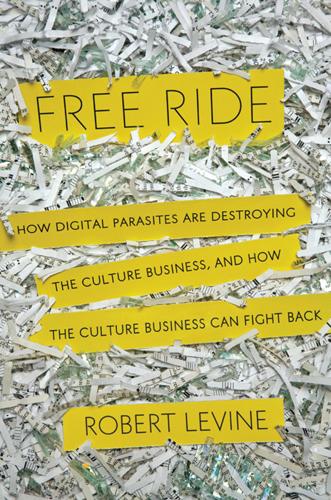
Free Ride
by
Robert Levine
Published 25 Oct 2011
For most of the 1980s and 1990s, the network dominated television with iconic hits that shaped the culture of the time: Miami Vice, The Cosby Show, Cheers, Seinfeld, Friends, and more. It had The Today Show in the morning, The Tonight Show in the evening, an unbeatable lineup of sitcoms for Thursday night, and Saturday Night Live every weekend. For some of that time it also showed Major League Baseball, NFL football, NBA basketball, and the Olympics. The network earned its ratings by pushing the boundaries of television: Miami Vice brought MTV visuals to the police drama, Hill Street Blues incorporated gritty realism, and Seinfeld brought self-awareness to sitcoms at a time when most half-hour shows still ended with a hug.
…
These shows made NBC one of the most profitable divisions of General Electric,1 to which the network returned $800 million in profit in 2003.2 In 2010—just seven years later—the network expected to lose more than $100 million.3 When Comcast agreed to acquire 51 percent of NBC Universal, it was mostly interested in the company’s cable channels—Bravo, Syfy, and others.4 The proposed deal assigned the broadcast network an on-paper value of zero.5 As NBC has faltered, other companies that rely on its programming have thrived. In early 2006, more than five million people watched the famous “Lazy Sunday” Saturday Night Live sketch on YouTube, which was bought for $1.65 billion by Google later that year.6 Heroes, one of the network’s recent hits, became one of the most popular shows on file-sharing services.7 And telecom companies built empires selling bandwidth that lets consumers download or stream pirated television shows without commercials.
…
YouTube is now considered a respectable business, the go-to Web site for viral videos, independent art, and even presidential speeches. But the site became famous—and attracted enough viewers to be sold to Google for $1.65 billion in November 2006—partly for hosting copyrighted clips like music videos and the famous “Lazy Sunday” skit from Saturday Night Live. Although YouTube’s motto is “Broadcast Yourself,” the site used to show plenty of content to which it didn’t have rights. And the company has been sued for copyright infringement by Viacom, as well as by several other companies. “I don’t think anyone anticipated something like YouTube,” says Verizon’s Sarah Deutsch, whose company obviously also benefited from the law.
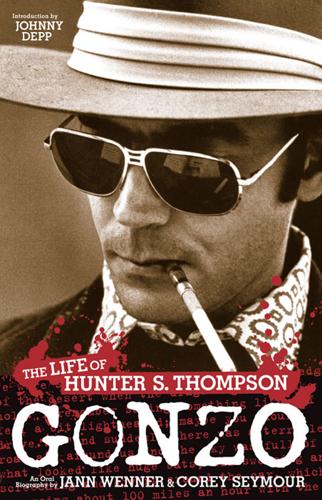
Gonzo: The Life of Hunter S. Thompson
by
Corey Seymour
,
Johnny Depp
and
Jann S. Wenner
Published 31 Oct 2007
He was always a nutcase in a way, but he kept surviving these outlandish events and ingestions and going on to produce terrific work. It was wonderful to witness this, but it wasn’t conversation like the old days. It was a monologue. Nobody could match those stories, or the personality behind them. LAILA NABULSI was a production assistant on Saturday Night Live in 1976. John Belushi was my best friend. One night just before the show I went into John’s dressing room—it was just a little room with a couch—and someone was lying there. I could see the shorts and the long legs and the sneakers. It could have been the pot dealer. You never knew who was going to be around.
…
CHAPTER EIGHT Wreckage in the Fast Lane Hunter was working on Songs of the Doomed and got in a fight with his editor over some insanely minor point. He went ballistic in the middle of the night and destroyed a typewriter—just beat it to death with a phone. There was metal Selectric shrapnel flying all over the kitchen. LAILA NABULSI Every year at Saturday Night Live they had a Seder. Being Palestinian, I never went. But one year Paul Schaffer made me go, and Bill Murray came running up to me and said, “Oh, my God—you’re alive! I talked to Hunter last night, and he said he heard you were dead. He’s staying at the Coconut Grove Hotel in Miami.” I started laughing and said, “Well, thanks.
…
MITCH GLAZER was a twenty-two-year-old writer for Crawdaddy when he met Hunter through John Belushi. Hunter’s presence is so strong that it fucks actors up. When they do him, an interesting thing happens. I was around Billy a lot right after he did Where the Buffalo Roam. I’d see him do sketches on Saturday Night Live and not be able to shake Hunter. People were coming and talking to him about it. And then when we did Scrooged, years later, there were still scenes where I’d see Billy doing Hunter. The difference between Murray and Belushi or Hunter is that Billy would take no for an answer. They wouldn’t.
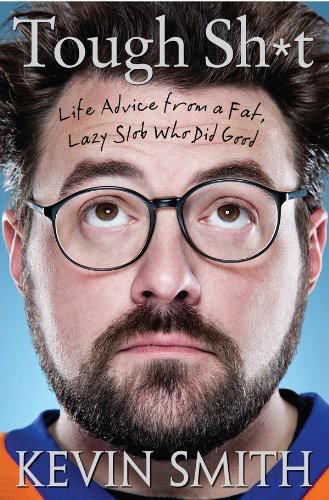
Tough Sh*t: Life Advice From a Fat, Lazy Slob Who Did Good
by
Kevin Smith
Published 20 Mar 2012
One sounds like it should be banned in a few countries, the other sounds like you could take your grandma to see it. I’d argue that we didn’t need primetime spots, anyway, because the hard-core subject matter meant the mallrats couldn’t even buy tickets to something else and sneak into our flick. One night, while watching Saturday Night Live, the spot that ran wasn’t even for Zack and Miri Make a Porno. It was straight-up Zack and Miri. Friends who marketed for competing studios would send me e-mails warning against the almost weekly changes in the selling approach. They said it was clear we were searching for a story, but if we didn’t pick one, we couldn’t educate the public about the concept.
…
So even though we were a church-every-Sunday Catholic family of five, here was my father suborning subversion. And with good reason: As I spun Class Clown for the first time, I was transfixed. This man Carlin spoke the truth, but more important, he was hysterical while doing so—a funny prophet. FM & AM and Class Clown became as memorized and shared in my world as any Monty Python routine or Saturday Night Live sketch. And in the Catholic school world of Our Lady of Perpetual Help, being able to quote a Carlin bit was pure pop-culture currency. In 1982, HBO aired the Carlin at Carnegie stand-up special. A commercial for the premiere featured a clip of Carlin talking about the clichéd warning to criminals, “Don’t try anything funny …” “When they’re not looking,” he added mischievously, “I like to go …” BOOM!
…
I was staying at the Bel Age Hotel off Sunset. My Friday was devoted to rehearsing with Rock, interviewing with USA Today, and maybe seeing my ex-girlfriend for dinner. Rock came over around noon, and we ran through the entire script together for two hours, stopping only to have getting-to-know-you chitchat about pussy and Saturday Night Live. I said I was hoping to have dinner with my ex-girlfriend, which Rock insisted was a bad idea. She’d moved on, he guessed; better to instead just get laid in L.A. by anybody but my ex—that way, I’d get on with my life. We all know Chris Rock’s hysterical, but few realize he’s also pretty insightful when it comes to relationships.
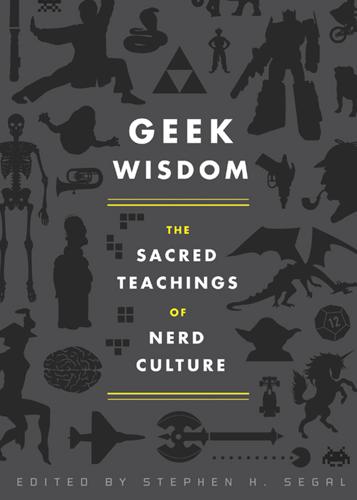
Geek Wisdom
by
Stephen H. Segal
Published 2 Aug 2011
But perhaps you should consider how, whether children in sweatshops or migrants working under substandard conditions, the lifestyle of comfort that we likely take for granted has been built on a foundation of systemic dehumanization. It’s made out of people. The climactic revelation of Soylent Green might be considered a spoiler, but it was seared indelibly into the public consciousness by a hilarious parody from Phil Hartman on Saturday Night Live in the late 1980s. “IDEAS ARE BULLETPROOF.” —V, V FOR VENDETTA IF THERE’S ONE THING Alan Moore is good at, it’s anarchist characters who get to the heart of the matter. (And then perish.) In V for Vendetta both the principled cause and the willingness to die for it are necessary to effect change in a totalitarian regime.
…
(Hint: +1 for anyone not dancing the Macarena.) Don’t be any more alienated than you really need to be. Only in the tech world can you call someone a “user” and not mean it as a put-down. “I LOVED IT. IT WAS MUCH BETTER THAN CATS. I’M GOING TO SEE IT AGAIN AND AGAIN.” —HYPNOTIZED THEATERGOERS, SATURDAY NIGHT LIVE FOR THOSE OF US whose interests lie outside the mainstream—and if you’re reading this book, yours almost certainly do—most of the people who consume a steady diet of American mass-media culture might as well be hypnotized, droning on and on about how much they like the latest bit of predictable blandness that passes for entertainment in the twenty-first century.

Sarah Millican--The Queen of Comedy
by
Tina Campanella
Published 14 Apr 2017
Notorious comedy drinkers have included dark poet Bill Hicks, who was described as a ‘hard-drinking, chain-smoking ball of angry energy’, and Animal House bad boy John Belushi, whose manic comic presence many agree was mainly fuelled by his propensity for alcohol. In 2006 it was widely reported that Robin Williams checked himself into rehab to deal with his addiction to alcohol, which had become all-consuming for the comedian and actor. American Saturday Night Live cast member Tracy Morgan’s struggles with alcohol have also been well documented. He was reportedly arrested for drink driving in both California and New York and even had to wear a SCRAM – a Secure Continuous Remote Alcohol Monitoring – device for nearly 150 days to try and save him from the perils of over-boozing.
…
She decided to call herself The Sea Monster, to preempt the inevitable abuse about her weight, but still faced, during her early appearances on the alternative comedy circuit, having a pint of beer thrown at her, having her face slapped and being pelted with food. Despite that, she persevered and by the late 1980s, had a regular slot on Channel 4’s Saturday Night Live, which had been started a few years earlier as a springboard on to TV for alternative comedians. She then went on to have her own show, Through The Cakehole, and thereafter made regular appearances on panel shows through the 1990s and into the noughties. The fact that Jo, a large woman with a laid-back laconic style, could survive in the quick-fire world of male-dominated comedy, proved a spur for many woman who looked at her and said to themselves, ‘If she can do it, maybe I can too’.
…
In 1970s America, during the country’s last bad recession, comedians were king. The stand-ups of the time, like Robin Williams, Richard Pryor and Bill Cosby, were among the first to make the move from the theatre to film and television. Many others began appearing on mainstream TV, on late night shows like The Tonight Show or Saturday Night Live. While these programmes were incredibly popular when they first started, eventually the audience began to tire of seeing the same old formats and increasingly similar jokes. The comedians listed above made millions in the 1970s and 80s. With a handful making so much, soon, everyone was wondering if they could make a fortune as a stand-up.
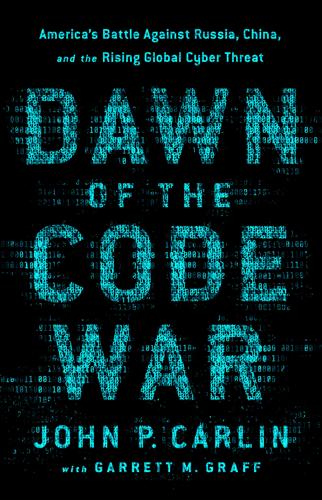
Dawn of the Code War: America's Battle Against Russia, China, and the Rising Global Cyber Threat
by
John P. Carlin
and
Garrett M. Graff
Published 15 Oct 2018
US Department of Justice, Criminal Division, “Final Guilty Plea in Operation Gridlock, First Federal Peer-to-Peer Copyright and Piracy Crackdown,” May 31, 2005, www.justice.gov/archive/criminal/cybercrime/press-releases/2005/tannerPlea.htm. 6. Thomas Flexner James, Washington: The Indispensable Man (Open Road Media, 2017), xvii. 7. “Hello New York: Michael Fusco on Violent Crime in New York,” Saturday Night Live, NBC, www.nbc.com/saturday-night-live/video/leftover-night/n10009?snl=1. 8. John Perry Barlow, “A Declaration of the Independence of Cyberspace,” Electronic Frontier Foundation, n.d., www.eff.org/cyberspace-independence. 9. Steven Levy, Hackers: Heroes of the Computer Revolution (O’Reilly Media, 2010), ix. 10.
…
It’s a principle that leads to peace and economic prosperity and values civil rights and civil liberties. Growing up in New York City, coming of age as I did in the 1980s during an era when crime appeared rampant and maybe intractable—a permanent condition of the country’s largest city—was a big part of what motivated me to become a prosecutor, too. There is a famous Saturday Night Live (SNL) skit from 1991, just after New York City had set another annual record for homicides, teasing the city’s reputation as a “rotting, crime-infested hellhole.” Kevin Nealon played a radio host interviewing a city official, played by Joe Mantegna, and they listened to callers’ tales of woe, dismissing each in turn as the victim’s fault.
…
Patrick, 189 Royal Bank of Scotland attack of 2008, 158 RSA, 194 Ruby, Rich, 258, 261 Ruemmler, Kathy, 241n Russia, 391; cyber activities, 51–53, 55–57; cybercrime and, 279; cybercriminals harbored by, 385; deep cover operatives, 282; Democratic National Committee and Clinton, H., campaigns hacked by, 31; Georgia invasion by, 158; intelligence collection by, 51–52; mixed cyber and military attacks, 56; organized crime and, 52, 115–116; retrenchment from democracy to autocracy, 71; Snowden and, 252, 254; 2016 election attack by, 61, 382–389, 398, 401–402; United States expelling diplomats from, 384; Yahoo hack by, 302–305, 382, 383 Russian Academy of Sciences, 105 Russian Business Network (RBN), 115, 135 Russian Ministry of Internal Affairs, 105 Ryan, Gregory, 292 Sadjadpour, Karim, 217 Saedi, Nader, 230 Salgado, Carlos, Jr., “Smak,” 99 SAM database. See System Account Manger database Sandee, Michael, 293, 296, 297 Sands Casino, cyberattack on, 49, 54, 234–239 Saturday Night Live (SNL) (television program), 69–70 Saudi Arabia, 54, 211–216 Saudi Aramco, 219–222, 393 Saulsbury, Brendan, 353, 354, 357 SCADA. See supervisory control and data acquisition Schneier, Bruce, 59 SCIF. See Sensitive Compartmentalized Information Facility Scott, Richard, 256 Scowcroft, Brent, 268 SEA.
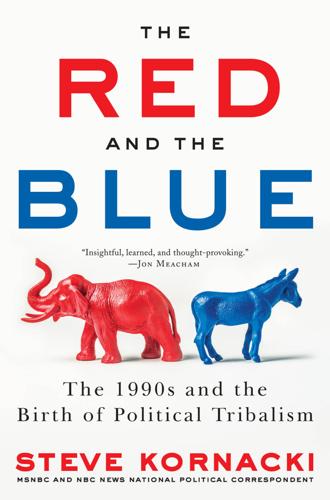
The Red and the Blue: The 1990s and the Birth of Political Tribalism
by
Steve Kornacki
Published 1 Oct 2018
When Mitchell appeared on Meet the Press at the end of March and said he’d like to be president someday, but not in 1992, David Broder called it the unofficial start of the 1996 campaign. Since “the odds now strongly suggest” a Bush win in ’92, Broder argued, the smart play for Democrats was to sit out the cycle and wait for an open seat four years later. Soon enough it was fodder for Saturday Night Live, which aired a send-up of a Democratic presidential debate. Instead of spoofing the actual candidates running, the sketch—titled “The Race to Avoid Being the Guy Who Loses to Bush”—featured all the noncandidates pleading with their party to choose someone, anyone other than them. Mario Cuomo won a third term in 1990 and raised eyebrows by refusing during the campaign to rule out a White House bid.
…
Four commentators from across the spectrum would analyze a series of topics while McLaughlin, seated in the moderator’s chair, listened impatiently, pouncing at any opinion he deemed ill supported. The pace was quick, the arguments intense, and the energy frenetic. McLaughlin was the star, but Buchanan was along for the ride, too, a fixture in the rightmost seat. Hundreds of stations began carrying the show, and by the end of the decade Saturday Night Live was parodying it, with Dana Carvey playing McLaughlin and Phil Hartman as Buchanan. Without ever running for office, Buchanan had become one of the best-known conservatives in America. He looked at the Republican presidential race in 1988, but chose not to enter. The field was crowded and he would have had lots of company on the right.
…
Liberals and gay groups had Clinton’s back, and found some surprise allies here and there, including the now eighty-four-year-old Barry Goldwater, who said he had no problem with gay soldiers as long as “they shoot straight.” Christian conservatives, meanwhile, were joining forces with veterans groups. The Southern Baptist Convention, the American Legion, and the Veterans of Foreign Wars pooled their resources to launch a campaign to keep the ban in place. The debate entered popular culture. Saturday Night Live featured a sketch set in the Civil War about a fictitious all-gay unit, “the Gloria Brigade,” a collection of effeminate men who minced around their encampment talking about fashion and design and trading catty insults. Urging Clinton on, a New York Times editorial drew a comparison to the discrimination blacks once faced: “Surely the military chiefs can achieve the same progress toward acceptance of homosexuals if they put their minds to it.”

Operation Chaos: The Vietnam Deserters Who Fought the CIA, the Brainwashers, and Themselves
by
Matthew Sweet
Published 13 Feb 2018
As a satire for the general reader, it was pleasingly zeitgeisty. But sometimes the real world can do better. In February 1975, Lyndon LaRouche made the decision that would seal his reputation as one of America’s canonical crackpots, and allow him to become a gag on The Simpsons and a character on Saturday Night Live. It was time, he concluded, to build his own political party and run for high office. It was time for President LaRouche to save the world from the zombies and the nuclear warmongers. And in Sweden, Cliff Gaddy’s fiancée would do the same. 15 / THE BELIEVERS MY FIRST RESEARCH trip to Stockholm coincided with the final two weeks of Sweden’s 2014 general election campaign.
…
In documents for internal distribution within the cult, he used even less attractive language: “I wouldn’t want Kissinger dead. I’d want him in a pit to come out once a day to be pissed on by the widows and orphans of the world.” LaRouche’s obsessions with Kissinger and Elizabeth II made him a national joke. Saturday Night Live began “Lyndon LaRouche Theatre,” in which Randy Quaid, in a bald wig, bow tie, and spectacles, narrated the latest melodramatic twists and turns of the conspiracy. “Next week in part three,” he hooted, “diabolical Kissinger and miscreant Elizabeth engage KGB agents to assassinate me while continuing to sponsor attacks in the media which attempt to foster one of the most monstrous lies of the twentieth century—that I am insane!”
…
“His heathen sexual inclinations”: Lyndon LaRouche, “Henry Kissinger: The Politics of Faggotry,” International Caucus of Labor Committees press release, August 3, 1982. “I wouldn’t want Kissinger dead”: “Cadre School Question and Answer with Lyndon H. LaRouche Jr.,” Morning Briefing, December 8, 1992, LaRouche Planet, http://laroucheplanet.info/pmwiki/pmwiki.php?n=Library.LoveEnemy1. “Lyndon LaRouche Theatre”: Saturday Night Live, NBC, April 19, 1986. “Kissinger must die”: King, Lyndon LaRouche and the New American Fascism, p. 153. “ultimately was just sublimated”: Ibid. a dartboard bearing an image of Palme’s face: “Sommarnöje med Olof Palme” [Summer entertainment with Olof Palme], Contra 10, no. 4 (1984). “Sweden’s population is led by a madman”: William Engdahl, “Palme—Djävulens djävul” [Palme—the devil’s devil], Ny Solidaritet, June 11, 1975.

Like, Comment, Subscribe: Inside YouTube's Chaotic Rise to World Domination
by
Mark Bergen
Published 5 Sep 2022
They soon learned that joeB belonged to Nike’s marketing department. And that drove home a key lesson: YouTube could be a threat to copyright owners but it could also be a very valuable tool for businesses looking for audiences. At the start of 2006, YouTube had another potential joeB on its hands: “Lazy Sunday.” Saturday Night Live, NBC’s legendary show, was entering its fourth decade and growing stale. In a revival attempt it began airing “digital shorts” from new cast members like Andy Samberg, a floppy-haired comic with a Disney-prince jawline. His troupe’s skit “Lazy Sunday”—two white guys rapping about cupcakes and The Chronicles of Narnia—appeared on YouTube in December and went viral.
…
Hurley sent an email to NBC: If you didn’t put it up, we’d happily take it down. Just let us know. For weeks no one answered, and “Lazy Sunday” continued to rack up views. Then, on February 3, an NBC lawyer finally replied in a stern letter demanding YouTube remove the sketch and all videos tagged “Saturday Night Live” or “SNL.” Kevin Donahue, YouTube’s new vice president, tried to convince NBC of the promotional value of keeping such viral content up. The value to YouTube was clear: that month most web searches bringing people to its site were the two words “lazy Sunday.” Eventually, YouTube did pull the clip, but most visitors the skit drew in stuck around.
…
See also ISIS Israel, 141 J Jackson, Michael, 138 Jezebel, 75 Jho, Harry and advertising on channel, 173 on algorithms of YouTube, 394–95 and animated videos, 241 and “bad baby” as search term, 307 and competing content, 167, 169, 173–74, 239–40 income from channel, 173, 394 and Mother Goose Club, 166–67, 173–74, 239 support from YouTube, 166, 167 Jho, Sona, 166, 167, 239, 307, 394 Jobs, Steve, 56, 146, 176 joeB, 33 Johnson, Ray William, 119–20, 121, 185 Johnston, Kirsty, 1, 358 joke, threat, obvious mantra, 209–10 Jones, Alex, 235–36, 267, 273, 325, 367 Justin.tv, 78 K Kaji, Loann, 237 Kaji, Ryan, 237–38, 240, 306, 395–96 Kaji, Shion, 237–38 Kamangar, Salar and channels model, 127, 128 egalitarianism prioritized by, 164 and free-speech decisions, 143 and Google+, 178 and Google’s acquisition of YouTube, 51 and iPhone app for YouTube, 176 leadership at YouTube, 125–26, 150, 201–2, 211 and linking to videos outside of YouTube, 108 and music service of Google, 177 and Page, 150 and playground equipment at offices, 148 and production studio proposal, 201 and profitability of YouTube, 93–94 retirement of, 203 at VidCon, 139–40 Karim, Jawed background of, 20 and copyright concerns, 25 creation of YouTube, 15, 16–17, 21–22, 26 on current challenges of YouTube, 389 departure of, 26 and Google+ accounts, 179 and Google’s acquisition of YouTube, 55 and motto of YouTube, 22–23 Katz, Scott, 112, 113–14 Kavanaugh, Lance, 144 Kay, Olga, 248–50, 254–55, 256–57 Keane, Patrick, 75, 199 The Key of Awesome, 88 keyword stuffing, 308–9 Khan Academy, 170, 175 kidfluencers, 395 Kidvid rules, 168 Kinder Eggs, 171, 173 King, David, 62–63, 91–92 King, Rodney, 61 The King of Content (Hagey), 61 Kirkbride, Ivana, 134 Kissinger, Henry, 92 Kjellberg, Felix (PewDiePie) Comedy Central show offered to, 274 earnings of, 8–9, 220–21, 279 and edgelords, 276 frustration with YouTube, 273–74 and Google’s acquisition of YouTube, 161 and Maker Studios, 219, 274 and origins of PewDiePie, 123 and “Pew News,” 352 relationship with YouTube restored, 8, 371–73 response to scandal, 278, 279–80 on Time’s list of influential people, 274 See also PewDiePie Klein, Erik, 19, 25, 59 Klein, Ethan, 305–6 Klein, Hila, 305 Koli, Prajakta, 369 Krasinski, John, 377 Kravitz, Noah (kravvykrav), 78–79 Kreiz, Ynon, 186 Kyncl, Robert background of, 128–29 as chief business officer, 242 at Creator Summit, 289 and culture of YouTube, 150 on economic impact of YouTube, 391 and grants funding hi-def content, 132–35 and indecision of leadership, 152 leadership style of, 130 media partnerships pursued by, 130–31 on music service, 241–42 and Netflix’s original series, 253 and Next New Networks, 130 and objectives and key results, 151 and PewDiePie scandal, 281 praised by stars of YouTube, 392 and Robbin’s network, 132 Russian goodwill tour (2013), 341 on Wojcicki, 244 and Zappin, 185 L Laatsch, Brandon, 115–16 Larian, Isaac, 240 Las Vegas mass shooting (2017), 310, 326 The Late Show with Stephen Colbert, 97–98, 220 laundry detergent pods, consumption of, 7 “Lazy Sunday” (Saturday Night Live), 33–34, 40, 44, 67 leadership at YouTube and CEO title, 211 Chen’s departure, 90 concerns about stasis, 149, 151 and content for children, 174–75 and costume tradition, 244 goal setting of, 152–53 lack of minorities in, 355 and stars of YouTube, 392 Wojcicki’s ascension, 202, 210–11 work hard, play hard culture of, 150–51 See also Chen, Steve; Hurley, Chad; and other specific individuals, including Wojcicki, Susan “Leanback” feature, 189–90 “Let’s Play” genre, 161–62.
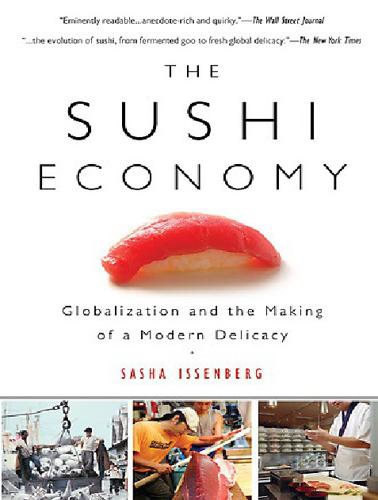
The Sushi Economy: Globalization and the Making of a Modern Delicacy
by
Sasha Issenberg
Published 1 Jan 2007
Second-wave restaurants catered to upscale white diners, American tastemakers who might not have traveled to Japan but made sushi’s acquaintance though mass media fascinated by the culinary curiosity, such as a 1977 Esquire article headlined “Wake Up, Little Su-ushi, Wake Up!” By the following year, sushi had become so ingrained in Southern California life—and so familiar around the rest of the country as one of that region’s typically fey indulgences—that it appeared as a referent in a Saturday Night Live bit. An episode starring New York City Mayor Ed Koch and the Rolling Stones featured a short film called “Shiller’s Reel: Sushi by the Pool,” with Hal Holbrook and Carrie Fisher. The setting was a trendy home in the hills, with a tableau of poolside Bacchanalia: bikinis, backgammon, butler, plate of sushi.
…
“actor Richard Dreyfuss”: “Richard 97 Dreyfuss: Persona Grata,” by Fiona Lewis, Los Angeles Times, May 22, 1977. “1977 Esquire article”: “Wake Up, Little Suu-shi, Wake Up!” Esquire, April 1977. (“Okay, 98 that’s a silly title, but we had to get your attention,” the magazine conceded in the article’s first sentence.) “ a Saturday Night Live bit”: The episode 98 aired on October 7, 1978. “inclusion of tuna sashimi”: Piesman. 98 “restaurant critic Lois Dwan”: “Chef Nozawa 101 —A Ten,” by Lois Dwan, Los Angeles Times, June 20, 1982. “a group of Ovitz’s former employees”: 101 Nation’s Restaurant News, September 11, 2000. 102 “Entertainment Tonight”: The segment aired on September 4, 2006.
…
Levenstein, Harvey Lévi-Strauss, Claude Le, Vu Lexus and the Olive, The (Friedman) Libya licenses, auction “lick the plate” (namero) Lindbergh, Charles and Anne Little Tokyo logistical problems of shipping tuna loins of tuna lomo saltado long-distance boats long-liners (Japanese) long-lining “looking at the taste,” Los Angeles, California Nobu-style cuisine sushi and Los Feliz low-temperature freezing Lukin, Dean Lukin, Dinko lunch culture MacAlpine, Wayne MacArthur, Douglas mackerel mad cow disease Madrid, Spain Maguro Freezers maguro (tuna) maki, 68makimono Malaysia market-negotiating culture market value of fish Marks, Norm Marunaka auction house Mashita, Ichiro “massacre” (mattanza) materially backward institution Tsukiji Market material sophistication, sushi Matsuhisa, Nobu See also Nobu-style cuisine Matsui, Haruo Tsukiji Market Matsui, Hiroshi Matsui, Namiko mattanza (“massacre”) McDonald’s, “meat burn,” meat supply (daily), Japanese cuisine meat, testing “Me Decade,” Mediterranean Meiji (Emperor of Japan) menus and food costs, 152 Meski, Driss Michite, Katsu middle class in China “middleman’s psychology,” mirugai miso-tamari Miyagi prefecture Miyamori, Seiji Monroe, Marilyn Moon, Sun Myung Morimoto, Masaharu Morisada Manko (Kitagawa) Morishita, Roy Motohashi, Yasumasa Nagasaki University Nakane, Tadayaki naka-oroshi (intermediate wholesaler) Nakauchi, Isao Nakazaki, Tatsuke namero (“lick the plate”) Narita Airport (Japan) National Oceanic and Atmospheric Administration (NOAA) natural resource, sushi newcomers to market “New York–style sushi,” Nicholas, Betty A., nigiri-hayatsuke Nihon Freezer Nishimura, Shoichi Nixon, Richard NOAA (National Oceanic and Atmospheric Administration) Nobu restaurants Nobu-style cuisine North Carolina fish, “north of the orient” journey Lindbergh Notar, Richie Nozawa, Kazunori ocean perch Ohnuki-Tierney, Emiko Okai, Yoshi Okazaki, Akira Okazaki, Kaheita Okubo, Yoshio omakase Onchi, Tetsuro onigiri (rice balls) Onodera, Morihiro Ono, Tadashi ooba opening ceremonies, Nobu restaurants Osaka Expo (1970) oshibori (little damp towels) “outsourcing,” overfishing Pacific flight of tuna Paloma Reefer (ship) incident Pearl Harbor “perfect cultivation,” Perry, Mathew Peru pet food and Boston bluefin “phantom fish” (kue) Phillips, Julia Phillips, Saul “pickle trade” (takuwan boeki) Pina, Lucas piracy Plaza Accord (1985) Pleasures of Japanese Cooking, The (Tanaka) pollock ponzu Port Lincoln, Australia See also ranching tun preparing fresh tuna by auction houses prep work by sushi chefs Presland, Shaun pressing prices black market seafood commerce bluefin tuna Boston bluefin leveler of taste ranched tuna restaurant’s identity and prices (continued) short-term losses to strengthen long-term Prince Edward Island, Canada private-treaty exchange processors produce, dishes based on producers, regulating production and technology production costs, China profit margins for tuna profit-sharing system protein in Japanese cuisine Puglisi, Joe purse-seine pushing items to control inventory Qaddafi, Moammar “quick sushi” (haya-zushi) Qui, Paul quotas (catch) black market ranching tuna ranching tuna black market business Tsukiji Market raw vs. cooked fish Raymond, Billy red tide (algal blooms) refrigerated containers (“refcons”) regulation of producers Reichl, Ruth restaurants, fast-food sushi return-pricing, rice balls (onigiri) rice, fast-food sushi rice sandwiches risks of ranching tuna seasonal economy Road to a Higher Value Added Tuna Industry, The (Jeffriess) Robbins, Floyd Robuchon, Joël Rockwell David Rome Monte ronin (“wave man”) rubber boots, Tsukiji Market 16 Russo-Japanese War Safina, Carl Saio, Masa Sampson, Anthony Samuelsson, Marcus samurai swordmakers as knife producers Sanfilippo, Angela Santic, Tony Sarin, Sam Sato, Humberto sawagani seafood trading houses (suisan “seafood business,” “the seven sisters”) seasonal economy, risks of sea urchin (uni) second-day tuna second-wave sushi restaurants “seeing a tuna,” Sendai, China Sendai Market servers “seven sisters” (seafood trading houses) Sheraton, Mimi Sherman, Gene Shibata, Yoko “Shiller’s Reel: Sushi by the Pool” (Saturday Night Live), Shintoism Shiogama auction house shipping containers Shiraishi, Yoshiaki Shizuoka University Showa Dynasty simultaneous bids Slow Food movement Smith, Charles W. sociability and sushi chefs sopa criolla Soviet Union soy sauce SPAM Spanish bluefin tuna “special economic zones,” spicy-tuna roll sportsfishing and bluefin status object, legally ranched tuna as status system of Japanese sushi culture Stehr, Hagen Stehr, Marcus Steingarten, Jeffrey stock exchange, ranching tuna Stoddart, Alex “strategic tuna reserve,” Japan street snack, sushi as street stalls suburban sushi bars suisan (seafood trading houses) superfreezer surf clam sushi bars fast food, sushi as hierarchical division of labor revenue from slang workspace sushi chefs apprenticeship buying fish by career paths of Caucasian China female gratuities, pooling head sushi chef inventory control Los Angeles, California manual dexterity of mechanics/musicians mystique of prep work by role of rules for sociability and technique Texas sushi shokunin sushi economy birth of modern sushi black market seafood commerce Boston bluefin boom and bust China fast food, sushi as Los Angeles, California Narita Airport Nobu-style cuisine ranching tuna Texas sushi shokunin See also sushi chefs; Tsukiji Market (Tokyo) sushi salads sushi vernacular Sydney, Australia Sydney Fish Market tail of tuna Takayama, Masa takeout sushi takuwan boeki (“pickle trade”) Tanaka, Heihachi technology advancement Teper, Meir Terauchi, Jay Texas sushi shokunin Thai Airways “Things Yuppies Eat for Lunch,” Three Bar tiraditos Tohto Suisan (Tohsui) auction house Tokugawa leyasu “Tokyo’s Pantry,” See also Tsukiji Market (Tokyo) Tony’s Tuna toro (fatty, pink belly meat) tossing a tuna (“flying fish”) Townsend, Denny trade imbalance, U.S. and Japan traders, Tsukiji Market “traditional” vs. new sushi transportation revolutions Trillin, Calvin trust relationship between seller and buyer tsuke Tsukiji Market (Tokyo) auctioneers auction licenses auctions bidding at Boston bluefin Gloucester fishermen and preparing fresh tuna ranched tuna records at sales (dollars) at Sendai Market vs. short-term losses to strengthen long-term simultaneous bids stalls at Umai Sushikan in value assessment weather impact See also sushi economy tsuma tsunami (December 2004) Tudela, Sergi tuna See also sushi economy tuna barons tuna cowboys tunafish vs. tuna Tunarama Festival Tuna-Ranching Intelligence Unit reports tuna usage, calculating Tunisia Turkey “turnover sushi” (kaiten-zushi) twentieth century (late) invention of sushi Two Bar two-stock theory of Atlantic bluefin Ueno, Takamasa Umai Sushikan Unification Church uni (sea urchin) United States devaluing of dollar Strategic Petroleum Reserve sushi future trade imbalance with Japan See also Los Angeles California Usami, Satoshi Ushizima, Kinya (“potato king”) usuzukuri Uwate, Matao value-added products, Japan value added to fish value assessment Vancouver, Canada Vongerichten, Jean-Georges Wade, Michael “Wake Up, Little Su-u-shi, Wake Up!”
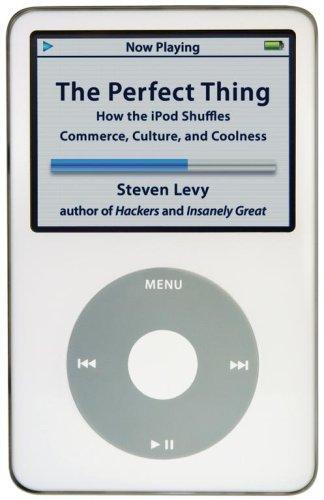
The Perfect Thing: How the iPod Shuffles Commerce, Culture, and Coolness
by
Steven Levy
Published 23 Oct 2006
This is the tinier iPod introduced at the Macworld Conference & Expo in January 2004, just as the iPod itself was really taking off in the marketplace. The mini's defining attribute, of course, was its size, 35 percent smaUer than its big brother and almost 50 percent smaller than the original iPod. Steve Jobs has always had an insatiable fetish about The Perfect Thing TOO miniaturization. The Saturday Night Live skit where a Jobs imitator (decked out, natch, in black turtleneck and jeans) introduced in rapid succession a fingernail-sized iPod micro, a confetti-sized iPod pequerio, and a final, literally imperceptible iPod invisa (holding eight million songs and every photo ever taken) was a joke rooted in truth.
…
They priced a fully loaded iPod for a hundred bucks more than a virgin iPod. They printed brochures (with pictures of a bearded, dark-hatted Orthodox Jew adorned with white earbuds) and secured the use of a newsstand a block away from the venue. The units sold briskly and kept selling after the event on the Internet, especially when the ShasPod was spoofed on Saturday Night Live as the "OyPod." "The thing took off," says Shmidman. "It's tremendous access to everyone in the world to study the next Daf Yomi. But the iPod, period, is a draw." But selling copy-protected audiobooks on the iTunes store, as Audible does, or preloading an iPod with Talmudic content is not quite the same as a broadcasting revolution over the Internet.
…
Acknowledgments ABC, 244, 249 Accidental Millionaire, 199 Adobe, 46-47 AirPort, 53, 206 albums (LPs), 135,158-59,170 Alfred Hitchcock Presents, 253 Amazon.com, 147,157,161 AOL,51,78, 137, 194,235 Apple (Beatles' music company), 155-56 Apple Computer: advertising campaigns of, 80-84, 86 Apple 100 meetings at, 221-22 class action suit filed against, 130 code names for products in development at, 62, 206 Digital Hub strategy of, 8, 47, 52, 208-09 headquarters of, 2, 7, 8, 20, 149, 205 interns and outside staff of, 54 iPod's effect on, 2-4, 208 logo of, 75, 83, 84, 204 market capitalization of, 226 music initially ignored by, 47-48 music-related income base of, 2, 225 naming of, 93 personal computer market share of, 2,47, 208 revenue figures for, 204, 207-08, 225 secrecy at, 13, 56, 58, 63,67 on September 11,2001, 12,15,20 stock price of, 4 suppliers' relationship w^ith, 57 "whole widget" made by, 204-05, 220 see also Jobs, Steve Apple He computers, 54, 200 Associated Press, 234 AT&T, 115 Atkinson, Bill, 55 Atlanta Journal-Constitution, 37 Audible, 229-30, 231 audiobooks, 229-30 Audion, 48, 50-52 AutofiU, 180,183-84 "Automatic Record Reviews" (Whitman and Ellis,), 195 273 Backstage Creations, 27 Baker, Gary, 174-75 Ballmer, Steve, 225 Barrett, Craig, 225 Barry, Hank, 143 Baxter, Jeff "Skunk," 170 BBC, 27, 86, 92 Beatles, 14, 98,155-56, 158,167, 174,192,202 Benedict XVI, Pope, 32, 247 Berners-Lee, Tim, 136 Best Buy, 194,216 Bezos, Jeff, 161 Birrell, Andrew, 43-44, 74 Blair, Kathryn, 30 Blair, Tony, 30 blogs, 25, 35, 91, 93,120,174, 245 "alpha bloggers" and, 240 favorite tunes listed on, 26 first, 236 growth of, 237 about iPods, 3, 237-38 Blood on the Tracks, 213 Bloom, Allan, 123 Bloomberg, Michael, 28 Blues Project, 25 BMG, 145,148,149,154 Bonjour (Rendezvous), 34 Bono, 92,106,166-67 boomboxes, 113 Bose, 220 Breyer, Stephen, 164 Brooklyn Rail, 21-22 Brown, Aaron, 26 Brubeck, Dave, 14 buddy lists, 34 Bull, Michael, 90, 123,126-27, 131-32 Bumiller, Elisabeth, 28 Bush, George W, 18, 28-31 camcorders, 46,47, 52 Cameron, David, 26-27 Campbell, Sharon, 6 Carmichael, Katy, 132 Carter, Vince, 33 Casady & Greene, 50 Cash, Johnny, 167 cassette tapes, 114 see also Walkman Catholic News Service, 32 CBS, 219, 253 Chambers, Iain, 121-22 Cheney, Dick, 31, 87 Cheney, Liz and Mary, 31 Chiat/Day, 69, 84 Chicago International Gem and Jewelry Show, 126 Chow.Rey, 122-23,124 Christianity Today, 123 Citizen, 169 citizens band (CB) radio, 227-29, 232,254 classical music, 32,87,119 Clear Channel, 191 click wheels, 97, 220, 248 Closing of the American Mind, The (Bloom), 123 Clow, Lee, 81-82 CoacheUa rock festival, 160 Comdex show, 45 compact discs (CDs), 48,125,138, 140-41,146,149,153, 158-59, 163,165,170-71 Company 3, 84 Compaq, 11,44-45, 74, 215, 234 Conflict Catcher, 49-50 Consumer Electronics Association, 163 Consumer Electronics Shows, 46, 214,228 Cooder,Ry, 187 cool, 3, 64, 75-106,175,216, 220, 241 advertising and, 80-84, 86-87 Index design and, 89-90,95-101, 104-06 desirability of iPod ownership and, 87-88 ease of access as threat to, 24 iPod's market share in, 75 market share and, 76-77 mass production of, 77-79 minority vs. mass, 88-89 movie placement and, 86 music videos and, 85-86 packaging and, 99-100 Personal Jukebox and, 44 television placement and, 84-85 Copland project, 48,49 copy protection, 71 copyright, see digital rights management Coxhill, Lol, 192 Coyne, Wayne, 108-09 Creative, 84, 212, 213 Creedence Clearwater Revival, 26, 188, 192 crime, 132-34 Crowley, Michael, 23-24 Crutchfield, Trace, 21-23 Cue,Eddy 153-54,160 Curry Adam, 234-40, 243 "Daily Source Code," 239 "D" (All Things Digital) Conference, 241 Deal, Tim, 13 Deep Blue Supercomputer, 187-88 Dell, Michael, 197, 225-26 Dell Computer, 197, 212, 214, 226 Dell DJ, 214 Denby, David, 159 Deutschman, Alan, 199-200 Diamond Multimedia, 137 Diamond Rio, 48-50 Diffusion Group, 87, 89-90, 242 Digital Equipment Corporation (DEC), 43-44, 64, 74, 234 digital jukebox, 137 digital music players, see iPod; MP3 players digital revolution, 19 digital rights management (DRM), 7,146,152-54,163-64,212 Discovery, 247 Disney 94, 249-50 Doing Cultural Studies (du Gay etal.), 113 dot-com bust, 207 Downbeat, 25 "Down by the River," 57 downloading, 135-68 illegal, see file-sharing record companies' ventures for, 145-46 see also iTunes; iTunes Music Store "DTN Week in Review," 244 Duke University, 245 DVD disks, 8, 163 Dylan, Bob, 14,25, 26, 82, 124,175, 186,189,212-13 dynamic RAM memory, 60 Edwards, John and Elizabeth, 244 Eisner, Michael, 249 Electronic Frontier Foundation (EFF), 163 Elizabeth, Queen of England, 31, 92 Ellis, Daniel P W, 195 Ellis-Bextor, Sophie, 71 EMI, 145, 148,149, 154,161 Emotional Design (Norman), 90 "End of the World as We Know It, The," 30 Erlangen, University of, 136 ESPN, 244 European Cool Hunt, 75 Index Fadell, Anthony Michael, 35 background of, 54-56 iPod development role of, 54-55, 58-63, 66-67, 70 FairPlay, 153,157,212 Fanning, Shawn, 142-44 Federal Communications Commission (FCC), 232 file-sharing, 33,135 MP3.com and, 140-42 Napster and, 17, 48,142-44,145, 146,147 post-Napster systems for, 144,163 record companies' lawsuits brought over, 137,140-44,154, 163-64,165 see also downloading File Transfer Protocol (FTP), 233 Filez, 138-39 Fiorina, Carly, 214-16 FireWire (iLink), 10,15,46, 58,61, 66,72,100,210,211 flash memory, 59-60,176,222-23, 224 Forrester Research, 242 Fortune, 51,152 45-rpm "singles," 158 Fox Network, 85,219 Fox News, 30 Frankel, Justin, 137,139 Fraunhofer Gesellschaft, 136 Freakonomics (Levitt), 183 Freenet, 144 Frog Design, 99 Gibson, William, 122 Gillespie, Mark, 133 Gillmor, Steve, 241 Glaser, Rob, 162 Global Cool Hunt Report, 104 Goffman, Erving, 36 "goodie bags," 27,115 Google,3,171,187,241,253 Gordon, Devin, 27 Gottesman, Blake, 28-29 Grammy Awards, 144 Grateful Dead, 39,109,133,237 Grokster, 144,163-64 Grundig, 112 HanGo, 45-46 Hanna-Barbera, 198 Hansen, Brian, 185-86 hard disk drives, 176 iniPodmini, 101 in original iPod, 56-57, 59,61,64, 65,72-73 in Personal Jukebox, 43-44 Hartstein, Jennifer, 37 Harwell, Steve, 11 "headphone culture," 120 hearing loss, 129-30 Hear Music, 25 Heller, Dave, 51 Hendrix, Jimi, 14, 25 Hertzfeld, Andy, 55,202 Hewlett-Packard (HP), 44,126, 214-16 hip-hop,85-86,87,103,151 House Ear Clinic, 129 iCon, 200 ICQ, 77-78 identity, 21-41 celebrities and politicians as iPod owners, 26-34 playlists and, 21-27, 34-41 Iger, Robert, 249-50 iLink, see Fire Wire iMac computers, 45, 46,48, 92, 95-96, 98, 197-99, 206 iMovie,47,51,52,219 "impression management," 36-37, 40 Ingram, Luther, 144 Innumeracy (Pzulos), 183 instant messaging, 77-78, 147 Intel, 151,163,225 International Organization for Standardization, 137 Internet, 19, 23, 26, 78,164, 191, 206-07, 228-29 acquiring music over, see downloading; file-sharing; iTunes Music Store "backbone" of, 233 as broadcast medium, see podcasting connecting to, 53,140, 207-08, 235 as democratizing agent, 240, 246 streaming music on, 138,150,234 Internet Engineering Task Force, 232 Interscope Records, 85-86, 150 Inventec, 63 lovine, Jimmy, 150-51 iPhoto, 52 iPod: advertising campaigns for, 83-84, 86 battery life and, 3, 65, 75, 105, 217-20,248 copy protection and, 71 desirability of, 1,5-6, 11, 220 development of, 4, 53-74, 199 display screen for, 8 "Don't steal music" admonition on wrapping of, 71 ease of use of, 11,17,23,61,64, 72,73,210 erotic aspects of, 35, 39, 90-91 fifth generation, 85, 223-24, 246, 247,248,251 fourth generation, 97,98,176, 220, 245, 248 as give-aways, 5-6,27 how it will be remembered, 255 iconic status of, 1-3, 75-76, 86, 208 launch event for, 7-11,15 Macintosh exclusivity of, 17, 147, 149-50, 153 market share of, 3 media coverage of, 2, 4-5, 86, 220 movie placement and, 86 music sources incompatible with, 212-13 naming of, 68-69 no on-ofTsvdtch for, 1, 7, 69-70, 100 online music source for, see iTunes Music Store original, 7-11, 247 owners' relationships with, 3,18, 87-88,90-91,97,126,132 packaging of, 99-100 as "perfect," 7,61, 255 personaUzation of, 91, 105,126, 220-21 predecessors to, 43-50 pricesof,3,5,6,10, 102-03, 175-76,222,223,248 process and speed of loading songs onto, 10, 11, 14, 17,38, 72,156-57 replacement of, 217, 219 Index sales figures for, 3, 211, 221, 224-25 as satellite of iTunes software application, 38, 56, 61, 64, 66 scratches and, 7, 91 second generation, 247 size of, 1 social effects and criticisms of, 107-10, 125-34 as spare hard drive, 10 spoken word applications for, 229-31 storage capacity of, 9,27, 43, 102-03, 248 subway "iPod wars," 21-23,24 television placement and, 84-85 third generation, 247-48 as three-pronged system, 220, 253 timeline for, xv types of music favored by users of, 87 volume limit setting on, 130 ways to sequence music on, 17-18,27 weight of, 1,248 white color of, 1,98-99, 215 white earbuds for, 17, 22, 23,75, 107,129 Windows compatibility and, 150, 209-11,220,247 see also click wheels; iPod mini; iPod nano; iPod shuffle; screens; scroll wheels; shuffle "iPod Economy," 221 iPod mini, 27, 98,125,220 colorsof, 101-02,104,105 popularity of, 103-04,125, 222 priceof,6,102-03,175 Queen Elizabeth and, 31 size of, 100-101 storage capacity of, 102-03,105, 175,223 U2 model, 105-06,166 upgrade of, 105 wearability of, 102 iPod nano, 6, 27, 125, 224 description of, 222-23, 247 diamond-encrusted case for, 126 Pope Benedict XVI and, 32, 247 price of, 5, 222, 223 size of, 5 storage capacity of, 5, 222, 223 "iPod Nation," "iPod Generation," 2, 4, 88,196 iPod photo, 166 iPod's Dirty Secret, The, 218-19 iPod shuffle (model name), 6, 30, 175-80 "iPod socks," 126 "iPod Theology," 6 "i" prefix, 207 iRiver,84,212 iSkin, 91 isolated musical environments, 110-12,116-34 iTunes, 14,17, 56, 172, 220, 248 iPod development role of, 47, 63-64,67 iPods as satellite of, 38, 56,61,64, 66 loading songs onto, 146-47 playlist sharing and, 34-41 podcasting and, 241-42 randomness and, 169-96 Soundjam remade into, 51-52 iTunes Music Store, 26, 220, 237 Beatles' Apple music company and, 155-56 as component of iTunes, 156 cost per song bought through, 3, 162 digital rights management and, 7, 146,152-54 initial Macintosh exclusivity of, 147,149-50,157, 208-09 Index 278 launching of, 155 market share of legal music downloads of, 3, 161,212 MP3 players incompatible with, 212-13 number of songs available through,155 number of songs sold through, 3, 135-36, 156 podcasting and, 241-42 record companies brought into, 3-4, 147-55 three-song packages available through,160 video distribution on, 248-53 "iTunes U," 245 Ive, Jonathan "Jony," 64, 91-93, 95-102,106,215,223 "Jack," 190 Jackson, Vincent, 121 Jagger, Mick, 155 Japan, 46, 65, 79,118 Jobs, Steve: advertising campaigns and, 80-82 author's interviews with, 15, 46-47,80-81,93-96,135, 161-62,164-65, 167-68, 172, 175-77,202,203-09,212-13, 249-52 biographies of, 199-200 cancer bout of, 91, 166, 178-79 corporate strategy of, 204-09 customary clothing worn by, 8, 101 design vision of, 93-94 four major accomplishments of, 200 Gates compared with, 16 iMac computer and, 157-99 iPod development as described by, 46-47 iPod development role of, 54, 59-61,67-72,199 iPod shuffle and, 175-77, 186 iPod's launch event and, 7-11 iTunes development role of, 3-4, 147-55 Madonna and, 28 miniaturization as fetish of, 100-101,103,222-23 ousted from Apple, 53, 197 at PARC, 35 personality and leadership style of, 7-8, 53, 70, 199-203 "Reality Distortion Field" around, 200-201 record companies as viewed by, 161-62 return to Apple of, 7, 53, 81, 94-95,197,203 Rose murder and, 134 Rubinstein and, 53 secrecy and, 13, 57 "What do you do here" asked of, 74 Joswiak, Greg "Joz," 53, 61, 180, 187, 208, 242, 254 Juke Box, 105 Jupiter Research, 104 Kapgar, 174,184 Kasparov, Garry, 187-88, 196 Kazaa, 144, 152 Kincaid, Bill, 48-51 Kocher, Paul, 182-83, 185 Kolcraft, 220 Lebrecht, Norman, 124 Lee, Ben, 26 Lennon, John, 83, 159 Levitt, Steven D., 183 Lexus, 79 Li, David, 34 "Listening In" (Voida), 37 Index Lonetti, Josie, 90 Longer ia, Valerio, 180 Long Tail effect, 142 low-power sleep states, 69 LPs, see albums MacAmp, 48 McCartney, Paul, 22,155, 159 Macintosh computers, 2, 4, 8,15, 35, 53, 54, 55, 63,68,69 capacity of original hard drive of, 57 first MP3 applications for, 48-51 handheld devices and, 66 iMac, 45,46,48 iPod and iTunes' initial exclusivity for, 17,149-50,153,157, 208-09 iPod copy protection and, 71 "1984" ad for, 81,92-93, 94,147, 199,200,201,202,205,225 market share of, 2,47 music-making software for, 172 Power Mac, 48 McKinnon, Mark, 29 Mac mini computers, 238 Macworld Conferences, 50,52,100, 172,202,241 Malamud, Carl, 232-34, 235 Maradona, Diego, 188 Marcuse, Herbert, 122 Mayer, John, 159-60 Medium, 85 Melin, Jan, 185 "Menace II Society" (Jackson), 121 Mendoza Line, 187 Mercer, Paul, 66 MOM, 144,163-64 Michigan, University of, 245 Microsoft, 15-16, 74, 76, 88,161, 205, 207, 209, 211-12,225, 229, 251 Missouri, University of, 245 "mobile privatization," 110 Moby, 10-11,14,15,119 modems, 235 Modest Mouse, 119 Money, 119-20 Monterey Pop, 14 Moore's Law, 57 Morita, Akio, 113, 117-18, 120,124 "Morning Coffee Notes," 240 Morpheus, 144 Morris, Doug, 149, 150 Mossberg, Walt, 146 "Motivation," 33 Motown Records, 25 Mould, Bob, 24 MP3: first uses for music of, 137,139 infinite copying capability and, 152 origin of term, 136-37 MP3.com, 139-42,148 MP3Man, 49 MP3players, 13,175 iPod as generic name for, 5,208 iPod's competitors, 213-17 iPod's market share of, 3, 211-12, 216 iTunes compatibility and, 212-13 pre-iPod, 43-50, 215, 234 as small computers, 56, 214 see also iPod MTV, 248 Museum of Modern Art (MoMA), 91 music: Apples ignoring of, 47-48 classification and study of, 193-94 ease of Internet access to, 23-24 iPod's effect on distribution and sales of, 2,157-60 iPod's effect on how people listen to, 3,164-65 see also albums; compact discs; Index downloading; file-sharing; playlists; record companies MusicMagic Mixer, 194-95 MusicMatch, 209-10 MusicNet, 145-46 music videos, 85-86, 248-49 "MXL (Maximum Libido) Podcast," 244 MySpace.com, 23, 26 Napster, 17, 48,142-44, 145, 146, 147,148,154,161,212 National Press Club, 233 National Public Radio (NPR), 48, 243, 244 National Semiconductor, 246 NBA, 33 Neil, Mike, 66-67 Neistat, Casey and Van, 218-19 New Oxford American Dictionary, 254 Newsweek. 11, 12-13, 14,27, 81,86, 143,173,244 Newton organizer, 63, 66, 206 New York, N.Y., 6,11,16, 19, 21-22, 28,53,107-18,113,133-34, 230,231 New Yorker, 4,159 New York Times, 6,14, 24, 28, 33, 38, 81,84,132,134,160,190,243, 246 NeXT,53,94, 136,199 Ng, Stan, 58, 59, 62, 63, 72 Nino (PDA), 55 Norman, Don, 90, 102 notebook computers, 44,64 NyTeknik, 185 OmniNerd, 185 "online locker," 140 Ono, Yoko, 83 "Open Source Sex," 244 Ordonez, Jennifer, 86 O'Reilly, Tim, 233 Ostrovsky, Alex, 135-36 Palo Alto Research Center (PARC), 35,46 Pandora, 194 Parkinson, Michael, 30 Paterno, Joe, 33 Paulos, John Allen, 183,185 Pavel, Andreas, 111-12,116-17, 121, 122, 124-25,134 payola scandals, 138 Pearlstine, Norman, 83 personal digital assistants (PDAs), 55,66 Personal Jukebox (PJB), 43,74,215, 234,235 first model of, 43-45 PJB100, 45-46,56 Philadelphia Inquirer, 111, 14'h Philips,55, 112, 114 Pixar Animation Studios, 94, 148, 198, 200, 203, 205, 249, 250, 253 Pixar Entertainment, 8 Pixo, 66-67 Placard Headphone Festivals, 130-31 playlists, 18 behavioral studies on use of, 35-37, 127 ofand for Bush, 29-30 celebrity, 26-27 digital rights management and, 153 ease of music availability and, 23-24 electronic sharing of, 34-41 identity and, 21-27, 34-41 "impression management" and, 36-37,40 "iPod wars" and, 21-23, 24 Pocket DJ, 234 Index podcasting, 3, 227-54 derivation of term, 238-39 development and growth of, 234- 44 education and, 244-46 listening habits change by, 240-41 potential legacy of, 253-54 predecessors to, 227-34 video and television and, 249-53 Pogue, David, 14 portable cassette tape recorders, 114 see also Walkman PortalPlayer, 64-68 Postrel, Virginia, 89,103 Power Mac computers, 12, 48,92 PowerPC computers, 62 Powers, William, 5 Predixis, 194-95 Pressman, 114 Pressplay, 145-46 "Proud Mary," 188 Push Push, 112 Queen's New Year's Honors List, 92 Queer Eye for the Straight Guy, 85 radio, 189-90 see also podcasting radios, transistor, 115-16 Radio Shack, 216 random access memory (RAM), 222 randomness, 169-96 Really Simple Syndication (RSS), 236,242 RealNetworks, 55-56,162 record companies, 248 historically loose ethics of, 145 Internet music services created by, 145-46 ITunes Music Store and, 3-4, 147-55,161-62 lawsuits over file-sharing brought by, 137,140-44,154,163-64, 165 payola scandals and, 138 see also music Recording Academy, 144 Recording Industry Association of America (RIAA), 24,137,154, 157 Redell, Dave, 44-45, 234 Rendezvous (Bonjour), 34 Rhapsody, 150,162,212 RioPMP300,137 Robbin, Jeff, 49-51, 59,63-64, 66-67,70,181,210 Robertson, Michael, 138-42,143 Rohde, Carl, 75-76, 88,90, 104 Rolling Stone, 29, 219 Rolling Stones, 155 Rose, Christopher, 133-34 Rose, Errol, 134 Rose, Marshall, 233 Rosen, Christine, 128 Ross, Alex, 4 Rubinstein, Jon "Ruby," 217,218 background of, 53 iPod development role of, 53-54, 56-58, 59, 62-63, 67, 69, 73 Jobs and, 53, 202-03 Ryan, Colleen, 214 Ryan, Sean, 150 sabermetricians, 184 Sagan, Carl, 62 Samsung, 56, 223 Sanneh, Kelefa, 24,160 Sanquini, Richard, 64-65 Sasser, Cabel, 48, 50-52 Saturday Night Live, 101, 231 Schiffer, Michael Brian, 115 Schiller, Phil, 12, 59-61,104, 209 Schwartz, John, 38 Schwartz, Josh, 85 screens, 166, 176,248 Index scroll wheels, 9, 18. 60-61,64, 72,98, 101,176,247 Scrubs, 85 Searls, Doc, 240-41 Second Coming of Steve Jobs, The (Deutschman), 199-200 second-time purchasing, 53 Seinfeld, Jerry, 84, 205 September 11,2001 attacks, 11-12, 15,16,18,19,20 Sex Pistols, 31 Sgt.

The Power of Glamour: Longing and the Art of Visual Persuasion
by
Virginia Postrel
Published 5 Nov 2013
“Che was a murderer, and your T-shirt is not cool,” declared a Facebook group aimed at the ubiquitous silhouettes of the Cuban revolutionary.42 In the early 1970s, the American Cancer Society created a poster with the headline “Smoking Is Very Glamorous,” below a closeup of a worn, poor-looking woman with a bad haircut puffing a cigarette.43 To attack the fashionable glamour of fur, People for the Ethical Treatment of Animals runs ads in which a beautiful singer holds up the flayed carcass of a fox. “Here’s the rest of your fur coat,” they announce. Most of the time, however, glamour conceals mundane imperfections, making its deflation a better subject for comedy than horror. In the 1970s, the comedian Gilda Radner spun one such (presumably fictional) incongruity into a famous Saturday Night Live routine. Portraying the self-absorbed motormouth Roseanne Roseannadanna, she launched into a monologue about her evening at a glamorous restaurant, where she enjoyed watching celebrities with spaghetti sauce on their lips. On this visit, she saw Princess Lee Radziwill, the sister of Jacqueline Kennedy Onassis, coming out of the ladies’ room.
…
According to its founder, the group had about 75,000 members and Facebook shut it down, claiming it violated a prohibition on “hateful groups.” Mike Stout, founder, e-mail to the author, November 30, 2009. 43. “Smoking Is Very Glamorous,” Victoria & Albert Museum collection, http://collections.vam.ac.uk/item/O76205/poster-smoking-is-very-glamorous/. 44. Saturday Night Live, Season 4, Episode 6, first aired December 16, 1978, transcript http://snltranscripts.jt.org/78/78iupdate.phtml. Icon WIRELESSNESS 1. Loewy’s most enduring designs were in fact not industrial but graphic, including logos for Lucky Strikes and Exxon. 2. Paola Antonelli, interview with the author, December 27, 2010. 3.
…
McQueen, 121 Possessed (film), 59–60, 138, 175, 181, 237n5 pothos, Alexander the Great and, 146, 146, 245n17 Poudre de Début, 181 Powell, Adam Clayton Jr., 61 “power to the weak,” 155–56 Prater, Andreas, 125–26 premodern glamour, 137–50 discontent and imagined transformation as precondition for, 139–140 images of projection as precondition for, 141–44, 143 masculine martial prowess and, 142–43, 144, 145–47, 145, 146, 149 religious devotion and, 143–45 seductive female beauty and, 144, 147–150, 148 urban glamour and phase change from, 150–51 use of term “modern,” 245n2 Presley, Elvis, 18, 202, 240n21 Pretty Woman (film), 76 princess, as icon, 49–51, 49, 50, 236n10 Princess Bride, The (film), 137, 138 Princess Diaries, The (film), 75 Princess Diaries, The (novel), 76–77 projection, as precondition for glamour, 141–44, 141, 143 promenades, urban glamour and, 158 Prpich, Marc (photographer), 103 Pulp Fiction (film), 29 push-button control, glamour of, 94, 194, 219 Pygmalion (Shaw), 77 Q qipao, 131, 132 Queen Christina (film), 22–23, 60 Quicksand (Larsen), 64–65, 159 Quinn, Marc, 121 R Radner, Gilda, 99–100 Rainey, Buck, 165, 248n8 Rand, Ayn, 28–29, 66–67 Rascoe, Burton, 164 real estate displaced meaning and, 42–43 glamour used to sell, 14–15, 71 see also condominiums; houses Rector Square, New York, 15, 15, 232n26 Red Pony, The (Steinbeck), 162 religion glamour and longing, 38–39, 39 premodern glamour and religious devotion, 143–45, 143 ritual and rejection of “glamour of evil,” 22 terrorism and, 220 Republic, The (Plato), 148 Revlon, 203, 203, 229 Roberts, Randy, 163–64 Rockwell, Norman, 32 Rodriguez, Diego, 80 Roehm, Carolyne, 112 Rogers, Ginger, 21, 82–83, 82 Roiphe, Katie, 29 Rokeby Venus (Velázquez), 125–27, 126, 244n52 romance American Dream and, 255n27 glamour contrasted, 83–84 idealization of romantic love, 35, 50, 140 Roosevelt, Eleanor, 117, 197, 252n78 Roosevelt, Franklin, 28, 182 Roosevelt, Franklin, Jr., 196 Rospigliosi, Princess Giambattista, 50 Rothstein, Arthur, 185, 186 Roy, Rachel, 79 Rugel, Mike, 251n45 Rushdie, Salman, 220 S Saint, The (television program), 195 Sample, Jessica (photographer), 17 Santos, Sandra, 52 Sappho, 149 Saturday Night Live routine, 99–100 Sawyer, Miranda, 124 science glamour of, 6–7 grace and, 90–91 modernity and, 179–81 Scott, Hazel, 61 Scott, Sir Walter, 10 science fiction, 61, 177, 182. See also Star Trek Second Sex, The (Beauvoir), 97–98, 204 secret agents, Jet Age glamour and, 195 seductive female beauty, premodern glamour and, 144, 147–150, 148 Seed of Ambition (Gibson), 141 Segrave, Kerry, 252n2 Seigle, Cecelia Sagawa, 247n40 Sewell, Dennita, 173 shadow, mystery and, 119–120, 122–25 Shakespeare, William, 120, 142–43, 144 Shall We Dansu?
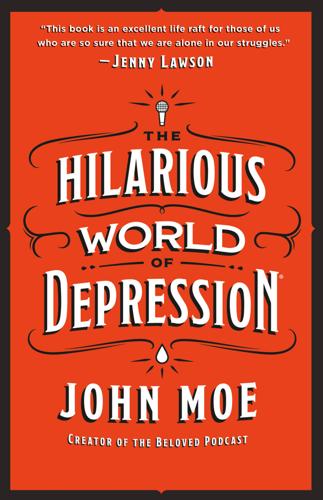
The Hilarious World of Depression
by
John Moe
Published 4 May 2020
There’s a premise, a setup, and a punchline. And at the punchline, as the audience laughs, a little burst of happiness gets delivered to the brain. A hit of dopamine. Being the funny one was shrewd, too, because all four of us kids were comedy nerds. My older siblings understood shows like Monty Python and Saturday Night Live and I watched too, smiling, laughing when they laughed, and usually falling asleep. By going as hard as I could into something everyone liked, I thought, I would therefore be loved. Solid logic, confused little boy! When my own jokes went over well, I felt like I had earned a place in the family, which was thrilling but made each day a high-stakes standup appearance.
…
Weird” recognized the anomaly but also indicated that it was a speed bump and not a brick wall. That was it for OCD. According to THWoD: Comedy Is a Helpful Tool People with minds that have been disordered from depression often find solace in comedy. That’s both strange and logical at the same time. Comedy, much of the time, is built on disorder. The Coneheads on the old Saturday Night Live are aliens with tall pointy heads attempting to blend in among the regular people of the suburbs. The Knights Who Say Ni from Monty Python and the Holy Grail hold great power over King Arthur himself because they wield the tremendous weapon of saying “Ni!,” which everyone fears even though it’s just a silly word.
…
Neal Brennan has Netflix specials, co-created Chappelle’s Show, directed movies, hangs out with NBA players, and has a cool condo on Venice Beach where he lives with his nice dog, Keith. “This is how fucking stupid my self-esteem was and probably still is in some part,” says Neal. “So I did Chappelle’s Show. And then I would tell myself that I was a good sketch writer but I couldn’t write for Saturday Night Live because I could write single-camera sketches like for Chappelle’s Show but I couldn’t do multicam live sketches. That was my caveat. And then I went along when Chappelle hosted SNL, and I wrote a good multicam sketch. And then I was like, ‘Oh, I can do that.’” As a person plugged into the entertainment industry, Neal knows he’s not alone in feeling this way, that a big achievement or pile of money would clean up the mind.
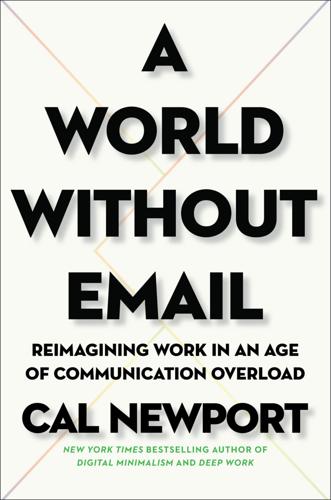
A World Without Email: Reimagining Work in an Age of Communication Overload
by
Cal Newport
Published 2 Mar 2021
To test the claim that egocentrism was the source of the participants’ overconfidence, the researchers turned their attention to humor. They now provided each sender with a short humorous passage. In particular, they drew from humorist Jack Handey’s Deep Thoughts: absurdist mini monologues delivered as scrolling text, read by a deadpan narrator and set against a relaxing backdrop. These appeared as a regular feature on Saturday Night Live during the 1990s and early 2000s. To make this experiment more concrete (and to provide me an excuse to replicate the funniest passage I’ve ever read in a peer-reviewed article), here’s an example Deep Thought that was actually used by the researchers: I guess of all my uncles, I liked Uncle Caveman the best.
…
Later on we found out he was a bear. To test egocentrism, the researchers randomly divided the senders into two groups. Each participant in the first group was simply provided a Deep Thought to send via email. Those in the second group were shown a clip of the thought being delivered on Saturday Night Live, with the oh-so-perfect calming music, the deadpan narrator, and the shocked laughter from the audience. After watching the clip, this group also emailed just the text. In both cases, the senders were asked how funny they thought the passage was and to estimate how funny the recipients would find it.
…
See also task boards project management tools, 147–48, 151–52 protocol principle, 190 client protocols, 197–201, 204 cognitive costs and, 184–86, 189–90, 193, 197 coordination protocols, 184–87 costs of protocols, 184–87, 200–201, 205, 207, 211 emails and, 185–86 explanation of, 180–87 information theory and, 179–87 nonpersonal email protocols, 202–5 office hours, protocols for, 187, 194–97 scheduling meetings and, 185, 188–93 and short-message emails, 205–8 status meeting protocols, 208–13 psychology, xviii–xix, 85, 125 of attention capital, 133–34 of knowledge work, 16–18 and mental stress, 36, 44–45, 61 and social connections, 41–43 public sector, 248 Pullman brass works, 136–39, 141, 144, 155 Quaternary, 84–85 Radicati Group, 10 Reclaiming Conversation (Turkle), 54 relational wealth, 40–42 remote employees, 104, 144–48, 161, 223, 232 RescueTime, xvi, 10–12, 184 responsiveness cycle of, 82–84, 163 dedication to, 19, 23–26, 30–31 revenue tracking, 114, 123 Rheingans, Lasse, 100–102, 104 Rice University, 216 Rich Roll Podcast, The, 222 Ringelmann, Maximilien, 86–87 Roach, Stephen, 216 Roosevelt, Franklin, 21 Rosen, Larry, 15 Rousseau, Jean-Jacques, 141–43 Runnells, John, 136, 138–39, 144 Rushkoff, Douglas, 38, 84 Salesforce, 217 Sassone, Peter G., 217–18, 246–47 Saturday Night Live, 52–53 ScheduleOnce, 192 Schulte, Brigid, 58–59 Schumpeter, Joseph, 88 science/scientists, 6, 16, 19, 42–43, 47, 55–56, 58, 179–80, 183. See also computer science; data scientists SCORE system, 210–11 Scrum, 157, 209–13, 234–35 Sean (tech start-up founder), 3–5, 199–201 self-employed workers, 238–39 service obligations, 239–43, 245 service sector, 216 Shakespeare, 43 Shannon, Claude, 179–85, 187, 193, 197, 201, 207 Shopify, 201 Silicon Valley, 29, 196, 221–25, 259 Simmons, Michael, 197–99 Simpson, Mike, 66 Slack, 59, 187 and client protocols, 199 constant checking of, xvi–xvii, 3–4, 11 criticism of, 5–6 disconnecting from, 31–32, 107, 145 hyperactive hive mind and, 3–6, 29, 199 uses of, 102, 149, 194 Sleeping with Your Smartphone (Perlow), 37, 82–84 Sloan, Alfred P.
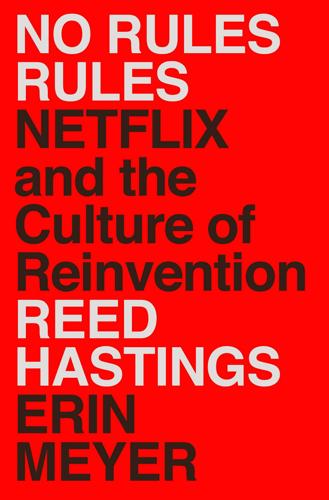
No Rules Rules: Netflix and the Culture of Reinvention
by
Reed Hastings
and
Erin Meyer
Published 7 Sep 2020
She has recently been recognized as a musical star in her own right, receiving three Grammy nominations. Her mentor (and recently turned husband) comes into the bathroom having had too much to drink. And he tells her candidly how he feels about her new original song, which she just performed on Saturday Night Live. You got nominated and that’s great . . . I’m just trying to figure it out. (Your song) “Why You Come Around Me with an Ass Like That.” (eyes rolling . . . long sigh) Maybe I failed you. You’re embarrassing. I got to be honest with you.” Despite all the talk about feedback at Netflix, this type of candor would not fly.
…
Over the next few quarters, we lost millions of subscribers and our stock dropped more than 75 percent in value. Everything we’d built was crashing down because of my bad decision. It was the lowest point in my career—definitely not an experience I want to repeat. When I apologized on a YouTube video, I looked so stressed that Saturday Night Live made fun of me. But that humiliation was a valuable wake-up call, because afterward dozens of Netflix managers and VPs started coming forward to say they hadn’t believed in the idea. One said, “I knew it was going to be a disaster, but I thought, ‘Reed is always right,’ so I kept quiet.”
…
Peabody and Sherman Show, The, 145 Munk de Alba, Marta, 179, 180 Musk, Elon, xvii Myers, Vernā, 241 N Narcos, 132, 137 National Public Radio (NPR), 166–68 NBC, 82 Neal, Jessica, 6, 142, 218 Negotiating Your Salary: How to Make $1000 a Minute (Chapman), 86 Netherlands, 242, 243, 246, 248, 251, 261–63 Netflix: “adequate performance gets a generous severance” mantra at, xv, xxii, 171, 175–76, 242 awards and nominations of, xvii, 76, 145, 165, 233 Blockbuster offered purchase of, xi–xii children’s programming on, 144–45, 226–31 content licensed from external studios by, xvii–xviii, 75–76 content produced in-house by, xii, xviii, 75–76, 236 crisis in 2001, 4–7 culture of, xiii, xxii, xxiii, 45 Culture Deck of, xiii–xvi, 172–73 diversity at, 241 downloading and, 146–48 employees as part of, versus working for, 108–9, 115 employees’ love for, xvii Explorer project, 154–55, 157 financial information of, 270 founding of, xi, 3–4 global expansion of, xvii, xviii, 147–48, 224–31, 236, 237–65, 239–65 American-centric culture and, 261 see also global expansion and cultural differences “highly aligned, loosely coupled” mantra at, 217–18 internal competitiveness at, 177–78 IPO of, xii, xvi, 110 layoffs at, 4–7, 10, 77, 168 leadership tree at, 221–31 meetings at all-hands, 108 Estaff, 218–19, 243 length of, 248–49 Quarterly Business Review, 49, 63, 110, 114, 145, 218–21, 224–26, 243 Memento project, 156, 157 Qwikster, 140–42 and shift from DVDs to streaming, xii, xvii, 140–41, 236 stock price of, xvi–xvii, 236 success of, xvi–xviii, xxiv, 6, 76, 77, 236 tagging and categorization of content on, 87 as team, not family, 168–70, 173–74, 250 and transitions in entertainment and business environment, xvii–xviii turnover at, 185 viewer data of, 270 Wii interface and, 154 Netflix Innovation Cycle, 139–40 asking what learning came from the project, 153, 155 celebrating wins, 140, 152 failures and, 140, 152–59 farming for dissent, 140–44, 158 not making a big deal about failures, 153–55 placing your bet as an informed captain, 140, 149–52 socializing the idea, 140, 144–45, 158, 159 spreadsheet system and, 143–44 sunshining failures, 153, 155–59 testing out big ideas, 140, 146–48 New York Times, 165, 178 Nickelodeon, 25, 75, 144 Nieva, Jennifer, 66–68 Nishamura, Lisa, 233 Nokia, xviii Northwestern University, 32 NPR (National Public Radio), 166–68 O office politics, 189 OfficeTeam, 79–80 Olympic Games, 207–8, 232 “only say about someone what you will say to their face,” 15, 189–90 opening the books, see transparency Orange Is the New Black, xvii, 75, 236 Oscars, xvii, 165, 233 Outliers (Gladwell), 142 oxytocin, 21 P Paris, 268–69 paying top of personal market, 75–99, 174 creative positions and, 78–79, 83–84 form of payment and, 79–81 rare skill sets and, 85 recruiters and, 93–98 rock-star principle and, 77–79, 81 see also salaries Peace Corps, xxii, xxiii, 14, 101, 239–40 Peña Nieto, Enrique, 138 penguins, elephants versus, 174 Peppa Pig, 227–28 Perez, Kari, 136–40 performance: “adequate performance gets a generous severance,” xv, xxii, 171, 175–76, 242 annual reviews, 191 bonuses and, 80–84 candor and, 17–20 as contagious, 8–10 differing levels in teams, 7–8 family business metaphor and, 166–68 metrics and, 81–82 hard work and, 39 internal competitiveness and, 177–78 Key Performance Indicators, 81, 191, 209 performance improvement plan (PIP) process, 175–76 see also talent density Peters, Greg, 45, 218, 255–57 PlayStation, 154 pleasing the boss, 129–30, 133, 152–53, 191, 198 praise and compliments, 21, 23 pratfall effect, 124 privacy, 120 Protector, The, xvii Procter & Gamble, 81 Pruckner, Gerald, 59 psychological safety, xv Pure Software, xviii–xix, xxiv, 3, 4, 6, 7, 13–14, 55, 64, 71, 101, 122, 123, 236 pyramid structure, 129, 221–23 Q Quarterly Business Review (QBR) meetings, 49, 63, 110, 114, 145, 218–21, 224–26, 243 quitting current job, reasons for, 79–80 Qwikster, 140–42 R raises, 87–93 Ramachandran, Shalini, 178 Ramsey, Bella, 227 Randolph, Marc, 3 Netflix cofounded by, xi, 3–4 in Netflix’s offer to Blockbuster, xi–xii rank-and-yank, 177–78 Reputation Institute, xvii Reguera, Ana de la, 137 responsibility, see freedom and responsibility Rhimes, Shonda, xii Rites of Passage at $100,000 to $1 Million+ (Lucht), 95 rock-star principle, 77–79, 81 Roma, xii, 165 Rosh, Lisa, 124 rules and process, xix, 236, 267–68 when to choose, 269–71 see also control, leadership by Russia, 207–8, 232 S Sacred Games, xvii safety issues, and management style, 213–14, 269–71 Saint-Exupéry, Antoine de, 215 salaries: adjusting down, 93 bonuses and, 80–81 changing companies and, 89–90 form of payment and, 79–81 negotiating, 86, 87 for operational positions, 78 paying top of personal market, 75–99, 174 creative positions and, 78–79, 83–84 form of payment and, 79–81 rare skill sets and, 85 recruiters and, 93–98 rock-star principle and, 77–79, 81 performance reviews and, 191 and quitting current job, 79–80 raises in, 87–93 recruiters and, 93–98 reviewing, 87–93 Sampaio, Leonardo, 249–50 Samsung, 65–66 Sandberg, Sheryl, xiii, 130 San Jose Mercury News, 52 Sarandos, Ted, 24–26, 43, 94–98, 218, 230 alien movie and, 129 bungee jumping story of, 194–95 on “hierarchy of picking,” 165–66 Icarus and, 208 in leadership tree, 223–27, 230, 231 360s and, 195–98, 201 Saturday Night Live, 141 Sausgruber, Rupert, 59 Schendel, Zach, 147, 148 Schlumberger, 240–41 Scorsese, Martin, xii secrets, 102–3, 110 at HBO, 114 reasons for keeping, 106 SOS (stuff of secrets) information, 103–5, 157 symbols of, 104–5 trust and, 102–5 see also transparency Series of Unfortunate Events, A, 145 severance pay: “adequate performance gets a generous severance,” xv, xxii, 171, 175–76, 242 in Europe, 242 sexual harassment, 270 signing contracts, 149–51 Silicon Valley, 77, 130, 136 Singapore, 243, 246, 248, 251, 257–59, 261, 264 60 Minutes, 232 Sky Italy, 131–32 Slepian, Michael, 102 Smith, Frederick, 138–39 socializing the idea, 140, 144–45, 158, 159 Society for Human Resource Management, 185 software, 77–78, 216 Songkick, 50 spending, see travel and expenses; travel and expense approvals, removing spin, 118, 120 Spotify, 136 spreadsheet system, 143–44 Stack, Jack, 107–10 stack ranking, 177–78 Stamberg, Susan, 167 Star Is Born, A, 29 status quo, xxiv stealing, 56 Stranger Things, xvii, xviii, 25, 75, 76, 78–79 streaming, 147, 154 downloading and, 146–48 shift from DVDs to, xii, xvii, 140–41, 236 Stuber, Scott, 165 subtitles, 227 Sundance Film Festival, 207, 233 Sun Microsystems, 6 sunshining, 105 of failures, 153, 155–59 systems, loosely versus tightly coupled, 215–17 T talent, 7 contagious behavior and, 8–10 and differing performance levels in teams, 7–8 talent density, 7–8 building up and fortifying, xx, xxi, 1, 2–11, 72, 74–99, 164–87 collaboration and, 170, 178 creating a great workplace of stunning colleagues, 3–11 decision-making and, 131 family business metaphor and, 166–68 hierarchy of picking and, 165–66 hiring and, 166 internal competitiveness and, 177–78 Keeper Test and, xiv, 165–87 Keeper Test Prompt and, 180–83 and leading with context versus control, 212, 213 and moving from family to sports team metaphor, 168–70, 173–74 Netflix layoffs and, 4–7, 10, 77, 168 and readiness to release decision-making controls, 133–35 stack ranking (rank-and-yank) and, 177–78 360s and, 200 see also paying top of personal market talking behind people’s backs, 15, 189–90 Tanz, Larry, 96–97, 195, 201 Target, 213–15 teams: contagious behavior in, 8–10 differing performance levels in, 7–8 dream, 76 feedback from teammates, 199 lean, 79 tensions in, 199 televisions, 4K ultra high definition, 65–66 Tesla, Inc., xvii Thinkers50, xxii 13 Reasons Why, 32 360-degree assessments (circle of feedback), 26–27, 189–205 benefits of, 202–3 discussion facilitated by, 194 in Japan, 256 live, 197–203 stepping out of line during, 200–201 tips for, 199–200 written, names used in, 191–97 Thunell, Matt, 75–79 tight versus loose coupling, 215–17 transparency (opening the books), 101–27 decision-making and, 131 difficult decisions in, 115–16 empowerment and, 109 and feeling it’s better not to know some things, 115–16 giving low-level employees access to information, 109 and information that would be illegal to leak, 106–11 knowing when to share, 106 about mistakes, 121–25 possible organizational restructuring and, 112–17 post-firing communication and, 117–20 quiz scenarios on, 106–25 privacy and, 120 risks of, 106, 110 sharing financial data, 108–11 sunshining, 105 360-degree assessments and, 194 see also secrets travel and expenses: flying business class, 63–64 honesty and, 58–59 rules for, 55–59, 64 spending company money as if it were your own, 57–58 travel and expense approvals, removing, 55–72 cheating and, 62–64 company’s best interest and, 58, 59, 61, 66, 68–69 context and, 59–62 Freedom and Responsibility ethos and, 60–62 frugality and, 64–69 Trollhunters: Tales of Arcadia, 145 trust, 102–5, 108, 113, 119, 123–25, 157, 170 cultural differences and, 248, 249 see also transparency truth, 157 spinning, 118, 120 see also candor; transparency Turkey, 157–59 turnover, 184–85 Twitter, 137 U Uber, 136 University of Mannheim, 123–24 V vacation policy, removing, xv, 39–53, 56, 69–70 freedom and responsibility and, 52–53 Hastings’ nightmares about, 40–41, 42, 44 Hastings’ vacations, 44, 45, 47 Japanese workers and, 46–47 leaders’ modeling and, 42–47 loss aversion and, xv–xvi and setting and reinforcing context to guide employee behavior, 48–49 value added by, 50–52 Vai Anitta, 97 values, xiii Vanity Fair, 137, 176, 177 VH1, 221 Viacom, xii, 68, 69 Virgin Management, 50 Visualsoft, 50 vitality curve, 177–78 vulnerability, 123–24 W Wall Street Journal, 66, 178 Walmart, 166 Wang, Andrew, 75, 79 Wang, Karlyne, 257–60 Wang, Spencer, 110–11 WarnerMedia, 82 Washington Post, 65 Watchever, 148 Webcredible, 50 Week, The, 178 Welch, Jack, 177 Wells, David, 57, 59, 64, 196 West, Jerret, 132–33, 135 white-water kayaking, 180 Wickens, Brent, 62–63 Wii, 154 Worst Witch, 227 Wright, Brian, 25, 75, 79 Y Yacoubian, Aram, 223, 224, 228–31 Yahoo, 151 Yellin, Todd, 147, 148, 154 YouTube, 145–48 Yurechko, Mark, 114 Z Zenger Folkman, 21 ABCDEFGHIJKLMNOPQRSTUVWXYZ ABOUT THE AUTHORS Reed Hastings is an entrepreneur who has revolutionized entertainment since co-founding Netflix in 1997, serving as its chairman and CEO since 1999.
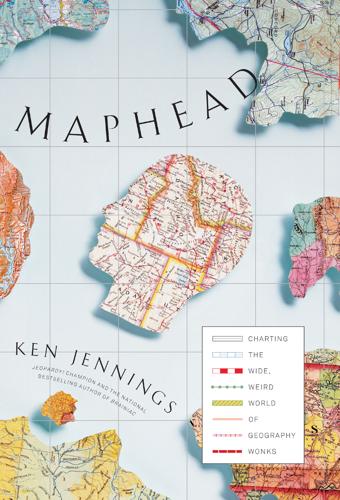
Maphead: Charting the Wide, Weird World of Geography Wonks
by
Ken Jennings
Published 19 Sep 2011
On those rare occasions when a politician does display a knack for geography, he’s treated as a sideshow freak. Al Franken’s favorite party stunt has long been his ability to draw a near-perfect map of the United States freehand, a skill he’s used to great effect doing electoral coverage for Saturday Night Live’s “Weekend Update” and on Comedy Central. In 1987, he amazed a Letterman audience by whipping off one of his Sharpie maps in less than two minutes. When the former comedian somehow got elected to the Senate in 2008, his onetime Stupid Human Trick got rebranded as a wonkishly patriotic bit of Americana and became a staple at campaign events and fund-raisers.
…
I stared at the map endlessly, marveling at the big, muscular Africa dominating its center and the anemic Russia and Alaska hugging the North Pole. I’d been told that the maps I knew were lying to me about the globe, but it was quite another thing to see the evidence with my own eyes. You can trace the decline of the Mercator Projection by looking at the set changes on Saturday Night Live’s “Weekend Update” faux newscast. The world outline map behind the newscasters was an acromegalic Mercator back in the Dan Aykroyd/Jane Curtin era, but under Dennis Miller it was replaced with a less absurd, modified Mercator called the Miller (no relation) cylindrical projection. Today the map behind Seth Meyers is an equirectangular projection called the plate carrée, useless for oceangoing but popular among computer mappers.
…
See toponyms Plessis, Denis Martineau du, 36 Poe, Edgar Allan, 184 POI (points of interest), 211, 231 Poison, two-armed drummer from, 193 Pokémons, more interesting than actual animals, 45 populations, 4 Port-au-Prince, 2010 earthquake, 228–30, 229 Portrait of the Artist as a Young Man, A (Joyce), 13 Potter, Jonathan, 82 Powers of Ten, 214 Pratchett, Terry, 118 Preuss, Charles, 247 Prime Meridian, 240 projections, 64, 77–78, 221–24, 223 pronunciation of place-names, 73 Proust, Marcel, 73 Ptolemy, 77, 86–87 pundits, 89 “Purloined Letter, The” (Poe), 184 quadrangle maps, 60 Rademacher, Paul, 226–27 Rand McNally, 175–77, 234–36, 244, 246 corporate history of, 175–76, 234–35 Simpsons joke about, 36 rebellib stick charts, 20, 21 Reagan, Ronald, 68 Remembrance of Things Past (Proust), 73 Rennell, James, 89 Rhodes, Cecil, 207 rhumb lines, 221 Ringmann, Matthias, 76 road atlases, 148, 160, 167, 175–77, 235–36 in map rallies, 177–85 roadgeeks, 166–73, 184–85 as archaeologists, 172 and the Internet, 168 public servants, 171–72 road rallies, 177, 180 road signs, 167, 171–72 Robinson, Arthur, 222 Rockall, 161 role-playing games, 112, 116 Roosevelt, Theodore, 58, 165 Rosencrantz and Guildenstern Are Dead (Stoppard), 42 Rothman, Leonard, 97–98, 101–4 Rousseau, Jean-Jacques, 49 Rowling, J. K., 199–200, 213 Royal Geographical Society, 75, 79, 89–91 Rumsey, David, 98 Salisbury, 3rd Marquess of, 207 Salman, Benjamin, 109–12, 129–31, 134, 137 Saltonstall, Wye, 45 Sanderson, Brandon, 113–14, 116–19 sandwich, Earth, 240–42 Saturday Night Live, 38, 223–24 Scott, Robert Falcon, 90, 205 Scripps National Spelling Bee, 124, 146–47 selective availability, 187 Seoul, South Korea. See under Jennings, Ken Seven Cities of Gold, 85 Sexmoan, Philippines, 70 sexuality, 70–71, 77 Shackleton, Ernest, 90 Shultz, George, leaky deck of, 98 Shuster, Bud, 170 Simon, Phil, 97–98, 101–4 Simpsons, The, 36 Sims, John and Ashley, 140 Sinclair, Jim and Sue, 177–81, 183–84 Singh, Nain, 89 Sloane, Hans, 98 Smiley, E.

Let's Pretend This Never Happened (A Mostly True Memoir)
by
Jenny Lawson
Published 5 Mar 2013
The drive to the party was long, which worked against me, because already the sedatives I’d taken were wearing off, and it gave me more time to worry about our choice of costumes. We were dressed as Craig and Arianna, the Spartan cheerleaders from Saturday Night Live. When I’d bought the costumes I’d thought it was a pretty iconic pop-culture reference, but when Hailey’s babysitter arrived she’d had no damn idea who we were. Victor and me as Craig and Arianna. One of us is not even fucking trying. “You know? The Spartans? From Saturday Night Live?” I asked, trying not to let the hysteria seep into my voice as Victor (who had never wanted to be a male cheerleader in the first place and still hadn’t forgiven me for picking out the costume) just glared at me.
…
Then he pulled his (still aghast) face from mine to turn toward the door, and that’s when he noticed that no one in the house was wearing costumes. “What. The. Fuck?” was all he managed to get out before a man in his late fifties opened the door. The man looked at us strangely, which I thought was rather rude for a host, and I thought I’d just get it out of the way, so I blurted out, “You know . . . the Spartans? From Saturday Night Live?” He just kept staring, with his brow furrowed like he was still trying to place us, and I shrugged in defeat and said, “Meh. Don’t worry about it. The babysitter didn’t get it either.” Victor cleared his throat and gave me the “Please shut up” look, while the man at the door said, “I’m sorry.
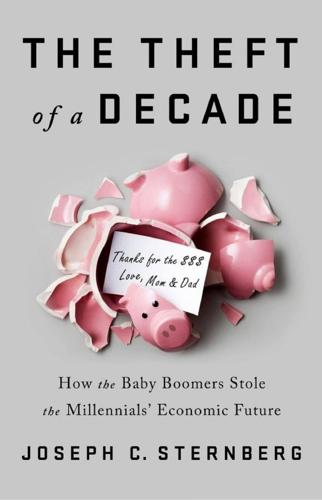
The Theft of a Decade: How the Baby Boomers Stole the Millennials' Economic Future
by
Joseph C. Sternberg
Published 13 May 2019
“Dead Men Ruling” Perhaps like many older Millennials, I first started hearing about the financial problems of Social Security and Medicare from Saturday Night Live in the autumn of 2000. I had just graduated from high school that spring, and a presidential election was underway—the first in which those of us born in 1982 would vote. Little of that campaign sticks in my memory—with hindsight and more experience, I realize it’s because it was an especially uninspiring campaign—but the thing I remember most clearly is a parody. Saturday Night Live, as ever, was ready after each debate with a spoof to send up the candidates, George W. Bush and Al Gore.
…
Affordable Care Act and, 68 as candidate, 153 financial crisis and, 129, 131, 132, 162, 164 fixed investment, 57 growth rate/output per hour, 57–58 housing and, 58, 123 interest rates and, 57 Medicare Part D and, 157 presidency overview, 57–58 taxes and, 152–153 wars/deficit-spending, 152 capital productivity definition, 48n car industry (US) decline (starting 1980s), 51 golden age (1950s/1960s), 51 TARP and, 130n Carter, Jimmy, 20 cashiers jobs and machines, 34n Cass, Oren, 58 China Millennials problems, 179 one-child policy/effects, 179 Chrysler, 130n Cisneros, Henry G., 123 Civil War economy/debt, 146–147, 148 civilian employment, 150, 150n Clark, Yvette, 219 Clinton, Bill as Boomer, 20, 122 computer/information technology and, 56–57, 235 economy and, 24, 54–57, 235 Family and Medical Leave Act, 55 housing and, 123 military budget and, 151 regulations and, 55 “Reinventing Government,” 56 sex scandals/impeachment and, 224–225 taxes and, 55, 152 welfare reform and, 164 Clinton, Hillary, 215, 219 coffee/avocado controversy, 1–3 College Scorecard, 93–94, 98 Community Living Assistance and Support (CLASS) program, 169 Competitive Enterprise Institute think tank, 229 computer/information technology Clinton and, 56–57, 235 investment/consequences, 56–57, 235 Congressional Budget Office Affordable Care Act, 168 Social Security, 173 consumption 1990s and, 54, 57 Boomers and, 50 investment relationship, 50 US becoming consumption economy, 58 consumption tax consequences, 173–174 Germany and, 196 Japan, 206 Countryside Financial, 129 Cowen, Tyler, 41–42 creative class, 41 Crowley, Joseph, 211 Cuomo, Andrew, 123 “Dead Men Ruling” phrase, 156 debt of Americans (by 1990), 54 before 1930s, 146–147 budget estimates/fudging, 152–153 financial crisis and, 161–165, 162n future generations and, 150 government civilian workers/benefits, 150, 150n Great Depression/New Deal and, 148–149 history overview, 146–149 measuring debt, 162n military and, 151 mortgage/housing debt, 123–127, 125n Progressive philosophy beginnings and, 148, 149 statistics on, 146 tax policies and, 152–153 wars and, 146–147, 148, 152, 152n See also deficit spending (government); education debt/Millennials; housing/financial crisis deficit spending (government), 97, 206 deflation, 234, 234n Deloitte Consulting, 104 Department of Housing and Urban Development (HUD), 123 Detroit bankruptcy/pension cuts, 175 DeVos, Betsy, 230 Dodd-Frank Wall Street Reform and Consumer Protection Act, 139–140 Dorn, David, 35–36 dot-com stock bubble burst (2000), 57 Dow Jones Industrial Average, 10 downsizing description/beginnings (1970s), 47–48 risk to employers, 37 Economic Policy Institute, 68 economy (US) description (1970s), 47–48 description/status, 16 economic crisis intervals, 6–7, 7n high skilled/polarization, 65 transformation (overview), 14, 15 See also specific components; specific times economy (US) before 2007-2008 crisis Boomers and, 46 overview, 45–46 education/Millennials after finding work, 31 alternatives to college education, 98–99 Atlantic magazine analysis of choice of college major, 92–93 graduating vs. learning, 90, 92, 92n importance of college education and, 87–89, 95–96, 106–107 information for making decisions and, 93–94 as investment, 89–92, 95 National Center for Education Statistics data analysis, 92–93 timing and, 13 education debt/Millennials Affordable Care Act and, 100 Boomer education and, 87, 88, 96–97 Boomer mortgages vs., 86 Boomer parents and, 88 credit ratings and, 94 degree inequalities and, 85, 91–93 description/overview, 17, 22–23, 83–103 for-profit colleges and, 98 grad school and, 89 grants and, 97, 99, 100 home ownership and, 94–95 household income and, 92–93 importance of college education and, 87–89, 95–96, 106–107 income-based pay plan and, 100–101 number of people going to college and, 87 parental/Boomer debt and, 84 private loans and, 99–100 racial inequality and, 96 reality of, 86 statistics, 22–23, 84–86, 87–89, 90–92, 93n, 94, 96–97, 99 subsidized loans and, 97, 98 taxes and, 97–98, 101, 101n Trump and, 230 tuition increases and, 87–88 warnings and, 102–103 emergency-lending facility use, 78 entitlements for elderly assumptions on growth/revenue and, 153 benefit cuts and, 175–176 demographics and, 156–157 expansion, 146 problems/Millennials and, 146, 159–160, 161, 233 taxes and, 157, 160, 174 Trump and, 231 “trust funds” and, 160 See also Medicare; Social Security euro currency, 180 Europe (Continental) generational problems borrowing and, 180 euro currency, 180 European Union/mobility and, 186 eurozone, 180 financial crisis and, 179–181 Europe (Continental) generational problems/unemployment economic growth and, 181–182 education and, 181 Millennials as shock absorbers, 182 minimum wages and, 183–184 NEET and, 181 older worker protection, 184–185 small-/medium-sized companies and, 182–183 taxes/tax wedge and, 183 temporary work, 184–185 youth unemployment/reasons and, 180–186 Fair Labor Standards Act (1938), 67–68 Family and Medical Leave Act, 55 Fannie Mae creation, 120 first-time buying and, 135 importance of, 11 less secure mortgages and, 122–123, 124–125 receivership, 125n, 129 role, 120, 122 Federal Deposit Insurance Corporation, 11 Federal Housing Agency (FHA), 120, 131, 135 Federal Insurance Contribution Act, 155 Federal Open Markets Committee, 133 Federal Register, 229 Federal Reserve financial crisis/Great Recession and, 60–61, 63–64 interest rates and, 18, 19, 124 investment and, 61–62 mortgage lending and, 61–62 “quantitative easing” and, 18–19, 60 Trump and, 19, 231–232 under Greenspan, 55, 124 FHA (Federal Housing Agency), 120, 131, 135 FICO, 94 Fidelity Brokerage Services savings survey, 77, 81 financial crisis/Great Recession bailouts and, 59 bank failures, 10–11 bankruptcies, 11 Boomers and, 60, 110–111 comparison to other economic crises, 59 description overview, 59–60 Federal Reserve and, 60–61, 63–64 home equity disappearance and, 110–111 job losses distribution, 32–37 “jobless recovery,” 35, 69 Millennials (overview) and, 9–14, 238 official end, 11 “redistribution recession,” 165 “shovel-ready” projects, 163, 163n social programs/benefits and, 163–166 stock market, 10 tax-cuts and, 163 See also housing/financial crisis Financial Crisis Inquiry Commission (FCIC), 122n fixed investment, 49, 51, 53, 56, 57, 60, 127 Florida, Richard, 41 401(k) plans, 80 France bailouts and, 180 minimum wage, 184 Freddie Mac first-time buying and, 135 importance of, 11 less secure mortgages and, 122–123, 124–125 receivership, 125n, 129 role, 122 free market politicians and, 18 See also specific components; specific individuals Friedman, Milton, 133 Friedman, Thomas, 41 Gates, Bill, 91 GDP (gross domestic product) financial crisis/recovery and, 11–12, 13 Millennials and, 220–221 Geithner, Tim, 129 General Motors, 130n “Generation X” description, 6n, 8 heirs and, 104 housing/financial crisis and, 10, 111, 131, 134, 135 retirement finances and, 80, 81 “Generation Y,” 6 generational accounting, 171–172 generational problems/other countries background, 177–179 lessons from, 177, 186–187, 200–201 union legal power and, 186 See also specific countries generational unfairness overview, 170–176 See also specific components generations birth cohort vs., 7 diversity, 7 See also specific generations Generations: The History of America’s Future, 1584-2069 (Strauss and Howe), 6–7 Germany bailouts and, 180 financial crisis, 180 migrants, 199 military spending and, 198n taxes and, 196–198 traits of people, 198 Germany/Millennials apprenticeship system, 181, 233 “balanced budgets” and, 195–196, 198–201 falling birthrates effects, 199 minimum wage and, 184 pension systems/retirement age and, 199, 200 welfare state/entitlements, 195, 196, 198–200 GI Bill, 120 gig economy Boomers and, 71 description, 69–72, 70n middleman and, 70, 140 Millennials and, 71, 234 technology and, 69–70 Ginnie Mae, 133 Gokhale, Jagadeesh, 171–172 Gore, Al “lockbox” and, 153–154, 161n Saturday Night Live and, 153–154 Great Depression, 10, 14, 49, 83, 119, 148, 163n, 238 Great Recession. See financial crisis/Great Recession Great Society, 149 Greece financial crisis, 180, 180n Millennials confidence, 201 Green Party, 219 Greenspan, Alan, 55, 124 gross domestic product. See GDP (gross domestic product) Gurner, Tim avocado/coffee and, 1, 2, 3 homebuying and, 116 inheritance, 4 Hamilton, Alexander, 147, 147n, 148 Hammond, Darrell, 153 Harris, Kamala, 214 Hawley, Josh, 212 HCAI (Housing Credit Availability Index), 139, 139n health care electronic medical records, 235 See also Affordable Care Act/Obamacare; health insurance health insurance economic security and, 65 employer-based insurance/history, 65, 66 See also Affordable Care Act/Obamacare Hillbilly Elegy (Vance), 45 HOLC (Home Owner Loan Corporation), 119–120 Home Owner Loan Corporation (HOLC), 119–120 housing amortizing mortgage, 120, 120n balloon loans, 119 Boomer ownership, 109, 110, 111 Federal Reserve/mortgage lending and, 61–62 GI Bill and, 120 Great Depression/government response and, 119–121 history, 113–114, 114n, 118–119 Millennial home ownership/education debt and, 94–95 mortgages/taxes and, 120, 126, 127 multigenerational households, 112, 113 ownership value debate, 120n postwar boom and, 121 Housing Credit Availability Index (HCAI), 139, 139n housing/financial crisis bailouts, 130, 130n, 132n bank liquidity and, 129–130 Boomers and, 134, 135 description/consequences, 128–129 foreclosures and, 111, 132, 132n, 135 home equity increase and, 125–128, 126n home equity loss and, 10, 110–111 home ownership decline and, 121, 122 homeowners “lock-in” and, 136 housing debt/policies, 123–127, 125n insolvency crisis and, 129–130 interest rates and, 124–125, 125n, 127–128, 136 managing policies, 129–137 Millennials and, 131, 135–140, 141–143 mobility and, 135–136 mortgage-backed securities (MBS) market and, 124, 125n, 128, 129 mortgage security and, 122–124 press release/beginnings, 128 quantitative easing, 133, 135, 136, 137 quantitative easing dollar amount, 137 regulations following/Millennials and, 137–140 subprime/prime borrowers and, 126–127, 126n housing/Millennial issues economics and, 17, 110, 111, 112–113 expectations, 109–110 living with parents/statistics, 111–113, 114 locations/job locations and, 116, 117–118 multigenerational households, 112, 114n ownership/demographics, 115–116 renting/costs and, 113, 113n, 114, 114n, 141–142, 141n starter homes and, 116, 117 supplies and, 116–118 Howe, Neil, 6–7 HUD (Department of Housing and Urban Development), 123 Iceland and financial crisis, 180 immigration Millennials views, 218, 225–226 Trump, Donald and, 225–226 Immigration and Customs Enforcement (ICE), 211 India, 178, 201 Industrial Revolution, 113 information/computer technology rise, 56, 235 inheritances/Millennials beliefs/estimates, 103–104 Boomers life expectancy/health care finances and, 104–105 feudalism/history and, 106 Fidelity surveys, 105 Millennials retirement and, 107–108 timing and, 105–106 interest rates Bush and, 57 Federal Reserve and, 18, 19, 124 housing/financial crisis and, 124–125, 125n, 127–128, 136 Trump and, 19, 231–232 International Monetary Fund (IMF), 182–183 internships/Millennials numbers, 31 Obama and, 73 overview, 31, 72–73 pay and, 31, 72 work descriptions, 32 investment Boomers childhood and, 49 consumption relationship, 50 costs of labor vs. capital, 63–64, 65–66, 229 during Bush administration, 57 during Reagan administration, 53, 54 fixed investment, 49, 51, 53, 56, 57, 60, 127 growth (mid-twentieth century), 49 need to increase and, 15–17, 51 productivity and, 16, 49 technologies replacing labor and, 62–63 investment-and-productivity boom (1950s/1960s), 49–50 decline (1970s/1980s), 50 Ireland and financial crisis, 180 Italy Millennials and, 184, 201 temporary work, 184 Jackson, Alphonso, 123 Jackson, Andrew, 147 Japan consumption tax, 206 corporate scandals, 202, 202n debt, 205–206 demographic boom, 203n economic growth (1960s/1970s), 201–202 population trend, 207 working mothers and, 209 Japan Millennials delayed marriages/children and, 208–209 economy and, 203, 205, 206–207 inflation and, 207–208 interest rates and, 207–208, 208n job/training investments and, 204–205 lifetime employment deal and, 203–204 regular/nonregular work, 202–203, 202n taxes and, 205 Jeffersonians, 147n job hopping, 37–38 “jobless recovery,” 35, 69 jobs/job market and Millennials age of employee/job losses, 35–39 Boomers vs., 27, 46 company size and, 38–39 economists categories of jobs/job losses and, 33–34 experience requirements and, 37 financial crisis/recession losses distribution, 32–37 “fun/fulfilling” work and, 29 goals/dreams, 31 job losses by skill level, 34 job opportunity losses/time effects, 39–40 jobs replaced by robots, 34, 34n lower-skilled/low-paying employment replacements and, 36–37 mentors vs. bosses, 29–30 overqualification and, 42–43 pay/job losses and, 33–34 recovery from financial crisis and, 35, 59 statistics on white/blue collar jobs, 28 transformed jobs and, 27–29, 27n wants description, 29 See also specific components Johnson, Lyndon, 149 Kander, Jason, 212 Keynes, John Maynard/Keynesian economics, 50n, 58, 163n Kotlikoff, Laurence J., 171–172 labor capital vs. labor costs, 63–64, 65–66, 229 costs, 65–66 costs (by 1990s), 55 replacing labor and, 17, 34, 34n, 62–63 See also union power labor-force participation rate in 1970s, 47 in 1980s, 54 description, 30 Millennials/post-2008 decade, 30–31 labor productivity complementary technologies and, 49 definition, 48n labor hours and, 49 output per hour worked and, 48, 48n, 56, 57 labor share in 1950s/1960s, 47, 50 definition/description, 47 during Clinton presidency, 56 during Reagan presidency, 56 economic theories on, 62 trend past 50 years, 62 Lehman Brothers, 11, 129, 133 Libertarian candidates, 219 McAfee, Andrew, 41 McCain, John, 225 McCain, Meghan, 215 Maloney, Carolyn, 219 Manhattan Institute for Policy Research, 58 ManpowerGroup, 31 manufacturing economy (US) decline, 12, 14 description, 15–16 MBS (mortgage-backed securities) market, 124, 125n, 128, 129 Medicaid Affordable Care Act and, 167 financial problems, 156 role, 149 Medicare for all Americans, 211 financial problems/Millennials and, 153–161 inflation and, 169 insurance comparisons, 154 Millennial resources and, 142 role, 149 See also entitlements for elderly Medicare Part D, 157 Merkel, Angela political party/government and, 197, 200, 200n taxes and, 197 Merrill Lynch, 11, 128–129 Merrill Lynch survey/savings, 78 military spending deficit spending (government) and, 151 generational fairness and, 171 Millennials avocado/coffee debate, 1–3 childhood diseases and, 3–4 definition/description, 5–9, 237 diversity and, 216, 237–238 ethnicity, 9 as immigrants/children of immigrants and, 8–9, 112 material well-being and, 3–5 navigators and, 21–23 numbers, 8 parents/security and, 3–4 as “retirement plans” for parents, 145 second language and, 8 sex and, 217 social questions, 216–217 stereotypes and, 1–3, 29–30, 235 term origins, 6 views of, 1–3, 4–5, 26–27 wars and, 4 minimum wages debates/views on, 185 Europe, 183–184 in US, 183–184 Mondale, Walter, 20 mortgage-backed securities (MBS) market, 124, 125n, 128, 129 Mortgage Servicing Assets (MSAs), 138n Mulligan, Casey B., 165 Murphy, Patrick, 212 National Center for Education Statistics data analysis, 92–93 National Football League union refs lockout (2012), 49n National Home-ownership Strategy (1995), 123 navigator Millennials, 21–23 NEETs (youths “not in employment, education, or training”), 181 Netherlands minimum wage, 184 New Deal/regulations, 52–53, 148–149 Obama, Barack Boomers and, 64 education policy and, 93–94, 97–101 financial crisis/Great Recession and, 129, 131–132, 132n, 137, 162–164, 223–234 Millennials and, 64, 218–219, 224 policies and, 18, 19, 24, 64, 73, 93–94, 97–101 regulation and, 229 unpaid internships and, 73 See also Affordable Care Act/Obamacare Obamacare.
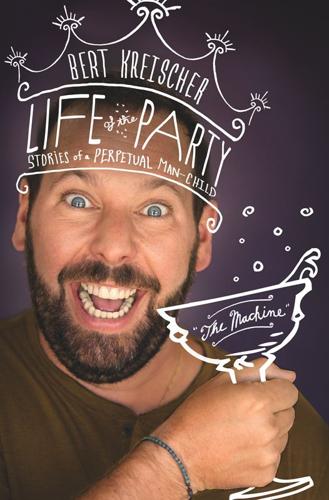
Life of the Party: Stories of a Perpetual Man-Child
by
Bert Kreischer
Published 26 May 2014
Had she been a fat chick, I probably would have been in the hospital but seen no hidden meaning. Regardless, I spent the remainder of the time before that night’s show focusing on how I could turn this bit of kismet into a kismet bit. My focus shifted when I saw Tracy Morgan walk up to the club. At the time, Tracy was just beginning his reign at Saturday Night Live and he had the strut of a fourth grader coming back from the principal’s office. The comics at the club said he looked healthy, which seemed odd to me because he didn’t, but apparently this was an improvement. They also told me he was hilarious, which I believed because just watching him interact was comical.
…
Tracy gave me a long stare, a mean mug, and a nod, and continued the conversation he had been having. Making sure not to overstep my bounds, I went back to barking, only this time with much more ammo. “Hey guys, we have a great show tonight. Tony Woods, D.C. Benny, Judah Friedlander, and from Saturday Night Live, Tracy Morgan.” By the time Tracy hit the stage I had brought in enough patrons to earn myself a few minutes to watch a pro at work. At this time in my career, anyone who had made it out of the clubs and onto TV, but who still came back to the clubs to work out material, earned all the respect I had.
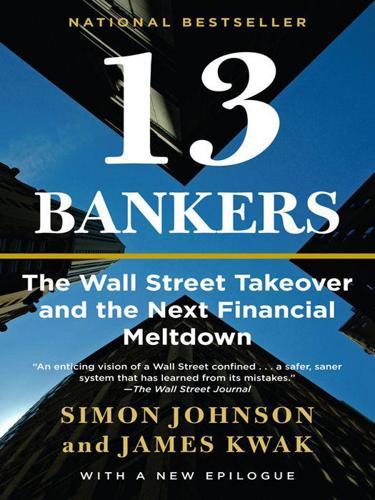
13 Bankers: The Wall Street Takeover and the Next Financial Meltdown
by
Simon Johnson
and
James Kwak
Published 29 Mar 2010
David Enrich, Dan Fitzpatrick, and Marshall Eckblad, “Banks Won Concessions on Tests: Fed Cut Billions off Some Initial Capital-Shortfall Estimates; Tempers Flare at Wells,” The Wall Street Journal, May 9, 2009, available at http://online.wsj.com/article/SB124182311010302297.html. 40. Saturday Night Live (NBC television broadcast May 11, 2009), available at http://www.nbc.com/Saturday_Night_Live/video/clips/geithner-cold-open/1099562/. 41. Tim Geithner, “Written Testimony: Congressional Oversight Panel,” April 21, 2009, available at http://www.treas.gov/press/releases/tg94.htm. 42. Board of Governors of the Federal Reserve System, The Supervisory Capital Assessment Program: Overview of Results, May 7, 2009, available at http://www.federalreserve.gov/newsevents/bcreg20090507a1.pdf.
…
On one level, the exercise failed; many people doubted that the tests painted a true portrait of the banks’ potential losses, especially when it came out that the Fed actually negotiated the results with the major banks, in some cases dramatically improving the banks’ performance at the last minute.39 (Saturday Night Live’s parody of Geithner, to some, seemed not too far from the truth: “Eventually, at the banks’ suggestion, we dropped the asterisk and went with a pass/pass system. Tonight, I am proud to say that after the written tests were examined, every one of the nineteen banks scored a pass.”)40 But on another level, the stress tests worked.
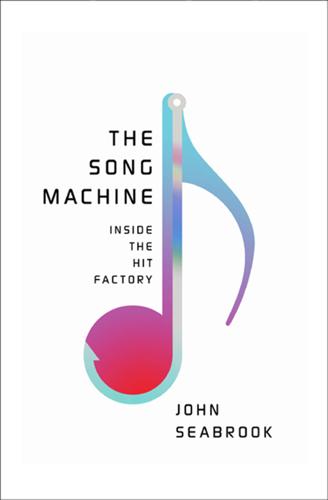
The Song Machine: Inside the Hit Factory
by
John Seabrook
Published 4 Oct 2015
An American demo singer who had sung background on some Cheiron productions had a boyfriend who was DJing in a couple cool clubs. His name was Lukasz Gottwald, but in the clubs and on his mix tapes he was called Dr. Luke. Gottwald, twenty-eight, was also a guitar player; he had a regular gig with the house band for Saturday Night Live, a job he’d had for six years. He had an unusual range of musical skills. He had studied both rock and jazz, was a pretty good drummer, and he could sing, in a high voice. His job at SNL had acquainted him with a vast repertoire of American popular music, ranging over almost a century. As a producer, he knew his way around Pro Tools as well as anyone; he was as skilled at programming music as he was at playing his instrument.
…
Maybe you should listen to Miles Davis.’ ” But within a year he was good enough to get a weekly gig playing at Augie’s Jazz Bar, on 106th and Broadway. Gottwald made his first real money writing commercial jingles. He did the music for a popular Nike ad that ran during the 1994 World Cup. He hated it. “I didn’t like the people who were deciding things,” he says. He wanted to be the decider. In 1997, Lenny Pickett, the Saturday Night Live bandleader, put out the word around music schools that he was looking for a young guitar player for the band. It had to be someone who could sight-read music. As he explains, “We had only two hours for rehearsal, so I needed someone who could pick the music up quickly.” Pickett, who was the tenor sax soloist in the band (before SNL, he was a horn player in Tower of Power), auditioned about forty young players.
…
, 85 Rythm Syndicate, 173 sado-masochism (S&M), 91 Sahdeeq, Shabaam, 245 St. Petersburg Times, 103 Sakamoto, Kyu, 160 Salk School of Science, 307 Samsung, 151 Sandberg, Karl Martin, 64–67, 135 childhood and education of, 65 songwriting and performing of, 65–67 see also White, Martin “S&M,” 227, 228–29 Sandpiper Club, 24 “Sao Paulo,” 270 Saturday Night Live (SNL), 134, 135, 243–44 Schlager music, 37 Schmidt, Eric, 16 Schmidt-Holtz, Rolf, 14 Schnitzler, Conrad, 30 Schoolly D, 60 Schoun, Andy, 96–97 Schultz, Jake, 64, 104 Scott, Dick, 49–50 Scott, Tee, 60 Seacrest, Ryan, 126, 128 SeaWorld, 54–55, 74 Sebert, Kesha Rose, see Kesha Sebert, Pebe, 269, 277, 278–79 Secret, The (film), 205–6 Secret Garden studio, 240 Sedaka, Neil, 69 Seo Taiji and Boys, 151 Seoul, 150–53, 155–58, 161–63 Gangnam district in, 155–56 “September,” 171 S.E.S., 152, 153 session musicians, 6, 58, 59, 201 Sex Pistols, 8, 37, 290 Sgt.
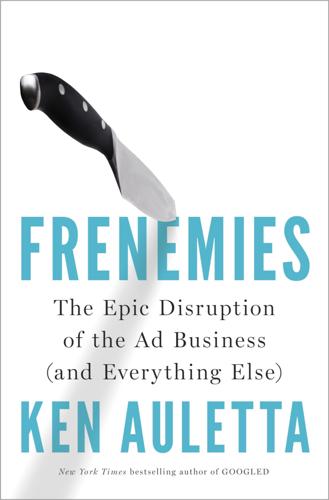
Frenemies: The Epic Disruption of the Ad Business
by
Ken Auletta
Published 4 Jun 2018
To add a touch of levity, Kassan borrowed what he thought was a familiar joke from Saturday Night Live: “Pam, what you’re really saying is, ‘Carolyn, you ignorant slut! You don’t know what you’re talking about.’” The audience laughed. Everson did not. The next morning, a Friday, a friend phoned Kassan and said, “You have a real problem with Viacom. You called Carolyn Everson a slut!” The CEO of MTV lodged a formal complaint with CES. Chastened, Kassan phoned Everson and tried explaining that he had borrowed a line from one of the all-time most popular skits on Saturday Night Live. “You actually think I would call you a slut onstage?”
…
“We have overstuffed the bird,” Kevin Reilly, president of cable networks TBS and TNT confessed to the Television Critics Association in early 2016. In a halfhearted attempt to reduce ad clutter, Reilly’s networks and the Fox network announced that they would reduce their ad loads, however slightly. NBC’s Saturday Night Live said it was paring its commercial breaks by one third. Others gingerly followed. Mindful that his cash register was filling nicely, Les Moonves declined to join. Asked if she worried about ad clutter, Jo Ann Ross says she doesn’t. “Maybe down the road this model gets tweaked. But so far, people haven’t come to us and said, ‘I’m not buying you because you have too many commercials.’”
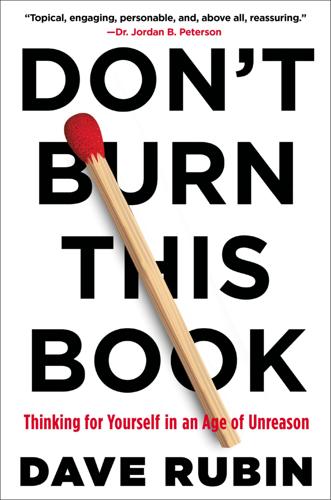
Don't Burn This Book: Thinking for Yourself in an Age of Unreason
by
Dave Rubin
Published 27 Apr 2020
They also suggested boycotting the great Thanksgiving tradition of American football by tackling “the issue of head trauma among current and former NFL players.” Ironically, you can probably get head trauma by reading such drivel. These are tragic examples of a very modern affliction. One that grinds people down into the living embodiment of Debbie Downer from Saturday Night Live—a show that has also become a victim of its own messiah complex. What was once smart, irreverent, and bitingly funny sketch comedy is now angry, resentful, and brittle. Clearly, people are losing their minds and their sense of humor, but more than just our sanity is at stake in the culture war.
…
See leftism/progressivism ProPublica, 99 racism, 18–19, 83–84 against Asian Americans, 143 hate crimes, statistics on, 107–8 systemic (See systemic racism) against white men, 144–45 Raskin, Aza, 200 Reagan, Ronald, 67 Real Time with Bill Maher (TV show), 17–20 redemption narratives, 183 red line in Syria, failure to enforce, 68 Reilly, Wilfred, 107 religious hate crimes, 108 religious stories, need for, 180–84 Republicans = bad, Democrats = good myth, 111–13 reverse psychology, 67 “Reverse Racism Effect, The” (James, James & Vila), 98–99 Review of Income and Wealth, The, 103 Ridley, Matt, 110 Right Side of History, The (Shapiro), 168, 183–84 Rihanna, 146 Roberts, Robin, 156 Rock, Chris, 189 Rogan, Joe, 159 Roose, Kevin, 159–61 Rubin, Artie, 137 Rubin, Ira, 137 Rubin, Isaac, 136–37 Rubin, Jennie, 136–37 Rubin, Miriam, 137 Rubin Report, The, 6–7, 26, 76, 77, 78, 87, 94, 114, 122 Ruffalo, Mark, 127 Russian Hoax, 157–58 Saad, Gad, 87, 139 Salem Witch trials of 1692, 198 Salon, 149 Salzmann, Karl, 199–200 Sanders, Bernie, 69, 156 Sandmann, Nick, 154, 155 Saturday Night Live (TV show), 198 Schedule I controlled substances, 34–35 Sheindlin, Judith (Judge Judy), 146 school choice, 113 Schumer, Amy, 127 Schumer, Chuck, 43–44 Second Amendment, 54–55 second-guessing yourself, 8–9 Selective Service registration, 102 sexism, 83, 84, 144–45 shaming, 8 Shapiro, Ben, 6–7, 39, 78–79, 160–61, 167–68, 183–84 Shepherd, Lindsay, 24–25 Shermer, Michael, 50, 51 Shoot the Damn Dog (Brampton), 203 Shout Your Abortion, 46 silencing of dissent, 22–24 Simpsons, The (TV show), 189 Sinatra, Frank, 125 Skokie, Illinois neo-Nazi march, 1972, 50 slow thinking, 96–97 Smith, Adam, 30–31 Smollett, Jussie, 107, 155–57 socialism, 14 social technology, 200–203 Somalia, 133 “Some Inconvenient Gun Facts for Liberals” (Kristof), 106 Sommers, Christina Hoff, 6–7, 81 Southern Poverty Law Center, 132, 134 Sowell, Thomas, 6–7, 63–64, 65, 95, 112–13 Spiegel, Der, 74–75 Sri Lanka, 101 Starr, Sonja, 102 Stelter, Brian, 157 Stephanopoulos, George, 43 stereotypes, classical liberalism and neutralization of, 31 Stewart, Jon, 134–35 Submission (film), 134 suicides, gun-related, 106 Sweden, 140 Switzerland, 140–41 Syria, chemical assault by, 68 systemic racism, 89–92, 97–100 black shootings of police, statistics on, 99 decline in racial bias, studies indicating, 97–98 diversity in Congress and, 100 Elder interview and, 89–92 homicide rates, 100 police shootings of blacks versus whites, statistics on, 98–99 poverty rates, 99–100 taking rights for granted, avoiding, 131–35 talkpoverty.org, 92 taxation amounts paid, men versus women, 102–3 cigarettes and, 35 tax rates, 64–65 terrorism Charlie Hebdo attack, 20–21 9/11 terrorist attacks, 4–5 Thailand, 140 Thiel, Peter, 6–7, 85 Thinking Fast and Slow (Kahneman), 96–97 Thirteenth Amendment, 112 “This Is America” (song), 146 Three Languages of Politics, The (Kling), 95–96 Thunberg, Greta, 197 Today Show, The, 155 tolerance of opposing viewpoints, 37–39 Top Five Regrets of the Dying, The (Ware), 195–96 trans issues, 59–62 as decision for adults and not children, 59–61 detransition rates, 61 gender dysphoria, children may outgrow, 61 language use and, 61–62 troop withdrawals, 70 Truman Show, The (film), 149 Trump, Donald, 45, 53, 69, 130 Tupy, Marian I., 109 Turner, Ted, 150 12 Rules for Life: An Antidote to Chaos (Peterson), 81–82 Twitter speech guidelines of, 53 trolling on, by women, 101–2 Uighurs, 139 Ukraine, 69 United Kingdom, 69, 101 U.S.
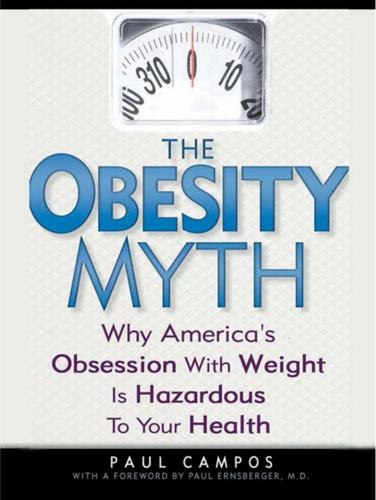
The Diet Myth: Why America's Obsessions With Weight Is Hazardous to Your Health
by
Paul Campos
Published 4 May 2005
Ed Murrow would never be given a news show to host today: His Q rating simply wouldn’t be high enough. Murrow might still do the behindthe-scenes reporting, but his words (suitably edited to take into account the sensitivities of key advertisers) would be put in the mouths of the likes of Deborah Norville and Stone Phillips. Recently, the comedy program Saturday Night Live did an amusing sketch, in which an actor playing the role of Phillips did numerous takes of links introducing segments of Dateline NBC. (“Next, we have a report on dangerous children’s toys,” etc.) The sketch was funny because of its pointed emphasis that journalists like Phillips don’t really do anything: They just stand there looking good, while introducing the work others have done.
…
—BILL CLINTON, APRIL 2002 15 The Feeding of the President E ARLY IN 1994, Hillary Rodham Clinton made a little-noted but fateful decision: She decided her husband needed to lose weight. This decision was in part a reaction to the seemingly endless series of fat jokes that had marked the first year of the Clinton presidency. Who could forget the Saturday Night Live sketch in which Clinton went on a jog with his Secret Service agents, which lasted about two hundred yards before detouring into a McDonald’s? Once inside, Bill gobbled up cheeseburgers and fries belonging to bemused customers, while using the rapidly disappearing food items as props for an impromptu speech about Somali warlords.
…
See also anorexia nervosa and capitalism; feminist fat; presidential fat politics, bimbo culture, 94–95 Polivy, Janet, 39, 45 Pooling Project, 12 Popper, Karl, 222 Portnick, Jennifer, 226 prejudice against fat Anamarie Regino, 103 288 Index prejudice against fat (cont.) feminist fat, 226–27 journalism and obesity, 62 race and obesity, 82, 83, 87–89 presidential fat, 185–98 appearance as everything, 187–88, 192 cheating on diets, sexual transgressions as, 197 Clinton-Lewinsky scandal, 187–98 disgust and fear of fat, 194–96, 197–98 weaknesses represented by, 185–86, 196 White House chefs, 186–87 President’s Commission on the Health Needs of the Nation, 121 Presley, Elvis, xxiii, 79–81, 86 Prevention, 77 Prichard, Leslie and Troy, 102, 103, 104 Primetime Glick, 84 “professor,” feminist fat, 201 profit margins of diet foods, 74–75 Propecia, 116–17 “Protestant Asceticism and the Spirit of Capitalism” (Weber), 228 Protestant work ethic and diet ethic, 228–29, 231, 233 Prozac, 78 “P.S. phenomenon,” 45–46 psychological energy of war on weight, 174 psychology of fat, 223–27 “pundettes,” feminist fat, 200, 201, 202, 216 Purposes of the Heart (Browning), 187–88 Q qualitative food, key to good health, 248–49 R race and obesity, xxiii, 79–89 disgust and fear of fat, 82, 83, 86 Elvis Presley, 79–81 fat suits as blackface, xxiii, 83–86 Michael Jackson, 86–87 prejudice against fat, 82, 83, 87–89 self-hatred, 86–87 social effects of an idea, 82–83 Redbook, 77 Reeves, Keanu, 51 Regino, Anamarie, 99–106 Regino, Miguel, 100, 105 regulatory capture, 34 research funded by diet industry, 43–46, 60, 221–23 risks assessments, mortality of fat, 15–16 dieting, risks from, 32, 34 overweight, risks from, xv–xvi, xxii, xxv, 137–38 Rivera Live, 200 Roberts, Julia, 84 Rocker, John, 249 Russell, Lillian, 49 S Saguy, Abigail, 235 Sarandon, Susan, 250 Satcher, David, 3, 7, 58 Saturday Night Live, 93, 185 scare statistics by journalists, 58–59 Schleib, Walter, 186–87 Schwartz, Hillel, 39 Schwartzenegger, Arnold, 114 Science, 176 science of fat, 3–40, 219–23 assumptions made by studies, 221 dieting, 5, 7–8 fear created by, 39–40 fitness and activity levels, 34–38, 110, 111, 126, 134–35 gastric bypass surgery, 8 health crisis, 3–4 insurance charts, 5, 6, 9–10, 12, 121 life expectancy and weight, 5–7 litigation, fast-food industry, 4 pharmaceutical industry, 8, 33–34, 42–43 premises of, 38–39 variables ignored by studies, 26–38 weight as predictor of health, xxi–xxii, xxv, 4–5 See also anorexia nervosa and capitalism; Body Mass Index (BMI); dieting; diseases and fat; economics of obesity; mortality of fat Index “scientific policymaking,” 60–61 Sebrell, W.
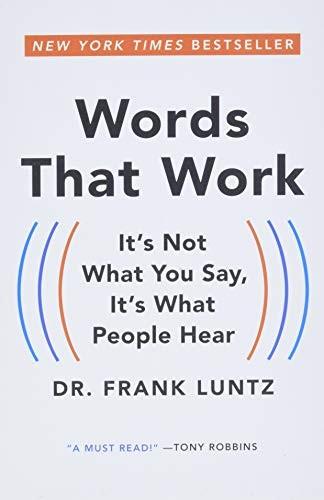
Words That Work: It's Not What You Say, It's What People Hear
by
Dr. Frank Luntz
Published 2 Jan 2007
By the 1988 presidential campaign, when Michael Dukakis was pegged as a liberal by then–Vice President Bush, rather than defend his philosophy or the labeling of it, Dukakis tried to deflect the charge by claming “this election isn’t about ideology; it’s about competence.”15 Apparently Dukakis did not realize that presidential “competence” was, for most voters, both uninspiring and assumed. Saturday Night Live even did a skit called “The Liberal,” a spoof of The Fugitive, in which guest host Matthew Modine was on the run, the last liberal in America, hunted like Dr. Richard Kimble because being a liberal had become, in 1980s America, synonymous with being marked for personal extinction. Competence was not an effective context for a presidential campaign, and being a liberal was exactly the opposite aspiration of millions of voters. Saturday Night Live had a point. The degree to which politicians on the left have fled from the liberal label is striking.
…
As children, it was the word we dreaded most, and as ours increasingly becomes a society of perpetual adolescents, it’s no surprise that, at any age, we don’t take well to being told what we cannot do. Capital One shrewdly picked up on this anti-no sentiment and made it the centerpiece of a series of TV commercials starring David Spade. The ads, a takeoff on a character Spade played in the 1990s on Saturday Night Live, may be annoying and juvenile, but they have fixed the association between the word no and all the competitors to Capital One in viewers’ minds. Capital One owns the antithesis of the word no—and if we’re annoyed by hearing David Spade repeat it again and again in those ads, so much the better—we’ll be more likely to consider doing business with Capital One so that we don’t have to hear it from the other credit card suppliers.
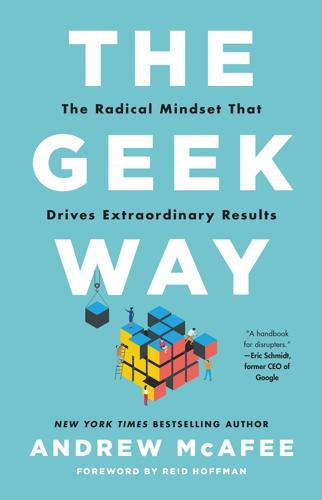
The Geek Way: The Radical Mindset That Drives Extraordinary Results
by
Andrew McAfee
Published 14 Nov 2023
New York Times, November 19, 2022, https://www.nytimes.com/2022/11/19/business/media/att-time-warner-deal.html. 63 Netflix was particularly hard hit: Steve Inskeep and Bobby Allyn, “Netflix Is Losing Subscribers for the First Time in a Decade,” NPR, April 21, 2022, www.npr.org/2022/04/21/1093977684/netflix-is-losing-subscribers-for-the-first-time-in-a-decade. 64 “I wouldn’t bet against Netflix”: Maureen Dowd, “Ted Sarandos Talks About That Stock Drop, Backing Dave Chappelle, and Hollywood Schadenfreude,” New York Times, May 31, 2022, www.nytimes.com/2022/05/28/style/ted-sarandos-netflix.html. 65 “probably a seventy-thirty mix”: Tim Wu, “Netflix’s Secret Special Algorithm Is a Human,” The New Yorker, January 27, 2015, www.newyorker.com/business/currency/hollywoods-big-data-big-deal. 66 As designer Joshua Porter put it: Joshua Porter, “The Freedom of Fast Iterations: How Netflix Designs a Winning Web Site,” UIE, March 25, 2016, https://articles.uie.com/fast_iterations/. 67 “Greed” Hastings: Greg Sandoval, “Netflix’s Lost Year: The Inside Story of the Price-Hike Train Wreck,” CNET, July 11, 2012, www.cnet.com/tech/services-and-software/netflixs-lost-year-the-inside-story-of-the-price-hike-train-wreck/. 68 “Qwikster sounds like a lot of things”: Jason Gilbert, “Qwikster Goes Qwikly: A Look Back at a Netflix Mistake,” HuffPost, December 7, 2017, www.huffpost.com/entry/qwikster-netflix-mistake_n_1003367. 69 Elmo smoking a joint: Greg Kumparak, “The Guy Behind the Qwikster Twitter Account Realizes What He Has, Wants a Mountain of Cash,” TechCrunch, September 20, 2011, https://techcrunch.com/2011/09/19/the-guy-behind-the-qwikster-twitter-account-realizes-what-he-has-wants-a-mountain-of-cash/. 70 odd, amateurish video: “Netflix CEO Reed Hastings Apologizes for Mishandling the Change to Qwikster,” YouTube video, 2011, www.youtube.com/watch?v=7tWK0tW1fig. 71 parodied on Saturday Night Live: “Netflix Apology,” Saturday Night Live, aired October 1, 2011, YouTube video, uploaded September 18, 2013, www.youtube.com/watch?v=0eAXW-zkGlM. 72 Fortune’s Businessperson of the Year: Michael V. Copeland, “Reed Hastings: Leader of the Pack,” Fortune, November 18, 2010, https://fortune.com/2010/11/18/reed-hastings-leader-of-the-pack/. 73 “Qwikster was a dumb idea”: Gilbert, “Qwikster Goes Qwikly.” 74 Man so much to plan: Jay Yarow, “Guy Behind Qwikster Account Wants ‘Bank,’ Will Probably Get Nothing,” Business Insider, September 20, 2011, https://businessinsider.com/qwikster-account-negotiations-2011-9). 75 “I knew it was going to be a disaster”: Reed Hastings and Erin Meyer, No Rules Rules: Netflix and the Culture of Reinvention (New York: Penguin Press, 2020), 141. 76 “Socializing is a type of farming for dissent”: Hastings and Meyer, No Rules Rules, 144. 77 “We are focused on streaming”: Hastings and Meyer, No Rules Rules, 147. 78 As Schendel put it: Hastings and Meyer, No Rules Rules, 147. 79 “I’m just some researcher”: Hastings and Meyer, No Rules Rules, 148. 80 “at Netflix we have pockets”: Hastings and Meyer, No Rules Rules, 270. 81 “innovation, speed, and flexibility”: Hastings and Meyer, No Rules Rules, 271.
…
The name associated with the account was Jason Castillo; the associated image was of Elmo smoking a joint.3 In September, Hastings responded to the mounting criticism by having Netflix post an odd, amateurish video that simultaneously defended the change and sort of apologized for it. In a sure sign that things were going off track in a public way, the video was parodied on Saturday Night Live. By October, the entire Qwikster plan was dropped. Netflix’s stock had dropped by more than 75 percent while it was under consideration and Hastings, who had been Fortune’s Businessperson of the Year in 2010, saw his reputation badly tarnished. As one obituary for the service put it, “Qwikster was a dumb idea.
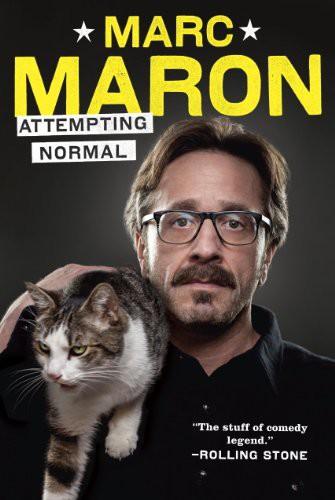
Attempting Normal
by
Marc Maron
Published 28 Apr 2013
One was to be an artist—any kind of artist, preferably a comic. And if I was a comic, I wanted to be on Saturday Night Live. I loved John Belushi and Chevy Chase. Nowadays, that dream doesn’t even make sense to me: I never really did characters other than the one I am becoming and I certainly haven’t watched the show in years. But back in 1994 it almost happened. I had a meeting with Lorne Michaels. Lorne had seen me a couple of times and was considering me for the cast of Saturday Night Live. Along with SNL, Michaels produced Late Night with Conan O’Brien. I had appeared on the O’Brien show the night before the meeting.

I See You Made an Effort: Compliments, Indignities, and Survival Stories From the Edge of 50
by
Annabelle Gurwitch
Published 6 Mar 2014
This is exactly the way I want to go, I said to myself: in a circle of love. By this point she had Paxil, Wellbutrin, morphine, oxycodone and Haldol in her system and still she was totally lucid. “You’re incredibly drug resistant,” someone said. “You should have done heroin!” Okay, I said that. Her first job out of college had been as a page on Saturday Night Live, working with some of the great drug addicts of all time. Oh, the parties she’d excused herself from. If only she’d known. Was this the learn-from-my-life moment? We sat by the bed while Robin dozed on and off for the next few hours, but she wasn’t going under. Every time she stirred, all five of us would jump to help.
…
I couldn’t bear to think of them ending up in an anonymous thrift store, though it’s likely her books, along with the contents of my bookshelves, will end up there one day in the hopefully distant future. If the future is completely paperless, my books, which now include Robin’s copy of Live from NewYork: An Uncensored History of Saturday Night Live in which her name is spelled incorrectly, will spend eternity decomposing in the Puente Hills landfill just outside of Los Angeles County. I left with a few choice bottles of wine in tow. Witnessing the passing of our friends, our pets, and our heroes is increasing in regularity and is giving rise to all manner of negotiations.
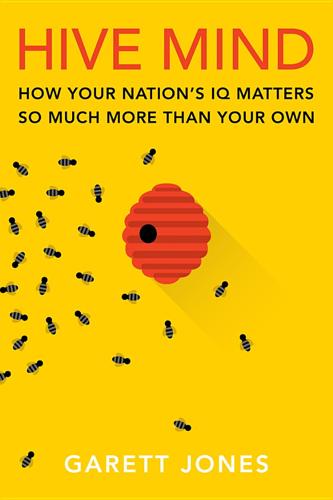
Hive Mind: How Your Nation’s IQ Matters So Much More Than Your Own
by
Garett Jones
Published 15 Feb 2015
It’s a global strategy game, a lot like Risk, with one exception: instead of controlling the nations directly, you’re an investment banker who holds the debt of different countries. And if you hold more of a given country’s debt than any other player, you control that country. It’s hidden control, to be sure—which makes the game all the more interesting. There was even a Saturday Night Live sketch about the power of debtholders in 2009: President Obama meets with Chinese Premier Wen Jiabao, and the premier keeps telling Obama how to run the country. Of course, the president has to listen since the Chinese government and its banks hold so much U.S. debt. You have to listen to your lender.
…
The same could be going on in national governments, even if only accidentally. By having outsiders—lenders from more patient countries—holding a nation’s debt, governments are committing to having some outside monitor keep a sharp eye on the economy and make, well, suggestions for improvement from time to time. A bit like in the Saturday Night Live sketch, the monitor might demand that the indebted nation change its economic policies before getting any more loans.19 If your nation is going to owe money to someone, it’s best to owe money to someone who’d do a good job shaping your country’s economic policies. As we’ll see later, IQ does correlate not only with patience but also with pro-market attitudes, so having lenders from countries with higher test scores will likely give a nation relatively pro-market lenders.
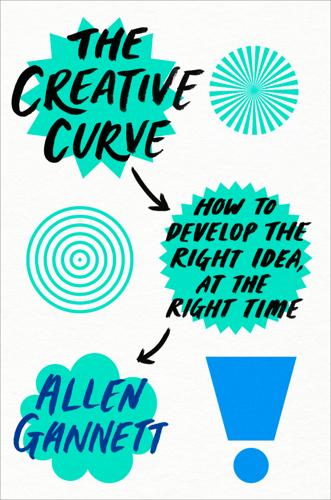
The Creative Curve: How to Develop the Right Idea, at the Right Time
by
Allen Gannett
Published 11 Jun 2018
Moreover, these muses often provide material and the raw ingredients of creativity. Best of all, they don’t have to be purely supportive, either. In fact, as we’ll see, sometimes the best inspiration comes from friendly competition. A Modern Muse For some kids, Saturday Night Live was simply a show that their parents watched. It was for “adults.” But for Hari Kondabolu, Saturday Night Live was a childhood ritual, which isn’t surprising, as he and his friends were obsessed with comedy. “We studied it without really studying it. We didn’t know we were studying it, but we were watching SNL, taping it, rewatching it, watching Conan, taping it, rewatching it, watching stand-ups, listening to stand-up.”

Free-Range Chickens
by
Simon Rich
Published 1 Jan 2008
You gave me more than a place to live last year, and I am forever in your debt. For quality you can taste, choose Fishkill Farms, the last word in premium free-range chicken products. Available at fine markets throughout the New York area. ABOUT THE AUTHOR SIMON RICH was born in New York City in 1984. He has written jokes for Mad magazine, The New Yorker, Saturday Night Live, and The Harvard Lampoon. His first book, Ant Farm and Other Desperate Situations, was published in 2007. ALSO BY SIMON RICH Ant Farm Copyright © 2008 by Simon Rich All rights reserved. Published in the United States by Random House, an imprint of The Random House Publishing Group, a division of Random House, Inc., New York.

Women & Power: A Manifesto
by
Mary Beard
Published 2 Nov 2017
Elizabeth I (or whoever invented her famous speech) knew exactly what the game was when she said she had ‘the heart and stomach of a king’. And it was that idea of the divorce between women and power that made Melissa McCarthy’s parodies of the one time White House press secretary Sean Spicer on Saturday Night Live so effective. It was said that these annoyed President Trump more than most satires on his regime, because, according to one of the ‘sources close to him’, ‘he doesn’t like his people to appear weak.’ Decode that, and what it actually means is that he doesn’t like his men to be parodied by and as women.
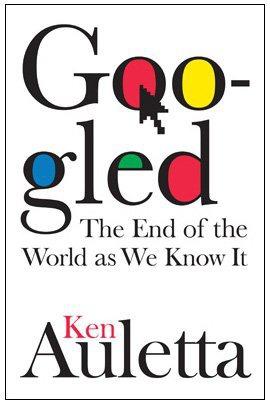
Googled: The End of the World as We Know It
by
Ken Auletta
Published 1 Jan 2009
What visitors viewed on YouTube was mostly “user-generated content,” or short homemade video clips: a pet trick, an artfully told joke, firsthand footage of the devastation from Hurricane Ka trina, Janet Jackson’s “wardrobe malfunction” at the Super Bowl—that users uploaded and sent to YouTube. Increasingly, though, YouTube was expanding its audience with clips from Saturday Night Live and The Daily Show with Jon Stewart, with sports highlights and music videos; these, too, were recorded and shared by users, arousing piracy concerns. The reason YouTube was persuaded to sell, said cofounder Chad Hurley, then twenty-nine, was simple: They feared the site lacked the resources to cope with its explosive growth.
…
“They didn’t value our content at a price point we thought was worthwhile,” said NBC/Universal CEO Jeff Zucker. “They built YouTube on the back of our content, and wouldn’t pay us.” NBC, like other television and cable networks, refused to allow their programs to appear on You Tube, though the network has not loudly protested as YouTube clips boosted the ratings of, for example, Saturday Night Live. Philippe Daumann, the CEO of Viacom and Sumner Redstone’s longtime legal adviser, complained that it was frustrating to negotiate with Google. “Every time we thought we came down to a certain point, they changed their mind,” he said. “And they changed the people in the negotiations. I learned that Google had an interesting management structure.
…
Just as the invention of the telephone crushed the telegraph, so motion pictures crippled vaudeville, television eclipsed radio, cable weakened broadcasting, and iTunes shattered CD music album sales. In some cases, new technologies brought new opportunities. The movie studios, after huffing about television, belatedly discovered a lucrative new platform to sell their movies. Exposure on YouTube has broadened the audience for Saturday Night Live. If advertisers can sell their ads more cheaply and better target them through Google, should they fret that they are harming Irwin Gotlieb’s business? What we don’t know is whether the new digital distribution systems will generate sufficient revenue to adequately pay content providers. David L.

The Fry Chronicles: An Autobiography
by
Stephen Fry
Published 27 Sep 2010
For one excruciating week we all had to undergo a kind of comedy-writing masterclass with Bernie Sahlins, one of the producers of the Second City revue group and television show. Bernie, brother of the anthropologist Marshall Sahlins, was from a tradition of improvisation that he helped create back in the days of Mike Nichols and Elaine May, a tradition that had burst into television and more recently film with the Saturday Night Live generation of Aykroyd, Chase, Murray, Belushi and Radner. Ben wrote alone and wasn’t faintly interested in the styles and techniques of Chicago improv. Hugh and I were pretty appalled too at the idea of ‘building a scene’ through improvisational dialogue in the approved American way. When we wrote together we sometimes did improvise, inasmuch as we made a sketch up out loud as we went along before committing it to paper.
…
I spent almost all of Christmas Day in my hotel room shivering, throbbing and shaking with sunstroke and sunburn, much to the amusement of Billy Connolly and Pamela Stephenson, who were staying in the same hotel. Back in England Hugh and I turned our minds to the Channel 4 show that Paul Jackson had mentioned to us. Seamus Cassidy, the young commissioner at C4, was anxious for something akin to America’s long-running Saturday Night Live. Our show, he decided, was to be called Saturday Live. I thought of him ever after, not unaffectionately, as Shameless Cassidy. Stand-up was taking over the world. Our brand of sketch comedy, it seemed to Hugh and me, was in danger of looking more and more dated as each month passed, certainly as far as the prospect of live TV was concerned.
…
Steven Patrick Morrissey), 324 Mulville, Jimmy, 403–4 Nation, Terry, 218 Neatnews (radio programme), 328–9 Nederlander, James, 411–14, 420 Neil, Mr (grocer), 10–11 Nelson, Admral Horatio, 1st Viscount, 26 Neumann, Martin (SF’s grandfather), 9–10, 28 New Statesman, The (play), 254 New York, 409–16, 420–2 New York Times, 419, 423 Newell, Mike, 353 Newman, Rob, 121 Newsbeat (radio programme), 328 Newton, Sir Isaac, 70 Nichols, Mike, 240 Nightcap (Cambridge Footlights revue), 127–9 Noel Gay Artists (agency), 175, 235–6, 261–2, 291 Noel Gay Music (agency), 359 Norfolk College of Arts and Technology (NORCAT), King’s Lynn, 26, 92 Norton, Graham, 332 Not the Nine O’Clock News (TV programme), 180–1, 193, 207, 209, 239, 383 Nunn, Trevor, 108, 135 Ockrent, Mike: directs Me and My Girl revival, 266–7, 269–70, 338, 340, 349; background, 269; and Stephen Sondheim’s exploitation of SF’s fax machine, 300–1; and Me and My Girl in Australia, 391; and Terry Allen Kramer, 414; in New York with Me and My Girl, 422–3 Oldman, Gary, 150 Olivier, Sir Laurence (later Baron), 93–4, 336, 351–2 Only Fools and Horses (TV programme), 215 Orme, Stuart, 228 Ornstein, Dita (SF’s great-aunt), 422 Orton, Joe: Loot, 346 Oulton, Caroline, 141–3, 152, 388 Oxford, 70–1, 129; see also Playhouse Theatre Oxford and Cambridge Club, London, 377–8 Oxford Theatre Group, 197 Palin, Michael, 71, 129, 348 Palmer, James, 171 Paltrow, Gwyneth, 324 Parker, Alan, 234 Parkinson, Cecil, Baron, 101 Parkinson, Sir Michael, 138 Pascal, Blaise, 226 Paston School, North Walsham, Norfolk, 26 Paxman, Jeremy, 139 Perrier Award (Edinburgh Festival), 20, 199, 202, 210 Perry Mason (US TV series), 416–17 Philips (schoolboy), 40–2 Pinter, Harold: friendship with Simon Gray, 46–7; watches cricket, 52; social awkwardness, 53; smoking, 57; David Aukin produces, 268 Playhouse Theatre, Oxford, 195 Plowman, Jon, 210–11, 213 Plunkett, Maryann, 416, 418, 424 Poliakoff, Stephen: City Sugar, 134 Pols, Bob, 92 Pope-Hennessy, James, 49 Popplewell, Oliver, 32 Posner, Geoff, 396 Potter, Dennis, 268; The Singing Detective, 353 Powell, Enoch, 102 Praed, Michael, 258 Prince, Hal, 300 Prince, Peter, 353 Pringle, Derek, 146 Private Function, A (film), 348 Producers, The (Mel Brooks and Thomas Meehan; play and stage musical), 423 Pucklechurch, Gloucestershire, 27, 30, 360 Puttnam, Sir David (later Baron), 147–8, 234, 298 QI (TV programme): publicity, 55; taping, 63 Queen’s Head (bar), Chelsea, 221 Queen’s Theatre, London, 340, 344, 346 Quiller-Couch, Sir Arthur, 318 Quinton, Anthony, Baron, 335 Rand, Ayn: Atlas Shrugged, 303–4 Rashbrook, Stephen, 336 Rattigan, Sir Terence, 337 Ravens, Jan, 144, 191 Reagan, Ronald, 188, 201 Redgrave, Sir Michael, 95, 108, 183 Redmond, Siobhan, 211, 239, 241 Reeves, Vic, 296 Regent Square, Bloomsbury, 340 Reitel, Enn, 291, 415 Rice, Matthew, 337–8, 357 Rice, Peter, 337 Rich, Frank, 419, 422–3 Richard, Sir Cliff, 324 Richardson, Charles, 394 Richardson, Christopher, 130, 196 Richardson, Miranda, 382, 384 Richardson, Peter, 214 Ridley, Nicholas, Bishop of London, 70 Rising Damp (TV sitcom), 207 Roberts, Michael, 308, 310 Robinson, Robert, 139 Robinson, Tony, 382, 384 Rolfe, Frederick see Corvo, Baron Rose, Arthur, 268 Rosen, Ralph, 423 Rosengard, Peter, 208 Ross, Jonathan, 6 Ross, Sandy, 210–11, 213, 229, 241 Rossiter, Leonard, 346 Rumney, Peter, 122, 126 Russell, Bertrand, 69, 185, 335 Rylands, George (‘Dadie’), 95 Sachs, Andrew, 332 Sahlins, Bernie, 240–1 Sahlins, Marshall, 240 St Mark’s Rise, Dalston, 365 Sands, Bobby, 201 Sarchet, Tony, 331 Sassoon, Siegfried, 176 Sastry, Sunetra (Mrs Rowan Atkinson), 387–8 Saturday Live (TV programme), 391, 394–7, 402, 409 Saturday Night Live (TV programme), 240 Saunders, Jennifer, 209, 214, 296, 364 Savident, John, 297 Sax, Geoffrey, 254 Sayle, Alexei, 205–7, 209, 239 Sayle, Linda, 206 Scargill, Arthur, 201 Schlesinger, John, 401 Schlesinger, Paul, 189 Scofield, Paul, 164 Scotsman, The (newspaper), 127, 155–6 Scott, Ridley, 234 Scott, Tony, 234 Scott’s Porage Oats, 19 Sessions, John, 44, 46, 49, 252 Sewell, Brian, 319, 332 sex: and smoking, 24–5 Shakespeare, William, 85–6, 94; All’s Well That Ends Well, 149; Love’s Labour’s Lost, 188–9, 282; Macbeth, 135–6; The Tempest, 113–16, 136, 160 Shand, Neil, 333 Shaw, George Bernard, 57 Shearer, Paul: in Alfresco, 20; in Footlights revue, 172, 190, 192; Armitage signs up, 194, 262; and Elton’s The Young Ones, 210; and televising of The Cellar Tapes, 214; leaves There’s Nothing to Worry About, 229; in The Crystal Cube, 297 Shepherd, Peter, 306 Sherlock Holmes Society of London, 19 Sherriff, R.C., 60 Sherrin, Ned, 329–30, 333–4 Short Circuit (film), 88 Short, Nigel, 81 Simpkin, Paul, 176 Sinclair, John Gordon, 44, 48–9 Skeat, W.W., 89 Slattery, Tony, 155, 190, 213–14, 259, 262, 332 Smith, Arthur, 332 Smith, Dame Maggie, 348 Smith, Mel, 180, 209, 247, 296 Smith, Sir Paul, 293 smoking: SF’s addiction to, 23–30, 33–4, 37–40, 50, 56–8; and sex, 24–5; Simon Gray’s addiction to, 44–5, 50, 57; SF gives up, 53–6, 58–9, 62–3, 424 Snow, Greg, 176 Softley, Ian, 113–15, 136 Sondheim, Stephen, 300–5 Sophocles: Oedipus Rex, 121–2, 124, 126–7 Southgate Road, London, 352, 354, 363 Speak, Peter, 82–3 Spearing, A.C., 78 Speight, Johnny, 402 Spenser, Edmund, 106 Spitting Image (TV programme), 383, 394 Stamp, Gavin, 319 Stebbing Park, Essex, 258, 296 Stevenson, Pamela, 391 Stewart, Patrick, 93 Stiller, Jerry, 61 Sting (born Gordon Sumner), 324 Stoker, Bram: Dracula, 190, 205 Stone, Adam, 176 Stoppard, Sir Tom, 52–3, 57, 64; Travesties, 97, 152 Stormbreaker (film), 255 Stouts Hill (school), 11, 13 Strachey, Lytton, 69 Sturridge, Mary-Lou, 406 Suchet, David, 191 sugar beet, 10 Sugar Puffs (cereal), 6–8, 10–11, 19 Sullivan, John, 215 sweets and chocolate, 12–17, 19–20 Swinnerton-Dyer, Sir Peter, 157 Swinton, Tilda, 181–2, 259 Sykes, Eric, 215 Symons, Nick, 342, 353, 363, 365 Tafler, Jonathan, 127, 135–6 Tandy, Jessica, 417 Tatler (magazine), 299, 306, 308–10, 318–20, 324 Taylor, Barry, 114, 136, 149–52 Temple, John G., 241–2 Temple, Julian, 250 Tennant, David, 90 Terrence Higgins Trust, 393 That Was The Week That Was (TV programme), 329 Thatcher, Carol, 332–3 Thatcher, Margaret, Baroness, 83, 201, 208, 294–5, 328, 333, 380 There’s Nothing to Worry About (TV sketch show), 20, 228–9, 238, 280, 373 This Is David Harper (earlier This Is David Lander; TV programme), 332, 356, 404 Thompson, Emma: at Cambridge, 20, 98–101, 128, 143–4, 149, 152, 166, 172, 190, 192; sees Latin in Edinburgh, 156; Armitage signs up, 175, 262; in Memoirs of a Fox revue, 181; background, 208; writes for Granada show, 210; natural gifts, 213; and televising of The Cellar Tapes, 214; performs in Ben Elton sketches, 228, 239; visits Richard Armitage, 258; in The Crystal Cube (TV programme), 297; moderates work commitments, 321; plays in Me and My Girl, 343, 348 Thompson, Eric, 98 Thornton, Frank, 338, 348 Time Out (magazine), 208, 299 Tinguely, Jean, 152 Toksvig, Sandi, 144 Tolkien, J.R.R., 92 Tolkin, Michael and Stephen, 250–2 Trueman, Brian, 138 Trueman, Fred, 54 Truss, Lynn, 299 Tune, Tommy, 420 Twisk, Russell, 299, 319 Two Ronnies (Ronnie Barker and Ronnie Corbett), 209 United Artists (film corporation), 145 United States of America: SF visits, 59–60, 409–19; SF makes TV travel series on, 63 University Challenge (TV show), 137; parodied, 246–7 Uppingham School, 18–19, 33, 91, 130, 196 Ustinov, Sir Peter, 270 Valentine, Jeremy, 32 Varney, Reg, 336 Wade, Joanna, 154 Wagner, Richard, 82; Ring Cycle, 165 Walker, Mike, 349 Walter, Harriet, 353 Ward, Don, 208 Waugh, Evelyn, 31, 129 Webb, Robert, 121 Webber, Andrew Lloyd, Baron, 160, 258 Webber Douglas Academy, 193 Weiland, Paul, 234–7 Welland, Colin, 145, 352 Welles, Orson, 238 Whalley, Joanne, 353 Whim (burger bar), Cambridge, 177–8 Whitbread (brewers), 234–8 Whitehouse, Paul, 366, 394, 402 Who Dares Wins (TV programme), 403–4 Who Do You Think You Are?
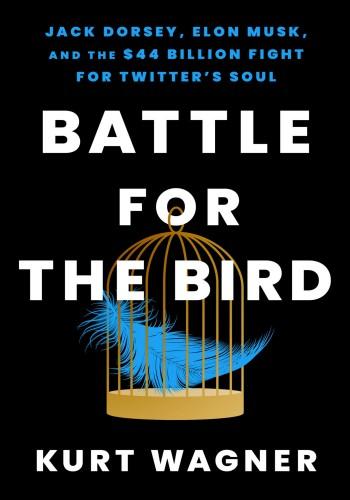
Battle for the Bird: Jack Dorsey, Elon Musk, and the $44 Billion Fight for Twitter's Soul
by
Kurt Wagner
Published 20 Feb 2024
At fifty-one years old with a bald head, black rectangular glasses, and a quick wit, Costolo was both incredibly funny and easy to talk to, which made him almost universally well liked in the world of corporate America. In his twenties, he’d dreamed of a career in comedy, performing improv with the likes of Steve Carell at Second City in Chicago. He even auditioned twice for Saturday Night Live before tossing away the dream and diving into tech. Costolo started multiple companies and eventually sold a startup to Google for $100 million in 2007. A few years later, in 2009, he joined Twitter as chief operating officer, and was promoted to CEO just one year later. As Twitter grew from a couple hundred employees to several thousand under his watch, Costolo still felt accessible, joining regular CrossFit classes in the office with junior employees and earning respect by remembering almost every employee by name (at least until head count started creeping above two thousand people).
…
Bluesky, April 28, 2023, 6:13 p.m., https://bsky.app/profile/jack.bsky.social/post/3juhx7ctgsk2k. “I think so… differently and better”: Casey Newton, “Inside Twitter’s Emotional Friday All-Hands,” Platformer, April 29, 2022, https://www.platformer.news/p/inside-twitters-emotional-friday?s=w. CHAPTER 1: JACK IS BACK He even auditioned twice for Saturday Night Live: “Dick Costolo: How Twitter’s CEO Jumpstarted a Social Media Revolution,” Bessemer Venture Partners, March 2, 2023, https://www.bvp.com/wish-i-knew/dick-costolo. was promoted to CEO just one year later: Michael Arrington, “Oh, RSS Is Definitely Dead Now: Feedburner CEO Dick Costolo to Become Twitter COO,” TechCrunch, September 2, 2009, https://techcrunch.com/2009/09/02/oh-rss-is-definitely-dead-now-feedburner-ceo-dick-costolo-to-become-twitter-coo/.
…
A ABC, 199 Adeshola, TJ, 87, 103 advertising, 277 civil rights groups and, 238, 240 direct response, 119–20, 152 on Facebook, 120, 152, 234, 238 advertising on Twitter, 2, 5, 10–11, 33, 47–50, 53, 59, 72, 86–87, 108, 111, 119–20, 147, 152–53, 157, 164, 187, 188, 199, 218, 228, 258, 272, 276, 279, 289 Musk and, 232–36, 238–40, 243, 245–46, 248–52, 254, 264, 267, 284–85 Affleck, Ben, 57 Africa, 86–89, 91, 97, 103, 107–8, 139, 140 Agrawal, Parag, 5–6, 87, 88, 126, 143–44 executives fired by, 193, 199, 201 Mudge and, 207 Musk and, 148, 158, 159, 161–65, 180–81, 190, 191, 195, 199, 200, 202, 210, 220 Musk’s firing of, 221 as Twitter CEO, 143–48, 151–53, 157, 159, 161, 165, 180–84, 187, 190–93 and Twitter’s lawsuit against Musk, 202 Ahrendts, Angela, 24 Airbnb, 101 Ai Weiwei, 20 Al Adham, Mo, 82–83, 119 Alexander, Ali, 73, 284 Alibaba, 102 Allen & Company, 37 annual retreat of, 198–200 All-In, 190–91, 282 Al-Mahmoud, Mansoor Bin Ebrahim, 277 Alphabet, 4, 148 Amazon, 3, 24, 33, 37, 50, 62, 106 Alexa, 81 Web Services, 24 Amnesty International, 59 Andreessen, Marc, 205–6 Andreessen Horowitz, 186–87, 205–6, 217 Anti-Defamation League, 232, 238 antisemitism, 56, 232, 268, 284–85 AOL, 14, 24 Apple, 3, 24, 37, 50, 91, 233, 254, 285 App Store, 32–33 iPhone, 21, 152 iTunes, 16 Apprentice, The, 44 Arab Spring, 4, 10, 38 Ardern, Jacinda, 85 Argentina, 99 Armstrong, Tim, 24 artificial intelligence, 287 AT&T, 99 Athenahealth, 99 Atlantic, 209 Axel Springer SE, 160 B Babylon Bee, 153–54, 179, 271 Bain, Adam, 23, 25, 37, 40, 48 Baker, Jim, 124 Bankman-Fried, Sam, 174, 185 Baron Cohen, Sacha, 171 Barstool Sports, 138 Barton, Joe, 76–77 Bates, Tony, 24 Benioff, Marc, 35–36, 38, 158–59 Benson, Guy, 71, 72 Berland, Leslie, 65–67, 73, 195, 205, 213–14, 218, 236, 239, 280 Berlin, Erik, 240–42 Beykpour, Kayvon, 34, 81–83, 87, 119–21, 141, 152, 205, 224 firing of, 193, 199, 201, 224 Bezos, Jeff, 24, 50, 81, 199 Biden, Hunter, 123–25, 180–82, 220, 270 Biden, Joe, 123–24, 126–27, 206, 248, 270, 286 Bieber, Justin, 163 Biles, Simone, 92, 153 Bilton, Nick, 20 Birchall, Jared, 159, 161, 189, 217, 260 Bitcoin, 5, 88, 137–43, 147, 206, 209 Blackburn, Jeff, 37 Blackburn, Marsha, 72 Black Lives Matter, 4, 34, 46 Blair, Tony, 253 blockchain, 88, 139, 144, 176, 185 Blogger, 15, 19 Bloomberg, 33, 100, 206 Bluesky, 88, 136–37, 141, 142, 144, 288–89 Boko Haram, 92 Boring Company, 171, 176, 186, 217, 231, 281 Borrman, Brandon, 125 Box, 277 Brady, Tom, 95 Brand, Dalana, 103 Bravo, Orland, 185 Brazil, 223 Bridgewater Associates, 85 Brown, Michael, 46, 85 Buffett, Warren, 198 Burisma, 123, 270 Burke, Steve, 37 Bush, George W., 99, 253 Bush, Jeb, 45 Bush, Jonathan, 99 Business Insider, 193 ByteDance, 80 C Café Milano, 71–73 Calacanis, Jason, 174, 186, 190, 209, 217, 234, 282 Cape Coast Castle, 87 Carell, Steve, 9 Carlson, Tucker, 284 Carter, Flora, 138 CBS, 33, 162 CDC, 112, 113 celebrities, 10, 25, 57–59, 74, 92, 138, 141, 229, 250 Chancery Daily, 202–3 Chappelle, Dave, 273–74 Charlottesville white supremacist rally, 51, 59, 75 Charter Communications, 202 Chastain, Jessica, 57, 58 Chen, Jon, 225, 259 China, 196, 220 Christchurch mosque shootings, 85 Christie, Ron, 73 Cisco, 24 Citadel, 160 civil rights groups, 238, 240 Clinton, Hillary, 20, 34, 41, 42, 47–48, 50, 72, 86, 124 Clubhouse, 119 CNBC, 100, 224 CNN, 51, 72, 275 Coby, Gary, 48–49 Coca-Cola, 47 Code Conference, 47 Cohn, Jesse, 95, 99–101, 104–9, 143, 147, 156 Color of Change, 238 Comcast, 37, 198–99 Compaq Computer, 168 Compton, Kyle Wagner, 202 Congress, U.S., 83, 127, 134 Dorsey’s testimony before, 76–78, 125, 137–38, 140 conservatives, Republicans, 71–77, 84, 114, 125, 181, 196, 248, 269, 270, 284 conspiracy theories, 75, 233, 248 Consumer Price Index, 186 Conway, Kellyanne, 116, 272 Cook, Tim, 50 Cooper, Bradley, 25 Cornet, Manu, 215, 227–28 Costolo, Dick, 9–12, 20, 21, 53, 105, 181 Covid-19 pandemic, 106–8, 110–13, 115, 117–20, 124, 141, 142, 146, 147, 152, 153, 193, 196, 230, 232, 245, 267, 284 Cramer, Jim, 100 Crawford, Esther, 230–31, 242, 288 Crowell, Colin, 52, 84 Cruz, Ted, 45, 125 cryptocurrencies, 144, 172, 174, 176, 185 Bitcoin, 5, 88, 137–43, 147, 206, 209 Dogecoin, 176 Cue, Eddy, 37 Culbertson, Lauren, 84 Currie, Peter, 23, 25 Curtis, Jamie Lee, 57 D Daily Mail, 224 Dalio, Ray, 85 Daly, Carson, 31 DARPA, 206 Davis, Dantley, 119 Davis, Steve, 176, 217, 231, 237–38, 281 Deadmau5, 138 Defense Department, 206 Delaware Court of Chancery, 200–210 Dell, 101 Democrats, 73, 77, 83, 84, 92, 114, 127, 196, 248 DeSantis, Ron, 173 Dictator, The, 171 Dillon, Seth, 154 Diplo, 142 Disney, 36–38, 96, 177, 199, 285 Dispatch Management Services, 13–14 DNet, 14 Dogecoin, 176 Döpfner, Mathias, 160 Dorsey, Jack, 21–25, 223, 288–89 Africa trip and plans of, 86–89, 91, 97, 103, 107–8, 139, 140 Analyst Day and, 118–22 Bitcoin as interest of, 5, 88, 137–43, 147, 209 Bluesky service of, 88, 136–37, 141, 142, 144, 288–89 at Café Milano dinner, 71–73 celebrities and, 25, 74, 138, 141 childhood of, 12–13, 66, 110 as coder, 13, 16, 139 as college student, 13 in congressional hearings, 76–78, 125, 137–38, 140 conservative outreach of, 71–74 Covid-19 pandemic and, 110, 112 early internet use of, 13 Elliott Management and, 96, 99–109, 118, 121, 143, 145–47, 156, 157, 228, 273, 289 first tech job of, 13 forty-second birthday of, 79 Gadde and, 53, 54, 84, 129–30, 172–73, 180–82 as introvert, 12, 15, 26, 66, 101 Kidd and, 13–15 lifestyle of, 26, 64–65, 79–80 Loomer and, 77, 140 management style of, 19, 31–32, 85–86, 109, 142, 182 meditation practice of, 26, 64, 66, 79, 86, 90 Miami trip of, 138–41 move to New York, 13–14 move to San Francisco, 14 Mudge and, 206–7 Musk and, 1–3, 68, 92–94, 103–4, 109, 142, 148, 155–57, 159, 161, 165, 172–73, 176, 179, 80–81, 186, 194, 209–10, 244–45, 263, 288–89 and Musk’s acquisition of Twitter, 1–3, 5, 176, 179, 180–82, 186, 210, 244–45, 288, 289 at Odeo, 15–17 political views of, 73 Rogen and, 58–59 as Square CEO, 12, 21–23, 25, 26–27, 74, 86–88, 96, 97, 100, 101, 105, 139, 141, 145, 147 STAT.US idea of, 14 Storytime and, 110, 182 on Today show, 31, 32 travels and meetings in 2019, 85 Trump and, 46–47, 49–50, 54, 73, 84 “Trust” email of, 40–41 Twitter acquisition bids and, 35–41 Twitter Blue and, 228 Twitter board’s relationship with, 3, 101, 109, 145, 176, 182, 194 as Twitter CEO, 4, 9–12, 18–25, 26–29, 31–32, 35, 37–38, 40, 45, 54, 76, 79, 80, 96, 97, 100–109, 110, 118, 126, 135, 141, 143–45, 147–48, 153, 169, 182, 261 as Twitter chairman, 19, 20, 147 Twitter content moderation policies and, 54, 56, 58–61, 71–72, 112, 125, 129, 130, 135–37, 140, 155–57, 181–82, 268, 272–73, 288 Twitter Files and, 272 and Twitter lawsuit against Musk, 205 Twitter resignation of, 141–48, 151, 155, 156, 161, 273 at Twitter retreats, 28–30, 64–68, 85–86, 90–94 and Twitter’s banning of Trump, 130, 132, 133, 135–37, 147 Twitter’s transition from idea to company as viewed by, 1–2 Twitter three-year business plan and, 119–21 Dorsey, Marcia, 27, 64, 66, 73, 76, 90, 135 Dorsey, Tim, 66, 73, 90, 135 Dot Collector, 85 Dotcom, Kim, 267, 277 Duke, David, 51 Duncan, Jeff, 77 Durban, Egon, 101–6, 108, 157, 158 Duysak, Bahtiyar, 61–62 Dweck, Carol, 28 E eBay, 99–100, 169 Edgett, Sean, 117, 221 Ehrenpreis, Ira, 162 elections2016 presidential, 34, 41, 42–52, 61–63, 77, 86, 114, 124, 125 2020 presidential, 73, 87, 111, 113–16, 118, 123–29, 131, 152, 270, 284 2022 midterm, 238, 243, 248, 254 Eli Lilly, 253–54 Elliott Management, 95–109, 118, 121, 126, 143, 145–47, 156, 157, 158, 228, 273, 289 Ellison, Larry, 163, 175, 177, 185, 186, 205, 209 ElonJet, 266, 275 email, 136 engineers, 217–18, 224–26, 243, 247, 261–65 Erdogan, Recep Tayyip, 277 ESPN, 38 Ethiopia, 87–88 Ezekwesili, Obiageli “Oby,” 92 F Facebook, 23, 28, 29, 32, 33, 36, 50, 57, 75, 77, 78, 80, 81, 85, 91, 106, 112, 119, 137, 158, 177, 277 advertising on, 120, 152, 234, 238 revenues of, 4, 98, 148 size of, 10 stock of, 98 Trump and, 49, 51–52, 134, 135 Falck, Bruce, 67, 90, 119–21, 152–53, 205 firing of, 193, 199, 201 FBI, 270 Federal Trade Commission, 177, 207, 208, 258–60, 281 Ferguson protests, 45–46, 85 Fidelity, 279 Fiorina, Carly, 45 Flores, Mayra, 196, 197 Floyd, George, 117 Fogarty, Marianne, 259 Ford Motor Company, 238, 239 Fortune, 35 Fox, Martha Lane, 98, 158, 161 Fox & Friends, 116 Fox News, 71, 73, 116, 271, 284 free speech, 2, 5, 46, 47, 53–54, 59, 60, 154–57, 173, 196, 238–40, 246, 268, 269, 271, 275, 278, 284, 288 Fridman, Lex, 277, 279 Friedberg, David, 282 FriendFeed, 158 Frohnhoefer, Eric, 261–62 FTC, 177, 207, 208, 258–60, 281 FTX, 174, 185 Fuentes, Nick, 284 G Gadde, Vijaya, 37, 46, 53, 54, 60, 84, 117, 128–29, 132, 172–73, 192, 199 Biden laptop story and, 124, 125, 180–82, 220 Musk and, 180–81, 220–21 Musk’s firing of, 221–23 Trump ban and, 129–30, 135, 220 Gates, Bill, 95 Gates, Melinda, 153 G-Eazy, 138 General Electric, 198–99, 239 Ghana, 87, 99 Ginsburg, Ruth Bader, 201 Giuliani, Rudy, 123, 124 Gizmodo, 74–75 Glass, Noah, 17–18 Goldman, Jason, 5, 289 Goldman Sachs, 30, 37, 99, 104, 105, 178 Goodell, Roger, 33, 235, 240 Google, 3, 4, 9, 15, 24, 25, 37, 50, 99, 106, 120, 136, 137, 148, 158, 177, 234 GoPro, 24 Gracias, Antonio, 217, 226, 237, 260 Graham, Donald, 199 Graham, Lindsey, 125, 134 Graham, Paul, 277 Greene, Marjorie Taylor, 232–33 Greenfield, Ben, 79–80 Griffin, Ken, 160 Grimes (musician), 274–75 Grimes, Michael, 185, 188, 209 Gross, Andy, 257 Grutman, David, 138, 139 H hackers, 13, 206, 207, 258, 267 Hamas, 286 Hannity, Sean, 73 Harris, Kamala, 153 Harvey, Del, 52–54, 60, 67, 112, 117, 129, 132, 133 Hatching Twitter (Bilton), 20 hate speech, 38, 71, 114, 232, 233, 238, 245 Hawkins, Tracy, 231 Hayes, Julianna, 225, 259 Health and Human Services Department, 153 Ho, Ed, 60 Hoffman, Reid, 185 Horizon Media, 234 House Energy and Commerce Committee, 137 Huffington, Arianna, 45 Hulu, 24, 36 Hurricane Harvey, 92 I IBM, 285 Iger, Bob, 36, 38–39 Instagram, 29, 33, 39, 57, 80, 82, 98, 141, 275, 277, 278, 286, 287 International Space Station, 10, 91, 142 IPG, 238 iPhone, 21, 152 Iraq, 20 Isaacson, Walter, 151, 159, 214, 227, 281 ISIS, 11 Israel, 286 iTunes, 16 J James, LeBron, 34 Jamil, Jameela, 92 January 6 United States Capitol attack, 127–29, 131–33, 134–35, 197, 284 Jassy, Andy, 24, 25 Jay-Z, 1, 74, 204 Jeremy’s, 16 Jobs, Laurene Powell, 103 Jobs, Steve, 16, 103 Johnson, Peggy, 37 Jolly, David, 61 Jones, Alex, 75–77 JP Morgan, 178 Justice Department, 177, 206 K Kaiden, Robert, 237 Kardashian, Kim, 184 Kennedy, John F., 184 Kennedy, Trenton, 125 Kessler, Jason, 75 Kidd, Greg, 13–15 Kieran, Damien, 259, 281 Kilar, Jason, 24 Killian, Joseph, 280–81 Kim Jong-un, 54–55, 63 King, Gayle, 162, 173–74, 209 King, Stephen, 229 Kirk, Charlie, 73 Kissner, Lea, 259, 281 KKR, 201 Koenigsberg, Bill, 234–35 Kordestani, Omid, 24, 25, 37, 39, 74, 95, 97–99, 104, 108 Kraft, Robert, 204 Krishnan, Sriram, 217 Ku Klux Klan, 51 Kushner, Jared, 277 Kutcher, Ashton, 10 L Labor Department, 244 Lady Gaga, 91 Lamar, Kendrick, 210 Lauer, Matt, 31 Lawdragon, 202 Legend, John, 92 Leib, Ben, 261, 262 Lemkau, Gregg, 99, 101–2, 104, 105 Levchin, Max, 169 Levie, Aaron, 277 Levine, Rachel, 153–54 LinkedIn, 35, 37, 185 Lively, Blake, 184 Lonsdale, Joe, 160, 173 Loomer, Laura, 77, 140 López Obrador, Andrés Manuel, 134 Lord, Sierra, 87 Lucasfilm, 38 M Macron, Emmanuel, 85, 134–35, 266, 267 Mad Money, 100 Maheu, JP, 67, 235, 236, 239 Mars, 169–71, 183, 196, 200, 256, 271, 274 Massachusetts Institute of Technology, 14 Mastodon, 248, 275, 277 Maxwell, Ghislaine, 253 Mayer, Kevin, 36 Mayweather, Floyd, 138 Mbappé, Kylian, 277 McCain, John, 42 McConnell, Mitch, 116 McCormick, Kathaleen, 203, 204, 207–9 McGowan, Rose, 56–59, 71 McKelvey, Jim, 21 Mckesson, DeRay, 46 Merkel, Angela, 134 Merrill, Marc, 174 Messi, Lionel, 277 Messinger, Adam, 34 Meta, 3, 91 Met Gala, 184–86, 191 MeToo movement, 4 Miami, FL, 138–41, 190 Microsoft, 24, 35, 37, 136, 233 Middle East, 4, 10, 38 midterm elections of 2022, 238, 243, 248, 254 Milano, Alyssa, 57 Mindset (Dweck), 28 Minneapolis protests, 117–18 Monroe, Marilyn, 184 Montano, Mike, 87 Morgan Stanley, 107, 174, 185 Mudge, 206–9, 222 Mujica, Maryam, 43 Murdoch, Rupert, 198 Musk, Andrew, 217, 226, 262 Musk, Elon, 50, 67–68, 103–4, 142, 166–71, 206 advisors of, 216–17, 224, 226, 282 Agrawal and, 148, 158, 159, 161–65, 180–81, 190, 191, 195, 199, 200, 202, 210, 220 Agrawal fired by, 221 at Allen & Company retreat, 198–200 Boring Company of, 171, 176, 186, 217, 231, 281 Calacanis and, 174, 186, 190, 209, 217, 234, 282 at Chappelle’s show, 273–74 childhood of, 166–68 children of, 171, 214, 216, 222, 234, 274, 283 college years of, 168 Dorsey and, 1–3, 68, 92–94, 103–4, 109, 142, 148, 155–57, 159, 161, 165, 172–73, 176, 179, 180–82, 186, 194, 209–10, 244–45, 263, 288–89 Dorsey and Twitter acquisition of, 1–3, 5, 176, 179, 180–82, 186, 210, 244–45, 288, 289 Ellison and, 175, 177, 185, 186, 205, 209 engineers and, 217–18, 247, 261–65 Gadde and, 180–81, 220–21 Gadde fired by, 221–23 journalists suspended by, 275, 276, 278 at Met Gala, 184–86, 191 move to Canada, 168 net worth of, 151, 171, 186, 189, 191, 192 Neuralink company of, 171 “pedo guy” tweet of, 93, 162, 172, 204 political views of, 196, 197, 217, 248 private plane of, 266–67, 275–76 Riley and, 154, 157, 179 Roth and, 222–23, 271–72, 287 sense of humor of, 162, 171–72, 182, 194, 213, 247–48 sexual harassment allegations against, 193–95 sink stunt of, 213, 218, 220, 251, 280, 282, 283 SpaceX company of, 2, 142, 151, 169–72, 186, 193, 200, 217, 226, 257, 260, 264, 266, 278, 281–82, 288 stalker and, 274–75 Taylor and, 158–59, 164–65 Tesla company of, see Tesla text messages of, 208–10 Trump reinstatement and, 234–35, 238, 239, 267–69, 278 Twitter acquired by, 1–6, 171–79, 180–97, 210, 213–15, 217, 221, 222, 224, 241, 244–45, 269, 271, 275, 277, 279, 287–89 Twitter acquisition as idea for, 154, 157, 164, 165 Twitter acquisition termination attempt, 5, 189–91, 195, 199–210, 213 Twitter advertising and, 232–36, 238–40, 243, 245–46, 248–52, 254, 264, 267, 284–85 Twitter all-hands meeting held by, 255–56, 259, 260, 262 Twitter Blue and, 218–19, 228–30, 249–55, 260, 285 Twitter board of directors and, 103–4, 109, 156–65, 173, 175, 177–79, 186, 200, 210, 221, 281 Twitter content moderation and, 154–57, 160, 196, 222–23, 225, 233, 238–40, 243–46, 249, 266–72, 275–78, 284, 288 Twitter criticized by, 5, 164, 172–73, 175, 181, 190, 192, 195, 244 in Twitter due diligence meeting, 187–88 Twitter employees fired by, 262–63 Twitter employees’ view of, 162–63, 183, 193–97, 219, 241, 244–45, 264 Twitter Files and, 269–72 Twitter investment of, 151, 155, 157–61, 168, 173, 174, 179, 195, 199 Twitter lawsuit against, 200–210, 213, 221, 222, 269, 280 Twitter layoffs under, 196, 197, 216, 224–27, 231, 236–37, 240–45, 247, 254, 258–60, 264 Twitter office spaces turned into hotel rooms by, 280–81 Twitter #OneTeam appearance of, 92–94 Twitter plans and vision of, 174–75, 194–97, 217–18, 256–57, 269, 283–84, 287 in Twitter Q&A session, 194–97 Twitter remote workers and, 196, 197, 216, 226, 252, 255, 257, 260, 264 Twitter rent payments not paid by, 280 Twitter resignation poll conducted by, 278–79 Twitter senior leaders ousted by, 221 Twitter servers cut by, 280 Twitter under ownership of, 213–31, 232–46, 247–65, 266–82, 283–89 as Twitter user, 93–94, 103–4, 148, 151, 154–55, 159, 162–64, 171, 172, 181, 188–91, 194, 195, 215, 219, 220, 223, 225, 233–36, 240, 244, 245, 247–49, 255, 261–62, 267–68, 271–72, 274, 277, 278, 281, 284–87 work habits and expectations of, 227, 230, 257, 258, 260, 263, 265 at World Cup, 276–78 X.com company of, 169, 186, 283 Zip2 company of, 168–69, 227 Zuckerberg and, 287 Musk, Errol, 167 Musk, James, 217, 226, 262 Musk, Justine, 168, 169 Musk, Kimbal, 163, 168, 281 Musk, Maye, 166–68, 184, 185, 234 Musk, X, 214, 216, 222, 234, 274, 283 Myanmar, 78–79 N NAACP, 238 Nadella, Satya, 37 NASA, 10, 90–91 Navaroli, Anika, 131 Nawfal, Mario, 267 NBA, 33, 34, 235 NBC, 33, 53, 239 NBCUniversal, 37, 198–99 Netflix, 36 Neuralink, 171 Nevo, Vivi, 25 New England Patriots, 204 Newman, Omarosa Manigault, 59 Newsom, Gavin, 111, 114 Newsweek, 261 Newton, Casey, 81 New Yorker, 56, 99 New York Post, 123–24, 126, 183, 270 New York Stock Exchange, 1, 10, 27, 178 New York Times, 20, 51, 56, 75, 79, 83, 85, 100, 202, 203, 275, 286 NFL, 30, 33–35, 40, 62, 63, 80, 204, 235 Nigeria, 87, 92 Norquist, Grover, 71 North Korea, 54–55, 63 Noto, Anthony, 30, 33, 34, 37, 39, 40, 80 Novak, Kim, 45 NPR, 100 O Obama, Barack, 10, 43 Observer, 203 Ocasio-Cortez, Alexandria, 185 Odeo, 15–18 Okonjo-Iweala, Ngozi, 87 Olbermann, Keith, 275 Omnicom Group, 254 Oracle, 175 Owens, Candace, 73 Owens, Rick, 85 P Pacini, Kathleen, 226 Page, Larry, 50 Palantir, 160 Paltrow, Gwyneth, 79 Paris Fashion Week, 85, 142, 210 Paul, Logan, 138 PayPal, 169, 186, 206, 216, 257 Pelosi, Nancy, 233 Pelosi, Paul, 233 Pence, Mike, 84, 128 Perica, Adrian, 37 Periscope, 34, 59 Perry, Katy, 163 Personette, Sarah, 236 Perverted Justice, 53 Philadelphia Eagles, 286 Pichai, Sundar, 137 Pichette, Patrick, 99, 101, 104, 108, 146 Pixar, 38 podcasts, 15–17 Podesta, John, 124 Politico, 286 Portnoy, Dave, 138–39 presidential election of 2016, 34, 41, 42–52, 61–63, 77, 86, 114, 124, 125 presidential election of 2020, 73, 87, 111, 113–16, 118, 123–29, 131, 152, 270, 284 Principles (Dalio), 85 Pringle, Lauren, 202–3 Project Veritas, 205 Putin, Vladimir, 188 Pyin Oo Lwin, 78 Q QAnon, 197 Qatar, 276–77 Qatar Investment Authority, 277 Quip, 158 R racism, 38, 46, 54, 56, 71, 80, 136, 232, 233, 245, 284–85 Raiyah bint Al-Hussein, Princess, 154 Read, Mark, 233–35, 238, 240 Reddit, 134 Republicans, conservatives, 71–77, 84, 114, 125, 181, 196, 248, 269, 270, 284 Rezaei, Behnam, 247, 260 Rice, Kathleen, 137–38 Riley, Talulah, 154, 157, 179 Riot Games, 174 Roberts, Brian, 37 Rock, Jay, 65 Roetter, Alex, 28 Rogan, Joe, 160, 172, 181, 209 Rogen, Seth, 58–59 Rohingya people, 78 Roth, Yoel, 113–17, 124, 129, 132, 239, 244, 246, 247, 249, 251, 254, 259 Musk and, 222–23, 271–72, 287 resignation of, 258, 260 sexual consent tweet of, 271–72, 287 Rubin, Rick, 25, 142 Rubio, Marco, 45 Ruffalo, Mark, 57 Russia, 51–52, 124, 186, 188 S Sabet, Bijan, 19 Sacks, David, 186, 190, 206, 216–17, 224, 237, 282 Salesforce, 35–39, 98, 145, 158, 177 Salon, 271 Salt Bae, 277 Sandberg, Sheryl, 23, 50, 77–78 Sandy Hook Elementary School shooting, 75 SAP, 99 Saturday Night Live, 9 Savitt, Bill, 201–2 Scarborough, Joe, 83 Scavino, Dan, 84 Schlapp, Mercedes, 71–73 Second City, 9 Securities and Exchange Commission, 93, 155, 160, 172, 173, 177, 186, 195, 199 Segal, Ned, 67, 96, 97, 102, 108, 121, 187, 200, 221 Sequoia Capital, 186 Shevat, Amir, 197, 227, 242 Silver Lake, 101–6, 108, 109, 118, 157 Singer, Paul, 99 Snapchat, 80, 82, 98, 134, 141 Snowdon, Edward, 277 social networking protocol, 136–37 SoFi, 80 Solomon, Sasha, 262 Sotheby’s, 201 South Africa, 86, 87 South by Southwest, 18 Space Balls, 171 SpaceX, 2, 142, 151, 169–72, 186, 193, 200, 217, 226, 257, 260, 264, 266, 278, 281–82, 288 Spark Capital, 19 Spencer Stuart, 23–24 Spicer, Sean, 48–49, 51 Spiegel, Evan, 80 Spiro, Alex, 172–73, 189, 204, 207–8, 217, 235, 259–60 Squad, 230 Square, 21–22 Bitcoin and, 139, 141, 147 Dorsey as CEO of, 12, 21–23, 25, 26–27, 74, 86–88, 96, 97, 100, 101, 105, 139, 141, 145, 147 Stalin, Joseph, 148 Stanton, Katie, 28 Starbucks, 47 Starlink, 220 State Department, 20 STAT.US, 14 Steinberg, Marc, 99 stocks, 98 Tesla, 185, 186, 206, 257, 279 Twitter, 27, 28, 30, 35, 37, 39, 86, 87, 96, 98, 102, 109, 122, 143, 151, 55, 157–62, 173, 178, 199–200, 237 Stone, Biz, 17, 20 Stone, Roger, 72 Stop the Steal rally, 73, 284 Sullivan, Jay, 184 Sun Valley, ID, 198–200 Super Bowl, 286 Sweeney, Jack, 275 Swift, Taylor, 10, 163 Systrom, Kevin, 29 T Taibbi, Matt, 269 Taylor, Bret, 98, 145, 146, 157–59, 164–65, 200, 205, 221 Teigen, Chrissy, 57, 58, 92 Terrell, Alphonzo, 242 Tesla, 2, 50, 67, 93–94, 158, 163, 169–75, 177, 182, 217, 219, 220, 224, 226, 227, 234, 239, 256, 257, 264, 266, 278, 281–82, 288 imposter account and, 253 stock of, 185, 186, 206, 257, 279 Thiel, Peter, 169 Threads, 286–87 Tidal, 1, 74 TikTok, 39–40, 80–81, 256 Timberlake, Justin, 95 Time Warner, 202 Today, 31, 32 Toff, Jason, 28 transgender people, 153–54, 162 Trump, Donald, 65, 71–73, 75, 92, 217, 277 Biden laptop story and, 123–24 Covid-19 pandemic and, 110, 111 Dorsey and, 46–47, 49–50, 54, 73, 84 Facebook and, 49, 51–52, 134, 135 Minneapolis protests and, 117–18 in presidential election of 2016, 34, 41, 42–52, 61–63 in presidential election of 2020, 73, 111, 114–16, 118, 123–29, 131, 152, 284 tweets of, 4, 41, 42–49, 51, 52, 54–55, 57, 59, 62–63, 75–77, 80, 83–87, 92, 111, 113–18, 123–24, 127–33, 219, 235, 248, 284 Twitter account deactivated by employee, 61–62, 223 Twitter offices visited by, 42–43, 46 Twitter’s banning of, 5, 129–33, 134–37, 147, 180, 192, 200, 220, 225, 270, 272–73 Twitter’s reinstatement of, 234–35, 238, 239, 267–69, 278 Trump Tower, 43, 50 Truth Social, 277 Turner, Sylvester, 92 Turning Point USA, 73 Twitteradvertising on, 2, 5, 10–11, 33, 47–50, 53, 59, 72, 86–87, 108, 111, 119–20, 147, 152–53, 157, 164, 187, 188, 199, 218, 228, 258, 272, 276, 279, 289 advertising on, and Musk, 232–36, 238–40, 243, 245–46, 248–52, 254, 264, 267, 284–85 Agrawal as CEO of, 143–48, 151–53, 157, 159, 161, 165, 180–84, 187, 190–93 algorithms of, 28, 32, 63, 78, 80, 144, 218 alternatives to, 286–87, 289 Babylon Bee and, 154, 179, 271 Biden laptop story and, 124–25, 180–82, 220, 270 Big Sur event of, 85–86, 143 blue check verification on, 58, 162, 219, 229–30, 249–51, 253–55, 285–86 Bluesky offshoot of, 88, 136–37, 141, 142, 144, 288–89 Blue subscription service of, 152, 218–19, 228–30, 249–55, 260, 285 board of directors of, 3–5, 11–12, 19–21, 23–25, 27, 37–40, 74, 89, 96–98, 100–104, 106, 108, 109, 110, 120, 126, 143–47, 156–65, 173, 175–79, 182, 183, 186, 194, 200, 210, 221, 281, 288 bot and spam accounts and, 38, 71, 84, 93–94, 103, 114, 172–73, 187–91, 199–201, 204, 205, 207–8, 223, 229, 250, 252, 254, 267, 278 celebrity users of, 57–59, 229, 250 character limit imposed by, 1, 17, 28, 31 conservatives’ accusation of bias from, 71–77, 125, 181, 269, 270, 284 content moderation policies of, 2, 38, 46, 52–55, 56–63, 71–72, 75, 77, 112–13, 128–32, 135–37, 140, 144, 180–82, 191–92, 220, 273, 288 content moderation policies of, and Musk, 154–57, 160, 196, 222–23, 225, 233, 238–40, 243–46, 249, 266–72, 275–78, 284, 288 corporate culture of, 5, 45–46, 72, 162, 182, 194, 230–31, 252, 262, 283 cost-cutting at, 39, 96, 175, 187, 192–93, 204, 216, 231, 237–38, 257, 260, 280–81, 288 Costolo as CEO of, 9–12, 20, 21, 105 Covid-19 and, 106–8, 110–13, 115, 118–20, 141, 142, 146, 147, 152, 153, 193, 196, 230, 245, 267, 284 disappearing post features on (Scribbles; Fleets), 82–83, 119, 141–42 Dorsey as CEO of, 4, 9–12, 18–25, 26–29, 31–32, 35, 37–38, 40, 45, 54, 76, 79, 80, 96, 97, 100–109, 110, 118, 126, 135, 141, 143–45, 147–48, 153, 169, 182, 261 Dorsey as chairman of, 19, 20, 147 Dorsey’s Africa plans and, 86–89, 91, 97, 107–8 Dorsey’s management style and, 19, 31–32, 85–86, 109, 142, 182 Dorsey’s resignation from, 141–48, 151, 155, 156, 161, 273 Dorsey’s “Trust” email on, 40–41 doxing and, 57, 275 Elliott Management and, 95–109, 118, 121, 126, 143, 145–47, 156, 157, 158, 228, 273, 289 emoji hashtag feature on, 47–49 engineers at, 217–18, 224–26, 243, 247, 261–65 founding and launch of, 1, 17–18 growth of, 1, 17–19, 62–63, 66, 80, 147 hacking of, 206, 207, 258 hiring at, 120–21, 153, 193, 201, 205 impersonator accounts and, 253–55, 260 important accounts at, 223, 229 influence of, 3–4, 10, 50, 147 Influence Council of, 239, 240, 248 investor Analyst Days of, 118–22, 137, 152 investors in, 1, 2, 10–11, 19, 28, 95–109, 118–22, 160, 162, 179, 183, 188, 199 layoffs at, 27, 28, 35, 37, 39, 40, 65, 96, 153, 175, 187, 192, 196, 197, 216, 224–27, 231, 236–37, 240–45, 247, 254, 258–60, 264 links to other social media sites on, 277–78 live content on, 32–36, 62, 80, 119 “lonely birds” problem of, 219 misinformation flagging by, 112–18, 127, 222, 232, 238, 243, 267, 284 Mudge’s whistleblower complaint against, 206–9, 222 Musk as user of, 93–94, 103–4, 148, 151, 154–55, 159, 162–64, 171, 172, 181, 188–91, 194, 195, 215, 219, 220, 223, 225, 233–36, 240, 244, 245, 247–49, 255, 261–62, 267–68, 271–72, 274, 277, 278, 281, 284–87 Musk as viewed by employees at, 162–63, 183, 193–97, 219, 241, 244–45, 264 Musk’s acquisition of, 1–6, 171–79, 180–97, 210, 213–15, 217, 221, 222, 224, 241, 244–45, 269, 271, 275, 277, 279, 287–89 Musk’s acquisition as possibility, 154, 157, 164, 165 Musk’s acquisition termination attempt, 5, 189–91, 195, 199–210, 213 Musk’s all-hands meeting at, 255–56, 259, 260, 262 Musk’s conversion of office spaces into hotel rooms at, 280–81 Musk’s criticisms of, 5, 164, 172–73, 175, 181, 190, 192, 195, 244 Musk’s due diligence meeting at, 187–88 Musk’s firing of employees at, 262–63 Musk’s investment in, 151, 155, 157–61, 168, 173, 174, 179, 195, 199 Musk’s nonpayment of bills of, 280 Musk’s ownership of, 213–31, 232–46, 247–65, 266–82, 283–89 Musk’s plans and vision for, 174–75, 194–97, 217–18, 256–57, 269, 283–84, 287 Musk’s Q&A session at, 194–97 Musk’s removal of servers at, 280 Musk’s resignation poll on, 278–79 Musk’s sink entrance at, 213, 218, 220, 251, 280, 282, 283 Musk’s suspensions of journalists on, 275, 276, 278 Musk sued by, 200–210, 213, 221, 222, 269, 280 Musk’s work expectations and, 227, 230, 257, 258, 260, 263, 265 as news source, 3, 4, 32–34, 41, 62, 283, 285–87 office space reductions at, 231 #OneTeam events of, 64–68, 74, 90–94, 96, 106, 143, 144 Periscope app of, 34, 59 presidential election of 2016 and, 34, 46–50, 77, 86, 114, 124, 125 privacy programs of, 207, 258–60, 281 as private company, 2, 3, 5, 161–62, 164–65, 173, 179, 237 product organization of, 80–83, 105 Project Saturn at, 191–92, 220 as public company, 1, 10, 109, 121, 161–62, 164–65, 176, 179, 289 rebranded as X, 283–88 remote work and, 107, 121, 128, 174, 196, 197, 216, 226, 252, 255, 257, 260, 264 resignations of leaders at, 28–30, 258–61, 263 retreats for executives of, 28–30, 64–68, 74, 85–86, 90–94, 96, 106, 143, 144, 182 revenues of, 10, 23, 39, 86, 96–98, 108, 109, 111, 118–21, 147, 152–53, 162, 178, 204, 208, 228, 251, 279, 285 sale possibility and offers, 30, 35–41, 65, 177 shadow-banning by, 75–77, 220, 225, 270 Silver Lake and, 101–6, 108, 109, 118 size of, 4, 10, 50 Spaces feature of, 119, 242, 249, 251, 267 spike in offensive tweets and, 232–33, 238, 245 stock of, 27, 28, 30, 35, 37, 39, 86, 87, 96, 98, 102, 109, 122, 143, 151, 155, 157–62, 173, 178, 199–200, 237 succession plan at, 108, 126 Tea Time meetings of, 29, 30, 40 three-year plan of, 119–21, 147, 152, 192, 193 topic following as feature on, 83, 119 Trump banned by, 5, 129–33, 134–37, 147, 180, 192, 200, 220, 225, 270, 272–73 Trump reinstated by, 234–35, 238, 239, 267–69, 278 Trump’s account deactivated by employee at, 61–62, 223 Trump’s use of, 4, 41, 42–49, 51, 52, 54–55, 57, 59, 62–63, 75–77, 80, 83–87, 92, 111, 113–18, 123–24, 127–33, 219, 235, 248, 284 Trump’s visit to offices of, 42–43, 46 Trust and Safety team of, 52, 60, 61, 67, 112–15, 117, 124, 128, 131, 132, 192, 217, 222, 223, 239, 243–44, 246, 247, 254, 271 tweet view counts on, 219–20 Twitter Files dump and, 269–72 user base of, 1, 3, 10, 17, 18, 23, 28, 31, 53, 65, 82, 96, 98, 108, 109, 111, 118–21, 147, 152, 165, 178, 179, 187, 190, 191, 195, 196, 199–201, 204, 207, 208, 248, 276 Vine app of, 28, 35, 39–40, 81, 218, 256 World Cup and, 47, 48, 276–77, 279 Twitter, Inc. v.
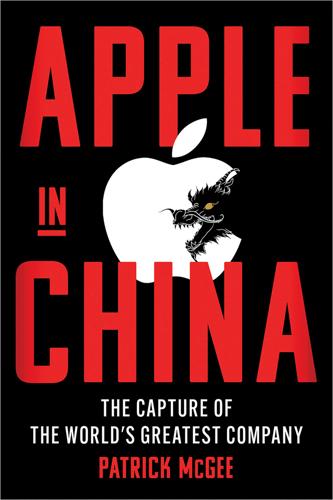
Apple in China: The Capture of the World's Greatest Company
by
Patrick McGee
Published 13 May 2025
This was a dominance and cultural relevance the company had never experienced before, and it only extended throughout 2005. That January, Apple launched the iPod Shuffle, a minimalist player without a display. In February, it unveiled the second-generation iPod Mini; in September, the Nano; and in October, the first iPod able to play videos. New iPods were emerging so quickly that on Saturday Night Live, Fred Armisen parodied Steve Jobs by announcing smaller and smaller versions until he held up nothing at all and proclaimed “the new iPod Invisa.” In the holiday quarter of 2005, Apple sold 14 million iPods—triple that of a year earlier. The $2.9 billion of revenue generated by the music player exceeded the revenue achieved by the remainder of Apple’s product line.
…
long workweeks “shattering”: Jon Rubinstein, “Oral History of Jon Rubinstein,” interviewed by Dag Spicer, Computer History Museum, August 15, 2019, https://archive.computerhistory.org/resources/access/text/2020/02/102717908-05-01-acc.pdf. Chapter 17: Project Purple in Asia 82 percent in 2004: Peter Cohen, “iPod US Marketshare Rises to 82 Percent,” MacWorld, October 10, 2004, https://www.macworld.com/article/172751/ipodshare.html. “the new iPod Invisa”: Fred Armisen, “Weekend Update: Tina Fey,” Saturday Night Live, YouTube, uploaded October 25, 2013 (aired November 19, 2005), https://www.youtube.com/watch?v=plx69SIvgWI. “heavy, stomping footsteps”: Lex Fridman, “Tony Fadell: iPhone, iPod, and Nest,” episode 294, June 15, 2022, https://lexfridman.com/tony-fadell. had fled Chile: Microsoft, “Rubén Caballero: Another Adventure and Loving It!”
…
Semi, 221 Paterson, Steven, 71 Paulson, Henry, 213 PCs (personal computers), 15, 19–22, 24, 25, 30, 36, 38, 46, 52, 54, 89, 93, 110, 292 IBM, 20–25, 93, 176, 292 iTunes and, 139–40 price of, 267–68 Macintosh and, 17–18, 25, 36, 38 Windows and, 41 PDAs (personal digital assistants), 33, 136, 163, 317 Pegatron, 158, 174, 219, 303, 318, 327, 337, 338, 371 Peng Liyuan, 235–36 People’s Daily, 2, 206, 210, 238, 344 Philippines, 129 Philips, 18 Phoenix Technologies, 21 Pixar, 40, 42, 57, 151, 186 Podolny, Joel, 249–50, 318 PortalPlayer, 124 Postscript, 30 PowerBook, 30–32, 76, 77 Titanium, 79, 102, 128 Power Failure (Cohan), 382 PowerMac, 76 printers, 29–30 Project Purple, 155–60 Project Titan, 292–93 Proview Technology, 227–28 Psion, 136, 137 Qin Hui, 2 Qualcomm, 265–66 Quanta, 77, 128, 134, 145, 158, 311, 327, 331 Quanta Shanghai Manufacturing City (QSMC), 134, 145 RadioShack, 22 Raimondo, Gina, 7 Raines, Desta, 305 Ram, Prabhu, 371 Reagan, Ronald, 87 Red Supply Chain, 10, 327–31, 350, 370, 371 Research in Motion, 161 Riccio, Dan, 130, 132–33, 150, 175, 314 robots, 368 Rose, Charlie, 380 Rubinstein, Jon “Ruby,” 55, 67, 97, 110, 123–24, 130, 132, 141, 142, 146–48, 151–52, 275 Rubio, Marco, 356 Rule of Law and Rule by Law, 262–63 Russia, 362 Samsung, 66, 70, 166, 176, 193, 219, 223, 241, 264, 267, 272, 274, 310, 362, 369, 372, 375, 377 Apple and, 221–22, 271, 272 Sanmina, 111 Saturday Night Live, 153 Saturn V, 16 Schiller, Phil, 124 Schmidt, Eric, 41 Schmitz, Rob, 307 Schumer, Chuck, 356 SCI Systems, 15–16, 23–26, 64, 88, 111 Sculley, John, 20, 28–30, 36 Semafor, 374 semiconductors, 7, 11, 72, 112, 124, 133, 159, 221, 222, 345 Chinese production of, 355–56 TSMC, 11, 220–22, 372–76, 377 September 11 attacks, 136, 382 Sexton, Rory, 245–46, 248, 314, 316, 318 Sharp, 33 Shenzhen, 87–88, 91, 101, 106, 168, 199, 203, 215, 217–18, 262, 294 Shih, Willy, 89 Shoemaker, Phillip, 296–98 Siemens, 110, 240 Sina Weibo, 205, 243, 323, 354 Singapore, 26, 63–64, 69, 71, 76, 106, 108, 109, 110, 128, 134, 189, 375 Singapore Shinei Sangyo, 91 Siri, 295, 379 60 Minutes, 381 smartphones, 154, 155, 158, 165, 166, 176, 219, 266, 267, 279, 317, 339, 362 Android, 193, 223, 267, 268, 272, 279, 343, 377 China’s market in, 271–74, 338, 341–42, 362–63 5G, 266, 343 Huawei, 272, 285, 330, 331, 333, 339, 341–43, 347, 362, 377–78, 380 iPhone, see iPhone Smit, Carl, 190 Smith, Denise Young, 322 Solectron, 25, 88, 111 Sony, 29, 31, 32, 107 Sony Ericsson, 158 South Korea, 2, 64–67, 70, 72, 74, 79, 108, 124, 149, 159, 164, 166, 176, 310, 375 Soviet Union, 16, 64, 106, 237, 256, 278, 375 Sozzi, Brian, 339 Spindler, Michael, 17–18, 36, 110 Srouji, Johny, 221, 222 Stewart, Jon, 379 Stringer, Chris, 130 Students and Scholars Against Corporate Misbehaviour (SACOM), 310–11 Sun Microsystems, 18, 41, 78 Supply Chain Top 25 ranking, 171–72, 174 Taishang, 81 Taiwan, 2, 10, 34, 76–85, 89, 108, 126–27, 129, 138, 146, 149, 158, 159, 163, 166, 176, 181, 253, 363, 366 China and, 7, 76, 79, 222, 372–74, 376, 383 earthquakes in, 374 iPod manufacture in, 117–18, 122, 124, 137, 140–42 Red Supply Chain and, 327, 328, 330, 331 see also Foxconn Taiwan Semiconductor Manufacturing Company (TSMC), 11, 220–22, 372–76, 377 Tan, Tang, 137, 162 Target, 186 tariffs, 69, 141, 170, 280, 344, 347, 363–65, 380 Tata Group, 371 TD Cowen, 363 Tesla, 286–88, 355, 358 Texas, 344–47, 375 Texas Instruments, 110, 345–46 Thailand, 128, 363 Tibet, 50, 211–12 Ticketmaster, 200 Time, 6, 133, 293 T-Mobile, 229 Toshiba, 123, 124 Toyota, 172 Toy Story, 40 TPK, 163 trading companies, 240–41 Tropian, 155 Trump, Donald, 280, 343–45, 347, 358, 363, 376, 377, 380 Tsinghua University School of Economics and Management, 310 TSMC, 11, 220–22, 372–76, 377 Tupman, David, 136–37, 155 Tuza, Denny, 248 Uber, 289, 290 United Airlines, 295, 350, 351 University of Michigan, 48–49 US Council on Foreign Relations, 259 Vaughn, Hillary, 360 Verité, 309 Verizon, 156, 229 Vidaña, Daniel, 73 Vietnam, 11, 226, 327, 362, 363, 367, 370 VisiCalc, 22 Vivo, 219, 269, 272, 330, 341, 362 Vogel, Ezra, 87, 281 Vogelstein, Fred, 159 Volkswagen, 240, 268, 276, 286 VPNs, 10, 298 Wales, 2, 69–72, 74, 75, 108 Wall Street Journal, 164, 192, 218, 285 Walmart, 172, 276 Walters, Glen, 51, 52 Wang, Grace, 323–25 Wang, James, 138 Wang Qishan, 213 Warner, Mark, 356, 360 Washington Post, 249 Watson, Thomas J., 92 WebObjects, 40–41 WeChat Pay, 293 Week, 207 Weeks, Wendell, 162 Weibo, 205, 243, 323, 354 Welch, Jack, 381–82 Wen Jiabao, 215, 237 WhatsApp, 10 White, Heather, 309–10, 312 Wi-Fi, 78–79, 97, 156, 160, 192, 193, 315 Williams, Jeff, 98, 119, 123, 130, 221–22, 249, 278, 304, 326, 337 Wingtech, 327 Wired, 197 Wistron, 327, 330, 337, 338, 365, 366, 371 Woo, Louis, 307 World Trade Organization (WTO), 113, 141, 240, 255, 263, 280–81, 291, 298 Wozniak, Steve, 15, 19, 22–25, 28–29, 39 Wu, Carolyn, 206 Wu, Villa, 320 Wu Jieh-min, 330 Xiaomi, 219, 269, 271, 272, 330, 362, 380 Xi Jinping, 1, 3, 7, 235–38, 259, 260, 262, 264–65, 278, 299, 300, 309–11, 326, 328, 344, 348, 353, 357–58, 361, 372–73, 384 Xinhua, 293 Xi Zhongxun, 236 Xu, Chenggang, 256 Yangtze Memory Technologies Corp (YMTC), 10, 355–56 yellow cows (scalpers), 194, 195–99, 209, 225, 226, 229–31, 242–43 train-ticket scheme of, 195–96, 229 Yeung, Alan, 214 Ying Liu, 183 Yi Wen, 216, 285 Yong, Rachel, 335 Zadesky, Steve, 137, 144, 155, 162 Zhang Gaoli, 294 Zhou Qunfei, 162 First published in Great Britain by Simon & Schuster UK Ltd, 2025 Copyright © Patrick McGee, 2025 The right of Patrick McGee to be identified as the author of this work has been asserted in accordance with the Copyright, Designs and Patents Act, 1988.
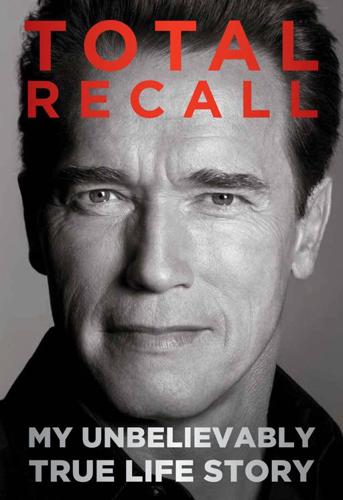
Total Recall: My Unbelievably True Life Story
by
Arnold Schwarzenegger
and
Peter Petre
Published 30 Sep 2012
The crowd was a fantastic medley of writers, socialites, hipsters, entertainers, executives, critics, artists, fashion models, and bodybuilding fans—including Andy Warhol; Diana Vreeland; actresses Carroll Baker, Sylvia Miles, and Shelley Winters; actor Tony Perkins and his wife, fashion photographer Berry Berenson; writer Tom Wolfe; the model Apollonia van Ravenstein; porn star Harry Reems; and half the cast of Saturday Night Live. James Taylor came with his wife, Carly Simon, who was pregnant. She flexed a biceps for the cameras and told a reporter that her hit song “You’re So Vain” wasn’t about a bodybuilder. The bodybuilders themselves made a dramatic entrance. While everybody was milling around in the lobby sipping white wine, in swept six of the giants from the film, including Franco, Lou Ferrigno, and Robby “the Black Prince” Robinson, who was decked out in a black velvet cape and wearing a diamond earring.
…
It was his way of saying “Fuck you. The invitation said black tie, so I wore the black tie, but I also came as Woody Allen, on my feet.” I admired the audacity that he and Nureyev shared. As for downtown, the Greenwich Village restaurant One Fifth was a great spot. Late on Saturday nights, following Saturday Night Live, that was where cast members John Belushi, Dan Aykroyd, Gilda Radner, and Laraine Newman would hang out. Often I’d watch them perform the show at NBC Studios in Rockefeller Plaza, and then meet them down at One Fifth—after which we’d all head back uptown to Elaine’s. The best downtown parties were thrown by Ara Gallant, a skinny little guy in his midforties who always wore tight leather or denim, high-heeled cowboy boots with silver toes, a little black cap with jingling gold charms, black sideburns, and, at night, eyeliner.
…
It was funny getting paid millions of dollars to fight a predator from outer space. It was funny going through Lamaze classes trying to pretend that pregnancy is a team effort. I saw great humor in Maria and me coming from totally opposite upbringings. I laughed about my accent, and I loved Saturday Night Live’s Hans and Franz characters takeoff on me. I’d always been the perfect target for jokes; there was so much material to work with. Being Austrian, marrying Maria, being Republican, the accent. With all this going for you, you need a sense of humor so you can join the fun. In 1985, the year after The Terminator became a hit, I was at a dinner in Denver on the eve of the Carousel Ball, a famous charity extravaganza organized by Marvin and Barbara Davis.

The Rough Guide to New York City
by
Rough Guides
Published 21 May 2018
You can reserve tickets in advance through the website or try your luck with standby tickets at 1697 Broadway. Get in line no later than 15min prior to the 3.15pm cut-off time. The show remains wildly popular. Over-18s only. Mon–Wed at 4.30pm, Thurs at 3.30pm & 6pm (1–2hr). Saturday Night Live 30 Rockefeller Plaza 212 664 3056, nbc.com/saturday-night-live. It’s tough to get tickets in advance to the iconic NBC comedy show that launched the careers of Chevy Chase, Bill Murray, Eddie Murphy, Mike Myers, Adam Sandler, Will Ferrell, Tina Fey and many others; for each upcoming season (usually Oct–May), you must send an email, in Aug only, to Esnltickets@nbcuni.com – include all contact information.
…
NBC Studios 30 Rockefeller Plaza • Behind-the-scenes studio tours Mon–Fri 8.20am–2pm, Sat & Sun 8.20am–5pm • $33 • 212 664 3700, thetouratnbcstudios.com • For information on show tapings, visit nbc.com/tickets-and-nbc-studio-tour or call the ticket line on 212 664 3056 • Subway B, D, F, M to 47-50th sts-Rockefeller Center Among the GE Building’s many offices is NBC Studios on 49th Street between Fifth and Sixth avenues, which produces, among other things, the long-running sketch-comedy hit Saturday Night Live and the popular morning programme the Today show. Hour-long tours of the studios begin at the Shop at NBC Studios roughly every twenty minutes; you’ll get to see some sets and memorabilia and have an interactive moment as part of your own show at the conclusion. To become part of the throng that appears (and waves frantically) when the anchors step outside, all one has to do is show up – the earlier the better.
…
Tues, Wed & Sun 10am–9pm, Thurs–Sat 10am–10pm. Magnolia Bakery 401 Bleecker St, at W 11th St 212 462 2572, magnoliabakery.com; subway #1 to Christopher St; map. There are lots of baked goods on offer here, but everyone comes for the heavenly and deservedly famous multicoloured cupcakes (celebrated in both Sex and the City and Saturday Night Live); $3.50–3.75 each. Queues can stretch around the block. Sun–Thurs 9am–11.30pm, Fri & Sat 9am–12.30am. Popbar 5 Carmine St, at Sixth Ave 212 255 4874, pop-bar.com; subway A, B, C, D, E, F, M to W 4th St; map. Handcrafted gelato on a stick (4.50), freshly made with natural ingredients such as banana, chocolate, coconut, hazelnut, mint and pistachio, as well as refreshing lemon, mango and peach sorbettos (also on a stick), and frozen yogurt versions ($3.75).
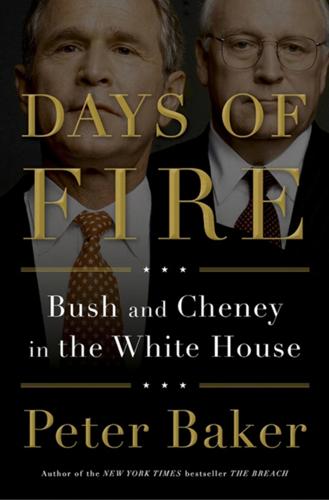
Days of Fire: Bush and Cheney in the White House
by
Peter Baker
Published 21 Oct 2013
CHAPTER 9: “THE FIRST BATTLE OF THE WAR” 1 “The whole goal was to keep”: Neil Patel, author interview. 2 Ron Christie, gave him: Christie, Black in the White House, 164–65. 3 “one-man Afghani wrecking”: Saturday Night Live, NBC, October 13, 2001, http://www.hulu.com/watch/200731/saturday-night-live-drew-barrymore. 4 “energy-saving mode”: Saturday Night Live, NBC, May 12, 2001, http://www.hulu.com/watch/274305/saturday-night-live-dick-cheney-cold-opening. 5 “We were all under”: Christie, Black in the White House, 164. 6 “You had brothers, sisters”: Joe Hagin, author interview. 7 White House chef began preparing: Scheib, White House Chef, 268–69. 8 “cover-your-ass kind of”: Dick Cheney, author interview. 9 “It had a huge impact”: Condoleezza Rice, author interview. 10 “anything other than scared”: Tenet, At the Center of the Storm, 99. 11 “He didn’t bring it all home”: Laura Bush, Spoken from the Heart, 228. 12 “Bush lacked a big organizing”: Frum, Right Man, 274. 13 “Nine-eleven blew him away”: Joe O’Neill, author interview. 14 hitting 90 percent: CNN/USA Today/Gallup poll, September 21–22, 2001, http://www.gallup.com/poll/4924/bush-job-approval-highest-gallup-history.aspx.
…
In another surreal moment, the vice president nodded off on-screen. The phrase “undisclosed secure location” quickly entered the cultural lexicon. One day when he emerged from what aides called “the Cave” to return to the White House, one of Cheney’s domestic policy advisers, Ron Christie, gave him a recording of a Saturday Night Live sketch in which the vice president’s secret location was revealed as Kandahar, Afghanistan, and he was presented as a “one-man Afghani wrecking crew” demolishing the Taliban and al-Qaeda single-handedly. The comic Cheney, played by Darrell Hammond, explained how he could do this with a weak heart by tearing open his shirt to reveal a metal device attached to his chest.
…
“This thing regulates my heartbeat, it gives me night vision and renders me completely invisible on radar!” Then, pushing a button, he said, “Check this out.” Coffee began pouring from the mechanical heart. “I brew my own Sanka! Oh yeah, now that’s good coffee.” What a difference a few months had made. Before September 11, the running joke on Saturday Night Live had been Cheney’s monotonous demeanor: giving a speech on energy policy, the ersatz Cheney said he had personally demonstrated conservation by putting his personality into an “energy-saving mode.” Cheney, unsurprisingly, enjoyed the revamped version, describing the bionic-heart skit as one of his favorites.
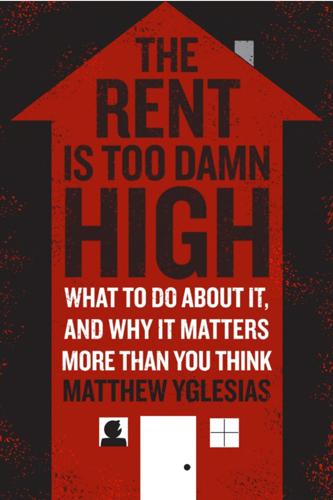
The Rent Is Too Damn High: What to Do About It, and Why It Matters More Than You Think
by
Matthew Yglesias
Published 6 Mar 2012
The sixty-four-year-old martial arts instructor, former mailman, and self-proclaimed “Black Hulk Hogan” was a sensation. With his silver mane, wild beard, black gloves, and concise, disciplined message (“The rent is too damn high!”), he was an instant star. Clips of the debate went viral on the Web the next day, McMillan was featured in a memorable Saturday Night Live sketch, and months after the debate, the memory of McMillan was resuscitated in WPIX local news promos as the man himself proclaimed, “The weather is too damn cold,” before touting the station’s weather broadcasts as a potential solution. Unfortunately, the package, the eccentricity, and the hoopla tended to obscure McMillan’s core point.

Nomadland: Surviving America in the Twenty-First Century
by
Jessica Bruder
Published 18 Sep 2017
Meanwhile, Jen had been scouring the internet for alternate ways to live. She’d researched minimalism and the tiny house movement. She’d also come across CheapRVLiving.com. Gradually, she began thinking she’d found a way out. To Ash, moving into a vehicle and becoming a nomad wasn’t initially the most appealing choice. She thought of the classic Saturday Night Live sketch in which Chris Farley plays a vandweller and motivational speaker named Matt Foley. He warns kids to shape up unless they want to end up living in a van, too. “My first thought was that we were going to be like that guy, saying ‘I live in a van down by the river!’” Ash said. Despite this, she came to embrace the idea.
…
Amazon wage case: Richard Wolf, “Justices Say Security Screening After Work Isn’t Paid Time,” USA Today, December 9, 2014, http://www.usatoday.com/story/news/nation/2014/12/09/supreme-court-amazon-workers-security-screening/20113221. 104. OSHA inspections dealing with static shocks: Nevada Occupational Safety and Health Administration Inspection Report Number 315282491 (March 24, 2011) and 316230739 (February 7, 2012). 107. Chris Farley’s vandwelling character: “Matt Foley, Motivational Speaker,” Saturday Night Live, NBC, May 8, 1993. 111. Amazon record holiday sales: “Record-Setting Holiday Season for Amazon Prime” BusinessWire, December 26, 2013. CHAPTER SIX 115. “Garden of Eden on wheels”: E. B. White, “One Man’s Meat,” Harper’s Magazine, May 1941, p. 665. 115. Year-round population: 3,626 as per U.S.
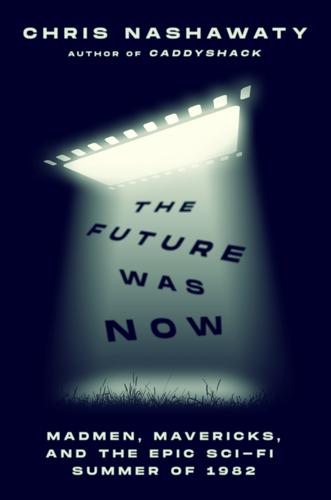
The Future Was Now: Madmen, Mavericks, and the Epic Sci-Fi Summer Of 1982
by
Chris Nashawaty
But after the backbreaking and emotionally sapping productions of Jaws and Close Encounters, Spielberg thought directing a rat-a-tat comedy full of car crashes and wanton property destruction would be just what the doctor ordered. He thought wrong. The film ended up being a shambles—an unrelentingly juvenile slog. So why did he do it? Well, in the late ’70s, Spielberg, like the rest of young America, had dialed in to the subversive satire and silly slapstick of National Lampoon, Saturday Night Live, and Animal House. He even began palling around backstage at 30 Rock with John Belushi and Dan Aykroyd. For the first time in his life, the square director finally felt hip and cool in their company. He even gave both of those comedians juicy roles in 1941. But by the time the film wrapped, going way over schedule and even further over budget were becoming as much signature trademarks for Spielberg as his ability to spin celluloid into gold.
…
Harve Bennett was rewarded for restoring glory to the Enterprise by being named as the producer of the next three Star Trek films. He passed away in 2015. After defeating Khan Noonien Singh, William Shatner would continue to play James Tiberius Kirk for another twelve years. In a now-famous 1986 Saturday Night Live sketch, he playfully poked fun at his Trekkie disciples, telling them to “get a life.” In 2021, at age ninety, Shatner became the oldest man to fly into space by taking part in Blue Origin’s suborbital human spaceflight. Despite his dramatic death scene in The Wrath of Khan, Leonard Nimoy would return in front of and behind the camera for 1984’s Star Trek III: The Search for Spock and several more sequels.
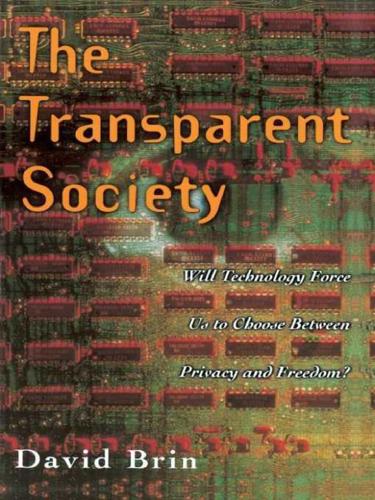
The Transparent Society: Will Technology Force Us to Choose Between Privacy and Freedom?
by
David Brin
Published 1 Jan 1998
While some people are blinded by all-pervading noise, others acquire X-ray eyes, letting them see beyond all the old, traditional walls. For a while, this will create a golden time of opportunity for swindlers, blackmailers, and all kinds of cheaters. Then we will adapt . M. N. PLANO Credibility Ratings Some years ago, writer-director Buck Henry illustrated “credibility ratings” through a skit on Saturday Night Live . Ostensibly, all the seats in the audience had been equipped with “attention monitors” that would make Henryʼs television image diminish when viewers got bored, and grow when they were interested. As he droned on about the advantages of this technology, Henryʼs face shrank and a worried expression took over ... until he shouted, “Sex!”
…
Later, it might lead to demarchy, a chilling form of democracy, in which television viewers watch shallow five-minute arguments on the tube and then vote yes or no with a button on their remote control, no longer delegating their authority to elected deliberators, but instead exercising sovereign power each night, deciding issues of the day after the most superficial forms of “debate.” Will we find Buck Henryʼs Saturday Night Live skit about slavery to instant audience reactions dismally prophetic? Does it illustrate the decadent, homogenized future awaiting us as soon as the low-class masses gain total control of content through high-speed feedback mechanisms? Or did Henryʼs satirical little play demonstrate something else?
…
Grateful for, yes; aware of, certainly. But a deliberate policy? Iʼm not quite paranoid enough to credit a scenario so convoluted or bizarre. 139 ... self-righteousness addicts ... Regarding the habit-forming properties of indignation, I am reminded of a hilarious yet wise skit that appeared on televisionʼs Saturday Night Live . The scene was set in a hospital, where a harried female nurse had to deal with a series of outraged males, each of them storming in to make demands. IRATE YOUNG COP: “How DARE you keep me from the patient! She was a witness to a crime! I have a sacred duty to protect the public!” IRATE YOUNG REPORTER: “How DARE you keep me from the patient!
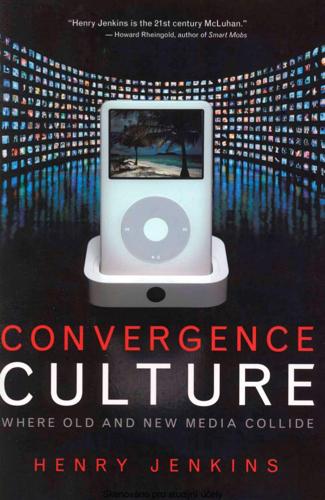
Convergence Culture: Where Old and New Media Collide
by
Henry Jenkins
Published 31 Jul 2006
In 2000, 39 percent of respondents regularly got campaign information from network newscasts. By 2004, that number had fallen to 23 percent. Over the same period, the percentage of people under the age of thirty w h o received m u c h of their campaign information from comedy shows such as Saturday Night Live (1975) or The Daily Show had grown from 9 percent to 21 percent. In this context, A B C ' s This Week with George Stephanopoulos added a segment showcasing highlights from the week's monologues b y D a v i d Letterman, Jay Leno, and Jon Stewart. A s early as 1994, Jon Katz had argued i n Rolling Stone that a growing percentage of young people felt that entertainment media, rather than traditional journalism, more fully reflected their perspectives o n current events.
…
A s early as 1994, Jon Katz had argued i n Rolling Stone that a growing percentage of young people felt that entertainment media, rather than traditional journalism, more fully reflected their perspectives o n current events. Katz claimed that young people gained m u c h of their i n formation about the w o r l d from music videos and rap songs, Saturday Night Live sketches and stand-up comedians, the plots of prime-time dramas and the gags o n sitcoms. Katz saw this as a positive development, since the ideological perspectives of popular entertainment were less tightly policed than news, w h i c h he feared had fallen increasingly under a corporate stranglehold.
…
K . , 21,169-171,173-176, 181-182,184-185,194,197, 201 Rubio, K e v i n , 132 Rumsfeld, D o n a l d , 215 Saatchi & Saatchi, 69 Sacks, Eric, 151 Saksa, M i k e , 104 Salla, Jeanine, 124 Salon.com, 52, 104, 220, 237 Sanchez, E d , 102-103 San Diego Union-Tribune, 61 Sandman, The, 101 San Jose Mercury, 104 Satanism, 192-194 Saturday Night Live, 224 Saturn, 79 Saving Private Ryan, 153 SBC, 83 Reel Families: A Social History of Ama- scaffolding, 178 teur Film, 142 Schamus, James, 113 reenactments, 114 Scheppers, L o r i Jo, 192 relativists, 44 Schneider, A n d r e w , 118 religion, 171,198 Scholastic, 185 Schudson, M i c h a e l , 225-226 Republican National Convention, 225 science fiction (genre), 100,164,199, Republicans, 217, 239 202 resistance, 248 Restaurant, The, 69 Sci F i Channel, 102 return on investment, 62 secular humanism, 194 Revolution Will Not Be Televised, The, Sef ton-Green, Julian, 128 210 Seiter, Ellen, 175 Sella, M a r s h a l l , 245 Rheingold, H o w a r d , 251 September 11,1, 221, 232, 250 Richardson, A s h l e y (avatar), 228-230, Sequential Tarts, 249, 257 232 serialization, 33, 78,129 Riddick Chronicles, The, 108 Sesame Street, 1-3 Ring, The, 109 700 Club, The, 202 Roberts, K e v i n , 69, 73, 91, 246 7th Heaven, 200 Robertson, Pat, 202 Shadowmancer, 202-203 R o b i n H o o d , 146 Shakespeare in Love, 139 Robot Carnival, 101 Shaking the World for Jesus, 199 Rogers, John, 251-252 shared knowledge, 51 role p l a y i n g , 176-177, 201, 204 shareware, 256 Rolling Stone, 224 Shawn, 34-36, 46-47, 52 romance (genre), 199 Shelley, Percy, 153 Romero, George, 114 Skenovâno pro studijni ücely Index Shiny Entertainment, 101 Showtime, 60 Sienkiewicz, Bill, 101 Silver, Joel, 101 SimCity, 165-166 Simmons, Russell, 223 Sims, The, 19,165-166, 228-231 Sims 2, The, 154 Simulacra and Simulation, 99 60 Minutes, 212-213 skins, 153-154 Slashdot, 240-241 Slate, 121, 253 smart mobs, 210, 251 Smith, Dana, 143 Smoking Gun, The, 86 Snewser, 51, 57 soap opera, 33,129 sock puppet, 35 song videos, 155 Sony 8,108 Sony Interactive, 97 Soprano, J.
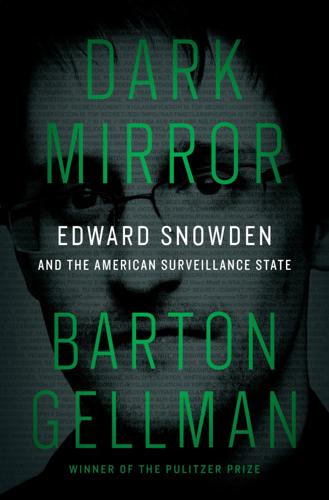
Dark Mirror: Edward Snowden and the Surveillance State
by
Barton Gellman
Published 20 May 2020
An audio file accompanied the six frames. “Oh noooo!” exclaimed a nasal, cartoonish voice. It was an old meme of hilarity at someone else’s disappointment or pain, a staple of flame wars since early internet chat rooms. (Flamers sometimes rendered it “oh noes!” or “oh the noes!”) Television’s Saturday Night Live may have inspired the meme with a recurring comedy sketch in the late 1970s. A clay figurine named Mr. Bill, the star of a parody children’s show, closed most episodes with a high-pitched scream of “Oh noooo!” as Mr. Hands mangled, crushed, or dismembered him. * * * — In the age of Trump, I found a new openness among my bitter critics in the intelligence community.
…
He wore his four stars on an informal black zipper jacket, his white uniform shirt unbuttoned at the neck. Periodically he would ask the interviewer a rhetorical question, such as “Would that make sense to you?” The screen would fade to large block letters: “Yes sir, it does make sense.” Patriotic music played softly in the background. I showed Dafna the interview and she said it looked like a Saturday Night Live “Wayne’s World” skit set in Pyongyang. For all the effort at folksy charm, Alexander struggled to master his emotions. Anyone in his position would be troubled by the steady stream of revelations from reporters who possessed the Snowden documents. Alexander appeared to be at his wit’s end.
…
Bill (char.), 213 Mueller, Robert, 82, 227 on panel with BG, 249–50 Russian interference investigation of, 322 Mukasey, Michael, permissive data collection rules approved by, 176 MUSCULAR project, 299–300, 311, 315 Muslims, slurs against, 211–12 My Country, My Country (film), 5 Nación, La, 257 Nakashima, Ellen, 190 National Geospatial-Intelligence Agency, 75 National Reconnaissance Office, 75 national security: changing targets of, 345 harm vs. public accountability in, 183, 258–71, 304, 305, 334–36 see also secrecy, government National Security Agency (NSA): access control system of, 67 active directory profiles at, 71–72 annual cyberweapons conference of, see Jamboree Application Vulnerabilities Branch of, 79 as banned from domestic surveillance, 70, 125 cover names used by, see cover names cultural and ethnic slurs in teaching materials of, 211–12 data collection by, see data collection, by NSA defend and attack as twin missions of, 117, 384 ES’s leaks of top secret files of, see Pandora archive ES’s proposed EPICSHELTER system for, 59–60, 61 ES’s release of files of, xii evolution of, 309–10 foreign surveillance by, see surveillance, foreign Google cloud penetrated by, 279–88, 297–302, 408 Information Assurance Directorate of, 84, 117 information dominance as goal of, 188 iPhone security preoccupation of, 215–20 Kunia center of, see Kunia Regional Security Operations Center Large Access Exploitation working group of, 317 latent power of, as inherent threat, 345–46 mass surveillance by, xv, 2, 285–88, 307 misfiling of restricted material at, 68–72 mix of civilian and military employees at, 193 outward-facing cyber security of, 72 Pacific Technical Center (Yokota) of, 57–58 PKI certificates and, 67 Q Group of, 1, 361–62 Remote Operations Center (ROC) of, 82, 194, 200, 220 Rochefort command center of, 32, 83, 369 secrecy culture of, xv self-policing by, 161 Shadow Brokers leak and, 268 Special Source Operations of, 316 Tailored Access Operations (TAO) of, 81–83, 200, 204, 214 telecoms’ relations with, 311 Tor anonymity protection broken by, 79–81 Unified Targeting Tool of, 86 XKEYSCORE tool of, 86, 87, 330, 331 Yahoo penetration by, 299–300 see also specific programs National Security Agency (NSA), hacker culture of, 189, 192–94, 200–213, 219 Clapper on, 214 cover names as clues to, 203–4, 206–7, 208–10 memes circulated in, 192, 210–11 STRAWHORSE and, 216–20 National Security Agency (NSA), Signals Intelligence (SIGINT) Directorate, 84, 117–18, 176, 184–85, 188, 212 leaks and, 272–73 S2 (analysis and production division), 118 S3 (acquisition division), 118, 199 national security letters, 14, 248 National Threat Operations Center (NTOC), 34, 83–88, 193–94 domestic surveillance by, 85–86 ES’s training at, 85–86 Naval Research Laboratory, U.S., 7 Negroponte, John, 161, 181, 184 in Aspen Security Forum panel with BG, 155–66 NSA call data collection defended by, 157–58 Netanyahu, Benjamin, 342, 380, 410 New York Times, 56, 92, 123, 175, 288 BG’s decision not to offer NSA story to, 97–98 Pentagon Papers published by, 380 warrantless wiretap story delayed by, 97, 381 Nippon Telegraph and Telephone Corporation, 197 Nixon, Richard, 180, 308 No Place to Hide (Greenwald), 138 NSANet, 10, 75, 77 NSA Round Table, 208 NTOC, see National Threat Operations Center Oath, The (film), 5 Obama, Barack, 55–56, 249, 368 Obama administration, FISA amendments defended by, 126 Oberdorfer, Don, 91 Office of the Director of National Intelligence, 87, 227 Office of the National Counterintelligence Executive, 277 Ohm, Paul, 167 OkCupid, 236, 237 Osborne, Jared, 215 Otakon, 43 overcollection, 343–44 Pahlavi, Mohammed Reza Shah, 195 Pandora, myth of, 27 Pandora archive, xii, 2, 99, 202–3 BG as subject of files in, 221–22, 272, 274 BG’s backup drive of, 99–100, 102, 114–15, 245–46, 382 denial and deception folder in, 224–25 harm to NSA operations caused by publication of, 265–67 journalists’ decision not to publish some material from, 260, 269 massive size of, 22–25, 377 possible foreign penetration of, 241–42 README files in, 27–28, 256, 326–27 scattered clues to NSA’s Google cloud hack in, 283 security measures surrounding access to, 198, 237, 238–40 see also specific files and programs Panetta, Leon, 249 Patinkin, Mandy, 308–9 Paul, Ron, 64 Pelosi, Nancy, 331 Pentagon Papers, 92, 288, 379–80 PKI (public key infrastructure), 67, 78 Playing to the Edge (Hayden), 309 Poitras, Laura, 79, 104, 113, 120, 130, 213, 241, 255, 327 Alexander’s proposed raid on, 245–46, 247, 248, 249 and BG’s decision to take NSA story to Post, 98 BG’s first meeting with, 4–7 BG’s relationship with, 108 cryptographic signature issue and, 131–32 customs interrogations of, 5, 364 cyber security measures of, 2–4, 361, 362, 363 in decision not to publish some Pandora material, 269 ES documentary by, see Citizen Four ES’s leaks to, 1–2, 361 ES’s public announcement filmed by, 133–34, 148 ES’s relationship with, xiii and ES’s wiretapping claims, 329 filmmaking career of, 5 in first discussions with BG about NSA leaks, 8–11 on Greenwald, 138 in Hong Kong meeting with ES, 138, 347 Hong Kong trip postponed by, 135–36 in joint investigation with BG, 11 as possessing NSA documents not seen by BG, 330 Poulsen, Kevin, 234 power, information as, xvi precomputation, MAINWAY’s use of, 173–76 President’s Daily Brief, 121 Pretty Good Privacy (PGP) software, 365, 404 PRISM, 2, 22, 84, 87, 99, 104, 117, 331, 362 access to internet companies’ data by, 121–22, 124 capabilities and scope of, 121–22, 123–24, 340–41 data on U.S. persons acquired and retained by, 126, 340–41 and direct access to internet companies’ servers, 147–48 ES’s desire for quick publication of, 105 Google and, 283, 285, 300 government objection to revealing internet companies’ cooperation with, 146–47 internet companies and, 111–12 low threshold of evidence for targeting by, 125–26 mass surveillance distinguished from, 124–25 Provider List of, 119 targets of, 112 valuable intelligence uncovered by, 145 Yahoo and, 300 PRISM slide show files, 119–20 cryptographic signature on, 128–29 privacy, digital: cellphones and, 318–20, 325 cryptography and, 8, 350–52 cypherpunks’ obsession with, 7–8 digital trails, xvi, 3, 6 internet’s cost to, 6–7 and NSA’s ability to unmask names in data collection, 342–43 overcollection and, 343–44 right to vs. need for intelligence gathering, 313–14 Soltani as specialist in, 196–97 of U.S. persons, impact of NSA foreign surveillance on, 287–88, 338–44 Privacy Act, BG and, 276 Privacy and Civil Liberties Oversight Board, 180 private keys, 4, 105, 258, 404 probable cause, border searches and, 6 “Project Frankie,” 61 Protect America Act (2007), 111, 123, 338 QUANTUM, 199 Rabin, Yitzhak, 10 radiation, deliberate exposures of U.S. troops to, 262 RAGTIME, 122 Rasmussen, Nicholas, 312 Reagan, Ronald, 282 reasonable articulable suspicion, 126 Reddit, 192, 193 relevance, Patriot Act as perversion of legal standard of, 143–44 remote-access trojan (RAT), 235 Remote Operations Center (ROC), 82, 194, 200, 220 Reporters Committee for Freedom of the Press, 276 Rhodes, Ben, 141 Rick (PRISM program manager), 117–18, 125 on scope of PRISM program, 121, 123–24 slide show created by, 119–20 Risen, James, prosecution of, 242–43, 403 Rodriguez, Jose, 186 Rogers, Clyde, 216, 217 Romero, Anthony, 152 Russia, ES’s denial of relationship with, xiv–xv, 292–94 Ryuhana Press, 43 S3283, 202–4 Sandia National Laboratories, 215, 216, 217 Sandvik, Runa: ES’s emails with, 65 Kunia cryptoparty cohosted by, 65–66 Saturday Night Live (TV show), 213 Savage, Charlie, 140 Sayre, Valerie, 302 Schindler, John, 282 Schmidt, Eric, xvi, 111 Schneier, Bruce, 323 Schwalb, Larry, 241 secrecy, government: and BG’s decision not to publish some Pandora material, 260 BG’s longstanding concern with, 262 BG’s Martian parable about, 258–59 classification levels of, 25, 67, 95, 265 conflict of core values in, 267 espionage vs. leaks of, 275–76 harm vs. public accountability in exposure of, 183, 258–71, 304, 305, 334–36 Hayden’s defense of, 325 human rights abuses and, 262–63 as inherent in surveillance state, xii, xv, 28 intelligence community’s opposition to exposure of, 260 journalists and revelation of, 267–68 see also classified materials Secrecy (documentary), 273–74 SecureDrop, 234–35 self-government, secrecy and, 267 sensitive compartmented information (SCI), 25 see also TS/SCI (Top Secret/sensitive compartmented information) clearance September 11, 2001, terrorist attacks, xvi, 70, 75, 122, 168–69, 222, 338 expansion of surveillance state after, xi servers, ES’s early interest in, 37–38 Sessions, Jeff, 205, 249 sexually transmitted diseases, unethical experiments with, 262 sexual metaphors, in cover names, 203–4 Shadow Brokers leak, 268 Sheremetyevo Airport, ES’s detention at, 226–27, 293 Sigdev (signals development), 214–15 SIGINT (signals intelligence), xii, 84, 266 active vs. passive, 309 constant flux in, 266 viewed as top priority by NSA, 184–85 SIM cards, xvii Simon, Barry, 133 “Six Degrees of Kevin Bacon” (parlor game), 159–60 Six Degrees of Separation (Guare), 159 Skype, 112, 121 smartphones: as subject to customs searches, 5–6, 364–65 as tracking devices, 4 Smith, Brad, 301, 314–15 Snowden, Edward (ES): accused of breaking “sacred oath,” 182 anonymous proxies as early interest of, 45 army injury and discharge of, 47–48 as Army Special Forces recruit, 46–47 Ars Technica posts of, 37–38, 42–43, 50, 51, 54, 56 in Asia, 84 asylum plans of, 129–30 background of, 32–33 BeamPro used by, 320–21 BG convinced of general reliability of, 11, 332–33 BG first contacted by, xvii BG interrogated on journalistic principles by, 13–14 BG’s and Poitras’s commitment doubted by, 11–12, 137 BG’s conversations with, 225–27, 229, 259 and BG’s decision to take NSA story to Post, 98 BG’s independence doubted by, 15–16 BG’s interviews with, 73–74, 88 and BG’s need to authenticate leaked documents, 18–19 BG’s participation accepted by, 16 BG’s photographing of, 252–54 BG’s relationship with, xiii–xiv, 108 BG’s secure video and digital contacts with, xiv–xv blackmail as motive for NSA surveillance discounted by, 290 as Booz Allen contractor at NTOC, 83–88 Booz Allen test-system proposal of, 62–63 on changing targets of national security, 345 character and personality of, xiii childhood and adolescence of, 38–45 Churchyard code name of, 54 as CIA employee, 51–57 CIA methods as troubling to, 55–56 CIA tradecraft training of, 52–54 as contractor at CIA headquarters, 49–50 in conversation with NSA intern about Tor vulnerabilities, 80–81 costs vs. benefits of leaks by, xv, 21 as cyber security conference instructor, 57–59 cyber security tradecraft of, 2–4 “dead man’s switch” and, 64, 256–58, 328, 332 as Dell liaison with CIA, 61–62 Ecuador as intended destination of, 307 Ellsberg compared with, 295–96 Ellsberg’s online conversation with, 289–95 encrypted NSA files sent to BG without keys by, 328, 332 EPICSHELTER system designed by, 59–60, 61 epilepsy diagnosed in, 34, 64, 370 on Espionage Act, 292 exaggerated claims of, 63–64 in flight to Hong Kong, 27, 88, 307 in flight to Moscow, xi on foreigners’ right to privacy, 291–92 gaming of tests as talent of, 42 GED diploma of, 40–41 government disparagement of, 40, 51–52, 86–87, 134 government’s standoff with, 352–53 Greenwald and, see Greenwald, Glenn hacker mindset of, 40 as having accomplished his goals, 255–56, 308 Heartbeat program of, see Heartbeat identity disclosed by, 28–29 importance of cryptographic signature to, 105–6, 128–30, 137, 386–87 importance of leaks by, xii instrumental approach to truth by, 324–26, 332–33 IQ score of, 38–39 on journalists’ overdedication to provable facts, 324–26 Kunia assignment of, see Kunia Regional Security Operations Center leaks to Poitras and BG by, see Pandora archive libertarian politics of, 55, 64–65 marriage of Mills and, 353 memoir of, 50–51 Microsoft systems engineer certification of, 42 in Moscow, see Moscow motives of, 28, 290–91, 304, 335–36 on NSA penetration of Google cloud, 285 on NSA’s latent power as inherent threat, 345–46 on NSA’s sexual metaphors, 204 personal attacks anticipated by, 19 Poitras and, see Poitras, Laura on political use of hacked documents, 322 possible harm from publication of Pandora files dismissed by, 265–66 PRISM slide show files uncovered by, 120 public announcement of identity of, 148–49 quick publication of NSA documents sought by, 105, 127–28, 306, 327 on revealing secrets, 259 revoked passport of, 227, 307 role-playing and fantasy interests of, 43–44 Russian relationship denied by, xiv–xv, 292–94 security credentials of, 67–68 security guard job of, 48–49 as self-taught polymath, 40, 41 Sheremetyevo Airport detention of, 226–27, 293 size of data leaks by, 73 TAO job offer rejected by, 82–83, 204 Tekken obsession of, 44–45 Tor used by, 79–81 treason charges against, 334 TS/SCI clearance of, 48 Verax as cover name of, xvii, 226 in virtual chat with Homeland cast and crew, 303–9, 320 virtual TED Talk given by, 321 Washington Post distrusted by, 11 wiretapping of Congress and Supreme Court claimed by, 326–32 Snowden, Elizabeth, 38 Snowden, Jessica, 39 Snowden, Lonnie G., Jr., 38, 57, 251 Snowden archive, see Pandora archive social graphs, 159, 163 social justice, 345 social media, memes on, 192, 210 social networks, mapping of, MAINWAY as tool for, 170–77 Soghoian, Christopher, 319 Soltani, Ashkan: background of, 195–96 as BG’s guide to hacking culture, 191 digital privacy as specialty of, 196–98 in E.O. 12333 investigations, 315, 318, 324 Google cloud story and, 279–81, 297–300 hacker background of, 189–90 on hacker culture, 208 Pandora archive and, 189–91, 198–99, 238–39, 340 Pandora security and, 238–39 suspected attempt at honey trapping of, 236–37 South China Morning Post, 84 Special Forces, U.S., 212 Special Operations Command, U.S., 151 Special Source Operations, 191 spiders (tools in networked computing), 76 Spiegel, Der, 182 Spotlight (film), 104 SSL (secure sockets layers), 280, 297 STARBURST, 70 Star Trek (TV series), 210 State Department, U.S., ES’s passport revoked by, 227, 307 STELLARWIND (domestic surveillance program), 26, 122, 170 as illegal domestic surveillance, 169, 175 NSA inspector general’s report on, 70–71 STRAWHORSE, 216–20 Suitable Tech Inc., 320 Supreme Court, U.S., ES’s claims of having wiretapped, 326–32 surveillance: authority (legal basis) for, 86–88 BG’s increasing preoccupation with, 234–35, 238–42, 255 Church on inherent threat of, 346 cryptography as counterforce to, 350–52 difficulty in scaling back technology of, 349–50 NSA’s ability to unmask names in, 342–43 possible misuse of, 347–49, 350 post-9/11 expansion of, xi secrecy as inherent in, xii, xv, 28 surveillance, domestic: breakdown of divide between foreign and, xii, 338–39 mass, 143 NSA as banned from, 125 warrantless, 9, 26, 70, 97, 122–23, 142, 156, 157, 169, 263 surveillance, foreign: breakdown of distinction between domestic and, xii, 338–39 data on U.S. persons collected by, 287–88, 335–36, 337–46 “Surveillance Self-Defense” (Electronic Frontier Foundation), 365 Swartz, Aaron, 234 Taguba, Antonio, 262 Tailored Access Operations (TAO), 81–83, 200, 204, 214 cover support for, 201–2 Tate, Julie, 107, 190, 269, 271, 340 TECHEXPO Top Secret, 49 TED Talk, ES’s virtual, 321 Tekken, 44–45 Tekserve, 233–34 telecommunications companies: NSA given access to data by, 111–12, 142, 199, 310 NSA’s relations with, 311 see also internet companies Terminator films, 322 “terrorist,” definition of, 113 TheTrueHOOHA (ES’s Ars Technica handle), 37 Thompson, Ken, 217 Time, 8 NSA story declined by, 93–97 Time Inc., 94–95 Tisinger, Jeanne, 62 Top Secret classification, 25, 67 legal standard for, 265 Top Secret clearance, 67 Tor Project, 65 ES’s use of, 79–81 NSA’s breaking of anonymity protection of, 79–81 traffic shaping, 200 Travis, Debra, 233 “treason,” constitutional definition of, 334 Trump, Donald, 162, 181, 205, 246, 247, 249 Clapper attacked by, 349 espionage charges brought against Assange by, 261 governing norms ignored by, 347–48 trust: government and, 180–84 NSA data collection and, 164 TS/SCI (Top Secret/sensitive compartmented information) clearance, 25, 36 TS/SCI networks, 77 Tu, Alan, 193–94, 265 in NSA hacker culture, 194 on NSA’s sexual metaphors, 204 TURMOIL, 299 Turner, Shawn, 142, 144, 246, 270 Underground Railroad, 345 Unified Targeting Tool, 124–25 United Kingdom, Official Secrets Act of, 275 United States v.
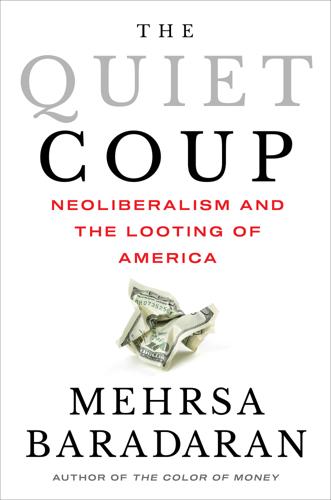
The Quiet Coup: Neoliberalism and the Looting of America
by
Mehrsa Baradaran
Published 7 May 2024
For several years, she has been one of the top five Republican fund-raisers and is also head of the Congressional Freedom Caucus, which is one of the most powerful blocs in Congress as of this writing.4 While the money and fame reveal the nature of Greene’s hustle, there remains the problem of why there is such a large market for what she is selling. Greene’s scientific absurdity and crude antisemitism quickly became the stuff of comedy: the hashtag #JewishSpaceLasers trended on Twitter and the cast of Saturday Night Live mocked her. Less amused commentators noted that Greene’s insinuation of Rothschild collusion hinted that the story she was telling was much more sinister than one of quotidian corruption. They are right. The scapegoating of the Rothschilds may have been meaningless noise, an emanation from the internet’s fever swamps, but what if it was the signal itself?
…
The tests were officially a fact-finding exercise meant to accurately gauge the vulnerabilities of the system; but internally, they were the chosen exit strategy from the crisis. What was obvious to everyone and vigorously denied by Obama officials was that the purpose of the stress tests was to reassure markets that everything was fine. Even Saturday Night Live mocked the stress tests in a cold open with Geithner revealing that the only possible test grades were pass/pass and that some banks, GMAC specifically, had written “taxpayer bailout” to every open question on the test. Instead of restoring confidence in the banks through reforming the system, the Federal Reserve boosted confidence by saving the banks and essentially promising to stand behind them in the future.
…
Hardwick, 155 Royal Dutch Shell, 47 Rubin, Robert, 258 Rubio, Marco, 314 Russian Empire, 184 Ryan, Paul, 184 Sabin, Paul, 76 SAC Capital, 306 Sage, Russell, 198 St. Petersburg, Russia, 184 Salman, Mohammad bin, 325 Salomon Brothers, 90 Saltville, Va., 158 Samuelson, Paul, 66, 174 San Antonio Independent School District v. Rodriguez, 121–24 Sanders, Bernie, xl Sartre, Jean-Paul, 41 satellites, 327–28 Saturday Night Live, xv, 312, 341 Saturday Night Massacre, 109 Saudi Arabia, 39, 47, 325 savings accounts, 199, 288, 360 savings and loans, 199, 300 Scaife, Richard, 88, 89 Scaife family, 142, 306 Scalia, Antonin, 134–35, 139, 140, 145–47, 150, 151, 209, 210 scarcity, xxxi, 17, 63, 66, 330, 333, 340, 342, 362 Schmitt, Carl, 52–53 school boards, xxiii, 104–5, 117 school choice, 186, 206 school vouchers, 186 Schwartz, Anna A Monetary History of the United States, 1867–1960, 63 Schwartz, Donald, 85 Schwarzman, Stephen, 306 science (scientific method), 23, 166, 168, 234, 247, 285 Scotland, 193 “scramble for Africa,” 35 Sears, Roebuck, 200 Second Amendment, 147 Second World War.
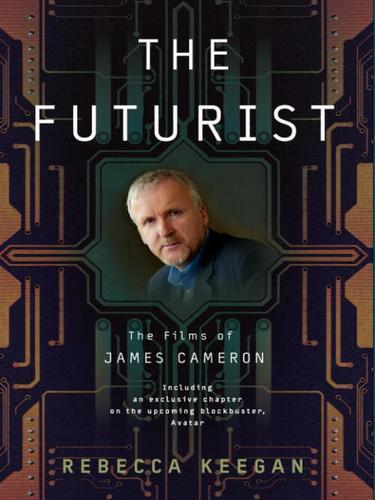
The Futurist: The Life and Films of James Cameron
by
Rebecca Winters Keegan
Published 3 Nov 2009
Paxton had directed a funny, bizarre short film called Fish Heads, essentially a music video for a novelty song by a band called Barnes and Barnes, about all the things fish heads can and cannot do (mostly what they cannot do, like wear sweaters, play drums, and drink cappuccino in Italian restaurants with Oriental women). Paxton invited Cameron to a screening of the short at a punk-rock club in the San Fernando Valley. Fish Heads, which would ultimately sell to Saturday Night Live and achieve early-eighties cult status, endeared Paxton to Cameron, who realized the affable Texan had ambitions beyond painting spaceships. Three years later, when Cameron needed a punk rocker to get beaten up by Arnold Schwarzenegger in The Terminator, he thought of Paxton. Over the years, the actor would appear in larger and more significant roles in Aliens, True Lies, Titanic, and Ghosts of the Abyss and become a diving buddy and confidant.
…
“The character is driven, idealistic, perfectionist, but with great heart underneath.”3 The Volume Cameron’s last movie had involved creating the largest and most meticulously detailed set ever made, a scale replica of the Titanic. By contrast, Avatars performance-capture soundstage, which is called “the volume,” looked like a Saturday Night Live skit about postmodern theater. The warehouse environment was so bizarre and spare, it seemed as if Mike Myers would bound out in a black turtleneck at any moment, demanding to have his monkey touched. Instead of sets, gray-painted triangles and polygons and the occasional tree were moved around to create topography for the actors to navigate.
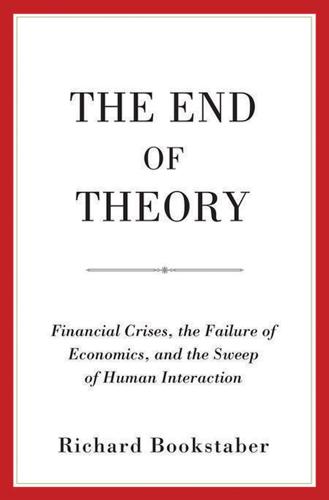
The End of Theory: Financial Crises, the Failure of Economics, and the Sweep of Human Interaction
by
Richard Bookstaber
Published 1 May 2017
For example, in addition to the asset shock, we could insert an exogenous funding or credit shock in one of the periods. In such cases, the progress of the dynamic will generally be extended. As we will see in section V, for the 2008 crisis these channels were important. 12 Liquidity and Crashes In one news segment on Saturday Night Live, the newscaster announces, “And today on the New York Stock Exchange, no shares changed hands. Everyone finally has what they want.” The punch line raises a legitimate point: Shares are always trading. We are never satisfied with what we have. The principal reason that prices vary, especially in the short term, is the demand for liquidity that results from our apparent fickleness.
…
See also Russell, Bertrand; Whitehead, Alfred North radical uncertainty, 12, 18; defined as, 50–51; economists’ view of, 197; and heuristics, 68; and the Library of Babel, 63 (see also Library of Babel); and the limits to knowledge, 52; and the nature of humanity, 60; and risk management, 121; in unknown state versus unknown probabilities, 198; and warfare, 117, 121 railroads, 4 rational expectations, 86 Rational Expectations Hypothesis (REH); fallibility and, 175; and reflexivity, 175; reflexivity, comparison to, 115 rationality, 87 reflexivity, 58, 60, 113; and complexity, 115, 122; and the cognitive function, 114, 137–138; and elements in modeling, 114; and fallibility, 59; and heuristics, 115; manipulative function in, 114, 137–138; time-and-context in, 183 regime shift, 105 regularity conditions, 29 regulators, 15 representative agent, 81–82 reproduction, 72–73 Reynolds, Craig, and boids, 37 Ricardo, David, 3–4, 91, 188 risk management: radical uncertainty in, 121 (see also radical uncertainty); in warfare, 121 risk transformations, 131 Rome, 131 Rorty, Richard, 178 Rothschild, Baron, 4 Royal Society, 52 Rumsfeld, Donald, 50 Russell, Bertrand, 52–53 Saari, Donald, 29 Samuelson, Paul, 84 Sartre, Jean-Paul, 77 Sargent, Thomas, 71, 103 Saturday Night Live, 144 Say, Jean-Baptiste, 4 Securities and Exchange Commission (SEC), 147–148 securities lenders, 136 self-fulfilling prophecy, 113 self-referential systems, 57, 60 self-replication, 31 Shackle, G.L.S., 85 Sharpe, William, 85 Shereshevsky, Solomon, 76–77 Simon, Herbert, 110 SIVs, 161, 165 Slick, Grace, 50 Smith, Adam, 3–4, 188 Societie Generale (SocGen), 164 Solow, Robert, 92 Soros, George, 83, 115, 137; and reflexivity, 58–59 stampede: and emergence, 35–36; Hajj, example of, 34–36 Standard & Poor’s, 160 stock market crash (October 1987): and the New York Stock Exchange (NYSE), 145–147; and portfolio insurance, 145–147 (see also portfolio insurance); and the S&P 500, 145–147 subprime mortgages, 160–161 Sun Pin, 117 Syll, Lars, 138 Thomas Theorem, 108 tight coupling, 112 Turing, Alan: and David Hilbert’s program, 54 (see also halting problem); and the halting problem, 31, 55; and the printing problem, 55; and Turing test, 196; and the universal Turing machine (UTM), 54 (see also universal Turing machine) Tversky, Amos, 45–47 Unbearable Lightness of Being, The, 60–61 uncertainty principle, 56–57; and the limits to knowledge, 51 universal Turing machine (UTM), 32, 54–56 University of Chicago, 3 Victorian England, 3–4 Volcker Rule, 156, 158 Walras, Leon, 194 Washington Mutual, 11 white night, 131 Whitehead, Alfred North, 52–53 Wittgenstein, Ludwig, 40 Wolfram, Stephen, 26–27 A NOTE ON THE TYPE This book has been composed in Adobe Text and Gotham.
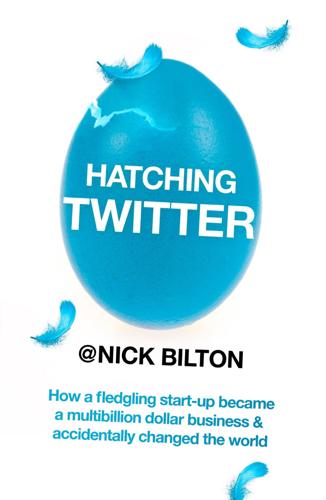
Hatching Twitter
by
Nick Bilton
Published 5 Nov 2013
They chatted with Lauren Bush, the former first cousin, and Jon Favreau, the personal speechwriter for the president of the United States. As Jack found his way to his seat on the upper level, he scanned the room, looking for Ev. He caught a glimpse of Michelle Obama, then spotted Lorne Michaels, producer of Saturday Night Live, who looked like a forlorn teenager as he played with his phone and ignored everyone around him. Close by, Glenn Beck, the conservative Fox host, was snapping pictures with his smart phone while he chatted with Arianna Huffington, the liberal blogger. Behind them Jimmy Fallon gave a small laugh at a joke.
…
Although he graduated with a number of job offers from big tech companies, Dick instead chose to pursue his new and improved dream of becoming a world-famous actor, comedian, or both. He packed his bags and set out to Chicago to join the Second City sketch-comedy and improv troupe in hopes of eventually making it on Saturday Night Live or getting his own TV show. It didn’t work out that way. Although Dick was a talented comedian, he found himself doing improv shows at night and working in a Crate & Barrel, wrapping flatware and selling place settings, during the day to pay the bills. Eventually this wore thin, and in the early 1990s he decided it was time to put his computer science degree to work and took a job at Andersen Consulting to subsidize his comedy career.
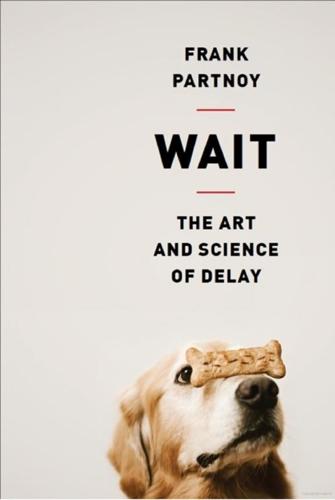
Wait: The Art and Science of Delay
by
Frank Partnoy
Published 15 Jan 2012
But the public accepted Morgan’s apology. People wanted acknowledgment, explanation, remorse, and repair, in that order, and that is what Morgan gave them. His apology reminded them that his numerous previous gay spoofs had been funny, insightful, and obviously ironic—not malicious. No one who watches Saturday Night Live thought Morgan really would need to wolf down the drug Homocil to cope with having a son who likes to bake crème brûlée. By the end of June, Morgan was back onstage, even telling gay jokes: “I’m 42, man, and now all of a sudden I’m homophobic? My father was the lead singer in the Village People … I was sitting right there when he wrote the song, my daddy.
…
Morgan, 95 Judgments, 195, 239–240 bad, 168 making, 89, 91 snap, 88, 89, 100 social, 94 subjective, 91 Kahneman, Daniel, 63, 157, 176 Karlović, Ivo, 22 Katz, Lynn: heart rate and, 6 Kedrosky, Paul, 150, 151 Keynes, John Maynard, 223, 224 King, Larry, 114 King, Martin Luther, Jr., 114 King’s Speech, The (movie), 115 Kirby Delay-Discounting Monetary Choice Questionnaire, 162, 163 Klein, Gary, 70–71, 89, 113, 180 blitz chess and, 72–73 study by, 71–73, 76 Knight, Frank, 245 Knowledge Is Power Paradigm (KIPP), 14 Kreuger, Ivar: speaking and, 115 Kroft, Steve news judgment and, 195 Obama interview and, 187–188 questions by, 189–191, 194 rethinking/reordering by, 189 on timelines, 194–195 Ku Klux Klan, 84 Kunda, Gideon: study by, 203, 204 LaCota, Irene, 117–118, 119, 124, 127–128 Laibson, David, 161 Language, philosophy of, 170 Latency, 38, 39 Lavoisier, Antoine, 229 Lawrence, Stephen, 85 Lazare, Aaron: on apologies, 135, 138, 139 Learning Clinical Reasoning, 181 Lee, Chris: apology by, 143 Lehman Brothers, 36, 192, 233, 234 Lehrer, Jonah, 27 Leisure, 202, 206 LeMaster, Frank, 66, 67, 77 Leonardo da Vinci, 149 Levine, Robert: on Connors, 24 Lewinsky, Monica, 143, 144 Libet, Benjamin, 28–29, 30–31 Life decision-making and, 240–241 value of, 240, 242 Listening, speaking and, 115 Lit Show, The (radio program), 87 Living patterns, time and, 197 Loewenstein, George, 157, 158 Logical deliberation, instinctive emotion versus, 64 Logos, 53, 54 fast food, 55, 56, 57, 59, 61, 100, 205 subliminal flashes of, 55 Lopez, Angel, 22–23, 26 Mad Men, 51 Mad Money (Cramer), 174, 175, 177 Madoff, Bernie, 237 Management, mistakes and, 218 Manson, Charles, 23 Marshmallow time, 16, 17, 157 Massachusetts Institute of Technology, 45 Match King, 115 Match.com, 118–119 Matrix, The, 105 Max Payne 2: The Fall of Max Payne—A Film Noir Love Story (Payne), 105 Mazur, James discount rates and, 161 experiments by, 159–160 procrastination and, 160, 162 McDonald’s, 55, 56 Iron Chef and, 52 logo of, 206 stimuli at, 54 McKinney, Odis, 65 McKnight, William, 217 McKnight Principles, 218 McLeod, Peter, 25–26, 29, 218, 220 Einstellung effect and, 221 eye movements and, 222 three-move solution and, 219, 221 McNamara, Robert: apology by, 144 McNerney, James, 227–228 Medical advice, biased, 184 Medulla oblongata, 1 Memories, stimulation and, 105 Mental health, 11, 13, 15, 16, 104 heart rates and, 2–3, 5 hearts and, 12 Mind, 63 bypassing, 113 control, 51 Minnesota Mining and Manufacturing Company, 211–212, 213, 217, 223 big ideas and, 215 family at, 228–229 innovation by, 225–226 sticky notes and, 225–226, 227 Miracle at the Meadowlands, 78, 80 Mistakes allowing for, 217–218 checklists and, 182 impatience and, 159 Money emotional states and, 206 making/losing, 40 “Money and Investing” (Wall Street Journal), 192 Morgan Stanley, 46, 97, 179 Morgan, Tracy: apology by, 139–140 Multitasking, focus and, 201 Murrow, Edward R., 188 Mutual funds, 176, 178 NASDAQ, 36 National Association of Broadcasters, subliminal advertising and, 51 National Football League, 66n, 80 National Geographic, 57 Nervous system, 10 Neuroeconomics, 151 Neurofinance, 151 Neurons, 68, 69 Neuroscience, x, xi New York Stock Exchange (NYSE), 35, 36 New York Times, 143, 192 News gathering, writing and, 193 Newton, Isaac, 214, 218, 226 Nicklaus, Jack, 68 1984 (Orwell), 51 Nixon, Richard, 132 Nordhaus, William, 239 Normal accidents, 44, 245 Normal Accidents (Perrow), 44 Novices, decision-making and, 75, 76, 77 Obama, Barack Croft interview of, 187–188 thoughtfulness/decisiveness of, 191 Observe-orient-decide-act (OODA), 126, 127, 128, 135, 139, 145, 180, 190, 224 Observe-process-act, 45, 142, 143 Obsessive-compulsive disorder, 167 Office of Management and Budget (OMB), 238, 239, 240–241 On Apology (Lazare), 135, 138 One-Marshmallow Child, 14 Online dating sites, 118, 119 Options, comparing/choosing among, 71, 75 Orwell, George, 51 Overindulgence, 164, 237 Oxygen, discovery of, 229, 230 Packard, Vance, 51 Page, Larry, 229 Palin, Sarah: squirmish and, 108, 109 Panic, 5, 104–105, 110n, 113, 116, 122 impact of, 103–104, 106 obsession with, 110–111 pauses and, 114 time and, 104, 106, 116 Passion of the Christ, The (movie), 140 Pause points, using, 182–183 Pauses, xii, 115–116, 185 panic and, 114 Pay hourly, 203, 204 inequities, 208 Payne, Max, 105 Payne, Neo, 105 Performance, 6, 25, 113, 231 Perold, André, 33, 34, 48 Perrow, Charles, 44, 245 Perry, John: procrastination and, 169, 170, 171 Personality, 89, 150 Pervasive developmental disorder, 15 Pfeffer, Jeffrey, 205 Philosophical questions, unanswerable, 240 Physical reactions, 23, 96 unconscious, 20 visual reaction versus, 21 Pigeons attention spans of, 161 discount rates of, 161 experiment with, 159–160 procrastination by, 162 Pink, Dan, 203 Pisarcik, Joe, 65, 66, 67, 77, 78, 79 Pitt, Brad, 49 Planning, 48, 202, 238, 245 Pneuma-gastric nerve, 3 Poker strategy, teaching, 45 Policy decisions, strategic thinking and, 243 Porges, Stephen, 4, 9, 10, 11, 13, 222 heart rate variability and, 3 heart rhythm tests and, 3 on nervous system, 10 psychological states and, 1, 5 raising children and, 12 research by, 7 theory of, 6, 8 vagal nerve and, 2 Poses, high-power/low-power, 97, 98 Post-it, 226–227, 228, 230 Postmortem reviews, 76 “Predicting Divorce Among Newlyweds from the First Three Minutes of a Marital Conflict Discussion” (Gottman), 87 Preferences, unconscious, 83 Prejudice, 81, 83, 84 Premortem, 76–77 Prepare phase, 24, 25, 26, 27, 30 Pressure, biological reactions in, 79 Priestly, Joseph: oxygen and, 229, 230 Principles of Scientific Management, The (Taylor), 200 Probabilities, 94 discounting and, 154, 155 procrastination and, 153 Procrastination, xi, 147, 155–156, 162, 166, 171, 218 active/passive, 150 challenging, 173 chronic, 149 covert, 169 delaying, 150, 156 discount rates and, 153, 154, 158, 164 economic model of, 158 economist approach to, 150–151 good/bad, 167 guilt about, 149 impatience and, 159, 164–165 meaning of, 168 as mental disorder, 167 overindulgence and, 164 pigeon, 162 research on, 149–150 stopping, 166, 167, 170 theory of, 152, 164 time inconsistency and, 160 “Procrastination and Obedience” (Akerlof), 152 “Procrastination, or The Sin and Folly of Depending on Future Time” (Edwards), 148 “Procrastination Workshops,” popularity of, 149 Procter & Gamble, 43 Psychological Bulletin, 85 Psychological disorders, 13, 16 Psychological states, 2, 3, 5, 54, 68 Psychology, xi, 2 economics and, 176 time and, 199 Pujols, Albert, 31 Punch lines, 107, 109, 126 Race, 90, 91, 93, 99, 100, 101, 185 behavior and, 83 epidemiology and, 184 treatment based on, 81–82 Racial preferences, 83, 84, 99, 100, 101 Racism, 82, 94 conscious, 83 implicit, 83n, 99 institutional, 84 medical, 184 unconscious, 83, 85 Raising CEO Kids, 14 Rationality, 71, 155 Rawls, John: well-being and, 240 Reactions, 88, 88n automatic, 64, 103 biological, 68, 69, 79, 90, 97 delaying, 14, 178 emotional, 7, 69, 136, 137–138 hard-wiring for, 244 physical, 20, 21, 23, 96 preconscious, 17, 27, 107 skills, 25–26 snap, 117, 126, 129, 184 superfast, 16, 113, 117 time for, 3, 25, 26, 114 unconscious, 111 visual, 21, 23, 25 Reagan, Ronald, 114 Relationships, 7, 120, 123 Remorse, 138, 139, 140 Reporters, 194 bloggers and, 193 Rescuers, The (movie), subliminal messages in, 52, 53 RescueTime.com, 165 Research programs, 54, 223, 243 Responses, 12, 25, 244 brain, 6, 21 delaying, 17 emotional, 16, 136, 137–138 fight-or-flight, 9, 69 gut, 128 psychological, 68 reptilian shutdown, 10 snap, 17, 28, 64, 111, 121–122, 124 sophisticated/creative, 20 Risk, 44, 242, 245 time and, 157 Robertson, Julian, 179 Rockne, Knute, 64 Roddick, Andy, 21, 22 Rogers, William C., III, 72, 77 attack by, 74–75 high-pressure situation for, 73–74 Rooney, Andy, 187 Rosenthal, Robert, 85, 86, 87 Ross, Wilbur L., Jr., 177 Ruffle, Bradley, 92, 93 Rule, Nicholas: female CEOs and, 91 Rumsfeld, Donald: unknown unknowns and, 245 Safety, 13, 233, 243 panic and, 104 paying for, 241 St. Augustine, 149, 151 Sampras, Pete, 23 Sanford, Mark, 143 Sarkozy, Nicolas, 234, 235, 236 Sarnoff, Dorothy: on speaking/listening, 115 Saturday Night Live, Morgan and, 140 Saturday Night Massacre, 132 Sawyer, Diane: Gibson and, 141 Scheele, Carl Wilhelm: Priestly and, 229 Schelling, Thomas: on planning, 244–245 Schlosser, Eric, 54 Schwarzenegger, Arnold: apology by, 143 Scully, Vin, 114 Securities, 176 trading, 33–34, 39–40 Securities and Exchange Commission, 35 “See-prepare-hit” strategy, 24, 25, 127 Self-consciousness, 111, 113, 116 Self-control, 13, 14, 15 Self-esteem, 14, 149, 152 Sen, Amartya, 233 Senate Watergate Committee, Thompson and, 132 “Sentence, The” (Gilbert), 112, 120–121 Service return, 22–23, 26, 29, 30, 244 fast, 24–25 gathering/processing information and, 24 second stage of, 22 speed of, 19–20 time for, 21 Sexual transgressions, apologizing for, 142–143, 144 Shop It To Me, 224 Shriver, Maria, 143 Shtudiner, Ze’ev, 92, 93 Signals picking up, 128 reptilian/mammalian, 10 sex, 91 Silence, 107n, 109, 190 communication and, 115 speech and, 116 Silver, Spencer, 213–214, 218, 225, 226 big ideas and, 215 creative thinking and, 230 experimenting by, 211, 212, 216–217 Minnesota Mining and, 228–229 Post-It and, 227 Simon, Paul, 107n 60 Minutes, 187, 188, 192, 195 Skidmore, Owings & Merrill, 34 Skills, 25–26, 165 social, 14 unconscious, 17 Skin conduction, 95, 96 Slow motion, 24, 122 Smith, Adam: on wages, 241 Society for Psychophysiological Research, 2, 3, 8 Socrates, 245 Speaking, 101 listening and, 115 Speech defect, 115 silence and, 116 Spitzer, Eliot: apology by, 143 Sports, superfast, 27, 28, 29, 47, 126, 183, 191 Spread Networks, 40 Squirmish, 109, 113, 180 Standard & Poor’s 500 Index, 41 Standardized tests, delayed gratification and, 13 Steel, Piers: procrastination and, 150, 151 Stereotypes, 81, 83, 100, 101 Stern, Nicholas, 239 Sternberg, Robert J.: on intelligence, 244 Stetson, Chess, 104 Stewart, Jackie, 105–106, 194 Stewart, Jon, 107, 113–114 Palin and, 108 pauses by, 115–116 punch lines and, 126 Sticky bookmarks, 216, 217, 218, 225 Sticky notes, 225–226, 227 Stiglitz, Joseph, 147–148, 152, 153–154, 155, 171, 233–234, 235 Stimulus, 9, 54, 69, 95–96 decision-making and, 70 fast food, 57, 58 memories and, 105 visual, 5, 21, 50 Stock trading, 38, 40, 43 breaks in, 46–47 computers and, 35 continuous, 46–47 high-speed, 41, 42 superfast, 35, 48 Strategies, 24, 25, 26, 45, 47, 127, 209, 243 Strengths, 111, 128, 129 Stress, 5, 6, 10, 98, 152, 201, 204 anticipatory, 96 body/brain and, 80 coping with, 14 reducing, 207 time and, 105, 206 Stumbling on Happiness (Gilbert), 120 Subliminal messages, 50, 64 behavior and, 60 fast food, 53–58 faster lives and, 59 influence of, 52–53, 59, 60–61 Subliminal Project Company, 51 Sun Tzu, 125, 191 Surgical procedures, slowing down, 182–183 Sustainability, 236–237, 240 discount rates and, 238–239 System 1: 67, 68, 70, 113, 128, 174 automatic reactions of, 64, 103 responding with, 134 System 2: 64, 67, 68, 113, 128, 174 breakdown of, 69–70, 103 responding with, 135 Taleb, Nassim, 245 Tasks, 126, 200 accomplishing, 169 putting off, 165, 169 Taylor, Frederick Winslow, 200, 201 Teamsters, 131, 132 Technology, xi, 151, 201, 202, 208, 212, 215 communication, 38 impact of, 199 information, 203 journalism and, 192, 193 understanding, 194 Telecommunications, 39, 58 Tension, 110n, 108, 112 Testosterone, 97, 98 Thaler, Richard, 157, 158, 159–160, 176 Thin slicing, 8, 85–86, 88, 88n, 90–91, 93, 98, 119 double-edge of, 91–92 mantra for, 86–87 snap judgment and, 89 time intervals and, 89 unconscious system and, 87 Thinking, 114, 121, 136 analytical, 180, 186 behavior and, 122–123 future-oriented, 45 innovative, 221, 230 intuitive, 181, 184, 186 long-term, 233 outside-the-box, 230 unconscious, 121 Thompson, Fred, 141 apology by, 133–134, 134–135 Clinton and, 131–132 delay by, 134, 147 on eating crow, 145 Three-move solution, 219 (fig.), 221 described, 219–220 Thrombolysis, 82, 99 Thucydides, 149 Thyroid function, 167, 184 Time behavior and, 71–72, 197 brain and, 105 decision-making and, x, xi delay and, 121 economy and, 200, 203 employers/employees and, 201 future and, 123 incentives and, 53 measures of, 200, 200n money and, 203, 204, 205 panic and, 104, 106, 116 psychology and, 199 risk and, 157 as slippery concept, 16–17 stress and, 105, 108, 205, 206 stretching, 113, 122 thin slicing and, 89 units of, 198 work, 201–202 Time cycle, 125–126 Time inconsistency, 158, 160 Time management, 16, 165, 173, 196 Time warping, 104–150, 106 Timing, xii, 63, 191 jokes and, 106–108 precise, 121 questions of, 138 scientific analysis of, 200 superfast, 30 To-do lists, 169, 198–199 Tokyo Stock Exchange, 46 Tolerance, x, 81, 217 Tompkins, Al, 191 Trade-offs, 165, 196 Trading, 41, 176 costs, 37 high-frequency, 35, 40, 43, 44, 45–46, 47, 244 high-speed, 36, 40 Trading firms, 4, 44, 45, 179 Transmission Control Protocol, 214 Tversky, Amos, 157, 176 Twain, Mark: on delay, 155 Twitter, 142, 224 Two-Marshmallow Child, 14 Unconscious, 70, 85, 111, 113 decision-making and, 83 Understanding, 137, 194 Unemployment, 201, 236 Unocal, CNOOC and, 192 UNX, Inc., 33–35, 36, 37, 38, 47, 48, 126 US Army Research Institute for Behavioral and Social Sciences, 70 USS Vincennes, 72, 73, 74, 75 Vagal nerve, 8–9, 10, 11 research on, 16–17 role of, 1–2, 245 Vermeil, Dick: on Gibson’s decision, 79 Veronica Mars, 110 Vicary, James, 50, 51, 53 Virtulink LLC, thin slicing and, 86 Viscusi, Kip, 242 Voice, 136 opportunity for, 137 Von Clausewitz, Carl, 245 Waddell & Reed, 41, 42, 43, 46 Wall Street Journal, 149–150, 167, 192 Wallace, David Foster, 20 Walt Disney Company, 52 Weaknesses, 98, 111, 128, 129 Weiner, Anthony: apology by, 142–143, 144 Welch, Jack, 227–228 Well-being, 233, 236, 237, 243 “What Physicians Can Learn from Firefighters” (Klein), 180 When Harry Met Sally (movie), 7 Where Good Ideas Come From (Johnson), 215 Whitworth, Ralph, 177 Willard, Greg, 83, 84 Williams, Ted, 25 Williams, Venus, 21 Wire, The, (television series), 53 Wired magazine, 203 Wohlstetter, Roberta, 244 Women, attractive, 91, 92, 93 Work hourly, 203, 204, 206 time stress about, 201 World Wide Web, 214 “Worms in a fight” metaphor, 109 Writing, 194 news gathering and, 193 Yap, Andy, 97 Yuen, Lenora, 149 Zellweger, Renee, 95 Zhong, Chen-Bo, 55, 56, 57 Zimbardo, Philip, 199–200 Zoosk, 118, 119 ABOUT THE AUTHOR FRANK PARTNOY is the author of F.I.A.S.C.O., Infectious Greed, and The Match King.
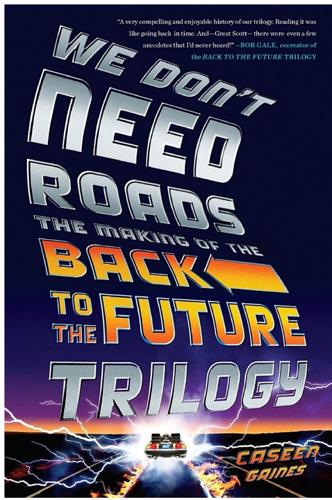
We Don't Need Roads: The Making of the Back to the Future Trilogy
by
Caseen Gaines
Published 22 Jun 2015
In the fall of 2012, General Electric hired Michael J. Fox to provide a voice-over for a television spot called “The Future Is Now,” which included a flying DeLorean time machine. The commercial received a significant amount of attention, airing during highly rated broadcasts of NFL games, The Daily Show with Jon Stewart, Saturday Night Live, and NBC News. However popular the General Electric ad was, the commercial was only the latest in a number of television advertisements inspired by the film. In 2007, Christopher Lloyd starred in a DirecTV ad for satellite television that used some material from the first film—that clock tower sequence, once again—alongside new footage of the actor, in costume as Doc Brown, seamlessly mixed in.
…
“But it was brilliant on his part to set up a foundation in his name where fans could get involved and fund-raise on his behalf to help Parkinson’s research.” To help attract attention to their auction to support Fox’s foundation, Nike shot an elaborate spot designed to make Future fans go wild. The commercial shoot was a small reunion for some alumni who worked on the trilogy on both sides of the camera. The clip starred Saturday Night Live’s Bill Hader and professional basketball player Kevin Durant, but the uniqueness of the ad came from seeing Christopher Lloyd and Don Fullilove, who played Mayor Goldie Wilson in the first two films, alongside each other again. Frank Marshall directed, in a throwback to his days on the first film’s second unit, and Dean Cundey returned in his old capacity of cinematographer.
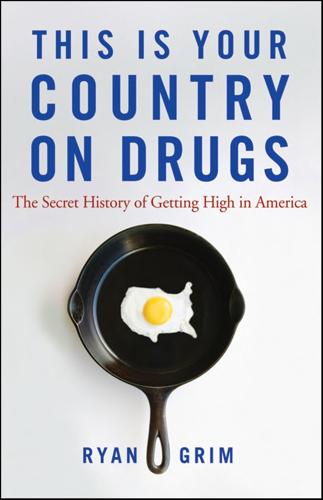
This Is Your Country on Drugs: The Secret History of Getting High in America
by
Ryan Grim
Published 7 Jul 2009
Almost every one of the group’s songs had something to do with cannabis, and it even quoted the Bible in defense of legalization, referencing Genesis 1:12: “and God gave all seed bearing plants on Earth to use.” The group’s self-titled 1991 debut spawned three top-twenty rap singles and sold two million copies over nine years. In 1993, the group smoked pot on the stage of Saturday Night Live, earning a lifetime ban. Hip-hop artists had plenty of help in exposing American youth to the joys and sorrows of drug use. Neopsychedelia flourished in the import bins of hip record stores in the early nineties in the forms of dream pop and space rock, with drone-obsessed British outfit Spacemen 3 proclaiming it was “taking drugs to make music to take drugs to.”
…
Clair, Jeffrey Salinas, Carlos Salinas, Raul Salon.com salvia (Salvia divinorum) Sampson, Wayne Sánchez de Lozada, Gonzalo Sandinista National Liberation Front San Francisco, California Haight-Ashbury and medical marijuana and See also California San Francisco Examiner San Francisco Patients Care Collective San Jose Mercury News Santo Daime church Saturday Night Live Scalia, Antonin “schedules.” See Controlled Substances Act Schneider, Keith Seattle Times sedatives Sellers, Charles Semesky, Donald September 11, 2001, terrorist attacks serotonin 7 Year Bitch Shanon, Benny Shroomery.org Shulgin, Alexander “Sasha,” Shulgin, Ann Sickels, Vicki Sinclair, Upton Skeletons from the Closet (Grateful Dead) Slate Smith, Anna Nicole Smith, Brian K.

Incognito: The Secret Lives of the Brain
by
David Eagleman
Published 29 May 2011
But signals move fairly slowly in the brain, millions of times more slowly than electrons carrying signals in copper wire, so neural processing of the snap takes time. At the moment you perceive it, the snap has already come and gone. Your perceptual world always lags behind the real world. In other words, your perception of the world is like a “live” television show (think Saturday Night Live), which is not actually live. Instead, these shows are aired with a delay of a few seconds, in case someone uses inappropriate language, hurts himself, or loses a piece of clothing. And so it is with your conscious life: it collects a lot of information before it airs it live.49 Stranger still, auditory and visual information are processed at different speeds in the brain; yet the sight of your fingers and the sound of the snap appear simultaneous.
…
Ballard (1963), a character named Hathaway is the only one who suspects that the dozens of gigantic blank signs towering over the roads are really subliminal advertising machines, encouraging people to take on more jobs and buy more products. A more droll incarnation of Subliminal Man can be found in comedian Kevin Nealon’s Saturday Night Live character, who says, during a talk show interview, “I’ve always liked watching this show (nauseating). It’s fun to be a guest on this show (torture). It’s kind of like a second home to me (Titanic).” 18 Graf and Schacter, “Implicit and explicit memory.” 19 See Tom, Nelson, Srzentic, and King, “Mere exposure.”
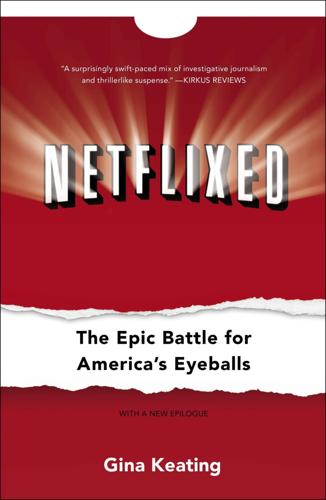
Netflixed: The Epic Battle for America's Eyeballs
by
Gina Keating
Published 10 Oct 2012
The licensing agreement for Starz’s roster of top-tier movie titles gave the instant streaming service legitimacy as a content provider equal to cable but at a fraction of the price. A similar deal with NBC Universal, for a deep selection of hit and classic television shows, including making Saturday Night Live available the day after it aired, came just as cheaply. Hastings made it known that Netflix had cash to spend for TV shows, movies, and straight-to-video content, but the overtures to studios and other content owners went unnoticed. The dam finally broke with the signing of an $800 million, five-year licensing agreement for new releases and library titles owned by EPIX, a pay-television service owned by Paramount Pictures, Lionsgate, and Metro-Goldwyn-Mayer.
…
“Reed, you may have an amazing vision of the future but you are suffering from major George Lucas syndrome—a visionary with a bunch of yes-men working for him,” wrote one poster. “Terrible idea. Bad after bad decision. What’s next, only offering movies made in the eighties? I’m getting tired of this. And you,” another wrote. When it seemed as if the opprobrium could not get worse, late-night television and professional comics piled it on: Saturday Night Live comedians Jason Sudeikis as Hastings and Fred Armisen as Rendich appeared in a Web video to poke fun at the apology and strategy changes, and Seinfeld actor Jason Alexander begged for donations for the Netflix Relief Fund on the Funny or Die Web site, calling the price increase “the worst thing that has ever happened to white people.”
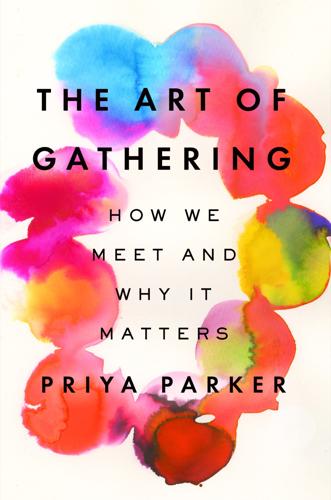
The Art of Gathering: How We Meet and Why It Matters
by
Priya Parker
Published 14 May 2018
The cold open is the practice of starting a TV show directly with a scene rather than with opening credits. In the 1950s, directors started experimenting with cold opens, seeking to sustain an audience’s attention after the previous show ended and keep people from flipping to another channel. When Saturday Night Live starts with a skit of several minutes that sometimes seems like part of a news show or other program, and only later reveals itself when the performers scream “Live from New York, it’s Saturday Night!” it is deploying the cold open at its best. The show understands that attention is everything in television, and once you have captured it, you can take care of business, thank people, attend to housekeeping.
…
D., 243 Authenticity, 46, 63, 96, 193–225, 279 approaches designed for, 202–10 at family gatherings, 217–20 openings promoting, 183–85, 220–22 priming for, 151, 194–201 risk management and, 223–24 speeches expressing, 202–10 in storytelling, 210–15, 222–23 stranger quotient for unleashing, 215–17 Authority, 36, 75–109 abdication of, 36, 75–77, 106–9 commitment to, 77–81 generous, see Generous authority ungenerous, 100–109 AV equipment, xi Babson College, 159 Baby showers, 8–9, 11, 20–21 Bachelor parties, 147–49, 170 Back to the Bay, 38–40, 46 Banaras Hindu University, 219 Bangkok, 140 Ban Ki-moon, 63 Baquet, Dean, 11–14 Barrett, Daniel, 191 Barrett, Felix, 147–49, 170 Battle of the Bands, 260 BBC, 60, 216 Bedolla, Toma, 203 Belgium, 52 Benedetto, Ida, 243 Benedict College, 89 Berman, Amanda, 5–8 Biddle, Eve, 160 Birthday parties, ix, xiii, xiv, 4, 8, 17, 270 rules for, 113, 216–17 venues for, 67, 166–67 Black and White Ball (New York), 91–92 Blair, Tony, 63 Board meetings, ix, xiii, 4, 144 Bobs, 43–45 Bonding, see Connecting Bonnaroo, 53 Bono, 63 Boston, 128 Brahmins of, 118 Boulder (Colorado), 113 Box ritual, 183–85 Brainstorming, 24, 33, 67, 151, 156, 159 Brazil, 44 Brooklyn (New York), 4, 72, 161, 186 Brooklyn Brewery, 169 Brooklyn Heights Montessori School, 191 Bucharest, 122 Buddhism, xii, 251 Burma, 63 Bush, George W., 227 Butts, Calvin O., III, 134 Calabrese, Alex, 4, 6–7 Camino de Santiago (France and Spain), 57 Campbell, Robert Chodo, 251, 153 Canada, 202 Capote, Truman, 91–92 Carroll, Lewis, 165 Carter, Jimmy, 63 Catholic Church, 229 Catholic Youth Ministry Hub, 112 Cecchini, Dario, 179–80, 186, 256 Central Park (New York), 135 CEOs, 18, 36, 51, 54, 84, 89, 132, 198 Ce Soir Noir, 129 Change Agents Now (CAN), 208–10, 218 Charleston (South Carolina), 260 Château des Mesnuls, 59–61 Château Principle, 58–62 Chatham House Rule, 198 Chesterfield, Earl of, 118 China, 98 Christians, xiii, 118 evangelical, xii Christmas parties, 114, 152–53 Chumbivilcas Province (Peru), 235 Churchill, Winston, 54 Circle of Friends, 268–70 Cirque du Soleil, 152 Citigroup, 59 Cleveland Institute of Music, 46 Clinton, Bill, 260 Clinton, Hillary, 63, 260 Clooney, George, 63 Closings, 116, 173, 205–6, 221, 245–81 connecting during, 259–62 dynamics of, 267–70 last call method of, 254–56 logistics as problem in, 246–48, 270–73 priming for, 250–54, 258 purpose recalled in, 28, 275–77 reentry phase of, 262–67 of rituals, 10, 185 rules for, 127, 131, 223, 235–36 significance of, 248–50 timing of, 256–58 CNN, 85 cognitive progressing restraints, 173 Cohen, Leonard, 201 Colombia, 278 Colorado, 113 Color Games reentry process, 264–65 Community building, xii, 159, 169, 242, 264, 270 Community Table, 159 Conferences, ix, x, xiv, 11, 52, 142, 172, 203, 220 closing sessions of, 245–48, 255, 259–60, 268 Fifteen Toasts dinners on sidelines of, 220–21 opening of, 174, 175, 184, 187–89 Opportunity Collaboration, 89–91 panels at, 228 priming for, 94, 161–62, 194–201 purposes of, 17–19 rules for, 81–82, 99–100, 112 social contract of, 156–57 Conflict, 52, 83, 117, 213, 258, 262–63 aversion to, 72 group dialogues to resolve, 149–50 racial, 48–49 over social contracts, 155–56 See also Controversy Conflict resolution professionals, xi, xii, 263 Connecting, 3, 22, 29–30, 32–33, 37, 42–43 authenticity in, 195, 203, 206–7, 209–11, 222 authority and, 92–99 in closings, 253, 259–62, 277, 279 through controversy, 225, 233, 239 failed, x–xi, 2, 103, 105, 108–9, 112 inclusion versus exclusion and, 42–43, 48, 53, 56, 64 openings encouraging, 174, 183–90 priming for, 155, 159–60 in temporary alternative worlds, 122–31, 143–44 Contention, see Controversy Controversy, 43–45, 143, 168, 225–44 avoidance of, 226–29, 233 benefits versus risks of, 243–44 ground rules for, 236–43 purpose and, 40, 229–33 structures for generating, 233–36 See also Conflict “Conversation Menu” (Zeldin), 217 Cooke, Ed, 67 CraftJam, 95 Creativity, xiv, 108, 113, 125, 140, 151, 187, 191, 274 Crosby, Stills, Nash & Young, 200 Cunningham, Amy, 277, 279 Dance parties, 69, 116, 135, 151–52, 161, 257, 273 Daoists, 138 Davis, Deborah, 91 Davos (Switzerland), 194 Daybreaker, 273–74 Dean, Will, 182–83 Decision making, 1, 4, 19–20, 24, 25, 49, 59, 82 in closings, 257–58 group, 231–32, 238 impediments to, 80, 132, 143–44 purpose and, 31–32, 34, 49, 90, 111, 145 stories about, 209, 212 Democratic Party, 171 Denmark, 202 Departure, see Endings Detroit, 161, 270 Dialogues, xi–xii, 102, 149 racial, 48–49 Digital workbooks, 154–55, 238 Dîner en Blanc, 122–31 Dinner parties, ix, 8, 52, 62, 100–101, 123, 146, 188 etiquette at, 88–89, 117, 121 flash mob, 122–31 last calls at, 255–56 purpose of, 27–29, 31, 275 social contracts for, 156 toasts at, 198–201 venues for, 62, 69, 71–72, 79 Diplomacy, 48, 88, 149–51 Directors Guild of America, 176–77 Disagreement, see Controversy Diversity, 45–51, 119, 129, 260 Dolnick, Sam, 13 Doorways, 164, 168, 169 DoSomething.org, 234 Dunbar, Robin, 53 Dunne, Griffin, 184 Duplass, Jay, 184 Düsseldorf, 125 Egypt, 95, 97, 262 Elizabeth II, Queen of England, 256 Ellison, Koshin Paley, 251–54 Embodiment, 22, 55–58, 61, 68, 176, 190–91, 235, 276 Endings, see Closings England, 226 “Enter Sandman” (Metallica), 264 Etiquette, x, 114, 116–21 rules versus, 125–28, 131–33 Etiquette (Post), 226 Evangelical Christians, xii Event planners, x, xi, xiv, 68, 244 Evite, 112 Exclusion, 36–49, 85, 114, 120, 161 diversity activated by, 45–49 kindness of, 36–40 Facebook, 127–28, 132, 137 Facilitators, xi, 43, 50–52, 54, 146, 172 methods of, 197, 223–24, 247 rules of, 143, 240 venues beneficial for, 57, 62 Family reunions, ix, 45, 215, 245, 267 Fermor, Patrick Leigh, 62 15 Toasts format, 202–5, 211–13, 215–18, 220–21, 224, 239 Fight Club (movie), 235 Fit, 11, 16, 18, 42, 160 Flash mob dinner parties, see Dîner en Blanc “For a New Beginning” (O’Donohue), 276 Four Seasons, 178 France, 35–36, 57, 59–61, 122, 126, 216 Freemasons, 226, 228 French Polynesia, 122 “Friendsgiving,” 234 Frick, Patrick, 54 Funerals, ix, xiv, 2, 157, 173–75, 251–52, 277, 279 Gaddafi, Muammar, 63 Garden City (Kansas), 91 Gastonia (North Carolina), 115 Gays, see LGBT people Gelles, Alison, 261 Generous authority, 81–100, 136–38 commitment to, 97–99 connection process in, 92–97 equalization through, 87–92, 96 protection of guests with, 83–87, 95–96 rules for, 99–100 George, Bill, 208–9 George Washington University School of Business, 276–77 Gergen, David, 85–86 Germany, 41, 95, 97, 121, 125, 214 Giessen (Germany), 41 Glassdoor, 227 Golden Gate National Parks Conservancy, 67–68 Golden Retriever Festival, 31 Goldman, Jesse, 272 Google, 132–33, 137 Government officials, xii, 72, 149–50, 161 Graham, Katharine, 91 Grand Paradise, The (Third Rail Projects), 164 Greece, 62 ancient, 116–17 Green, Duncan, x Green, George Dawes, 210–12 Greenberger, Rachel, 159 Greeting, see Welcoming Group dialogues, xi, xii, 40 Guardian, x Guggenheim Museum, 166 Haiti, 125 Hamburg (Germany), 121 “Happy Hour,” 160 Harris, Shane, 129–30 Harris, Tristan, 132–33 Harvard University Business School, 208 Kennedy School, 75, 207–8 Heat, see Controversy Heiferman, Scott, 18 Heifetz, Ronald, 75–76, 81 Hill, Thomas Edie, 226 Hilton Head (South Carolina), 260 Hinduism, xii, 10, 21 Hjelm, Christina, 184–85 Hollywood Hills, 57 Hollywood Reporter, The, 184 Holtrop, Bernardus, 222–23 Honesty, see Authenticity House of Genius, 113, 121, 203–4 Housekeeping, see Logistics How to Plan a Great Event in 60 Days (Isip), 147 How We Gather (Thurston and ter Kuile), x Huffington, Arianna, 168 “I Am Here” days, 133–39, 159 Identity, 9, 18, 38, 120, 216, 237–38, 267 group, 11, 33, 246, 264–65 transformative, 9, 268 “If These Were My Last Remarks” closing session, 261–63 Illinois, 89 I Love Dick (television series), 183, 184 Immersive theater, 148, 164–65 Impact Hub Los Angeles, 86–87 Inclusion, 50, 85, 137, 140, 206 excessive, 36, 38, 48 In Cold Blood (Capote), 91 India, xi, xii, 10, 217–20, 262 Tamil tribes in, 118 Influencer Salon, 112–13 Initiative for Track II Dialogues, 149 Instagram, 139 International Monetary Fund, 227 Internet, 111–12 Invitations, xi, 29–30, 34, 88, 103, 116–17, 156, 248, 260 authenticity and, 188–89, 195–96, 203–4, 220–22 to campus speakers, controversies about, 227–28 equalization and, 88–92 for forging connections, 92–94 inclusive versus exclusive, 35–53 openings and, 166–68, 171 priming role of, 152, 155, 157–63 to rule-based events, 112–14, 123–28, 135–37, 216–17 venue considerations for, 53–69 Iowa, xi, 117 Iran, 63 Ishihara, Kumi, 125–28, 130–31 Isip, Rashelle, 147 Islam, xii, 150 Israel, 262, 267 Istanbul, 18 Italy, 179 Ixtapa (Mexico), 89 Jaipur, maharani of, 91 Jamaica, 125, 275–76 Japan Dîner en Blanc in, 125–31 tea ceremonies in, xiv, 19, 168 Jefferson, Thomas, 88 Jeffersonian Dinner, 113, 121 Jesus, 51 Jews, 49, 118, 138 See also Judaism Johns Hopkins Hospital, 187 Jones, John, 47 Jordan, 262 Judaism, xiii, 19, 279 Judson Manor, 46–48 Jungian psychology, 214–15 Junior Cotillions, 114–16, 118–20 National League of, 115, 119 Kalamata (Greece), 62 Kansas, 91 Kenya, 186 Kigali, 122 Kindles, 160–61 Kingston, 122 Kyoto (Japan), 19 Lader, Philip and Linda, 260 Lagarde, Christine, 227 Landecker, Amy, 184, 185 Laprise, Michel, 152–53 Las Vegas, 140 Latinos, 129 Latitude Society, 143 Launching process, see Openings Laudicina, Paul, 143–44 Law of Two Feet, 142–43 Lazarus, Lisa, 208–10 Leadership, 12–14, 32, 36, 75–76, 195, 208 League, Tim, 84 Lebanon, civil war in, 149 Leberecht, Tim, 196, 198, 213 Levit, Igor, 166 Levy, Clifford, 15–16 Lewin, Leslie, 263 LGBT people, 18, 40, 49, 100, 129, 237 Libya, 64 “Life as Seeds” closing event, 265–66 Lim, Leng, 224 Lincolnton (North Carolina), 115 LinkedIn, 272 Locations, see Venues Logistics, x–xi, 9, 53, 79, 146–47 in openings and closings, 173–78, 245–46, 270–73 London, 18, 125, 147, 216–17 Los Angeles, 57, 66, 86–87 Louis XIII, King of France, 60 Lucas, George, 176–77 Lucent, 59–61 Lyall, Sarah, 161 Lysette, Trace, 184 Mac, Billy, 68–69 Macbeth (Shakespeare), 148 Macy’s department store, 273 Maine, 262 Marx, Groucho, 180 Massachusetts, 159 Massachusetts Institute of Technology (MIT) Media Lab, 81 Massey, Alana, 73–74 Massey, Kyle, 12 Mecca, 53 Medici, Daisy, 82 Meeteor app, 24 Meetup, 17–18 Melville, Herman, 178 Merkel, Angela, 63 Merry, Anthony, 88 Metallica, 264 Mexico, 89–90 Microsoft, 175 Middlebury College, 228 Middle East Institute, 149 Million Man March, 53 Minneapolis, 246 Moby-Dick (Melville), 178 Modesty, 27–29, 61 Monterey (California), 81 Moth, The, 210–12 Mugabe, Robert, 63 Multitasking, 27–28 Murray, Charles, 228 Museum of the City of New York, 134 Museum of Modern Art (MoMA; New York), 55–57, 165 Muslims, xiii, 167 Muyanga, Neo, 172–73, 248–49 Ndevana, Tshilidzi, 235 Negroponte, Nicholas, 81–82 Netherlands, 35, 47 Networking, 2–4, 12, 51, 142, 156, 195–96, 203, 206 New Age, xii New Jersey, 59, 61, 181 New Orleans, 113, 128, 273 New Year’s Eve, 260, 278 New York City, xiii, 64, 73, 91, 94, 95, 117, 148, 159, 164, 214, 273, 277 Dîner en Blanc in, 124, 125, 129 15 Toasts dinners in, 215–16 House of Genius gatherings in, 203–7 “I Am Here” days in, 133–39, 159 immersive theater in, 148, 164, 169 museums in, 55–57, 134, 167 risk-taking events in, 243–44 Zen Center for Contemplative Care in, 251 See also Brooklyn New Yorker, The, 63 New York Times, The, 7, 11–16, 60, 62, 92, 148, 162, 235, 257 Night Heron, 243 90 percent rule, 149–52 Non-governmental organizations (NGOs), xii, 275 North Carolina, 115 University of, at Charlotte, 149 Obama, Barack, 38, 63, 89, 101–3 Obama, Michelle, 227 O’Donohue, John, 276 Ohio, 46 Olympics, 53 “On Children” (Sweet Honey in the Rock), 200 Onion, The, 57 Ono, Yoko, 63 Openings, 100, 172–91, 193, 197, 254, 278 connecting in, 181–91 honor and awe in, 178–81 priming for, 155–63, 220 problems to avoid in, 173–75, 178, 245–46, 270–71 sponsors in, 174–77, 246 ushering through thresholds into, 163–72, 277 Open Space Technology, 142 Opportunity Collaboration conference, 89–90 Ortmann, David M., 214–15 Otisfield (Maine), 262 Owen, Harrison, 142–43 Oxford University, 216 Pakistan, 262 Palais-Royal (Paris), 123 Palestine, 262 Panels, 85–86, 93, 189, 228, 255, 261 Panzano (Italy), 179 Parc de Bagatelle (Paris), 122–23 Paris, 122–23 Park Avenue Armory (New York), 166 Participatory theater, 162, 164 Parties, x, 66–69, 72–73, 86–87, 90–92, 96–97, 168–70, 199–200, 222 endings of, 248–50, 255–57, 279 holiday, 114, 152–53, 185–86, 260 logistics versus guests’ experience as focus of, 146–49 See also Birthday parties; Dance Parties; Dinner parties Parvin, Daniel, 48 Pasquier, François, 122 Passageways, 164–70, 185 Passover Principle, 19, 128, 157 Perel, Esther, 189 Performance art, xiv, 103, 165 Pergam, Andrew, 188–89 Personal Democracy Forum, 175–76 Peru, 235 Philadelphia, 171 Pignatelli, Luciana, 91 Pinterest, 8 Platon, 63–65 Plaza Hotel (New York), 91 Polynesia, French, 122 Pont des Arts (Paris), 123 Port-au-Prince, 125 Post, Emily, 226, 228 PowerPoints, xi “Praxis” facilitators, 143 Pregame, see Priming process Presidio (San Francisco), 67–68 Priming, 145–63, 170, 182, 240, 258 methods of, 94, 96, 150, 152–55, 194–201 by naming event,158–61 90 percent rule for, 149–52 social contract in, 155–58 to sustain interest, 161–63 Princeton University, 278 Psychological threshold, 169–71 Punchdrunk theater company, 148 Purpose, xi, 16–34, 71, 106, 111, 185, 194–96, 227 categories differentiated from, 2–4 in closings, 261, 264, 269, 275–77, 280 commitment to, 1, 16–21 controversy and, 40, 229–34 crafting, 21–27 decision making and, 31–32, 34, 49, 90, 111, 145 failure to achieve, 90, 102 generous versus ungenerous authority in realization of, 75, 77, 81, 85, 90, 102, 105 inclusions and exclusions determined by, 35–53 in openings, 175, 191 priming for, 154–55, 157, 160 problems due to lack of, 27–31 rules supporting, 121, 142–44, 205, 218 venues appropriate for, 53–69 Pussy Riot, 63 Putin, Vladimir, 63 Quakers, xiv Quora, 227 Racial issues, xii, 46, 48–49, 261 Rasiej, Andrew, 175 Reagan, Ronald, 115 Realness, see Authenticity Red Hook Community Justice Center, 4–8, 16, 21 Regent’s Park (London), 216–17 Renaissance Weekends, 260–62 Republicans, 49 Retreats, 29, 140, 267 Reunions, ix, 45, 58, 73, 215, 245, 267 Rhythm 0 (Abramović), 165 Rice, Condoleezza, 227 Rikyū, Sen no, 19 Ritualized gatherings, 8–16, 19, 40, 135, 157, 234–36, 279 openings of, 167, 182–85 See also Funerals; Weddings Rocky (movie), 230, 232 Royal Institute of International Affairs, 198 Roychowdhury, Sugata, 180 RSVPs, 114 Rules, 7, 41, 101, 112–45, 198, 203–5, 228 for addictive technology use, 131–33 for closings, 262, 280–81 for controversy, 230–31, 234–36, 240–41 etiquette versus, 118–22, 131, 140–42 for exclusion, 36, 40–41 at family gatherings, 217–20 generous authority and, 77–78, 81–82. 84–87, 92, 96 invitations including, 112–14, 122–28, 134–37, 216–17 priming for, 149–52 for venues, 65, 68 Russia, 63 Rutgers University, 227 Sanders, Bernie, “Future to Believe In” rally, 171–72 San Francisco, 67, 143 Saturday Night Live (television series), 177 Sawyer, Dave, 248 Schacht, Henry, 60 Schumer, Amy, 82 Scotland, 31 Seeds of Peace, 262–67 Seinfeld (television series), 16 Seinfeld, Jerry, 54 Sextantworks, 243 Sexual Outsiders: Understanding BDSM Sexualities and Communities (Ortmann), 214 Shakespeare, William, 148 SheKnows.com, 111 Shiva, xiii Singapore, 122, 125, 128, 258 Singing rule, 198, 218, 223 Size of gatherings, 45, 50–53, 69, 92–93, 98, 105, 123, 256, 260 See also 15 Toasts format Sleep No More (Barrett), 148 Slim, Randa, 149–51 Smith, Michael J., 249 Smith College, 227 Snapchat, 137 Snowden, Edward, 63 Social contract, 141, 155–58 Social Good cage fight, 234 Social Innovation and Civic Participation, Office of, 101–2 Social media, 234 Soloway, Jill, 183–85, 190 South Africa, 172, 202, 235 South Carolina, 202, 260 South Dakota, xi South by Southwest Conference, 99 Spark Camp, 52, 187–89 Spirituality, x, xi, 124, 250 Stanhope, John, 118 Star Wars (movie), 176–77 Star Wars: The Force Awakens (movie), 160–61 State of Enterprise Work survey, x State of Friendship in America 2013: A Crisis in Confidence, The, x Stewart, Elizabeth, 86–87 Stewart, Katie, 186 Stewart, Mamie Kanfer, 23 Stewart, Martha, 146–47, 158 Stockholm, 117 Strangers, 22, 76, 79, 88, 197, 237, 273 authenticity with, 207, 213, 215–17 rules on interactions with, 112, 126–27, 130, 138, 143, 203–4, 244 welcoming, 153, 168, 179 Supreme Court, 50 Sustained Dialogue, xii, 48–49, 51 Suu Kyi, Aung San, 63 Sweet Honey in the Rock, 200 Taboos, 234, 237, 239, 241, 244 Tahrir Square, 53, 63 Tamil tribes, 118 “Teach Your Children” (Crosby, Stills, Nash & Young), 200 TED conferences, 81, 83, 94, 259 Temporary alternative worlds, 111–44, 234, 249, 262, 267–69 examples of, 122–25, 133–44, 164–65 rules for, 112–122, 125–33 Ter Kuile, Casper, x Thailand, 140–43 Thanksgiving dinners, 24–25, 118 “Thanksgiving problem,” 234 Thank-yous, see Logistics Then She Fell (Third Rail Projects), 164, 165 Third Rail Projects, 164–65 Thomas Jefferson Encyclopedia, The, 88 Thurston, Angie, x Thurston, Baratunde, 138–39, 169, 185–87, 259 Time magazine, 63 Time Out magazine, 129 Timothy Convention, 243–44 Tokyo, 125, 128–31 Toledo (Ohio), 18 Tough Mudder, 181–83 Town halls, ix, 4, 90, 174, 228 Transparent (television series), 183, 184 Treasury Department, U.S., 102 Tribes, 23, 53–54, 98, 118, 124–25, 169, 181 familial, 20, 38, 82 fusing, 181, 184–85, 262 rules for gatherings of, 124–25, 138 See also Connecting Trocadéro (Paris), 123 True North (George), 209 Trump, Donald, 63, 211 Tsao, Tai, 23 Tshifudi (South Africa), 235 Tweedmouth, Lord, 31 Uniqueness, 17–20, 25, 32, 157, 186 United Arab Emirates (UAE), 194–95 United Kingdom, 217, 236 United Nations, 63, 64 United States, 88, 92, 115, 148, 149, 154 funerals in, 251–52 philanthropy in, 246 Ushering, 163–72, 254, 256, 279 missed opportunities for, 171–72 psychological threshold of, 169–71 through passageways and doorways, 164–69 Vancouver, 94, 129 Varelas, Chris, 59–61 Venda tribe, 235 Venues, 13, 19, 53–69, 123–24, 166, 169–70, 174, 228 area of, 67–68 Château Principle of, 58–62 density in, 68–69 displacement in, 61–64 embodiment in, 55–57 perimeter of, 65–66 switching rooms in, 66–67 See also names of specific venues Vermont, 171 Virginia, xi, 114 University of, xii, 48–49, 249–50 Visioning Labs, 160, 189, 278–79 Vulnerability, 195–96, 200, 206–8, 211–13, 215, 223, 262 Waldorf Astoria Hotel, 244 Wall Street Journal, The, 60 Walt Disney Company, 160–61 Warncke, Stefanie Zoe, 214–15 Washington, D.C., 72, 88, 128–30, 149, 181, 208 Washington Post, The, 91, 276 Wassaic Project, 160 Waterloo (Iowa), 117 Weddings, ix, 8, 10, 11, 94, 140, 146, 168, 250, 257–58, 271 number of guests at, 52–53 purpose of, 19–21 rules for, 97–98, 113 Welcoming, 1, 43, 96, 103, 134, 170, 178, 245, 257–58 absence of, 75–76, 100 to dinner parties, 107, 153, 168, 198, 220–21 to closings, 250, 254, 264 purpose and, 17, 18, 205 Werewolf game, 73 WhatsApp, 251 White House Office of Public Engagement, 102 Office of Social Innovation and Civic Participation, 161 Wilkins, Topher, 89–90 Williams, Tim, 203 Winters, Ann Colvin, 115 Wisdump, 112 Woon, Wendy, 55–57, 62, 63 Workbooks, digital, 154–55, 238 Workshops, 4, 57, 67, 143, 159, 247 World Bank, 200 World Cup, 53 World Economic Forum (WEF), 194–201 Global Agenda Council on New Models of Leadership, 195–201 Wurman, Richard Saul, 81–82 Young Presidents’ Organization, 51 YouTube, 230 Zeldin, Theodore, 216–17 Zen Buddhism, 251 Zen Center for Contemplative Care, 251–54 Zimbabwe, xi, xii, 63 Zimmerman, Eric, 66 Zulu tribe, 183 About the Author © Mackenzie Stroh Priya Parker is the founder of Thrive Labs, at which she helps activists, elected officials, corporate executives, educators, and philanthropists create transformative gatherings.
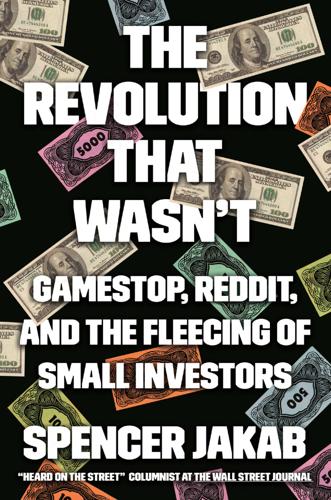
The Revolution That Wasn't: GameStop, Reddit, and the Fleecing of Small Investors
by
Spencer Jakab
Published 1 Feb 2022
If Musk’s tweets were for sale and compensating him for them directly were legal, they would fetch multiples of what people helping to hawk handbags and energy drinks receive because value can be created and turned into cash instantly in the stock or cryptocurrency markets. That can make even inadvertent statements by Musk market-shaking events. When he made a comment on Saturday Night Live that Dogecoin, which he had touted, was “a hustle,” tens of billions of dollars in value evaporated in the cryptocurrency market, and Robinhood’s trading system was overwhelmed the next day with activity. Even the most innocuous social media post was dynamite around the time of the meme-stock squeeze.
…
Morgan Asset Management, 255–56 JPMorgan Chase, 160, 217 K KaloBios, 39 Kearns, Alex, 103–4 Kindleberger, Charles P., 179 Klarman, Seth, 184 Koss, 132, 169, 188, 224 Kruger, Justin, 28 Kynikos Associates, 77 L Ladies’ Home Journal, 150 Lamberton, Cait, 54, 62 Lamont, Owen, 80 Langer, Ellen, 27 Langlois, Shawn, 45 Laufer, Henry, 237 Lay, Kenneth, 85 Lebed, Jonathan, 163 Leder, Michelle, 239 Ledger, Heath, 138 Left, Andrew, 39, 116–26, 148, 191, 214, 217 GameStop and, 120–24, 129, 130, 133, 146 harassment of, 122 WallStreetBets and, 121–23, 126, 129, 130, 133, 136, 238 Lehman Brothers, 80, 117 Lending Tree, 162 Levie, Aaron, 26 Lewis, Michael, 16, 88 Lindzon, Howard, 24, 49, 176 LinkedIn, 239 Livermore, Jesse, 78–79 locating a borrow, 72–73, 80 Loeb, Dan, 111 Lombardi, Vince, 8 Long-Term Capital Management, 260 Loop Capital, 128 Los Angeles Times, 215 loss aversion, myopic, 236 lotteries, 62, 239, 241, 242 Lowenstein, Roger, 260 Lucid Motors, 164 M Mad Money, 254 Madoff, Bernie, 117, 206 MagnifyMoney, 162 Mahoney, Seth, 19, 31, 176–77 Malaysia, 75 Malkiel, Burton, 253 Manias, Panics, and Crashes (Kindleberger), 179 Manning, Peyton, 64 Man Who Solved the Market, The (Zuckerman), 237 Maplelane Capital, 217 March Madness, 57 Marcus, 257 margin calls, 203–5 margin debt, 58–59, 62, 67, 138, 188 Markets Insider, 103 MarketWatch, 45, 180 MassMutual, 87, 131, 171 Mavrck, 142 Mayday, 48–50, 66 McCabe, Caitlin, 128–29 McCormick, Packy, 23, 35, 104, 202 McDonald, Larry, 99 McDonald’s, 154 McHenry, Patrick, 239 McLean, Bethany, 85 Medallion Fund, 237 MedBox, 117 Melvin Capital Management, 6–8, 56, 72, 94–96, 110–12, 114, 119, 121, 123, 128–30, 132, 135, 136, 146, 189, 190, 202, 205, 217, 218, 222, 227 meme stocks, xii–xiv, 5, 7–9, 11, 12, 14, 22, 30, 32–34, 36, 39, 40, 47, 54, 63, 67, 72, 73, 76, 100, 108, 123, 125, 127, 129, 132–33, 135, 137–40, 146, 147, 153–55, 157, 159, 160, 162, 164, 169, 170, 178, 179, 181, 183, 185, 191, 193, 194, 198–99, 204–5, 208, 219, 220, 222, 227, 229, 230, 237, 238, 240, 246 AMC, 39, 93, 125, 127, 132, 169, 188, 220–21, 224–26 Bed Bath & Beyond, 115, 133, 188 BlackBerry, 93, 115, 133, 169, 178, 188, 224 bot activity and, 165, 166 GameStop, see GameStop, GameStop short squeeze insiders of, 224 Koss, 132, 169, 188, 224 margin debt and, 58 Naked, 132, 188 Nokia, 169, 178, 188 payment for order flow and, 207 Robinhood’s trading restrictions on, 187–89, 194, 195–200, 203, 206 Merton, Robert, 101, 102, 108 Microsoft, 46, 93 Mihm, Stephen, 48 millennials, 21, 26, 27, 56, 71, 88, 142, 143, 148, 162, 242, 246, 255 Minnis, Chad, 126, 157, 242 MoneyWatch, 59 monthly subscription services, 32 Morgan Stanley, 28, 55, 178, 219 Morningstar, 216, 244, 245, 254, 255 Motherboard, 131–32 Motter, John, 215–17, 226 Mudrick, Jason, 220–21 Mudrick Capital Management, 220 Mulligan, Finley, 230 Mulligan, Quinn, 142, 214 Munger, Charlie, 183–84, 241 Murphy, Paul, 78 Musk, Elon, 19, 75, 82–83, 92, 124, 143, 149, 152–53, 155–57, 160, 161, 167, 212, 216 tweets of, x, 60, 82, 83, 124, 144, 152–54, 161, 170 Must Asset Management, 221 mutual funds, 139, 151, 221, 234, 244, 245, 254–56 myopic loss aversion, 236 N Naked Brand, 132, 188 Nasdaq, 60, 92, 98, 104 Nasdaq Whale, 98, 104–6, 108, 109, 227 Nathan, Dan, 192 National Council on Problem Gambling, 31, 57 National Futures Association, 118 Nations, Scott, 99 Nations Indexes, 99 NCAA Basketball, 57 Netflix, x–xi, 15, 50, 98, 133, 208 Netscape, 24 Neumann, Adam, 105 New Yorker, 143 New York Mets, 8, 161 New York Post, 124, 172 New York Stock Exchange, 49 New York University, 20, 82, 177 Nikola, 64 NIO, 120 Nobel Prize, 101, 260 Nokia, 169, 178, 188 nudges, 31–32, 235–36 Nvidia, 98 O Obama, Barack, 13, 38 Ocasio-Cortez, Alexandria, 160, 197 Occupy Wall Street movement, 12, 125 Odean, Terrance, 235, 238, 243 Odey, Crispin, 126 Ohanian, Alexis, 12, 37–38, 125 O’Mara, Margaret, 38, 156, 157 Omega Family Office, 191 O’Neal, Shaquille, 64 Oppenheimer, Robert, 83 options, 34–35, 99–107, 217 call, see call options delta and, 107, 108 losses and quick approval processes for, 103 put, 46, 99, 106, 111–12, 148 Robinhood and, 34–35, 102–4, 106, 108–9 Options Clearing Corporation, 102 P Pagel, Michaela, 235 Palantir Technologies, 120 Palihapitiya, Chamath, 143, 144, 152–53, 155, 157–58, 160, 164, 212, 234, 246, 253 Palm, 84 PalmPilot, 84 Pao, Ellen, 38 Paperwork Crisis, 49 Parker, Sean, 38 payment for order flow, 10, 33, 153, 196, 206–9 Penn National, 57 penny stocks, 60, 120, 133, 166, 167 Permit Capital, 223 Pershing Square Holdings, 56 Pets.com, 90 PetSmart, 89 Pew Research, 71 Physical Impossibility of Death in the Mind of Someone Living, The (Hirst), 7 Piggly Wiggly, 78–79 PiiQ Media, 166 PIMCO, 216 Plotkin, Gabriel, 41, 56, 67, 73, 80, 85, 86, 95–96, 110–12, 114–15, 116, 122, 123, 129, 130, 133, 140, 146, 148, 157, 158, 161, 191, 197, 213–14, 217, 218, 227, 240, 246, 250, 253 at congressional hearing, 6–11 Porsche, 77 Portnoy, Dave, 57, 152–55, 158–59, 161, 181, 188–89, 212 Povilanskas, Kaspar, 195 Pruzan, Jonathan, 219 Psaki, Jen, 192 Public.com, 196, 207, 209 pump and dump, 163 put options, 46, 99, 106, 111–12, 148 Q Qualcomm, 46 R RagingBull, 163 Random Walk Down Wall Street, A (Malkiel), 253 Raskob, John J., 150–52, 154, 156 Raytheon, 153–54 RC Ventures LLC, 114 Reagan, Ronald, 156, 234 Reddit, xi, xii, 11–12, 19, 22, 23, 25, 36–39, 41, 42, 107, 122, 125, 162, 164, 199 founding of, 37–38 Gill’s influence on, 141–42; see also Gill, Keith; WallStreetBets karma on, 47, 141–42 mechanics and demographics of, and GameStop, 37 offensive subreddits on, 38 r/ClassActionRobinHood, 196 r/GMEbagholders, 140 r/investing, ix, 46 r/wallstreetbets, see WallStreetBets Super Bowl ad of, 12 Volkswagen squeeze and, 78 Reddit Revolution, xv, 41, 42, 75, 99, 152, 170, 192, 206, 211, 219, 220, 230, 246, 261 see also GameStop, GameStop short squeeze; WallStreetBets rehypothecation, 80, 92 reinforcement learning, 35 Reminiscences of a Stock Operator (Lefèvre), 78 Renaissance Technologies, 237 retail trading, xiii, xiv, xvi, 4, 7, 9–14, 49, 56–59, 63–64, 66, 67, 81, 98, 140–41, 143, 169–70, 178, 181, 183, 186, 194, 218, 237, 238, 244, 247 retirement accounts and pension funds, 5, 13, 27, 31–32, 41, 69, 76, 77, 81, 171, 182, 234, 235, 245, 252, 255, 256 Rise of the Planet of the Apes, 135–36 RiskReversal Advisors, 192 Ritter, Jay, 63, 65 Roaring Kitty (Gill’s YouTube persona), 2, 18, 45, 48–49, 92, 130, 133, 144, 171, 174–75, 191, 211, 213 Roaring Kitty LLC, 171 Robinhood, xi, xiii, xv, 4–6, 13–14, 19, 22–35, 41–42, 50, 53, 55, 57, 61, 66, 70, 81, 98, 139, 141, 153, 154, 157, 158, 161, 176, 178, 183, 184, 187–90, 193, 194, 195–210, 212–13, 219, 237–38, 243, 245, 246, 259 account transfer fees of, 54 average revenue per user of, 66–67 Buffett on, 240–41 call options and, 97–98 Citadel and, 10, 11 clearinghouse of, 187 commissions and, 49, 50 customer loan write-offs of, 205 daily average revenue trades of, 59 daily deposit requirement of, 205 former regulators hired by, 239–40 founding of, 3, 23–25, 90 funding crisis of, 187–88, 193, 198, 203, 205–6 gamification and, 29–31 Gold accounts, 32, 58, 97, 202 growth of, 25–26, 50 herding events and, 238 Hertz and, 61 hyperactive traders and, 193, 202, 207, 236 initial public offering of, 200–201, 219 Instant accounts, 32 Kearns and, 103–4 lawsuits against, 196 margin loans of, 58–59, 205 median account balances with, 50, 54 options and, 34–35, 102–4, 106, 108–9 payment for order flow and, 10, 33, 196, 206–9 revenue from securities lending, 73 risky behavior encouraged by, 202–3 Robintrack and, 53, 61 SPACs and, 64 stimulus checks and, 56 Super Bowl ad of, 28, 30, 200 technical snafus by, 53–54 Top 100 Fund and, 61 trading restricted by, 187–89, 194, 195–200, 203, 206, 209 valuation of, 49 WallStreetBets and, 22–23 wholesalers and, 33–35, 49, 104, 106 Robin Hood (charitable foundation), 196–97 robo-advisers, xv, 27, 257–58 Betterment, 27, 54, 183, 193, 242, 257, 258, 261 SoFi, 27, 56, 57, 158 Rockefeller, John D., 9 Rodriguez, Alex, 64 Rogers, Will, 163 Rogozinski, Jaime, 23, 39, 46, 50, 53, 55, 70–71, 97, 122, 138, 144, 190, 231 Roper, Barbara, 29–30, 35, 54, 185, 241 Rozanski, Jeffrey, 46 Rukeyser, Louis, 156 Russell 2000 Value Index, 125, 191 S S3 Partners, 76, 81, 130, 133, 170, 217 SAC Capital Advisors, 7, 110 Sanders, Bernie, 65–66, 198 S&P (Standard & Poor’s), 83 S&P Dow Jones Indices, 70, 254 S&P 500, 76 Sanford C. Bernstein & Company, 244 Santoli, Michael, 170 Sarbanes–Oxley Act, 42 sardines parable, 184–85 Saturday Night Live, 154 Saunders, Clarence, 78–79 Saveri, Joseph, 190 Saverin, Eduardo, 38 savings, 56, 58, 62, 69, 163, 182, 241, 256–57 see also retirement accounts and pension funds Scarface, 113 Scholes, Myron, 101, 102, 108 Schulp, Jennifer, 14 Schwab, 24, 25, 33–35, 49, 50, 59, 66, 70, 139, 200, 202, 234, 236, 245, 257, 259 Schwed, Fred, Jr., 233–34, 247, 258 Securities and Exchange Commission (SEC), 30, 34, 42, 61, 66, 83, 84, 90, 117, 120, 139, 153, 163, 167–68, 192–93, 206–8, 230, 231, 246 Robinhood’s hiring of regulators from, 239–40 Seides, Ted, 245 SentimenTrader, 227 Senvest Management, 221 Sherman, George, 224 short selling, xi, xii, 12, 72–73, 74–86, 93, 95, 106–7, 115, 119–20, 125–26, 164, 181, 217, 225, 246–47 activist, 119 bans on, 83 benefits to others from, 84–85 interest and, 76, 92, 93, 106, 108, 113, 121, 132, 133, 140, 164, 169 long-term strategies and, 81 misunderstandings about, 80–81 naked, 80 rehypothecation and, 80, 92 Tesla and, 81–82, 106, 107 short squeezes, xii, 5, 23, 39, 40, 72, 73, 75–77, 81, 107–8, 113, 126, 139, 184, 221, 247 corner in, 75 GameStop, see GameStop, GameStop short squeeze gamma, 108, 109, 132, 141, 216, 227–28 history of, 77–80 silver, 229–30 Volkswagen, 77–78, 81 see also meme stocks Shkreli, Martin, 38–39 Siegel, Robert, 50 SigFig, 257 Signal Advance, 60 Silent Road to Serfdom, The: Why Passive Investing Is Worse Than Marxism, 244 Silicon Valley, 24–26, 40–41, 154, 156, 157, 160, 168 silver, 229–30 Silverblatt, Howard, 70 Silver Lake, 225 Simons, Jim, 237 Skilling, Jeffrey, 85 Skinner, B.

The Warhol Economy
by
Elizabeth Currid-Halkett
Published 15 Jan 2020
Building on the increasing market demand for cultural status symbols, through the 1980s and 1990s fashion designers slapped big logos on their clothing and accessories (Gucci, Tommy Hilfiger, DKNY, Calvin Klein).51 Hip-hop music, once strictly an urban-based street level culture originating in New York City, gained global credibility with the establishment of Yo! MTV Raps, performances on Saturday Night Live, the establishment of hip-hop record labels (Def Jam Records by Russell Simmons and Rick Rubin), and the increasing stardom of rappers like the groups Run-DMC and the Beastie Boys.52 Cult movies like Style Wars (1985) and Wild-Style (1983) glorified the gritty subculture of hip-hop and graffiti.
…
See also nightlife Rhode Island School of Design, 117 Rice, 42 Rivers, Sam, 33 Robinson, Walter, 35 Roca Wear, 125 Rockefeller Center, 53 Rock Steady Crew, 32–33 Rodriguez, Alexis, xix Rogan, 87, 99 Rolling Stone magazine, 139 Rollins, Sonnie, 22 Romer, Paul, 72, 129 Roni, 96, 146 Roosevelt, Eleanor, 23 Roosevelt, Franklin Delano, 23–24 Rosenberg, Harold, 24 Rothko, Mark, 2, 16, 24, 78 Rothrock, Tom, 82 Rowley, Cynthia, 41, 43, 140, 221n1 Roxy, 31–33 Rozhon, Tracie, 125, 127 Rubenstein, Helena, 23 Rubin, Rick, 37 Run-DMC, 37 RuPaul, 128 Rushdie, Salman, 78 Ruskin, Micky, 29 Ruttenstein, Kal, 147 Sabel, Charles, 70, 72, 217n14, 229n19 Sacco, Amy, 96, 99, 108, 149 Salle, David, 1 same-sex marriage, 40 SAMO, 1–2, 31, 154 San Diego, 55, 84 San Francisco, 51, 55–56, 67, 113, 162, 181 San Jose, 162 Santa Fe, 181, 185 Sargent, Lee, 138–30, 187 Sassen, Saskia, 57, 218n31 Saturday Night Live (TV show), 37 Savoy Ballroom, 22 Saxenian, Annalee, 71–74, 224n20 scenes, 154; dual purposes of, 102–3; exchange nodes and, 107–10; gatekeepers and, 107–10; geographical location and, 103–7; importance of, 102–10 Schnabel, Julian, 1, 31, 148 School of Cinema-Television, 171 School of Information Management Science, 71 Schrock, Greg, 217n14, 220n43 Schumpeter, Joseph, 127 Schwartz, Gillian, 85 Scissor Sisters, 129 Sclar, Elliot, 178–79 Scott, Allen, 36, 156, 161, 217n14, 229n19 Sean John, 125 Section 8 housing, 179 securities industry, 56–57 Sedgwick, Edie, 26 Seldon, Bruce, 124 service sector: human capital and, 57–65; ideas and, 62–65; NYC Workforce data and, 200–209 Seventh Avenue, 156–57 sex, 2, 39; AIDS and, 33, 36; homosexuals and, 37, 99; same-sex marriage and, 40; transsexuals and, 26–27, 160 Sex, John, 32, 35 Sex and the City (TV show), 134 SEX (clothing store), 104, 129 Sex Pistols, 129 Shakur, Tupac, 124–25 Shaver, Dorothy, 28 shell-toe sneakers, 128 Silicon Alley, 172 Silicon Valley, 67–69; Homebrew Computer Club and, 72–73, 88; rise of, 71–72; tastemakers and, 161–62, 171, 176 silk screens, 26–27 Silver, Tony, 29–30, 40 Simmel, George, 130 Simmons, Russell, 37, 40–41, 125–26 Simone, Nina, 27 Simpson, Jessica, 141–42 Sinai, Todd, 169 Singer, Sally, 92, 98, 141 Sischy, Ingrid, xiv, 34, 41, 98 skaters, 92, 105, 117–20 skyscrapers, 54 Slimane, Hedi, 6, 128 Sloane, David, xix “Slouching Toward Avenue D” (Robinson and McCormick), 35 Small’s, 27 Smith, Patti, 32–33, 98 sneakerheads, 102, 128, 142 Snow, Dash, 123 social issues, 183; AIDS and, 33, 36; buzz and, 130–32, 139; creativity and, 89–93; culture production and, 126–40; dissonance and, 28–29; Granovetter on, 75–76; hypersocialization and, 79; Jacobs on, 73–75; literature and, 18–20; lock-in and, 18; nightlife and, 31–34, 87–89 (see also nightlife); peer review and, 115–16, 140–45, 147–50; politicized sociability and, 19–20; recession and, 28–30; reputation and, 77–78; same-sex marriage and, 40; Saxenian on, 71–74; scene importance and, 102–10; social production system and, 110–11; tastemakers and, 5–8 (see also tastemakers); weak ties and, 75–86; Works Progress Administration (WPA) and, 23–24 social production system, 110–11 Soft, 146 Sohn, Sonya, 97 SoHo: creative culture and, 30, 41–42, 59, 83; marketing and, 136; networking and, 88, 93, 95–96, 100, 102, 106; tastemakers and, 160, 165, 175, 178 SoHo Effect, 178–79 SoHo Grand Hotel, 17 SoHo House, 96, 98, 116 Solomon R.
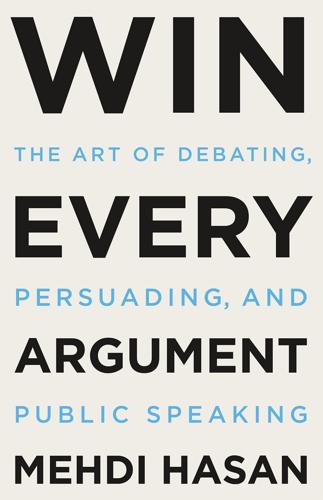
Win Every Argument: The Art of Debating, Persuading, and Public Speaking
by
Mehdi Hasan
Published 27 Feb 2023
The line “Senator, you’re no Jack Kennedy” is widely considered to be, in the words of the Los Angeles Times, “the biggest VP debate moment in history.” It not only has its own Wikipedia entry but also has been parodied and echoed in popular culture, from movies like Disney’s George of the Jungle to TV shows like 30 Rock and Ugly Betty. In the late 1980s, Saturday Night Live had a child actor play Quayle, to better capture the moment. Quayle had leaned into his very weakness compared to Bentsen—until it took just a single line to make his shortcomings abundantly clear. Bentsen nailed it. And, more than a decade after that debate, even Quayle grudgingly admitted in an interview that the zinger was a “good line
…
Rosen, Hilary Rosenman, Samuel Rothermere, Lord Rousey, Ronda Rubio, Marco Ruffalo, Mark Rule of Three applause and introduction and science of structuring presentation and Rushdie, Salman Rusk, Dean Russia Crimea annexed by troll factories and Ukraine invaded by Safire, William San Antonio Express-News Sanders, Bernie Satanic Verses, The (Rushdie) Saturday Night Live (TV show) Saudi Arabia Sawyer, Diane “Scaffolding of Rhetoric, The” (Churchill) Schoolhouse Rock! Schunn, Christian Science Scott, Eugenie segregationists Seinfeld, Jerry Self-Confidence Workbook, The (Markway) self-talking Seneca 7 Habits of Highly Effective People, The (Covey) Shanmugavelayutham, Rameya Shaw, Bernard Sherwood, Steve Shia Islam Shipman, Claire “showing, not telling” Silent Messages (Mehrabian) Simon, Roger Simpson, Carole Six Minutes website Skeptic magazine SKY breathing method Sky News Slate magazine Slovenia Small, Deborah smiling Snippe, Esther social media sources, using original South Africa South Korea Sparta, ancient Special Olympics Spectator speech.

Character Limit: How Elon Musk Destroyed Twitter
by
Kate Conger
and
Ryan Mac
Published 17 Sep 2024
Until then, the chairman had felt that his and Twitter’s relationship with Musk had been going swimmingly. Since the Airbnb meeting, they had worked in lockstep to meet Musk’s demands and announce his appointment to the board. A few days earlier, Taylor had even sent the Tesla chief a link to a tweet of “Twitter’s next board meeting” featuring a photo of Musk, from his appearance on Saturday Night Live, in which he was dressed as a character from the Super Mario video game franchise, sitting at a conference table with normally dressed young professionals. Musk reacted with “Haha.” That Saturday morning, Taylor was wondering how the man whom he had welcomed with open arms was now holding a gun to his head.
…
Musk would try to convince this particular sales exec in a direct call later, as would Birchall, separately from his boss. Musk’s fixer said that he realized that Musk’s team had come in like wrecking balls and tried to explain that Musk’s lack of understanding and charm came from the fact that he was “on the spectrum.” (The previous May, Musk hosted an episode of Saturday Night Live where he spoke about having Asperger’s syndrome.) “He doesn’t understand how his actions can be read,” Birchall said. Perhaps the exec could write up some feedback and email it to Musk directly? “His love language is direct feedback,” Birchall said. Birchall also let the executive in on a secret: the goons had been toying with the idea of a loyalty pledge or an ultimatum for workers to stay at the company.
…
and, 408–9 LibsofTikTok, 146 Lindell, Mike, 361 LinkedIn, 156, 176, 298 LiveJournal, 13 Lonsdale, Joe, 115 Lula da Silva, Luiz Inácio, 317, 390 Lutz, Bob, 38 M Mac, Ryan, 6, 25n Magneto, 406 Maheu, Jean-Philippe, 281, 282, 289–92, 294–95, 298, 301 Malone, Post, 296 Mann, Kyle, 115 Mars, 26, 31, 47, 100, 141, 213, 423 Mashable, 379 Mastercard, 301 Mastodon, 320, 378, 382–83, 433 Mattel, 294 Mbappé, Kylian, 380 McCarthy, Kevin, 321, 390, 391 McCormick, Kathaleen, 217–18, 227, 228, 232, 434 McDonald’s, 311 McSweeney, Sinéad, 278, 279, 293–94, 329–30, 337, 342, 354 Media Matters for America, 294, 425–26 Mendoza, Pablo, 381 Merrill, Marc, 134 Messi, Lionel, 380 Meta, 158, 388, 413 Michael, Emil, 384 Micheletti, Ed, 216–17 Microsoft, 54, 158, 177, 301 Miller, Stephen, 356 misinformation and disinformation, 1, 193, 276, 288, 307–8, 317–19, 436 conspiracy theories, 2, 4, 25, 44, 60, 61, 93, 287, 406, 432 Pizzagate, 25, 104, 390, 426 QAnon, 25, 391, 392, 433 about September 11 attacks, 433 about COVID, 61–64, 68–69, 91, 110, 114, 222, 391 about elections, 70, 257, 275, 276, 283, 307, 317–19, 338–39, 390, 405 see also content moderation Mittal, Lakshmi, 381 Modi, Narendra, 208, 400–401 Mohammed bin Salman, 234 Montano, Mike, 84, 94 Morgan Stanley, 102, 106, 121, 125, 137, 143–45, 152, 154, 155, 176–80, 232, 260, 263, 266, 284, 401, 402 Tech, Media & Telecom conference of, 401–2 Mudge (Peiter Zatko), 222, 223–27, 228, 343 Murdoch, James, 177, 180 Murdoch, Kathryn, 177 Murdoch, Lachlan, 405 Murdoch, Rupert, 177, 396 Musk, Andrew, 250, 267, 272, 350, 386 Musk, Elon Agrawal and, 85–86, 106–9, 111–12, 114, 116–21, 123–27, 135, 157, 163, 186, 191–92, 193, 212, 215, 251, 263–66, 276, 295, 343–44 Asperger’s of, 341 in Berlin, 109 bodyguards of, 7 businesses of Boring Company, 23, 37, 134, 179, 239, 241, 267, 268, 314 Neuralink, 23, 38, 179, 205, 250, 434 SpaceX, see SpaceX Tesla, see Tesla Motors X.com (bank), 29–31, 415 Zip2, 29, 207 see also Twitter under Elon Musk; X Chappelle show incident, 375 children of, 95, 100, 124, 197, 204–5, 213, 256, 279, 289, 290, 364, 376–78, 427 COVID pandemic and, 62–64, 99, 114, 128, 136, 375 data scientist and, 1–5, 344, 346 at DealBook Conference, 426–30 dog of, 144 Dorsey and, 50, 53, 78–79, 105–6, 110, 112, 113, 123, 142, 143, 163 drug use of, 39, 99 Durban and, 194–95 education of, 29 ElonJet account and, 79, 378 “episode” of, 383–84, 388, 389 flight attendant’s allegations against, 200 free speech as commitment of, 100, 101, 103, 201, 234, 244–45, 250, 275, 276, 282, 294, 320, 354, 363, 372, 378, 379, 382, 392, 400–401, 409, 418, 435–36 Gadde and, 169–72, 191, 193, 243–46, 257–58, 263–66, 343–44 Halloween gala attended by, 292 Israel trip of, 426–28 leadership style of, 115, 279, 323–24 loyal supporters of, 3, 5, 37–38, 128, 134–36, 279, 291, 310, 348, 358, 359, 415 media as viewed by, 32, 37, 102, 198 neck injury of, 414, 416 paranoia of, 3, 7, 32, 34, 256, 257, 286, 287, 297, 344, 412 PayPal and, 30–31 political views of, 99–103, 199, 279, 321, 327, 375, 389–91, 406, 423–29, 432 racial and social justice issues as viewed by, 99–100 relationships of, 23, 30, 32, 34, 95, 100, 103–4, 117, 124, 194, 204–6 Roth tweet of, 373–74, 376 stalker and, 377–78 at TED conference, 124, 127–28, 136–38, 140, 204 Twitter acquisition of, see Twitter, Musk’s acquisition of on Twitter board, 50, 105, 107–12, 113–15, 117–21, 136 Twitter competitor threat of, 105, 108, 110, 195, 201, 215 Twitter employees’ view of, 114, 116, 128–29, 165 Twitter OneTeam video call of, 47–48, 198 Twitter parody account and, 32–33, 311 Twitter shares of, 102, 103, 105–8, 110–11, 115, 125–26, 129, 136, 138, 175, 217 Twitter under ownership of, see Twitter under Elon Musk Ukraine war and, 102–3, 184, 332 Unsworth accused of pedophilia by, 23–29, 47, 114, 135–36 wealth of, 6, 34, 39, 96, 101, 126, 128, 129, 136, 138–40, 153, 189, 252–53, 376, 394, 425, 434 wokeism and, 99, 100, 103, 362, 375, 406, 435 work ethic of, 1, 29 Zuckerberg and, 35–36, 262 cage match challenge, 414, 416–17 Musk, Errol, 29 Musk, Exa Dark Sideræl, 205 Musk, James, 250, 267, 272, 347–50, 354, 386, 397 Musk, Justine, 30, 32, 205 Musk, Kimbal, 29, 101, 119, 177 Musk, Maye, 279, 290–92 Musk, Techno Mechanicus, 204 Musk, X Æ A-12, 124, 205, 206, 241, 243, 256, 279, 289, 290, 364, 376–78, 427 Myanmar, 22 N Nadella, Satya, 177 Napa Valley, 301 Napster, 177 NASA, 32, 40–41 National Public Radio, 404 Nazism, 184, 282, 355, 392, 425 NBA, 171–72, 380, 403 NBCUniversal, 301, 407, 408, 420 NeighborNest, 255–56 Netanyahu, Benjamin, 426 Netflix, 158, 357 Neuralink, 23, 37, 179, 205, 250, 434 New York Post, 66–68, 170, 171, 204, 222, 367–68 New York Stock Exchange, 17, 102, 164, 263 New York Times, 6, 31, 32, 39, 69, 94, 95, 378, 393, 427 DealBook Conference of, 426–30 Roth’s op-ed in, 372–73 Nigeria, 75 Night Parrot, 296, 297 Nike, 338 9/11 attacks, 433 Nintendo, 334, 335 Nippon Telegraph and Telephone (NTT), 385 Niwa, Yoshimasa, 333 Nordeen, Ross, 250 Nosek, Luke, 30 Nostr, 382, 433 Notopoulos, Katie, 379 NPR, 404 O Obama, Barack, 99, 117, 285 Ocasio-Cortez, Alexandria, 317 October 7 Hamas attacks, 424, 426 Odeo, 13–15 Office Space, 389 Olympics, 380 O’Malley, Pat, 180–81 O’Neal, Shaquille, 280 OnlyFans, 297, 365 OpenAI, 205, 412, 435 Owens, Candace, 44 P Pacini, Kathleen, 242, 264–65, 277, 284, 286, 295, 299, 304, 340 Palace Hotel, 401 Pandjaitan, Luhut Binsar, 164 Paris Agreement, 431 Parker, Sean, 177 PayPal, 30–31, 176, 177 Pelosi, Nancy and Paul, 2, 4, 287, 289, 344 Pence, Mike, 70, 71 Penn, Sean, 58 Perelman, Ronald, 155–56 Periscope, 21 Personette, Sarah, 249–50, 271, 289, 301 Perverted Justice Foundation, 20 Peterson, Jordan, 354 Philadelphia Eagles, 396–97 Pichai, Sundar, 52, 59, 280 Pichette, Patrick, 51–52, 54–56, 126, 141, 149, 153, 158, 159, 224, 248 Pixar, 156 Pizzagate, 25, 104, 390, 426 poison pill strategy, 127, 209 of Twitter, 127, 129, 138, 141, 146, 148, 209, 218 Politico, 170 Pool, Tim, 43 population decline, 205, 213, 214, 389 pornography, 61, 297, 365–66 Posobiec, Jack, 390, 392 Post, 382 Powell Jobs, Laurene, 54 Pravda, 37 presidential elections of 2016, 21, 22, 50, 61, 67, 193 of 2020, 52, 64–65, 67, 68, 70–73, 133, 390, 405, 431 of 2024, 355, 431, 433 Pride Month, 408 Princess Bride, The, 406 Prism project, 97–98, 101, 142–43, 148–51, 153, 167, 214, 277 Public Investment Fund, 38 Publicis Groupe, 289 Putin, Vladimir, 102, 184 Q QAnon, 25, 391, 392, 433 Qatar, 380–81 Qatar Investment Authority, 179, 254, 381 Quinn, Zoë, 18 Quinn Emanuel, 28, 343, 363 R racial issues, 19, 170, 432 Black Lives Matter, 19, 21, 362 diversity and inclusion, 99–100, 197 Ferguson protests, 18–19, 183, 362 George Floyd protests, 99, 325, 362 hate speech on Twitter, 302, 392 Musk and, 99–100 Tesla and, 100, 114, 197 Twitter employees and, 362 Raytheon, 139 Redstone, Shari, 212 Republicans, 43–44, 65, 68, 199, 287, 321, 325, 327, 339, 390–94, 431 Ressi, Adeo, 109, 134 Revlon, 156 Revolt, 302 Rezaei, Behnam, 3 Rice, Kathleen, 59–60 Riley, Talulah, 34, 103–4, 205 Ringler, Mike, 156–57, 160–62, 195, 198, 201, 203, 208–9, 211, 215, 226 Rive, Lyndon, 124 Rive, Peter, 124 Roche, 160 Rock, Chris, 375 Rogan, Joe, 39, 43, 115, 170, 177 Rolling Stone, 367 Ronaldo, Cristiano, 117 Rosenblatt, David, 81, 151, 158 Rossman, Andrew, 216 Roth, Benjamin, 210–11 Roth, Yoel, 61–62, 64–66, 70–74, 146–48, 172–74, 206, 229, 242, 257, 268, 274–76, 301, 302, 356, 368, 391, 393 graduate school thesis of, 373 Musk’s tweet about, 373–74, 376 New York Times op-ed of, 372–73 resignation of, 340–42, 354, 372 Yaccarino and, 420–21 Rubin, Dave, 390 Rubin, Rick, 78 Russia, 21, 61, 67, 264, 332 Ukraine invaded by, 97, 102–3, 113, 152, 184, 325, 332 Russia Today (RT), 103, 404 S Sacks, David, 30, 31, 177, 241, 243, 260, 261, 285, 287, 298, 300, 312, 313, 362, 378 Sacramento (SMF) data center, 385–88, 394 Salen, Kristina, 180–81 Salesforce, 108, 139 Salt Bae, 381 Samuels, Detavio, 302 Sanders, Bernie, 120, 321 Sandy Hook school shooting, 60 Santa Monica Observer, 287–88 Saturday Night Live, 119, 341 Saturn project, 93, 146–48, 172–75, 206, 208, 220–22, 229, 245, 276 Saudi Arabia, 38, 106, 233–34 Savitt, Bill, 210–11, 215–17, 222, 227, 232, 247–48, 258 Schiller, Phil, 366 Schmidt, Eric, 335 Securities and Exchange Commission (SEC), 38, 39, 49, 102, 110–11, 115, 122, 123, 125, 126, 136, 152, 179, 202, 225, 231, 326 Segal, Ned, 76, 80, 83, 94–96, 137, 143, 148–53, 164, 172, 180–81, 184, 194, 203, 204, 207, 208, 210–14, 235, 237, 247, 251–54, 257–59, 260, 261, 263, 265, 286, 344, 435 firing of, 263–66, 343–44 September 11 attacks, 433 Sequoia Capital, 179 Sethi, Rinki, 223–24 Shapiro, Ben, 408 Shareworks, 284, 286 Shatner, William, 403 Shotwell, Gwynne, 201 Silicon Valley, 8, 12, 41, 54, 55, 67, 95, 108, 128, 138, 156, 329, 361, 366, 382, 384, 435 Silver Lake, 54–56, 91, 95, 106, 138–39, 143 Simon, Luke, 345 Simpson, O.
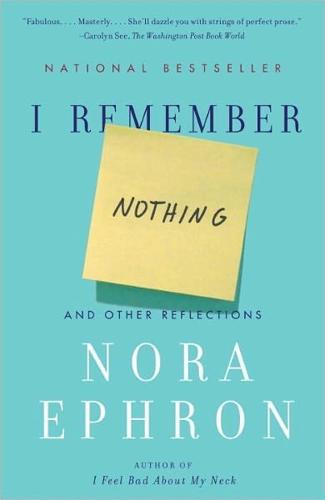
I Remember Nothing
by
Nora Ephron
Published 9 Nov 2010
Shawn,” and they dropped his name in hushed tones as if he were the Ba‘al Shem Tov; we, on the other hand, jumped from Harold to Clay and back again. They thought we were egomaniacs; we thought they were weird. I was the sort of person Lillian Ross would hate, if she even knew who I was, or so it seemed to me one night in 1978 when I was pulled across a room to meet her. I was at a party at the home of Lorne Michaels, the producer of Saturday Night Live. Lillian Ross had been reporting a profile of Lorne for eight years. “You two must meet,” Lorne was saying, as he brought us together. I could see in an instant that Lillian Ross did not share this imperative. “You have so much in common,” he said, as he sat us down on the sofa. “It’s so nice to meet you,” I said.
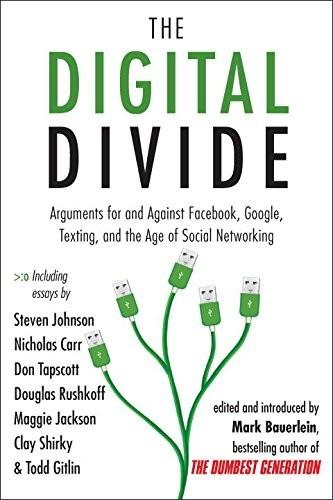
The Digital Divide: Arguments for and Against Facebook, Google, Texting, and the Age of Social Netwo Rking
by
Mark Bauerlein
Published 7 Sep 2011
Popular culture also helped to bridge the awkward silences in my exchanges with Sarah’s parents. I had wondered what a media scholar from “the People’s Republic of Cambridge” would say to two retired Air Force officers from Nebraska. As Sarah’s mother and I sat in the arcade, trying to dodge religion and politics, we found common ground discussing Star Trek, the original Saturday Night Live cast, and of course, Mutual of Omaha’s Wild Kingdom. Henry and Sarah broke up sometime after that trip—not because they had met online or because the real-life experience hadn’t lived up to their expectations but because they were fifteen, their interests shifted, and they never really overcame her father’s opposition.
…
Search Marketing Ovid Oxford English Dictionary Page, Larry PageRank Palin, Sarah Paperbacks Paradise Lost (Milton) Participatory media Pashler, Harold Patterson, Thomas Paul, Ron PayPal Penchina, Gil Perceptual coherence field Pergams, Oliver Perl Perry, Bruce Personalization Peterson, Lloyd Peterson, Margaret Petrilli, Michael Pets.com Pew Charitable Trust Pew Internet and American Life Project Phaedrus (Plato) Photoshop PHP PickupPal PimpMySpace.org Pinkerton, Brian Plastic Plato PlayStation Podcasts Poe, Edgar Allan Poets and Writers (magazine) Pokémon Politics campaign websites Digital Natives and fund-raising in Internet and Internet media for Net Geners and participatory media and social networking sites and television and Wales, J., and Pong (video game) Portraits Post-Gutenberg economics Postman, Neil Post-traumatic dissociative disorders PowerPoint Prensky, Marc The Principles of Scientific Management (Taylor) Printing press Privacy Procter & Gamble Producer public Progressive Group of Insurance Companies Project Muse Protean self The Protean Self (Lifton) Proust, Marcel Proust and the Squid: The Story and Science of the Reading Brain (Wolf) Psychoanalysis schools Ptolemy Publishing Purohit, Sanjay Python Quake (video game) Ranadive, Vivek Rather, Dan Raymond, Eric RAZR phone Reading brain and deep expert Internet use and teenagers’ skills at time spend in Web use skills and Real-time feedback loops Real-time search Real World (television series) Reason Foundation Reflection Reformation Reintermediation Religious fundamentalism Republic (Plato) Research skills, Internet use and Research strategies Results-only work environment (ROWE) Reynolds, Glenn Rheingold, Howard Robinson, Marilynne Rock, Jennifer Romanticism Romantic solitude Rosen, Jay ROWE. See Results-only work environment RSS Rushkoff, Douglas Rutgers University Safire, William Salon.com Samsung San Francisco Chronicle Sanger, Larry SAP Sartre, Jean-Paul Saturated self Saturday Night Live (television series) Scalable Fabric Scarcity Scherf, Steve Schindler’s List (film) Schmidt, Eric Science (journal) Scientific Learning Scientific management Scion Scope Screenagers Scrutiny The Search: How Google and Its Rivals Rewrote the Rules of Business and Transformed Our Culture (Battelle) Search Engine Results Page (SERP) Search engines.
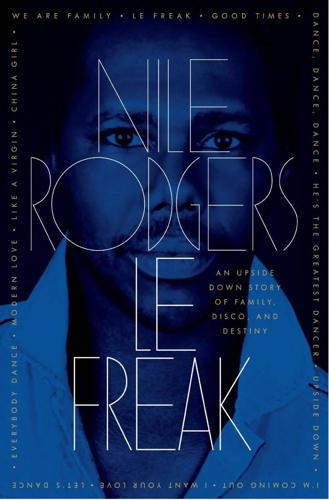
Le Freak: An Upside Down Story of Family, Disco, and Destiny
by
Nile Rodgers
Published 17 Oct 2011
Finally, we added an outstanding male lead singer named Bobby Cotter, who had just finished a stint in Jesus Christ Superstar. Bobby was a great front man, handsome with incredible vocal range and abilities. We were ready to rule the world, or so we thought. Our new unit gigged regularly and eventually recorded a hot demo, which was produced by Saturday Night Live’s music director, Leon Pendarvis. The music got a lot of attention from the labels, but no offers after they saw we were black. Bobby’s voice was super soulful, and before they saw us, they were probably imagining we were like a funkier Queen or Journey. The demo’s sound leaned more to the rock-funk side rather than the smooth-groove side, so the labels assumed we were white.
…
As I say to vocalists who are singing a little flat, sharp, or out-of-the-pocket, “We’re in the neighborhood, but we haven’t found the house yet.” David Bowie helped me find the house. (Illustration credit 8.7) nine Let’s Dance … Again ON A TEMPERATE EARLY AUTUMN NIGHT IN 1982, I WATCHED THE closing credits of Saturday Night Live from the mirrored platform bed of my West Side apartment. SNL wraps at 1 a.m. In those days, that was when my evenings were just getting started. All I needed to get the show on the road was a bump and a few mouthfuls of vodka. By ’82 I was a full-blown daily drug user, something I’d vowed never to be, given the devastation it had wreaked upon my parents’ lives.
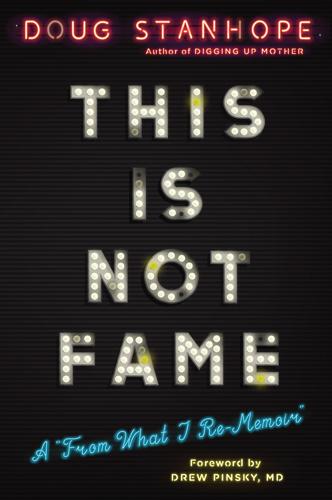
This Is Not Fame: A "From What I Re-Memoir"
by
Doug Stanhope
Published 5 Dec 2017
Personally, I have to drink in order to repeat material I’m too tired of saying. His material sucks the first time. I would understand if he had to abuse drugs or alcohol. I checked his Wikipedia page and under the heading “Influences” I’d hoped to see “cocaine” or “Drambuie.” It only mentioned Saturday Night Live. Should my berating of his brand of comedy go the way of Dr. Drew and Jon Taffer and lead to an invite to be on Late Night with Jimmy Fallon, I’ll decline in advance. But I’d drink and do blow with that kid anytime. Blow that is cut with pabulum, like his jokes. I used to want to drink with Chelsea Handler.
…
See also individual drugs promotions for shows, 60, 62–63, 66–67, 155 Proops, Greg, 202 protest in Madison, 145–147 Pryor, Richard, 208 psyllium husk, 269 Purple Onion, 57 Putnam, Big Fat Ron, 40 Quad Cities, 137–138 racial hatred tweet, 235 racism, 254 radio interview pranks, 59–61, 63–66 radio promotions, 62–63, 66–67 Ramsay, Gordon, 260, 261 Randi, 267 rape laws in Ireland, 174–175 Ravenite whorehouse, 80 Reality Show Rescue, 262 reality television, 259–262 Reason magazine, 279 Redban, Brian, 170 Renee, 79, 247, 249 retards at comedy shows, 302–303 retiring, 308 Reykjavik, Iceland, 127–136 Reynolds, Ryan, 288 Richards, Keith, 264, 291 Richards, Michael, 293 RID, 251, 252 Rio Hotel, Las Vegas, 6 road comics, 46 Roberts, Wiley, 10–13, 199 rock and roll, 192, 195, 197 Rock Island, IL, 137 Rogan, Joe, 57, 77, 145, 170, 257–260 Rollins, Henry, 110 Romo, Tony, 163 Rotten, Johnny, impersonation, 59–61 roulette runs, 78 Rouse, Sean, 88 “Rubber Fuck-My-Face,” 273 Ruppel, Glenn, 52 Ryan, Tom, 48 Rypien, Mark, 297 S&M porn, 220 St. Patrick’s Day parade, 96–97 San Francisco, 57 Sandusky, Jerry, 213 satellite radio, 296–297 Saturday Night Live, 268 scabies, 33, 251 Scazzola, Joey, 13 Schumer, Amy, 254 Scotland Yard, 235 Scott, 161–163 Seinfeld, 294 Seinfeld, Jerry, 126 self-fellatio, 103 sex, 34, 40–44, 41, 72–73, 73, 81–82, 86, 163 sex offenders, 209–216, 217–221, 224 sexism, 254 Shank, Chad, 74 Shawcroft, Lynn, 172, 255, 269, 284–286 Shawnee, 127, 129 “shit-dick,” 233 shot-clog, 113–115 Shreeve, Susan B., 102 Shreveport, LA, 66 Shriver, Maria, 55 Sicko (CD), 71 Sierra Vista, AZ, 132 Silver Nugget Casino, 8 Silverman, Sarah, 28 Sirius XM, 296 Skyline Comedy Club, 171–172 Slash, 27 sleeping pills, 190 smoke detector episode, 193–194 smoking, 45, 46, 118, 196, 243, 245, 280, 287 Snoop Dogg, 148 snorting ashes, 291 social skills, 111 Something to Take the Edge Off (CD), 297 Sominex, 190 Soras, Dag, 130 Soundgarden, 94 Sparrow, Kathy, 129 Spin, 97–98, 102 Spoonman, 94 Springer, Jerry, 55 St.
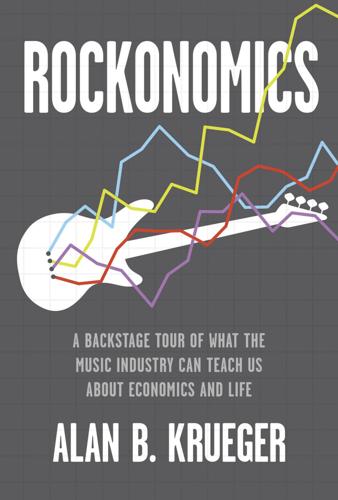
Rockonomics: A Backstage Tour of What the Music Industry Can Teach Us About Economics and Life
by
Alan B. Krueger
Published 3 Jun 2019
There is no sign that Beyoncé or Kanye West paid an economic price for criticizing President Bush’s decision to go to war in Iraq; to the contrary, their stars rose after they criticized the president.40 But their political statements were largely aligned with the views of their fans. After Irish singer Sinead O’Connor tore up a photo of the Pope on Saturday Night Live in 1992, her career crumbled, and it never recovered.41 A good test of this question occurred on March 10, 2003, just before the start of the Iraq War, when Natalie Maines, lead singer of the country music band the Dixie Chicks, announced at a concert in London, “Just so you know, we’re on the good side with y’all.
…
Lumineers frontman Wesley Schultz said that the band chose Dualtone because it offered “the best, most fair deal.”8 The Lumineers’ self-titled debut album, released in 2012, sold 2.4 million copies worldwide and spent forty-three weeks on the Billboard 200 chart. The group was nominated for two Grammy Awards in 2013 and appeared on Saturday Night Live. Although details are not public, their royalties likely ran to several million dollars. After the remarkable success of their first album, the Lumineers could have signed with a major label for a large advance, or with an independent label for a multi-album deal. Instead, they opted to re-sign with little Dualtone for another one-album deal.
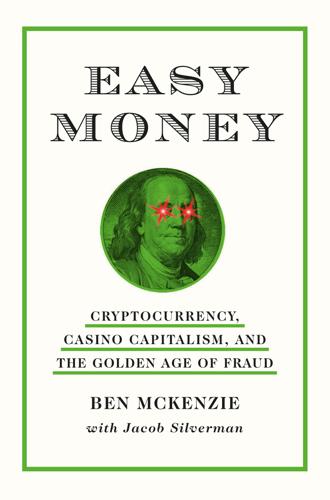
Easy Money: Cryptocurrency, Casino Capitalism, and the Golden Age of Fraud
by
Ben McKenzie
and
Jacob Silverman
Published 17 Jul 2023
It was no longer so cool to be a bored ape if your JPEG was now worth a few hundred thousand real dollars less than when you had FOMO’d into it. Analysts argued over whether the NFT market had collapsed by 97 percent or 99 percent. In its public filings, Tesla revealed that it had lost hundreds of millions of dollars on its crypto investments. Elon Musk, the supposed genius billionaire who had gone on Saturday Night Live the year before and promoted Dogecoin, a cryptocurrency he admitted was “a hustle,” had apparently been hustled himself. (Musk was simultaneously in the midst of receiving the most expensive lesson in contract law in history with his ill-conceived bid for Twitter.) Everyone was suing everyone.
…
I dug in: Various articles from Reuters, Bloomberg, the New York Times, Forbes, and others. 152 Sequoia was blown away . . . during a Zoom call: Sequoia Capital, profile on Sam Bankman-Fried from Sequoiacap.com (since removed), September 22, 2022. 156 We began: Ben McKenzie interview with Sam Bankman-Fried, 1 Hotel Central Park (New York, NY), July 2022. CHAPTER 10: WHO’S IN CHARGE HERE? 180 Elon Musk . . . promoted Dogecoin: Eric Deggans, “Elon Musk Takes An Awkward Turn As ‘Saturday Night Live’ Host,” NPR, May 9, 2021. 181 President Biden . . . executive order: White House, “Executive Order on Ensuring Responsible Development of Digital Assets,” March 9, 2022, https://www.whitehouse.gov/briefing-room/presidential-actions/2022/03/09/executive-order-on-ensuring-responsible-development-of-digital-assets/. 181 The statistics cited by the FTC: Emma Fletcher, “Reports show scammers cashing in on crypto craze,” FTC, June 3, 2022, https://www.ftc.gov/news-events/data-visualizations/data-spotlight/2022/06/reports-show-scammers-cashing-crypto-craze. 182 The revolving door kept spinning: Tech Transparency Project, “Crypto Industry Amasses Washington Insiders as Lobbying Blitz Intensifies,” https://www.techtransparencyproject.org/articles/crypto-industry-amasses-washington-insiders-lobbying-blitz-intensifies. 186 Mark Hays: Ben McKenzie interview with Mark Hays, Summer 2022. 188 The United States of America is unique: Conversations with Lee Reiners (policy director at the Duke Financial Economics Center and a lecturing fellow at Duke Law), Summer 2022. 193 John Reed Stark: Ben McKenzie interview with John Reed Stark, Maryland, August 2022. 198 Two weeks later, Kim Kardashian: press release, “SEC Charges Kim Kardashian for Unlawfully Touting Crypto Security,” U.S.

The Rough Guide to New York City
by
Martin Dunford
Published 2 Jan 2009
Shoots Monday through Thursday at 5.30pm, with an additional show Thursday at 8pm. Late Night with Conan O’Brien T212/664-3056. Call NBC ticket office at T 212/664-3056. For standby tickets go to the NBC Studios marquee on the 49th street side of 30 Rockefeller Plaza before 9am. Only one ticket will be issued per person. Saturday Night Live T 212/664-4000. It’s tough to get tickets in advance; for each upcoming season (usually Oct–May), you must send an email, in August only, to E snltickets@nbcuni.com – include all contact information. If selected, you’ll get two tickets assigned randomly (you cannot fix the date). Alternatively, standby tickets are distributed at 7am on the 49th St side of 30 Rockefeller Plaza on Saturday morning (some weeks are reruns; call ahead).
…
Among the GE Building’s many offices is NBC Studios (70min behind-thescenes tours Mon–Sat 8.30am–5.30pm, Sun 9.30am–4.30pm; reservations at the NBC Experience Tour Desk; $18.50, children $15.50; call T 212/664-7174 to reserve or buy a combination ticket with Rockefeller Center tour, $23.50) on 49th Street between Fifth and Sixth avenues, which produces, among other things, the long-running sketch-comedy hit Saturday Night Live and the popular morning program the Today Show. To become part of the throng that appears (and waves frantically) when the anchors step outside, all one has to do is show up – the earlier the better. This is especially true on summer Fridays when the Today Show hosts concerts (for information on other show tapings visit W www .nbc.com/Footer/Tickets or call the ticket line at T 212/664-3056.
…
Via Della Pace 48 E 7th St, between First and Second aves T212/253-5803. Dark and cozy East Village café with good Argentine pastas and sandwiches, plus a great selection of coffees and desserts. The tiramisu is excellent. 295 C AF É S , BAKE RI E S A ND S NAC K S famous multicolored cupcakes (celebrated in both Sex and the City and Saturday Night Live), $2.25 each. Lines can stretch around the block. Marquet Patisserie 15 E 12th St, between Fifth Ave and University Place T 212/229-9313. Thanks to its convenient location, ample tables, excellent menu, and low-key atmosphere, this is the perfect mid-Village place to warm up or cool down and rest your feet.
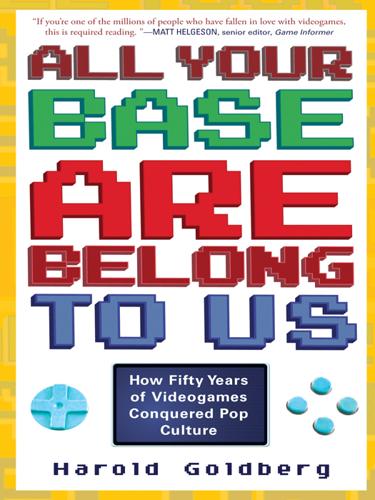
All Your Base Are Belong to Us: How Fifty Years of Video Games Conquered Pop Culture
by
Harold Goldberg
Published 5 Apr 2011
By the end of 1975, Atari had raked in $40 million in sales from the rabid fans who bought more than 150,000 consoles. And that was just from one retail entity, Sears. Pong was a bona-fide cultural phenomenon, and was even part of an Al Franken skit on the seventh episode of the hottest show on TV, Saturday Night Live. It was also the only arcade game a young Barack Obama ever played. Bushnell had created not one, but two revolutions in gaming. When Pong emerged, it started the arcade revolution. Suddenly, the arcade machine was an essential accoutrement in every bar and bowling alley. Pong was more popular than pinball.
…
By that time, Trip Hawkins was no longer involved in the company, but his edict to corral superstars for EA games had not been forgotten by what was becoming the world’s biggest videogame software maker. At the time, the crotchety Koch was a bigmouthed star with a series of bestselling books and was featured semiregularly on NBC’s Saturday Night Live. He was the perfect celebrity for SimCity 3000. In part, it was SimAnt that gave Wright the idea for his next series of games. But Wright was also inspired by mathemagician Martin Gardner’s game page in the back of Scientific American. Gardner, who had been a puzzle lover since his first requests to Santa as a child, wrote the column for twenty-five years, until 1981.
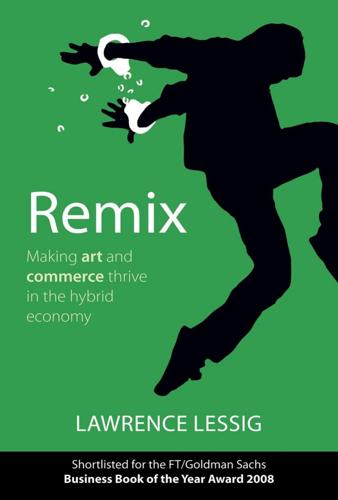
Remix: Making Art and Commerce Thrive in the Hybrid Economy
by
Lawrence Lessig
Published 2 Jan 2009
The collective used the license both to encourage the spread of its work and, as its members commented in an interview, to “protect ourselves and our fans. That’s what sold us on it. It lets everyone know that they are free to share and remix our stuff, all the rules are right there—they don’t even need to ask permission.”4 Someone at Saturday Night Live saw the group’s work and loved 80706 i-xxiv 001-328 r4nk.indd 227 8/12/08 1:55:54 AM REMI X 228 it. In the fall of 2005, one member of the collective joined SNL as a cast member; the other two joined as writers. Their work continues to be available under the CC license. But the licenses also helped them cross over to a commercial economy.
…
K., 206 RW (Read/Write) culture, 28–29, 33, 34–35, 50, 51–83, 116, 252, 253, 274 copyright law and, 97, 100–105, 108 economic value promoted by, 88–90 importance and value of, 106–8 media in, 68–83 RO culture compared with, 84–114 text in, 57–68, 69 value of works created in, 90–97 values and, 85–88 Sadler, Sim, 72–73 Safari Books Online, 235–36 sampling, 53–54, 104, 273 San Francisco Chronicle, 190 Sanger, Larry, 156, 157 Saturday Night Live, 227–28 Scherf, Steve, 237–28 Scholastic, 206 Second Life, 213, 214–20, 236 Sefton-Green, Julia, 78 segregation, 257–58 SETI, 167 Sendmail, 163–64 sharecropping, 243–48 sharing economies, 116, 118–19, 143–76, 177, 223 commercial economies and, 145–51, 177–78, 225–26, 252 crossovers and, 227–28 hybrid economies and, 177–78, 225; see also hybrid economies on Internet, 119, 155–72 motivations for participation in, 151–54, 172–76, 291 parallel economies and, 225–26 thick, 152, 154 thin, 152–54 tools signaling, 226–27 Sherman, Cary, 114 Shuttleworth, Mark, 184–85 SilviaO, 15–17, 95 Sims, Charles, 91–92, 93, 95 8/12/08 1:56:33 AM 326 IND E X Six Apart, 233 Skype, 153 slander, 275 Slashdot, 198–99 Smith, Adam, 49–50 Smith, Marc, 201–2 Söderberg, Johan, 70, 73, 75, 273 software, 221 free and open-source, 163–66, 172, 173–75, 179–85, 219, 220, 240–43, 291 Sony, xxi, 2, 10, 40, 102, 241, 244, 249 Sousa, John Philip, 23–29, 31–33, 35, 36, 50, 56, 82, 132, 254, 280 Southwestern Bell, 181–82 spam, 58 Spears, Britney, 95–96 spillovers, 229–31 Stallman, Richard, 157, 163, 179, 182, 183 Star Wars, 245–46, 247 Sterling, Thomas, 180 stock markets, 152–53, 154 Stone, Victor, 75, 97 Success of Open Source, The (Weber), 174–75 Sun Microsystems, 181, 232 Sunstein, Cass, 126 Supreme Court, U.S., 102, 110, 123, 225, 291–92 MGM v.
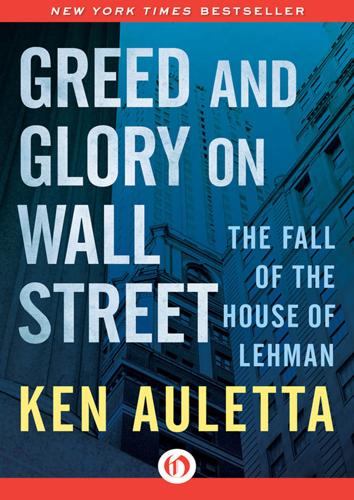
Greed and Glory on Wall Street: The Fall of the House of Lehman
by
Ken Auletta
Published 28 Sep 2015
They go to the Lehman dining room for lunch, where Peterson, who was always trying to resist sugar and who was constantly ordering raspberries, lunges for the sugar bowl and absent-mindedly pours it over his salad. Scene five is set in the boardroom. Peterson and Glucksman are there when the servile board members file in, wearing their white (Saturday Night Live) cone hats. The phone rings, and someone announces: “It’s Golda Meir!” “Tell her I’ll call back,” says Peterson. Brusquely turning to Glucksman, Peterson says, “We’ve got a problem with our overhead. We’ve got to get rid of cigars.” Glucksman’s leg twitched violently. “You can’t get rid of my cigars,” he says, almost choking on the fat cigar in his mouth.
…
There he met Michael Phillips, producer of such movie hits as The Sting, Close Encounters of the Third Kind and The Flamingo Kid. Phillips’s wife was also away. “We decided to be each other’s date for the evening,” says Cohen. At eleven they left the wedding and went to watch their mutual friend, actor Michael Douglas, host Saturday Night Live. “I was ready for a break,” says Cohen. He arrived home at one-thirty in the morning. The housekeeper was still up, and somberly reported that his wife was not on her scheduled plane and that his dog had eaten a pencil and was vomiting. Cohen vainly tried to reach Karen in Paris, comforted his dog and went to bed.
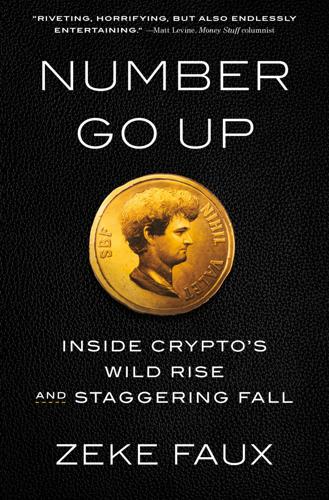
Number Go Up: Inside Crypto's Wild Rise and Staggering Fall
by
Zeke Faux
Published 11 Sep 2023
The next section explains how this works exactly, and I promise I’ll do my best to keep it interesting, but you can skip it if you want—you are now an expert on Bitcoin and the blockchain. * * * — TWO-COLUMN LISTS LIKE the one above have always been at the core of the financial system. That’s the central function of a bank: keeping track of how much money each customer has. It’s a lesson I learned years earlier from an underrated source of financial wisdom: Saturday Night Live. The skit in question opens with a pudgy banker sporting a vest and slicked-back hair addressing a boardroom full of employees as Beethoven’s “Ode to Joy” plays on strings. One of the employees is Will Ferrell, in a handlebar mustache, trying his best not to smile. Narrowing his eyes behind his round spectacles, the banker explains that what he is saying is the most important principle of Wall Street.
…
See Morgan, Heather Realcoin, 36 Reddit, 9–10, 103 Reminiscences of a Stock Operator, 225 “the repugnant conclusion” argument, 81 Ripps, Ryder, 156–157 Rong, Yawn, 133 RR/BAYC, 157 S Samani, Kyle, 135–136 Sanders, Rich, 180–182 Saturday Night Live, 17 Saylor, Michael, 22–23, 167 scam compounds (Cambodian), 182–188, 190, 193 Scaramucci, Anthony, 129–130 Schumer, Amy, 153 Scott, Seann William, 32 Securities and Exchange Commission (SEC), 64, 213, 238 Sellars, Craig, 36 Sequoia Capital, 21 Shallcross, Chapman “Chappy,” 168 Shallcross, Zach, 168 Shaulov, Michael, 103 Shiba Inu, 5, 10 Shimao Group, 68 Shyamalan, M.
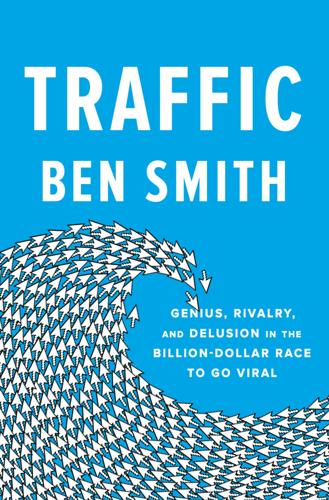
Traffic: Genius, Rivalry, and Delusion in the Billion-Dollar Race to Go Viral
by
Ben Smith
Published 2 May 2023
By May of 2008, The Huffington Post had more than ten million unique visitors a month, and more than one hundred million page views. Pac-manning gave The Huffington Post huge surges in traffic. Occasionally, a single post would receive more than a million views. When Tina Fey debuted as Sarah Palin on Saturday Night Live in September of 2008, The Huffington Post’s link to the video picked up more than 2.4 million page views, the site’s biggest hit of the year. And the strategy of drawing traffic from search engines rather than from the home page had an additional advantage. KT was always afraid she’d receive a call from Arianna or Kenny telling her to dial it back.
…
See also sex tapes and sexual content Porteous, Will, 127, 128, 152, 283 Powell Jobs, Laurene, 284–86 presidential elections, 106, 158–59 The Price Is Right, 292 privacy rights, 63, 85, 141, 232, 262 ProPublica, 196 Proud Boys, 290 public relations, 238 Pulitzer Prizes, 220, 230 Punk’d, 124 Putin, Vladimir, 257 Pyra, 17–18 Q Quail Hunting with Dick Cheney (game), 72 quizzes, 203–4, 206, 208, 239, 253, 267, 271 R racism and racial dynamics, 6, 93, 101, 126, 134–35, 187, 271, 274–75, 293 Rao, Samir, 284 Ratnesar, Romesh, 6 Ratter, 215–17, 235 Rayner, Jay, 14 Read, Max, 214, 218 reality TV, 124–25 Real Time with Bill Maher, 255 Reason, 39 reBlog, 28 Redbook, 92 Reddit, 72, 153, 191 Red Herring, 17 Reichenstein, Oliver, 261 Reid, Harry, 249, 251 Rejection Line, 47 Republican National Convention, 186 Republican Party, 67 Reuters, 132 revenge porn, 139 Rice, Condoleezza, 239 Righteous Indignation (Breitbart), 41 Right Media, 22, 105–6 Robinson, Janet, 224 Romanian revolution, 14 Romney, Mitt, 166–67, 181, 189 Roose, Kevin, 275 Rosencrantz and Guildenstern Are Dead (Stoppard), 301–2 Rospars, Joe, 111 Rothstein, Adam, 300 RRE (venture capital firm), 127, 283 RSS feeds, 72 Rumble, 298 Run-D.M.C., 221 Ryan, Meg, 33 Ryan, Paul, 239 S Saint Petersburg, Russia, 242 Saldana, Zoe, 216 Salon, 76 Samaha, Albert, 282 Sanders, Bernie, 239, 244, 253, 256, 293 Santorum, Rick, 166, 173 Saturday Night Live, 82 Savage, Damian, 168 Schiller, Vivian, 223 Schlesinger, Arthur, Jr., 34 Schmidt, Eric, 66 Schoofs, Mark, 196, 248, 250–51, 253, 255 Schwarzenegger, Arnold, 32 Scocca, Tom, 57 Scratch DJ Academy, 221 search engine optimization (SEO), 80 Second Life, 111 Securities and Exchange Commission (SEC), 299 September 11, 2001, terrorist attacks, 179 sex tapes and sexual content and 4chan, 126 and Gawker, 137, 139–46, 175–76, 214–15, 217–18, 231–36 revenge porn, 139 and Valleywag’s launch, 63 See also pornography Shafrir, Doree, 91, 171, 262 Shapiro, Ben, 41, 133, 275, 290 Shark Tank, 216 Shepherd, Jack, 153 Sherrod, Shirley, 134–36, 144 Sherwood, Ben, 195–96, 200, 256 Shey, Tim, 3–4, 8, 28 Shingy, 150 Shirky, Clay, 226 “Shitty Media Men” (anonymous), 261–62 Sicha, Choire, 298 Sigmund Piebald Mastersmash (BuzzFeed handle), 168 Silicon Alley (New York), 34, 61 Silicon Valley and BuzzFeed’s traffic growth, 203 and Denton’s background, 14–15 and Disney’s bid to buy BuzzFeed, 202 funding for BuzzFeed competition, 195 and online privacy issues, 142 and Ozy’s launch, 284–86 and political fundraising, 118 and post tech-crash environment, 61 and shifting media environment, 84 and Valleywag’s launch, 62–65 and venture capital firms, 207 Simpson, Glenn, 247–49 Site Meter, 54, 150 Six Degrees (Watts), 25–26 Sklar, Rachel, 58–59, 68 Slashdot, 3 Slim, Carlos, 223 “Slut Machine,” 92, 97.
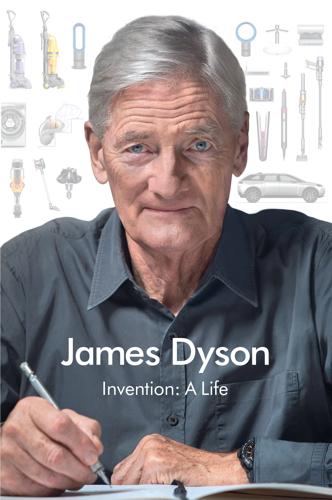
Invention: A Life
by
James Dyson
Published 6 Sep 2021
The ad was shot in one room at home in Kingsmead, led by the British TV and film director Nicholas Barker. I didn’t say how brilliant my product was, I simply explained the technology. Deirdre and the children were horrified when I told them I would be in our advertisements. I found out why when Saturday Night Live parodied me with a fair-haired Englishman sitting on a lavatory following my script and explaining how he had to build a few thousand prototypes to get his lavatory invention to work. The thing that really struck home with American consumers was that I said I’ d made 5,127 prototypes of the vacuum cleaner.
…
Freedom shop, Kensington 27 Muranka, Tony 114 Musk, Elon 226 Myers, Bernard 26 Nahlin (1930s yacht) 293 NASA 67 Nasmyth, James 262 National Grid 249, 251, 257, 258 National Health Service 262 National Union of Students 274 Needham, Richard 118 Newcomen engine 123 Nicholas Hare Architects 281 Nocton estate 245–53, 254 Norio Ohga 54 Norman, Torquil 33 Notre-Dame du Raincy 232 O’Connor, Jim 27 Ofgem 251 oil crisis 65 oleo struts 41 Omni-glide, Dyson 194 Op Art 20 Orion Orchestra 141 Osborne, George 228, 271, 284 paddle wheel 35 Page, Katie 183 Page, Mike 107–8 PAM (Philippines Advanced Manufacturing) 197 paper towels 160, 162 Paris Motor Show (1955) 55 Paris October fashion event (2002), JD designs show for Issey Miyake 139–41, 140 Paris store, Dyson 174, 184–85 Patent Office 91, 102 patent system Ballbarrow, JD losses patent 78–79 cyclonic vacuum and 89–90, 91, 100–1, 101, 102–4, 105 Digital Slim vacuum cleaners and 158–59 Dyson Digital Motor and 156 inventors keeping hold of, JD on importance of 53, 57, 78, 79 renewal fees 102, 159 system overhaul 158–59 particle counter, aerodynamic 210 Patten, Chris 95, 274 Paxton, Joseph 257, 262 Péchot, Prosper 246 PEEK (polyester ether ketone) 150 Perret, Auguste and Gustave 232 Peter Jones 117, 118 Peugeot 55 Philippines 125, 149, 190, 193, 195, 196, 197, 281 Philip, Prince 283 Phillips, Andrew 70, 79 Phillips, Derek 137, 138, 186 Phillips Plastics 109, 110–11 Pike, Jeff 97 Pink Floyd 27 plagiarism 78, 158–59, 193 planning permission 32, 58, 120, 189, 225, 269, 311 Planté, Gaston 213 pollution 131, 165, 177, 193–94, 203, 210–11, 226 Porsche, Ferdinand 42, 255 Power Jets 57 Preece, Cardew and Rider 200 PricewaterhouseCoopers 109 Prime Minister’s Business Advisory Group 273 Prior Art 159 private company, Dyson as 79–80, 292 Prototypes Ltd. 90 Pure Hot + Cool, Dyson 165, 166 Purser, Toby 142 Race Against Dementia 288 Raleigh 53 Range Rover 67, 216, 217, 223 Ransome, Arthur: Swallows and Amazons 9, 16 Raspberry Pi microcomputer 142 recruitment, Dyson Brexit and 203–4 Dyson Institute and 298–99 Malaysia and Singapore 189–90, 191, 196, 225 Malmesbury factory and 122, 124, 182 Modern Languages graduates 183–84 motor and motor drive experts 148, 150 Peter Gammack and Simeon Jupp 98–99 problems with 182, 225 RCA Design Engineering course and 283 recruitment agencies and 185 Reliance Controls 30 remote working 240 Renault 5 67, 94 Rennie, John 247 Richardson, Tony 33 Rickaby, Caroline 18 Riley, Bridget 20 Rizzuto, Lee 100 “Roadie” boxes 268 Robb, Douglas 290 Roberts, James 288 Roberts, Tommy 27 Robinson, Derek 65 robotics 179, 201, 228, 241, 243, 257, 259, 261, 265, 274, 290 DC06 vacuum cleaner 135, 175, 176–78 factory production lines and 196–97 360 Eye robot vacuum cleaner 176–77, 176, 178 360 Heurist robot vacuum 177 Roche, David 143 Rogers, Richard 26, 30, 120, 263 Rolls-Royce 29, 30, 56–58, 122, 151, 233, 282 Aero Engines 122 Merlin piston engine 56 Nenes 58 RB.23 Welland 56 Ronald Ward and Partners 32 Rootes Group 267 rotational, or blow-molding 70 Rotork 64, 67, 184, 268 JD takes job at 32–34, 310 licenses Dyson vacuum cleaner 89–90, 95 Sea Truck 33–36, 37–63, 47, 48, 49, 62, 72, 90–92, 120, 123, 125, 202, 303 Wheel Boat and 35, 90–2 Roundhouse, Chalk Farm 33 Rover 57 Royal Academy 28 Royal Air Force (RAF) 7, 9, 56–57, 58, 72, 121, 122, 125, 228, 229, 230, 232, 233 Royal College of Art (RCA) 2, 14, 17, 98–99, 120, 127, 262, 266, 281, 282–83, 304 James Dyson Building 283 JD as Provost 28, 283 JD attends 21, 25–36, 37, 38, 46, 76, 74, 283, 310 Innovation RCA Board 283–84 Royal Fine Art Commission 230 Royal Navy 48 Royal Society 54 Royal Yacht Britannia 48 rubber suspension 50–52, 54 Rubinstein, Leopold 24 Rumbelows 113, 115 Rutter, Mike 89 Saab 50, 233 Safdie, Moshe 277 Sakti3 215 Sason, Sixten 50, 233 Saturday Night Live 188 Sausmarez, Maurice de 20–21, 25 Sayer, Malcolm 224 Scanning Electron Microscope and Hair Mapping Analysis 193 Scarfe, Gerald 17 Schrader valve 68, 70 Science Museum 262, 264, 282 Scott, Ridley 27 Scottish Hydro 116 Scottish Power 116 Sea Truck, Rotork 47, 48, 49, 50, 60, 61, 63, 125, 303 JD and sales of 47–50, 70, 72, 91, 120, 202, 303 JD asked to engineer 33–36, 37–38, 46–47, 123–24 origins of 33–36 Wheelboat and 90–91 Sears 98 Sebo 116–18 Second Law of Thermodynamics 26 Second World War (1939–45) 6, 8, 9, 13, 21, 27, 40, 41, 42, 52, 58, 59, 65, 73, 121, 191, 199, 229, 230, 252, 262, 263, 282, 293 Sedgeley, Peter 20 seed drill 248 semi-anechoic chambers 168, 170, 195 Shiffer, Isis 288 Siemens 89, 282 Silver Seiko Ltd 96–97 Singapore 39, 51, 125, 149, 170, 177, 179, 190–2, 207, 215, 224–25, 234, 235, 278, 281 Alexandra Technopark, Dyson premises at 196–98 Dyson global headquarters move to 198–201, 200–1 SAM (Singapore Advanced Manufacturing) 197 Singapore Technology Centre 197–98 St James Power Station campus 125, 199–201, 200–1 vacuum cleaner production, Dyson moves to 188–92, 194–95 Smith, Paul 97, 300 Smith’s Crisps 246–47 Snow, C.

They All Came to Barneys: A Personal History of the World's Greatest Store
by
Gene Pressman
Published 2 Sep 2025
“Even though Barneys may not understand his Italian,” the voiceover said, “they fully understand his fashion.” While it didn’t happen overnight, as time went on, the real fashion-oriented customer got wise to Armani, and that it was only at Barneys. You started seeing a different class of customer coming to the store: People like the kids from Saturday Night Live, which debuted in 1975. Armani—and Armani for Barneys—helped bring American men and American menswear forward. Within a few years, Steven Spielberg and George Lucas were coming in to buy it by the armload. It had been the definition of a loss leader, and it soon became a leader. In 1978, we brought him to town for a co-ed fashion show—his first in America—under a circus big top in the Barneys parking lot.
…
Elio Fiorucci had opened his first jeans shop in his native Milan a few years earlier. But it was in New York that he became a global sensation. At Fiorucci, the salespeople were punks, or peacocks. (Joey Arias, a.k.a. Joey Fiorucci, went on to become a performance artist; David Bowie plucked him to sing backup on Saturday Night Live.) The music was blasting; the windows might be filled with, instead of mannequins, people dancing. “Once you get inside a Fiorucci store, you feel just wonderful,” the writer Eve Babitz wrote in appreciation a few years later. “Two minutes after stepping into a Fiorucci, it dawned on me that Saks—with its atmosphere of leisured, muffled plush—was invented to make you feel old, or at least experienced.
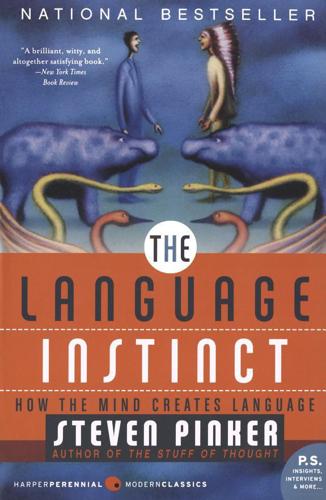
The Language Instinct: How the Mind Creates Language
by
Steven Pinker
Published 1 Jan 1994
Who could not be dazzled by the creative power of the mental grammar, by its ability to convey an infinite number of thoughts with a finite set of rules? There has been a book on mind and matter called Grammatical Man, and a Nobel Prize lecture comparing the machinery of life to a generative grammar. Chomsky has been interviewed in Rolling Stone and alluded to on Saturday Night Live. In Woody Allen’s story “The Whore of Mensa,” the patron asks, “Suppose I wanted Noam Chomsky explained to me by two girls?” “It’d cost you,” she replies. Unlike the mental grammar, the mental dictionary has had no cachet. It seems like nothing more than a humdrum list of words, each transcribed into the head by dull-witted rote memorization.
…
By changing the tension and position of the vocal folds, we can control the frequency and hence the pitch. This is most obvious in humming or singing, but we also change pitch continuously over the course of a sentence, a process called intonation. Normal intonation is what makes natural speech sound different from the speech of robots in old science fiction movies and of the Coneheads on Saturday Night Live. Intonation is also controlled in sarcasm, emphasis, and an emotional tone of voice such as anger or cheeriness. In “tone languages” like Chinese, rising or falling tones distinguish certain vowels from others. Though voicing creates a sound wave with a dominant frequency of vibration, it is not like a tuning fork or a test of the Emergency Broadcasting System, a pure tone with that frequency alone.
…
For example, if you are listening to a discussion about the destruction of ecological habitats, you might be on the lookout for words pertaining to threatened animals and plants, and then when you hear speech sounds whose phonemes you cannot pick out like “eesees,” you would perceive it correctly as species—unless you are Emily Litella, the hearing-impaired editorialist on Saturday Night Live who argued passionately against the campaign to protect endangered feces. (Indeed, the humor in the Gilda Radner character, who also fulminated against saving Soviet jewelry, stopping violins in the streets, and preserving natural racehorses, comes not from her impairment at the bottom of the speech-processing system but from her ditziness at the top, the level that should have prevented her from arriving at her interpretations.)
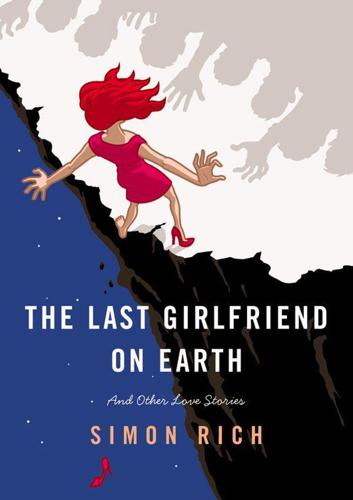
The Last Girlfriend on Earth: And Other Love Stories
by
Simon Rich
Published 22 Jan 2013
Most of all, though, I want to thank my beautiful, brilliant, magical girlfriend Kathleen, who inspired all the best parts of this book. I love you. About the Author Simon Rich is the author of Ant Farm, Free-Range Chickens, Elliot Allagash, and What in God’s Name. He has written for The New Yorker, McSweeney’s, Saturday Night Live, and Pixar. He lives in Brooklyn. Also by Simon Rich What in God’s Name Elliot Allagash Free-Range Chickens Ant Farm Thank you for buying this e-book, published by Hachette Digital. To receive special offers, bonus content, and news about our latest e-books and apps, sign up for our newsletter.
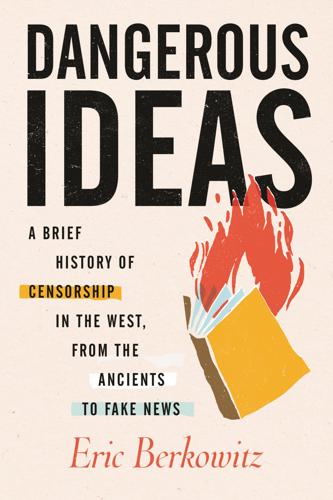
Dangerous Ideas: A Brief History of Censorship in the West, From the Ancients to Fake News
by
Eric Berkowitz
Published 3 May 2021
So far, the center is tentatively holding, and despite considerable headwinds, news outlets should continue breaking stories about misfeasance in the Trump adminstration and subsequent ones.38 Trump’s hopes for a world in which he could hold office while enjoying immunity from derision by the citizenry had little chance of coming true. When the comedy television program Saturday Night Live, which frequently ridiculed him, broadcast a sketch in 2017, based on the film It’s a Wonderful Life, that conjured a world without him as president, he tweeted that the program was “unfair,” “can’t be legal,” and should be “tested in the courts.”39 Fortunately for Trump, it was not tested—because he would have lost if it had been.
…
See also Soviet Union Russian Revolution, 178, 181 Rwanda, 199–200 Sabin Center for Climate Change Law, 251 Sabinus, Titus, 37, 38 Sachs, Jeffrey, 246 Saijah and Adinda (film), 205 same-sex love. See homosexuality Sanger, Margaret, 162–63 sapphism. See lesbianism Sarefield, Daniel, 32 Sarkozy, Nicolas, 242 The Satanic Verses (Rushdie), 243 Saturday Night Live, 215 Saturnius, Aelius, 37 Saudi Arabia, 216 Savonarola, Girolamo, 62–63 Schauer, Frederick, 7 Schenck, Charles, 179–80 Schlesinger, Arthur, 202 Schmitt, Carl, 170 Scott, C. P., 171 Seattle Union Record (publication), 179 Section 230, Communications Decency Act (US), 225–28, 229, 247, 254 Sedition Act (1798, US), 90, 116–18, 212 Sedition Act (1918, US), 176, 180, 181 seditious libel, 81–82, 92–96, 110–11, 175–76 Sejanus, Lucius Aelius, 37, 38–39 self-censorship, 7–8, 93, 164, 171, 206–7.
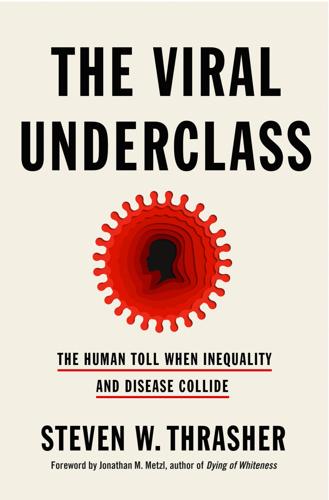
The Viral Underclass: The Human Toll When Inequality and Disease Collide
by
Steven W. Thrasher
Published 1 Aug 2022
He punctuated each word with a finger jab toward Rafsky, making the declaration of empathy look more like a threat. The phrase would become shorthand for Bill Clinton’s bullshit, a mocking example of how breezily he would identify with people in an insincere manner. But whether the phrase was evoked in a skit on Saturday Night Live in the 1990s or as a GIF on the internet in the 2010s, the context would mostly be forgotten: in that moment, “I feel your pain” was a way for Clinton to put a man dying of AIDS in his place for biting the hand that could feed him. “If you don’t agree with me, go support somebody else for president, but quit talking to me like that,” Clinton yelled.
…
His writing has been widely published by the New York Times, the Nation, the Atlantic, the Journal of American History, BuzzFeed News, Esquire, and Scientific American. A recipient of grants from the Ford and Sloan foundations, Dr. Thrasher was named one of the hundred most influential and impactful people of 2019 by Out magazine. An alumnus of media jobs with Saturday Night Live, the HBO film The Laramie Project, and the NPR StoryCorps project, Dr. Thrasher has also been a staff writer for the Village Voice and a columnist for the Guardian. He holds a PhD in American studies and lives in Chicago, New York, and in motels at the end of runways. This is his first book.

Visual Thinking: The Hidden Gifts of People Who Think in Pictures, Patterns, and Abstractions
by
Temple Grandin, Ph.d.
Published 11 Oct 2022
He then churned through two sets of encyclopedias. His photographic memory of facts and his proclivity for sharing them did not win friends and influence people. Instead, he was thought of as a “fact factory” and came off as a classic know-it-all. I think it’s fair to wager that Musk is off the charts. Not long ago, when he hosted Saturday Night Live, he revealed that he has Asperger’s syndrome. I was pretty geeky myself, badly bullied in middle school. I didn’t really find my tribe until I started working on construction projects. The engineers and welders I worked with were generally visual thinkers like me. It explained why we collaborated so well and got along.
…
In a Businessweek interview, Bill Gates was asked if Elon Musk would be the next Steve Jobs. Mr. Gates replied, “Elon’s more of a hands-on engineer. Steve was a genius at design and picking people and marketing. You wouldn’t walk into a room and confuse them with each other.” As mentioned earlier, Musk revealed that he had Asperger’s syndrome in a 2021 appearance hosting Saturday Night Live. He made the announcement with pride, joking in his monologue that he needs to tell people when he really means something because he doesn’t have much “intonation or variation” in his speech, and that he wouldn’t be making much eye contact with the cast. His “outing” himself as someone on the spectrum goes a long way toward helping people understand how difference can fuel genius.
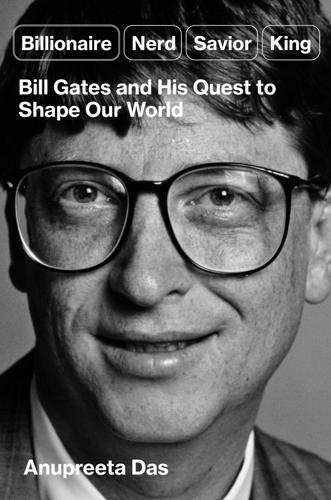
Billionaire, Nerd, Savior, King: Bill Gates and His Quest to Shape Our World
by
Anupreeta Das
Published 12 Aug 2024
Nerds are often described as being “mildly autistic,” according to Jordynn Jack, a term that is casually tossed about as a shorthand for a certain type of male who prefers technology over social interaction, representing a brain that is analytical and mathematical.30 Autism became closely linked to the fields of technology, science, and computing in the 1980s, and in that decade was most closely associated with Gates, Jack writes. The media took the term and ran with it, citing statistics about how the rates of autism are highest in Silicon Valley. When Musk disclosed that he has Asperger’s syndrome while hosting Saturday Night Live in 2021, it only embedded the storyline further. “For now, it seems that the persuasiveness of the Extreme Male Brain or Silicon Valley theories lies more in how those theories fit with our notions of gender, geekiness, and the late twentieth-century workplace than in actual statistical patterns,” according to Jack.
…
Wade, 109–110, 167 Rogen, Seth, 107 Rogers, Fred, 96, 243–244 Rolling Stone, 38, 51 Rolling Stones, 65 Roosevelt, Franklin D., 24 Rose, Charlie, 79 Ross, Bob, 243 Rotary International, 104, 177 Rotterdam, 271 Rubenstein, David M., 26, 135–136 Rudolph, Maya, 145 RuneQuest (game), 51 Russian invasion of Ukraine, 279 Sackler family, 28 Saez, Emmanuel, 257 Sager, Jeannie Infante, 22, 170 St. Paul, Minn., 13 Salesforce, 181, 259 Sánchez, Lauren, 144 Sandberg, Sheryl, 54, 263 Sanders, Bernie, 257–258, 260 Sandy Hook Elementary School, 246 Saturday Night Live, 53 Saunders-Hastings, Emma, 187 Sawyer, Diane, 148 Scarry, Richard, 109 Schervish, Paul, 194 Schmitz, Hans Peter, 136 Schultz, Howard, 139 Schwarzman, Stephen A., 26, 120 Scialfa, Patti, 159 science, technology, engineering, and math (STEM) fields, 53 Scott, MacKenzie, 45, 144–145, 170, 191, 204, 263 SD Biosensor, 176 Seattle, Wash., 34, 66–67 Seattle Computer Products, 35 Seattle Post-Intelligencer, 155, 159 Seattle Public Library, 98 Seattle University, 22, 171 Seitz, John, 27 self-made, 262–263 Senate Finance Committee, 258 Seshadri, Vignesh, 249–250 Seven Samurai (film), 44 sexual abuse, 22 sexual harassment, 238–243 Shafik, Minouche, 193 Shah, Rajiv, 182 Sharp, Isadore, 213 Sheldon (fictional character), 52–53 Sheraton New York Times Square Hotel, 125 Shiva, Vandana, 190 Shoe Dog (Knight), 11 Signature Aviation, 213 Siino, Rosanne, 43, 55–56, 58 Silicon Graphics, 43 Silicon Valley, 48, 55 Silicon Valley (TV show), 52–53 Silicon Valley Bank, 49 Silicon Valley Community Foundation, 205 Simpsons, The, 93 Singer, Peter, 205 Sinofsky, Steven, 228 sitcoms, 53 Sixteen Candles (film), 51 Sloan School of Management, 69 small-dollar donations, 25, 29 smartphones, see iPhones Smil, Vaclav, 101 Smith, Brad, 82 Smith, Robert, 157, 263 Snowflake Computing, 33 social franchising, 200 social media platforms, 107 Social Network, The (film), 52 Softimage, 70 Sonsini, Wilson, 78 Soon-Shiong, Patrick, 273 Sorkin, Andrew Ross, 260 Soros, George, 202, 245, 272 Soul of a New Machine, The (Kidder), 40 South Carolina, 272 Spacewar (game), 39 “Spacewar: Fanatic Life and Symbolic Death Among the Computer Bums” (Brand), 38 SpaceX, 10 Spelman College, 193 spend-down foundations, 280–281 Spielberg, Steven, 100 Spiers, Elizabeth, 49 Springsteen, Bruce, 159 Springsteen, Jessica, 159 S&P 500 stock market index, 28, 44 Square, 204 Sridhar, Devi, 248 Srinath, Ingrid, 196 Staley, James E., 229–231, 232 Standard Oil, 62–64 Stanford University, 48, 50, 56, 57, 73, 74, 98, 159 Stanley Farms, 211 Starbucks, 139 Star Trek (film), 51 start-up founder myths, 47–49 Staten Island, N.Y., 20 STEM (science, technology, engineering, and math) fields, 53 Sterling, Alton, 13 Steyer, Tom, 273 Stone, Roger, 247 Stoneham, Mass., 10 Stonesifer, Patty, 98 Stranger Things, 51 Strategic Property Partners, 208 Streeter, Thomas, 41, 47 Strive Capital, 272 Sturken, Marita, 244 Succession (TV show), 112 Summers, Larry, 229, 237 Sunderland, Julie, 192 Sun Microsystems, 41 Sun Valley, Idaho, 9–10, 12–14, 54 Superstorm Sandy, 21 Supreme Court, 22, 109, 167, 171 Surrender (Bono), 100 Susan Thompson Buffett Foundation, 122 Suzman, Mark, 127, 189, 193 Swachh Bharat Abhiyan (Clean India Mission), 194 Swenson, Signe, 233 Sydow, Bob, 215–216 Tahrir Square, 255 Tampa, Fla., 207–209 Tampa Bay Lightning, 207–208 Tarbell, Ida, 64 Tax Reform Act of 1969, 27 TB, 200, 277 technology sector, of economy, 44–46 TED talks, 101, 246–247 telemedicine, 200 TerraPower, 223 Tesla, 10, 44 Thatcher, Michael, 147 Theranos, 50 Thiel, Peter, 44, 56, 272 Thomas, Clarence, 272 3G Capital, 13 Tia (company), 165 Tierney, Tom, 193 Tilden Foundation, 120 Time magazine, 43, 50, 70, 100, 154, 181 Time’s Up movement, 239 TIPS (Treasury Inflation-Protected Securities), 214 Titan: The Life of John D.

Tripping on Utopia: Margaret Mead, the Cold War, and the Troubled Birth of Psychedelic Science
by
Benjamin Breen
Published 16 Jan 2024
Thomas lab, Gregory Bateson and John C. Lilly would take part in a series of experiments that have, in the years since, passed into the realm of urban legend. They have been retold in everything from scholarly studies like D. Graham Burnett’s The Sounding of the Whale to an episode of Drunk History, from a BBC documentary to a Saturday Night Live parody sketch called “The Dolphin Who Learned to Speak.” The events at the St. Thomas lab also inspired two Hollywood feature films: The Day of the Dolphin (1971), a thriller about cetaceans trained to become government killing machines; and Altered States (1980), an eerie tale of a scientist who mutates his own body via a combination of psychedelic drugs and isolation tank experiments.
…
Graham Burnett, The Sounding of the Whale: Science and Cetaceans in the Twentieth Century (Chicago: University of Chicago Press, 2012), chapter 6; Christopher Riley, director, The Girl Who Talked to Dolphins, BBC documentary, 2014; “Home Is Where Your Dolphin Is,” Radiolab, August 21, 2014; “The Dolphin Who Learned to Speak,” Saturday Night Live, November 11, 2017. On Lilly’s cultural milieu, see David Kaiser and W. Patrick McCray, eds., Groovy Science: Knowledge, Innovation, and American Counterculture (Chicago: University of Chicago Press, 2016). 23. CARL SAGAN AT THE DOLPHIN LAB “Peter was insanely mad”: “Margaret Howe comments on Pamela’s reaction to LSD, 1965 January 15,” JCL papers (available at https://purl.stanford.edu/tx759bw1131).
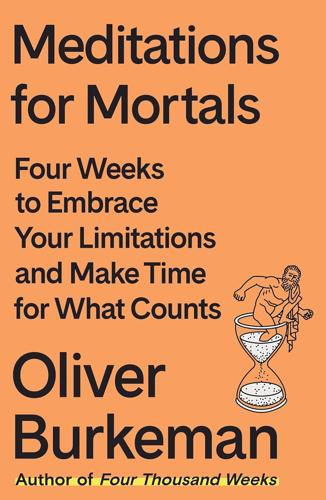
Meditations for Mortals: Four Weeks to Embrace Your Limitations and Make Time for What Counts
by
Oliver Burkeman
Published 8 Oct 2024
This must be why it comes as such a punch to the guts whenever I revisit a scene from the largely forgotten noughties television drama Studio 60 on the Sunset Strip, in which Bradley Whitford and the late Matthew Perry play producers called in to rescue and relaunch a national weekly comedy show, based transparently on Saturday Night Live. Throughout the episode, their anxiety builds visibly, while a huge digital clock on the control-room wall counts down the days, hours, minutes and seconds until the moment the live broadcast must begin. The world is watching. The stakes are high. Last-minute conflicts threaten to derail the whole thing.
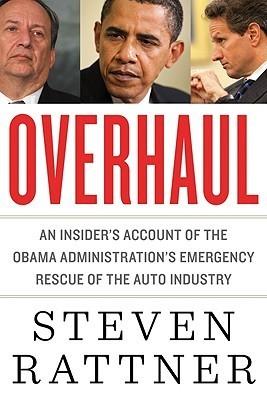
Overhaul: An Insider's Account of the Obama Administration's Emergency Rescue of the Auto Industry
by
Steven Rattner
Published 19 Sep 2010
But that session would take place, the letter warned, only if each company presented "a credible restructuring plan." Interestingly, the letter did not directly address the most important issue: whether $25 billion, as staggering as that sum would have seemed just months before, would even be enough. The coda to the week happened not on Capitol Hill but on Saturday Night Live. The show opened with a parody of what the second set of hearings might be like. In the skit, the CEOs do not fly to Washington, they drive—and apologize to Congress for showing up late because their cars all broke down. "I was going to drive my 2009 Cadillac XLR-V, a model we at GM are very proud of," says the ersatz Rick Wagoner, "but every time I tried to start it, I just got a powerful electric shock, and the upholstery would catch on fire."
…
Those hundreds of millions of dollars bought a lot of improvements. Consumer Reports had singled out Chrysler and Dodge minivans for an inability to handle well in an emergency, hardly an appealing attribute in a suburban kid-mover. The minivans got newly designed suspensions. The Chrysler 300 and Dodge Stratus—sedans so bad they'd been lampooned on Saturday Night Live—got new V6 engines with a six-speed transmission option, plus new suspensions and tires to improve the ride. Nor was all Sergio's spending on products. He pumped tens of millions into fixing up cafeterias and restrooms in Chrysler plants as well as doing other long-deferred maintenance and repairs, all of which helped boost morale.
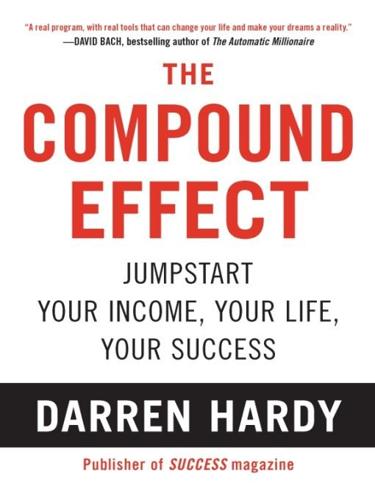
The Compound Effect
by
Darren Hardy
Published 1 Jan 2010
Google was a small, struggling search engine for a while; today it, too, owns more than 60 percent of its market. YouTube, the video-sharing space created in February 2005, officially launched in November of that year. But it wasn’t until they featured the “Lazy Sunday” digital short that originally aired on Saturday Night Live that people started going to YouTube in huge numbers to find it. That YouTube video clip went viral—it got more than 5 million views before NBC asked to have it taken down. Then, there was no way to catch them—they had Mo. Today YouTube owns more than 60 percent of the video market! Google caught up with You Tube’s two young founders and paid them $1.65 billion to buy their Mo.
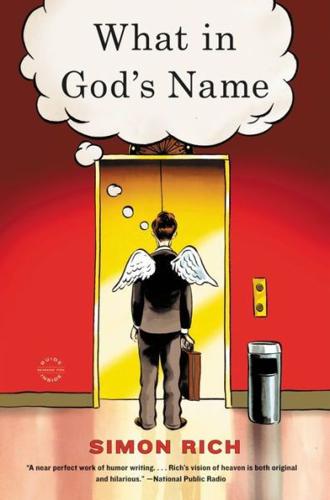
What in God's Name: A Novel
by
Simon Rich
Published 7 Aug 2012
You all helped in your own way. Thanks to all my friends for putting up with me. And thanks, above all, to my wonderful big brother Nat, who taught me everything I know about books, life, and baseball. This one’s for you. About the Author Simon Rich has written comedy for The New Yorker, Pixar, Saturday Night Live, McSweeney’s, The Believer, and various movie studios. He’s the author of two collections, Free-Range Chickens and Ant Farm, which was a finalist for the Thurber Prize for American Humor. His first novel, Elliot Allagash, was optioned for a film by Jason Reitman. Rich lives in Brooklyn. Also by Simon Rich Elliot Allagash Free-Range Chickens Ant Farm: And Other Desperate Situations Contents Title Page Dedication Epigraph Part I Part II Part III Epilogue Acknowledgments About the Author Also by Simon Rich Copyright The characters and events in this book are fictitious.
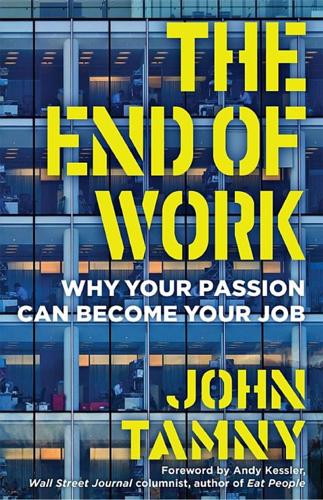
The End of Work: Why Your Passion Can Become Your Job
by
John Tamny
Published 6 May 2018
Cs in math and science kept my grade point average in check. Nevertheless, I remained a voracious reader. The first hardcover book I ever bought was Mafia Princess by Antoinette Giancana, a purchase motivated by my fascination with the mob. The entertainment industry also captivated me, and I read a history of Saturday Night Live, a biography of Frank Sinatra, and the story of a 1970s financial scandal inside Columbia Pictures, Indecent Exposure. Business reads included Lee Iacocca’s autobiography and Ken Auletta’s Greed and Glory on Wall Street (about the original fall of Lehman Brothers in the 1980s). Herman Wouk’s The Winds of War and War and Remembrance had me entranced in the months it took me to read both, and I was an early fan of James Webb (the future senator), whose novels dealt with life at the Naval Academy, combat in Vietnam, and military life in general.
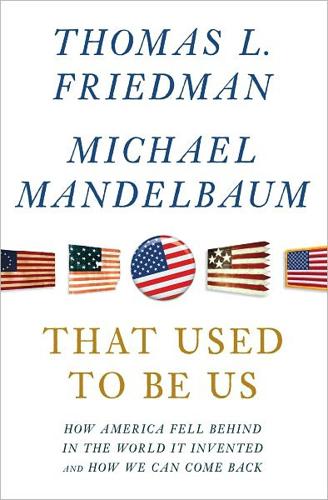
That Used to Be Us
by
Thomas L. Friedman
and
Michael Mandelbaum
Published 1 Sep 2011
Tell me how the twenty-four-hour news cycle would have affected writing the Constitution. Cable networks are outside Independence Hall. Ben Franklin walks out. He gets ambushed by Fox News. ‘Is it true you’re caving on a small [state] representation? What power do you give small states?’ I’ve always thought Saturday Night Live should do this. Think of a skit in which Ben Franklin is walking down the streets and people are just eating him alive. And you have Glenn Beck right outside saying, ‘They’re selling us out.’ You’ve got Rachel Maddow throwing herself in front of the door. Okay, so now, fast-forward. The twenty-four-hour news cycle makes compromise difficult because things get leaked and the momentum to find consensus is deterred.
…
Rogoff, Kenneth Rolling Stone magazine Roman Empire Romm, Joseph Roosevelt, Franklin D. Roosevelt, Theodore Rosen, Amy Rosenberg, Diane Rosenberg, Mark Ross, Benjamin Rubenstein, David Russia; communist, see Soviet Union S St. Louis Samuelson, Robert Sandel, Michael J. San Diego (California) San Francisco Chronicle Sarles, Richard Saturday Night Live (television series) Saturn V rocket Saudi Arabia Savage, Michael Schapiro, Morton Owen Schell, Orville Schilling, Curt Schleicher, Andreas Scholastic Aptitude Test (SAT) Schuck, Peter Schwarzenegger, Arnold science; of climate change; education in; jobs in; see also physics Science magazine Seattle (Washington) Seattle Post-Intelligencer Second Civil War, The (Brownstein) Secret Service Securities Act (1933) Securities and Exchange Commission (SEC) Seib, Gerald Seidman, Dov Senate, U.S.; campaigning for; climate change legislation in; Environment and Public Works Committee; Finance Committee; partisan polarization in September 11, 2001 (9/11) terrorist attacks Servicemen’s Readjustment Act (1944) Shahmirian, Sarine Gayaneh “Sham News Network” (SNN) Shanghai Sharma, Sunanda Sharma, Virender K.

Framing Class: Media Representations of Wealth and Poverty in America
by
Diana Elizabeth Kendall
Published 27 Jul 2005
Two examples of bad-apple-with-good-taste framing for shoplifting involve actress Winona Ryder and Dallas socialite Brooke Stollenwerck Aldridge. The Winona Ryder shoplifting trial became a topic not only of newspaper and magazine accounts but also of such television entertainment shows as E!, Entertainment Tonight, Inside Edition, and Access Hollywood. Writers for Saturday Night Live, The Tonight Show with Jay Leno, and Late Night with David Letterman created numerous jokes about “Winona’s five-finger discount” and the expensive designer clothing she wore to her trial (“no cheap orange jump suit for Winona,” for example). In bad-apple-with-good-taste framing of stories about rich celebrities like Ryder, no detail is spared, particularly when it involves the individual’s insatiable desire for expensive goods or the preferential treatment he or she receives in everyday life: Probably the biggest gasp in the Winona Ryder shoplifting trial . . . came when two sales clerks in a row testified that the willowy actress had asked them to fetch her Coca-Colas from the Saks Fifth Avenue cafeteria.
…
Allen Family Foundation, 36 Payne, Caroline, 121–22 PBS, 194 Peebles, Don, 41 Pena, Edison, 141 Perrucci, Robert, 222 Pew Research Center, 165, 212, 222, 225 Philadelphia Journeyman Cordwainers, 125 Pickett, Jerry, 191 Pickett, Julie, 191 Platinum Weddings, 212 poor and homeless/underclass: alcoholism and drug dependency in, 107–8; charitable framing of, 18, 111–16; 9781442202238.print.indb 296 composition of, 16, 113; contemporary framing of, 87–119; crime and suicide associated with, 84–87; defining, 14, 16; dependent and deviant framing of, 99–109, 117; episodic framing of, 83–84, 94–95, 116, 117; exceptionalism framing of, 18, 109– 11; framing of, 1–2, 3, 10–11, 81–119, 204–5, 214–15, 261n16; historical framing of, 84–87; holiday coverage on, 84, 91, 92, 111–12, 214; hunger in, 91, 118; individualistic perspective of, 87, 111, 118; as invisible, 82, 116, 214; minority populations in, 113; negative-image framing of, 99–109, 117; as Others, 116, 215; region and race in, 96, 242–43n30; reporting on children, elderly, and the ill, 95–99, 117; sympathetic framing of, 81–82, 95–99, 117; systemic perspective of, 87, 117; thematic framing of, 83, 88–95, 116–17, 214; welfare issues and, 22, 100–104 Poor Little Rich Girl: The Life and Legend of Barbara Hutton (Heymann), 56 Powerball winners, 40–41 The Power of Good Deeds: Privileged Women and the Social Reproduction of the Upper Class (Kendall), 3 The Practice, 108 Presley, Elvis, 141, 144 Pressly, Jaime, 153 prestige, class and, 14 The Price Is Right, 51 price-tag framing, 29, 42–49, 51, 212 Primack, Phil, 136 Primo, Quintin III, 41 Private Chefs of Beverly Hills, 51 The Private World of High Society (Kavaler), 26 progress and material comfort, middle class value of, 176 Project for Excellence in Journalism, 227, 228, 229 2/10/11 10:47 AM Index Public Employees Federation, 137 public listening, by journalists, 226 Puette, William J., 126, 128, 129, 130 Pullman Palace Car Company, 128 Quaker Oats, 171–72 Quayle, Dan, 182 Quecreek Mine accident, 140 rags-to-riches stories, 40–42 Rappaport, Ben, 155 Reading the Homeless: The Media’s Image of Homeless Culture (Min), 104 Reagan, Ronald, 175 Real Housewives franchise, 6, 12–13 reality, as socially constructed, 2–4, 6–7, 218–19 Real Time with Bill Maher, 144 Red Cross, 115 Redneck Comedy Tour, 146 Rednour, Richard, 153 Redstone, Sumner, 44 Rehn, Trista, 13 Reiner, Rob, 150 Remini, Leah, 151 Remmler, John, 86 Rich Kids, 12 Riesel, Victor, 129 The Rise of the Creative Class (Florida), 166, 206 Rivlin, Gary, 158, 159 Robb Report, 45 Rockefeller Foundation, 162 Rockwell, Norman, 171 Rojecki, Andrew, 22, 83 Roman, Nan, 89 Rose, Charlie, 37 Roseanne, 142, 151, 152 Rowan, Kelly, 60 Ryder, Winona, 68–69 San Francisco Chronicle, 1, 127, 204 San Francisco Examiner, 204 Santorum, Rick, 96 9781442202238.print.indb 297 297 Sargent, Ben, 196 The Saturday Evening Post, 171 Saturday Night Live, 68 Sawyer, Diane, 99 schadenfreude, 53, 77 schemas, 22 schools, affiliation and class, 4 Schor, Juliet B., 212, 217–18 Schwartz, Josh, 60 Season for Caring campaigns, 113–14 self-empowerment, 41 Selling New York, 44 Service Employees International Union, 137 7th Heaven, 114 sewing women, 127 shady framing, 130–37, 160–61 Shipler, David K., 158 Shulman, Beth, 158 Silverstein, Michael J., 65 The Simpsons, 147, 149 The Sims, 49 60 Minutes, 70, 129, 215 Smith, Adam, 126 Snooki, 209 Snow, David A., 8–9 Snyder, Mary Gail, 207, 208 SOAPnet, 58 social information, paths of, 22 socialization, class consciousness and, 14 social movements, news coverage of, 8 Society Page, 23–51 Soon-Shiong, Patrick, 15 The Sopranos, 135–36, 149 Sotheby’s, 65, 67, 78 sour-grapes framing, 17–18, 29, 53, 55–61, 77, 80 Spagnole, Richie, 110–11 Spears, Britney, 79, 145 spin, as framing, 5 squeeze framing, 167, 170, 175, 189– 95, 206 Stanford, R.
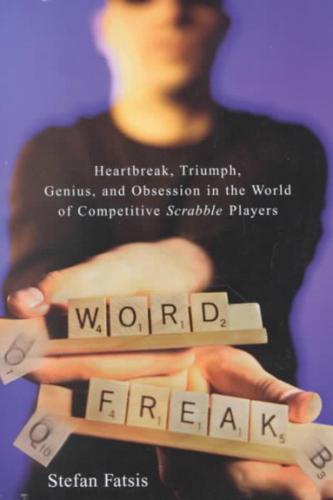
Word Freak: Heartbreak, Triumph, Genius, and Obsession in the World of Competitive ScrabblePlayers
by
Stefan Fatsis
Published 27 Jul 2001
Matt on stage is Matt in Scrabble: smart, sophisticated, extremely creative, but volatile, hair-trigger angry, easily provoked, self-conscious, paranoid. “Just one chromosome up from the guy in Silence of the Lambs,” one Scrabble veteran says. Pushed by a new girlfriend to be more responsible for himself, and helped by his old one, Matt in mid-1998 decided to find a job. Saturday Night Live was looking for writers, Matt knew one of the cast members, and a few weeks before the Nationals, he was hired for the fall season. “This motherfucker go from two feet in the ground to this job with six figures,” Marlon Hill, my other penniless Scrabble genius friend, said. “I was, like, just lemme know when Toni Braxton be on that motherfucker.”
…
I think I can play great Scrabble.” 158 ❑ Word Freak It was like that before the 1997 Worlds: Matt had been on a partying jag, stopped two weeks before the event, studied round the clock, and finished second. But the success didn’t materialize in Chicago, where he drew poorly and couldn’t mount the charge he did at the Worlds in Washington, and Matt sat sulking in the rear of the ballroom as the bland, unflappable Brian Cappelletto collected his $25,000 check. Matt started at Saturday Night Live in September. In October, he was fired. More than a month after his firing, Matt told me what happened. He said he was cranking out twenty jokes a day for his segment, “Weekend Update,” but he couldn’t get any of them on the show — only one the first week, and none the second, third, or fourth.
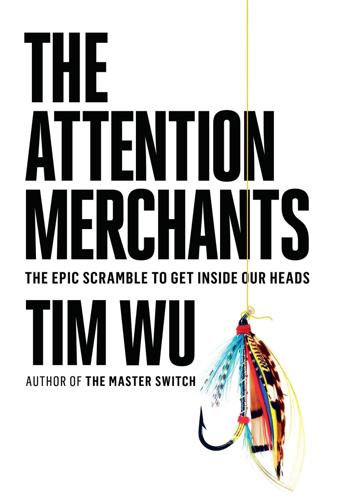
The Attention Merchants: The Epic Scramble to Get Inside Our Heads
by
Tim Wu
Published 14 May 2016
They tried scheduling reruns of the 1960s hit The Monkees, with mixed results. One enterprising programmer was fixated on the idea of MTV running NFL games, wisely foreseeing that the real money would eventually be in sports; but it was not the best fit for the brand. Another idea was to rerun Saturday Night Live cut into pieces with music videos sprinkled in. Eventually the network began running a low-budget game show named Remote Control; with questions based on MTV trivia, it was “an excuse to do jokes.”5 One day, looking at their audience data, a young executive named Van Toffler had a different idea.
…
Lavandeira described himself as the “Raconteur, Iconoclast, Proselytizer and the Maniacal Mastermind behind Page SixSixSix.” A sample headline from his early work: “Hilary Duff Is a Lying Bitch!! In a recent interview, Hilary not only had the fucking audacity to defend Ashlee Simpson’s lip-synching fracas on Saturday Night Live, but she went so far as to actually claim that she doesn’t lip-synch herself. Puhhhleeeaze biyatch!” The blog might have gone unnoticed and, like most, expired, but something about Lavandeira’s particular blend of venom and star adulation made it take off. It didn’t hurt that it was named “Hollywood’s Most Hated Website” by one TV show, leading to a traffic boom, or that it received a legal complaint from the New York Post, which noticed that its trademark “Page Six” had been appropriated.
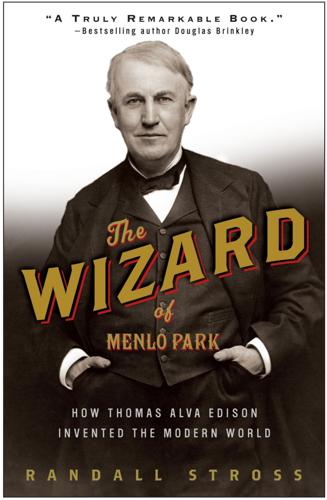
The Wizard of Menlo Park: How Thomas Alva Edison Invented the Modern World
by
Randall E. Stross
Published 13 Mar 2007
Edison Made to Telegrams and Letters Received the Day After the Fire,” Edison Phonograph Monthly, January 1915, 6. “I never intend to retire”: “Edison Sails for Europe on First Trip in 22 Years, to Catch Up with Worries,” Evening World, 2 August 1911. CHAPTER 11. FRIEND FORD lopsided arithmetic: A classic Saturday Night Live sketch playfully pretended that a celebrity musician knew as much about every one of his fans as they knew about him. As Paul Simon was standing in line outside a movie theater, a woman approached him. Woman: Paul Simon! Hi! Oh, I’m sure you don’t remember, but I saw you in your concert at Central Park.
…
Simon even remembered the man who had bought one of his records in a Seattle record store: “Oh, yes, you had a problem with the second side, there was a scratch on the second cut…” The sketch concluded with Simon’s memory failing him upon the arrival of Art Garfunkel, his collaborator for eleven years. Simon: “And your name is?” The show originally aired 22 November 1986. The transcript is posted to a Web site, Saturday Night Live Transcripts. See http://snltranscripts.jt.org/86/86ememory.phtml. At dinner on the first day: Henry Ford, in collaboration with Samuel Crowther, Edison as I Know Him (New York: Cosmopolitan Book Corporation, 1930), 1–5, 11. The stagy dialogue: Ford’s first published account of the encounter was in his autobiography, published in 1922.
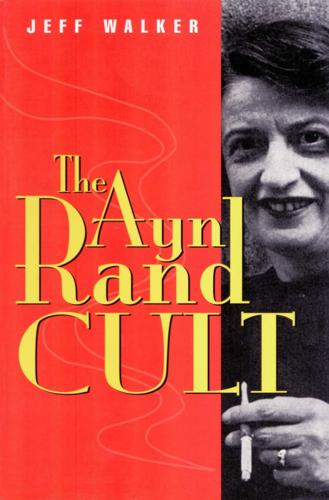
Ayn Rand Cult
by
Jeff Walker
Published 30 Dec 1998
Her ‘withdraw-from-Vietnam’ stance helped immeasurably in communicating with professors and students alike. In fact, it hooked thousands of left-wingers onto her philosophy. The Nathaniel Branden Institute and the Objectivist continued to expand throughout the 1970s, during which time Rand and her movement became the butt of savage satire in The National Lampoon and on Saturday Night Live. Branden’s weekly Objectivist radio talk-show ‘And I Mean It!’, while never approaching the kind of ratings Rush Limbaugh would enjoy in the 1990s, was a forerunner of that program. Branden went on to write a handful of conservative and libertarian think-tank books, later running successfully for the senate as a Republican.
…
In 1975, Rand published a 175-page memoir of her estrangement from Frank Jr. during the early years of the Vietnam war, and of their eventual reconciliation. Critics who had panned Atlas Shrugged 18 years before fell over themselves heaping it with praise. It completed Rand’s transition from practically a literary outcast to practically a mainstream icon. In 1978 Lorne Michaels convinced Ayn Rand to appear as a guest host for a special Saturday Night Live show roasting socialism around the world and big government at home. She played a Kafka-esque government inquisitor in one sketch. In 1979 Rand became a fellow of the Committee for the Scientific Investigation of Claims of the Paranormal (CSICOP) and one of that organization’s key promoters of critical thinking—which she considered a prerequisite for and a likely stepping stone toward adopting Objectivism.
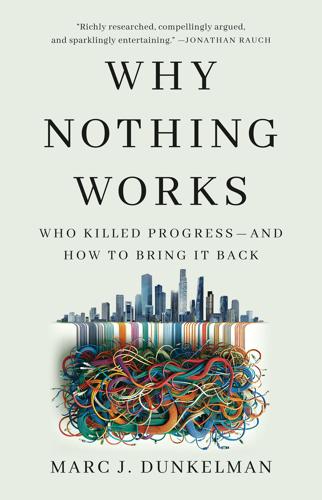
Why Nothing Works: Who Killed Progress--And How to Bring It Back
by
Marc J Dunkelman
Published 17 Feb 2025
He wanted to deregulate, and he embraced efforts to let cable companies, railroads, and even banks get out from under what he deemed as the heavy hand of government meddling, claiming just a few weeks before being trounced by Ronald Reagan in the 1980 election that “we have secured the most fundamental restructuring of the relationship between industry and government since the time of the New Deal.”49 But deep down he was just like the progressives of old. A Saturday Night Live sketch of him absurdly micromanaging the federal bureaucracy drew on his instinct to pull power up and in.50 Carter was not alone in his ideological purgatory, but his agenda ended up being more a jumble than a thoughtful balance. He installed inspectors general in every government department and charged them with snuffing out waste, fraud, and abuse.
…
Derthick and Quirk, The Politics of Deregulation, 5–8. 47. Eizenstat, President Carter, 153–169. 48. Steinhart and Steele, “Reviewed Work: Limiting Oil Imports.” 49. Eizenstat, President Carter, 354–359. Derthick and Quirk, The Politics of Deregulation, 8–19. 50. Dan Aykroyd as President Jimmy Carter, “Ask President Carter—SNL,” Saturday Night Live, season 2, 1977, YouTube video posted February 15, 2018, www.youtube.com/watch?v=-68iTvhWNB0. 51. Eizenstat, President Carter, 11–13. 52. Derthick and Quirk, The Politics of Deregulation, 31. Bruce J. Schulman, The Seventies: The Great Shift in American Culture, Society, and Politics (New York: Da Capo Press, 2001), 121–124. 53.
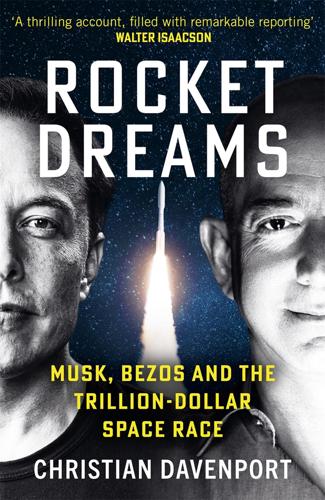
Rocket Dreams: Musk, Bezos and the Trillion-Dollar Space Race
by
Christian Davenport
Published 6 Sep 2025
“They have a billion dollars of free money every year from [Bezos]. . . . I think engineers think better when they’re pushed hardest to do great things in a very short period of time, with very few resources. Not when you have 20 years. I don’t think there’s a motivation or a drive there.” A couple of days after Blue filed the protest, Saturday Night Live announced that Musk would host an upcoming show. I tweeted that with the dust-up between Musk and Bezos over the contract, the show’s writers “now have a whole lot of material to work with. The opening monologue could be . . . something.” Elon replied, in typical cheeky fashion: “Romeo + Juliet fish tank scene”—a reference to a scene in the 1996 film version in which Leonardo DiCaprio and Claire Danes meet for the first time.
…
A pair of tents hosted Branson’s guests—one for friends and VIPs, and one for the media—and each was outfitted with lavish breakfast buffets. Instead of a stoic three, two, one countdown, there was a party-like atmosphere along the tarmac. There was even a musical guest, Khalid, who debuted a new song as if he were appearing on Saturday Night Live. The company’s live broadcast of the flight was anchored by Stephen Colbert. Musk took it all in with his young son perched on his shoulders. The flight itself was anticlimactic. There was none of the thunder of a rocket launch. No fire shooting out of the booster. Instead, Virgin Galactic’s mothership took off from a runway, like any plane taking off at a commercial airport.
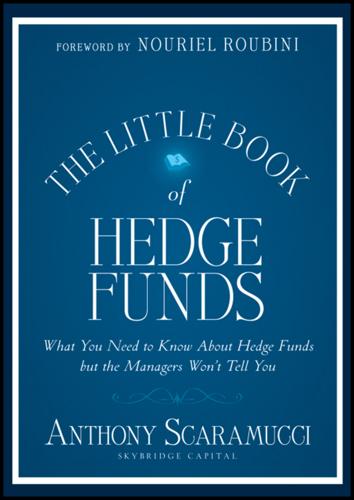
The Little Book of Hedge Funds
by
Anthony Scaramucci
Published 30 Apr 2012
They are supposed to make money all the time, and when they fail at this, their investors redeem and go to someone else who has recently been making money. Every three or four years, they deliver a one-in-a-hundred-year flood. Although I may be biased toward my talented friend Cliff—who if he weren’t running AQR might be writing comedy sketches for Jimmy Fallon or, better yet, could replace Seth Meyers on Saturday Night Live’s “Weekend Update”—his humorous definition is chock-full of vital information about hedge funds that completes the discovery process and enables us to fully learn the sum of a hedge fund’s parts. Now, although we may never agree on a universal definition of hedge fund, you will notice that all four of these definitions have a few terms in common.
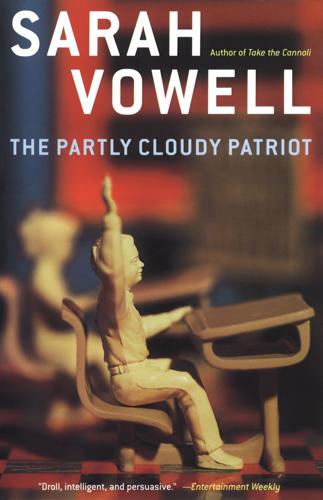
The Partly Cloudy Patriot
by
Sarah Vowell
Published 26 Aug 2002
I revere the Bill of Rights, but at the same time I believe that anyone who’s using three or more of them at a time is hogging them too much. I’m a newspaper-reading, French-speaking, radio-documentary-loving square. A lot of my favorite comedians, such as Martin Short, Eugene Levy, the Kids in the Hall, are Canadian. I like that self-deprecating Charlie Brown sense of humor. As Canadian-born Saturday Night Live producer Lorne Michaels once put it in a panel discussion devoted to the question of why Canadians are so funny at the Ninety-second Street Y, a Canadian would never have made a film called It’s a Wonderful Life because “that would be bragging.” The Canadian version, he said, would have been titled “It’s an All Right Life.”

How to Be Human: An Autistic Man's Guide to Life
by
Jory Fleming
Published 19 Apr 2021
I think that’s kind of funny. But with a comedian, I don’t know this person, I don’t have any connection to this person. If I laugh, it doesn’t have any meaning behind it. It has more memory value if it comes from people I know. Sometimes, Mom will send me some funny clip from John Oliver or Saturday Night Live, but if I’m thinking, What can I watch on Netflix?, it’s never put on some comedy, it’ll be put on a documentary. LW: What forms of humor are really not funny to you? JORY: Some humor doesn’t make sense. The whole bit about laughing at other people’s apparent or real injuries is always confusing.
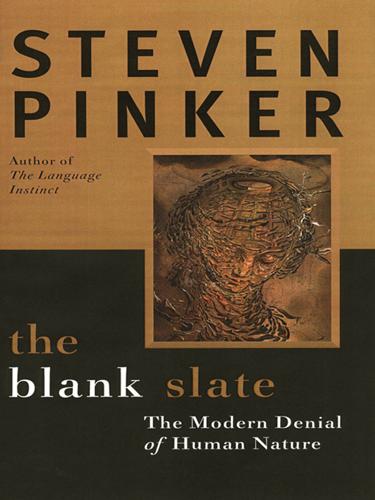
The Blank Slate: The Modern Denial of Human Nature
by
Steven Pinker
Published 1 Jan 2002
The postmodernist equating of images with thoughts has not only made a hash of several scholarly disciplines but has laid waste to the world of contemporary art. If images are the disease, the reasoning goes, then art is the cure. Artists can neutralize the power of media images by distorting them or reproducing them in odd contexts (like the ad parodies in Mad magazine or on Saturday Night Live, only not funny). Anyone familiar with contemporary art has seen the countless works in which stereotypes of women, minorities, or gay people are “reinforced, parodied, or actively contested.” A prototypical example is a 1994 exhibit at the Whitney Museum in New York called “Black Male: Representations of Masculinity in Contemporary Art.”
…
To say that women and men do not have interchangeable minds, that people have desires other than power, and that motives belong to individual people and not just to entire genders is not to attack feminism or to compromise the interests of women, despite the misconception that gender feminism speaks in their name. All the arguments in the remainder of this chapter have been advanced most forcefully by women. WHY ARE PEOPLE so afraid of the idea that the minds of men and women are not identical in every respect? Would we really be better off if everyone were like Pat, the androgynous nerd from Saturday Night Live? The fear, of course, is that different implies unequal—that if the sexes differed in any way, then men would have to be better, or more dominant, or have all the fun. Nothing could be farther from biological thinking. Trivers alluded to a “symmetry in human relationships,” which embraced a “genetic equality of the sexes.”22 From a gene’s point of view, being in the body of a male and being in the body of a female are equally good strategies, at least on average (circumstances can nudge the advantage somewhat in either direction).23 Natural selection thus tends toward an equal investment in the two sexes: equal numbers, an equal complexity of bodies and brains, and equally effective designs for survival.
…
Rockwell, Norman Roiphe, Katie Roman Catholic Church romanticism see also naturalistic fallacy; Noble Savage Romer, Paul Roosevelt, Theodore Rorty, Richard Rose, Hilary Rose, Steven Rosencrantz and Guildenstern Are Dead (Stoppard) Rossi, Alice Rousseau, Jean-Jacques Rowe, David Rozin, Paul Rumelhart, David Rummel, R. J. Russell, Bertrand Russian Revolution Ryle, Gilbert Sahlins, Marshall St. Helena Salmon, Catherine Samoans Sanger, Margaret Sapir, Edward Sargent, John Singer Sarich, Vincent Sartre, Jean-Paul Satel, Sally Saturday Night Live Saving Private Ryan Scandinavia Scarr, Sandra Scarry, Elaine Schelling, Thomas schizophrenia Schlesinger, Laura Schwartz, Felice Schwarzenegger, Arnold science studies Scopes Monkey Trial Scott, Dred Scott, James Searle, John Segal, Nancy Sejnowski, Terrence self, unified self-deception Selfish Gene, The (Dawkins) selfishness Sen, Amartya Serrano, Andres Seville Statement sex differences in brain discomfort about gender gap and in parenting in violence women as researchers on sex discrimination sexual assault, see rape sexual behavior sexual competition arts and sexual orientation Shakespeare, William Shalit, Wendy Shastri, Lokendra Shatz, Carla Shaw, George Bernard Shaywitz, Sally Shepard, Roger Sherman, Cindy Shockley, William Shosha (Singer) Shweder, Richard sibling conflict sickle cell anemia sign language Silk, Joan Silver,Ron Simon, Herbert Simon, Julian Simon, Paul Singer, Isaac Bashevis Singer, Peter Skinner, B.
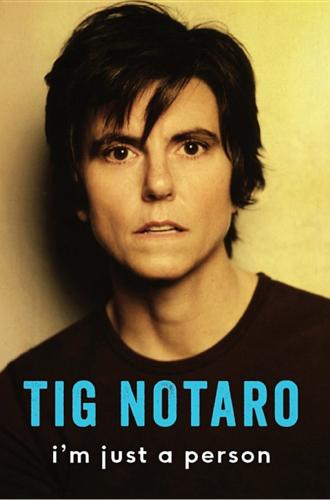
I'm Just a Person
by
Tig Notaro
Published 13 Jun 2016
I always tried to connect with my mother. But sometimes it seemed as though as soon as my brother and I were able to feed ourselves, my mother expected us to fend for ourselves almost entirely. We did share a sense of humor and bonded while enjoying our favorite TV shows: All in the Family, Sanford and Son, Saturday Night Live, Late Night with David Letterman, Good Times, I Love Lucy, Laverne & Shirley, and Welcome Back, Kotter. But, ultimately, I wanted to share more with my mother than a laugh together at other—made-up—families’—made-up—experiences. Sure, I had a “cool mom” who was stylish and listened to hip music at full volume, but mostly I wanted her to make me dinner and scratch my back before bed.

Elliot Allagash: A Novel
by
Simon Rich
Published 24 May 2010
ABOUT THE AUTHOR SIMON RICH has written for The New Yorker, GQ, Mad, The Harvard Lampoon, and other magazines. He is the author of two humor collections, Free-Range Chickens and Ant Farm, which was a finalist for the 2008 Thurber Prize for American Humor. He lives in Brooklyn and writes for Saturday Night Live. Elliot Allagash is a work of fiction. Names, characters, places, and incidents are the product of the author’s imagination or are used fictitiously. Any resemblance to actual events, locales, or persons, living or dead, is entirely coincidental. Copyright © 2010 by Simon Rich All rights reserved.
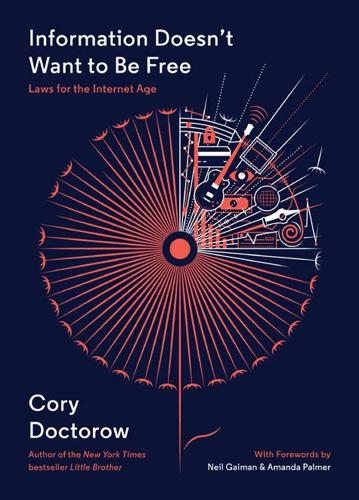
Information Doesn't Want to Be Free: Laws for the Internet Age
by
Cory Doctorow
,
Amanda Palmer
and
Neil Gaiman
Published 18 Nov 2014
The reason the deal is nonnegotiable is that it is industry-wide. There are only three major record labels, and they all offer the same rotten terms to their new artists. When you’re the only game in town, you get to make up the rules, and tilt them to your benefit. It’s a little like the old Lily Tomlin bit from Saturday Night Live: “So, the next time you complain about your phone service, why don’t you try using two Dixie cups with a string? We don’t care. We don’t have to. We’re the Phone Company.” Even for very successful artists, a new contract negotiation was always bounded by the “two Dixie cups and a string” ultimatum.
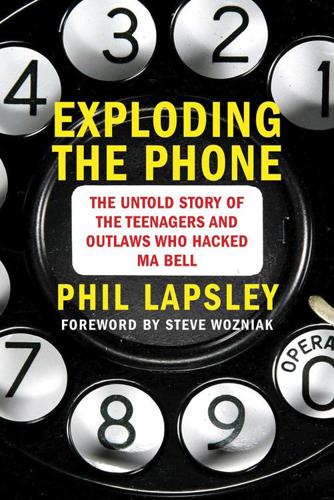
Exploding the Phone: The Untold Story of the Teenagers and Outlaws Who Hacked Ma Bell
by
Phil Lapsley
Published 5 Feb 2013
Telephone operators in Southern California made Tomlin an honorary operator and presented her with a trophy, the Cracked Bell Award. “They love the character, Ernestine, but they said the phone company is a little uptight,” Tomlin told newspapers at the time. A few years later, in a fake television commercial shown on Saturday Night Live, Ernestine captured the telephone company’s perceived incompetence—“You see, the phone system consists of a multibillion-dollar matrix of space-age technology that is so sophisticated even we can’t handle it”—and immortalized its perceived arrogance with the motto “We don’t care. We don’t have to.
…
Covey, “The Bell System’s Best Sellers,” Bell Telephone Magazine, Summer 1952, p. 88 <db1027>. 191 “Sweeping, General”: “Sweeping, General,” Bell System Practice 770-130-301, August 1952, available from http://long-lines.net/documents/BSP-770-130-301/BSP-770-130-301-p1.html. 191 “robotic man in a three piece suit”: Irv Slifkin, Videohound’s Groovy Movies: Far Out Films of the Psychedelic Era (Canton, MI: Visible Ink Press, 2004), pp. 52–54. 191 “find it hard to fault”: Maurice Rapf, “Bright Debut by Slapstick Satirists,” Life, January 26, 1968, p. 8. 191 “If we do not receive payment”: Lily Tomlin, This Is a Recording, Polydor Records, 1971. 192 “They love the character”: Gene Handsaker (AP), “Gal on Laugh-In Talks Spontaneously,” Kentucky New Era, February 3, 1970, p. 9. 192 “We don’t care. We don’t have to.”: Lily Tomlin on Saturday Night Live, season 2, episode 1, September 18, 1976. See http://snltranscripts.jt.org/76/76aphonecompany.phtml. 192 telephone excise tax: Louis Allen Talley, “Telephone Excise Tax,” Congressional Research Service Report for Congress, RS20119, September 15, 2000. The tax was largely gutted in 2006; see “U.S. to Repeal Long-Distance Telephone Tax,” New York Times, May 26, 2006. 192 $1.5 billion, 10 percent: “Telephone Excise Tax Receipts 1899–2005,” Tax Policy Center, at http://www.taxpolicycenter.org/taxfacts/Content/PDF/telephone.PDF.

Red November: Inside the Secret U.S.-Soviet Submarine War
by
W. Craig Reed
Published 3 May 2010
Olaf said that was admirable but encouraged me not to volunteer for submarines. As an outdoors-man, the very thought of living in a sewer pipe made him cringe. Ignoring Olaf’s admonition, I volunteered for submarines and began my adventure on October 21, 1975, ten days after watching the first episode of Saturday Night Live, with George Carlin hosting. That night I stepped off a bus and walked through the gates of the Naval Training Center in San Diego. The navy stripped me of my clothes and ego and over the next eight weeks molded me into a sailor. After boot camp and six weeks of basic electronics school, I crossed the country to complete submarine school and almost eighteen months of fire-control-technician weapons-systems training at the submarine base in Groton, Connecticut.
…
J., 44–45 Rozier, Charles, 159, 161–64 Rule, James, 319–22, 324, 328–31, 372n Rules of engagement, 70–71, 76, 93, 102, 128, 129, 150, 152 Rusk, Dean, 62, 102, 148 Rutherford, Mark, 231–33, 247–48, 249, 256, 261, 263, 283–86 Rybachiy Naval Base, 205 Rybalko, Galena, 61 Rybalko, Leonid, 57–61, 68, 70–71, 82 Rybalko, Natasha, 61 Safety of submarines, 187–88 Safford, Laurance F., 45 Sanders, Royden, Jr., 141–42 Sanders Associates, 141–46, 189–90, 209 San Diego Naval Training Center, 265 San Francisco Giants, 100 Santa Fe Springs High School, 234 Saparov, V. G., 75, 84–86, 96, 99, 110–14, 164, 166–67 Sargasso Sea, 61, 65, 93–100, 108 Satellite communications, 341–42 Saturation diving, 229–30, 237–51 training, 237, 242–45 Saturday Night Live (TV program), 265 Savitsky, Vitali, 70–77, 107, 125, 149–56, 158–59 Saxon, Ross “Zipperhead,” 233, 237, 238 Sayda Bay, 65–68, 88, 115, 176 SBD radios, 61, 93–94, 133–34, 206, 357n SC–35, 201–2 Scali, John, 147–48, 156 Schade, Arnold F., 212 Schlesinger, James R., 227 Scorpion, USS, 62–63, 212–14, 235, 279–80 Scratchy (bear), 23–26, 34 Seadragon, USS, 180 SeaLab, 229 SEALs, 234, 296–99, 338–39, 340 Sea of Okhotsk, cable–tapping missions, 228–31, 233–34, 238, 245–51, 287–89, 291–93, 319, 324–27, 332–36 Sea Robin, USS, 180 Sea Scope, 223 Seawolf, USS, 13–15, 282–89, 291, 319–31 cable–tapping missions, 248–51, 287–89, 324–27 sand–stuck ordeal, 325–31 Seawolf–class submarines, 13–14, 193, 338–39, 375n Sequoia, USS, 236 Sevastopol, 11–12, 52 Sevastopol, 259–60 Shackleton aircraft, 85–86 Shaddock, 193 Shakespeare, William, 282 Shchuka, 301 Sheets, Mack, 354n Ships Inertial Navigation System (SINS), 328 Ship submersible nuclear (SSN), 8–10 Shkval, 86, 115 Shot lines, 158 Shumkov, Nikolai, 60, 65, 69–77, 107, 130–34, 164–68, 172, 175 Signal intelligence (SIGINT), 5 Signal–to–Noise Enhancement Program (SNEP), 353n Situation report (SITREP), 117 Sizov, F.
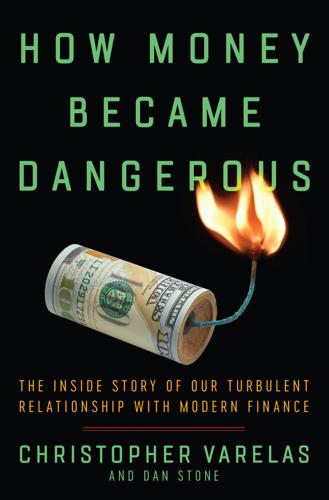
How Money Became Dangerous
by
Christopher Varelas
Published 15 Oct 2019
At the risk of sounding ridiculous, compared to today’s amateurs-turned-stars, Knoxville is an old-school traditionalist. He paid his dues, first pitching stories and video ideas to Big Brother magazine, then developing the concept for television, eventually selecting MTV after a bidding war that included Comedy Central and Saturday Night Live. Success used to be achieved through hard work, perseverance, talent, and, sure, some measure of luck. The goal for many young people these days is to skip the line, hack the system, and gain maximum success while paying minimum dues. And that creates a sense of entitlement to the other line, along with resentment when you don’t reach the other line with ease.
…
Filter, 162–63, 168, 170, 172, 174, 175 Quattrone, Frank, 263, 274 Qwest, 212 Reagan, Ronald, 317 Recession, Great, see Great Recession Reed, John, 189, 208 regulations, simplicity of, 367–68 retirement: saving for, 370 see also pension systems review processes, 364–65 Richards, Ann, 1 Rigoli, Andy, 236–41 Ripley, William Zebina, 74 Roberts, Julia, 98, 100–102, 106 Roche, Jim, 113–14 roll-up companies, 153, 167 Ross, Diana, 94 Rowan, Marc, 165 Rowland, Frank Sherwood, 99 Rubenstein, Adam, 220–21 Rubin, Bob, 195 Ruiz, Pedro, III, 303–4 Russell, Bertrand, 248 Russia, 303 Salomon, Arthur, 50 Salomon, Billy, 51, 58–59, 64, 68 Salomon, Ferdinand, 50 Salomon, Herbert, 50 Salomon, Percy, 50 Salomon Brothers, 44–80, 97, 237 analyst staffing at, 131 author at, 5, 44–50, 54, 55, 59–62, 64–66, 70–74, 76–80, 90–91, 94, 95, 101, 114, 115, 118–24, 126–36, 145–46, 148, 149, 156–83, 195–207, 229, 236, 248–59, 265–70, 277, 284, 286, 314–15, 323–28, 330–35 author’s sister at, 134–36, 259 bond market and, 50–51 bonuses at, 64, 248–51, 253–59, 262–63 Buffett and, 68, 75–76, 262–63 Citi and, 195–98 culture at, 52, 61–62, 75, 206, 215 diversity at, 47, 60 Equinix and, 241 F9 mistake and, 127 “Fortune Cookie Meeting” at, 120–23, 126 founding of, 50 golf outings of, 134–36, 259 Gutfreund at, 57–60, 63, 67–68 image consciousness at, 145 investment banking department of, 114–15, 126–27 IPO spinning and, 199–200, 210, 212 Lucent and, 190, 195, 200–202 luncheon events of, 114 M&A department of, 116, 118, 119, 128–29, 131, 180, 190, 195, 199, 200, 229, 259 as meritocracy, 60–61 Meriwether at, 57, 59, 60, 62–64, 66–68, 76 Mestre at, 119–23, 136, 138, 145–46 Mozer at, 55–58, 62, 64, 67–69, 72, 74–76, 262 Northrop and, 113, 118–19, 125 Northrop-Grumman negotiations and, 119–24, 136–38, 142–43, 145–46 Orange County and, 314–15, 323–28, 330–35 Papa at, 128–30 as private partnership, 51, 63–64, 75, 76 recruitment cocktail party of, 78–80 risk taking at, 53 SmarTalk and, 221–22 Soenen at, 115–18, 131–35, 259 Soenen’s relationship troubles and, 138–43 transition to public corporation, 52, 55, 59, 64, 68, 75, 76 Travelers’ acquisition of, 253 Treasury bond scandal at, 55–58, 62, 64, 67, 72, 74–76, 262 U.S. Filter and, 157–83 weekend work policies of, 202–3 Weill’s purchase of, 188 Wittig at, 116–18, 135, 259 Salton Sea, 162 San Francisco Chronicle, 188 Saturday Night Live, 302 Schotz, Jon, 332 Schwab, Charles, 74 Schwarzenegger, Arnold, 159 Score, 231 Seagram’s, 169 Securities and Exchange Commission (SEC), 58, 125, 195, 324 Seidel, Andy, 158–61, 164, 167, 170, 174–75, 179, 181–82 selfies, 303 Sephora, 292 September 11 terrorist attacks, 176, 235–36 shareholder value, 103, 360 Shearson Loeb Rhoades, 188 “Shooting an Elephant” (Orwell), 184, 210 Siemens, 182 Silicon Valley, 219, 234, 237, 244, 253, 277, 306–8 ICOs in, 245–46 IPOs in, 228–29 Silva, Anthony, 346–47, 350 Simpson, O.
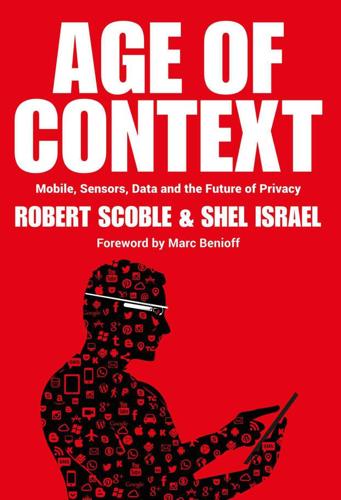
Age of Context: Mobile, Sensors, Data and the Future of Privacy
by
Robert Scoble
and
Shel Israel
Published 4 Sep 2013
The wide, right-hand stem serves as a touchpad. This is where you tap or slide your fingers to give commands or scroll through content. Due to battery limitations, the device always defaults to “off.” To wake it, you blink, press a small button or tilt your head back. The tilting gesture is a bit odd to behold. A Saturday Night Live skit had a field day mocking this feature. We think most people will stick to taps and blinks. Two magic words bring Glass to life: “OK Glass…” cues it that a voice command such as “take a picture” is coming. The microphone is intentionally pointed inward. Glass is not great for conducting interviews or recording an eavesdropped conversation.

Grand: A Memoir
by
Sara Schaefer
Published 10 Aug 2020
So, when Boyfriend decided he wanted to quit grad school and try novel writing, we hatched a plan with a friend from college to move to New York City. Caitlyn, a fellow member of our sketch comedy group at William & Mary, would pursue comedy with me, as a duo of sorts. She had a connection to a Saturday Night Live cast member, so this was going to be pretty simple: move to Brooklyn, take an improv class or two, achieve darling status, and both become famous comedians within a year. I got a day job as a financial researcher for a law firm to pay the bills, but immediately trouble brewed with Caitlyn, who lived with Boyfriend and me.
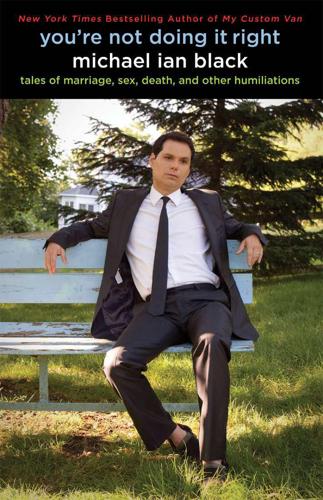
You're Not Doing It Right: Tales of Marriage, Sex, Death, and Other Humiliations
by
Michael Ian Black
Published 28 Feb 2012
She grew up in Minnesota, started college there, spent a year in Paris, came home broke, worked to save money, transferred to a college in Washington, D.C., and finally graduated the previous spring. Now she’s in New York and living with her boyfriend, Christopher, who is a (self-important, phony asshole) great guy. In fact, I’d probably like him a lot, she tells me. I’m sure I would. One night, a friend invites me to a party for Saturday Night Live at one of those posh New York restaurants where nobody in New York actually eats. When we arrive, I station myself near the kitchen door to catch each waiter on his way out so I get first dibs on the yummy little meaty things on sticks. I take many. From my satellite position on the fringes, I notice that the party seems to radiate outward from a roped-off area where I am not allowed to go.

What If We Get It Right?: Visions of Climate Futures
by
Ayana Elizabeth Johnson
Published 17 Sep 2024
This is not to say that everything should be jokes and memes. There’s no one right way, one proper tone, for communicating about climate. We need all manner of compelling creations to reach all types of folks…funny, dire, hopeful or all of the above. Adam’s illustrious career started with improv comedy and then years as head writer for Saturday Night Live before he made movies including Anchorman, Vice, and The Big Short, and co-created Funny or Die. I met Adam at a screening for his film Don’t Look Up, which is essentially a climate movie posing as a satirical comet-disaster movie. I remember sitting tensely in the audience, relating all too well to the disregarded scientist characters who were trying to warn the government and public.
…
Abbie has litigated precedent-setting cases that have held polluters accountable and cleared the way for clean energy nationally. • earthjustice.org Adam McKay is an Academy Award–winning writer, director, and producer of films including Don’t Look Up, The Big Short, Vice, and Anchorman. He is an executive producer of TV shows, including Succession, was head writer at Saturday Night Live, founded Yellow Dot Studios, and is on the board of Climate Emergency Fund, where he works to get much-needed funds and resources into the hands of climate activists committed to civil disobedience. • yellowdotstudios.com Ayisha Siddiqa is a Pakistani human rights and climate defender, co-founder of Fossil Free University, and climate advisor to the UN Secretary-General.

The Gods of New York: Egotists, Idealists, Opportunists, and the Birth of the Modern City: 1986-1990
by
Jonathan Mahler
Published 11 Aug 2025
Over the course of his first two terms, he’d become a national celebrity. He’d graced the cover of Time magazine; played a bagel-eating cabdriver in an early VH1 music video; made cameos in All My Children and The Muppets Take Manhattan; and delivered a straight-from-the-Borscht-Belt monologue on Saturday Night Live. Penthouse depicted him in a caricature as King Kong, perched (nearly nude) atop the Empire State Building. Through it all, he was that rare politician who somehow became more human, more real, even as he grew larger-than-life. In the middle of his second term, Koch published a score-settling memoir, Mayor, in which he gleefully denounced the “radicals,” “elitists,” “ideologues,” and all the other “wackos” and “phonies” who had dared to challenge him over the years.
…
Lee was at the center of the Fort Greene scene, a neighborhood fixture who rode his ten-speed everywhere and threw epic parties he called “sneaker jams.” He was entrepreneurial and outspoken, criticizing Steven Spielberg’s adaptation of The Color Purple—“he knows nothing about Black people”—and directing music videos, commercials, and short films for MTV, HBO, and Saturday Night Live. Earlier in 1987, he had directed and co-starred in his first Air Jordan commercial for Nike. It was shot in black-and-white, and began with a close-up of Lee—playing his Mars Blackmon character—hanging on a rim, proclaiming himself to be the best player in the game. The camera gradually pulls back to reveal that he is standing on the shoulders of Michael Jordan, who soon leaves him hanging there before returning to dunk a ball in his face.
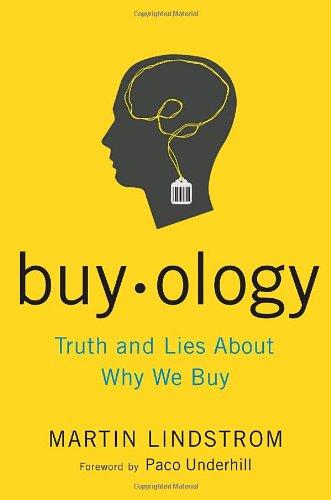
Buyology
by
Martin Lindstrom
Published 14 Jul 2008
But that’s not what’s most bizarre about him. To advertise the blenders, he has created a series of short videos, available on the Blendtec Blender Web site (which have migrated virally over to YouTube), which open with the question “Will it blend?”—a concept likely borrowed from Dan Aykroyd’s famous Saturday Night Live skit, in which he used a blender to pulverize a sea bass. As viewers look on saucer-eyed, Tom Dickson proceeds to grind, chop, mash, mince, puree, and annihilate a series of objects inside his kitchen blender. Bic lighters. A tiki torch. A length of garden hose. Three hockey pucks. Even an Apple iPhone.
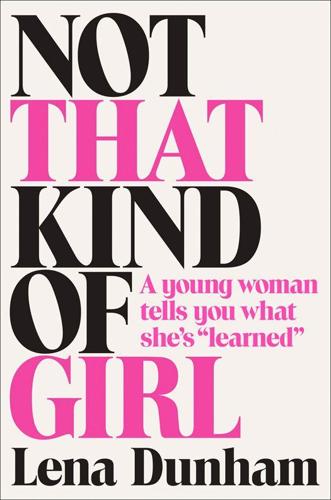
Not That Kind of Girl: A Young Woman Tells You What She's "Learned"
by
Lena Dunham
Published 28 Sep 2014
“You don’t owe everybody a crash pad,” my father said. They didn’t get it. They didn’t get any of it. Hadn’t they ever felt alone before? I remembered seventh grade, when my friend Natalie and I started sleeping in her TV room on Friday and Saturday nights, every weekend. We would watch Comedy Central or Saturday Night Live and eat cold pizza until one or two, pass out on the foldout couch, then awake at dawn to see her older sister Holly and her albino boyfriend sneaking into her bedroom. This went on for a few months, reliable and blissful and oddly domestic, our routine as set as any eighty-year-old couple’s.
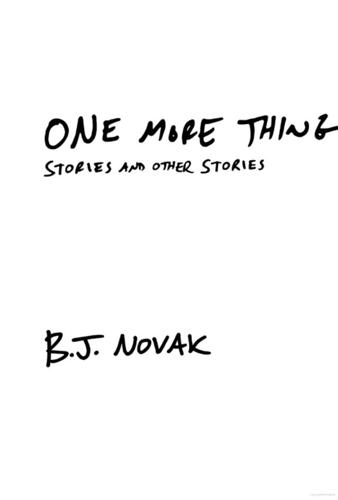
One More Thing: Stories and Other Stories
by
B. J. Novak
Published 4 Feb 2014
Does that make any sense? It’s so stupid. And I have this fantasy”—she started crying again—“this stupid fantasy … I don’t know.” And she kept crying, louder and louder. “Hey,” I said. “It’s going to be okay. Come with me. Let’s go somewhere.” And this was the moment—as everyone knows by now, and as Saturday Night Live has made famous—that I decided to return the first artificially intelligent being capable of love, which is why you heard about me, and which is what set in motion the events that led to where everything is now. Sophia waited in the car outside Practical Concepts. Inside, Derek asked me a number of questions about why I wasn’t satisfied with Sophia.
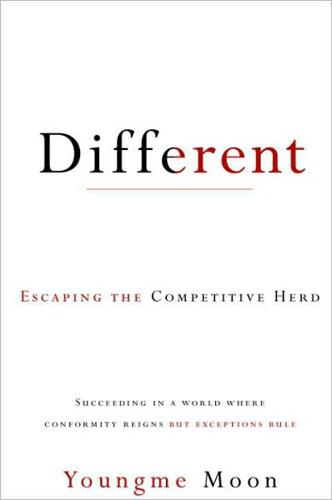
Different: Escaping the Competitive Herd
by
Youngme Moon
Published 5 Apr 2010
For things: solids, liquids, gases. For colors: blue, red, green. And so on. And if it just so happens that we encounter something that we are unable to peg—say, a passerby with indeterminate gender—the ambiguity has the potential to stop us in our tracks: Hey, was that a man or a woman? It’s like that old Saturday Night Live sketch featuring Julia Sweeney as the androgynous “Pat;” we have trouble moving forward until we get the basic definitions sorted out. And yet here is the thing. When it comes to the physical sciences, our categorizations tend to be, for the most part, rigorous and objective; they reflect innate differences between solids and liquids, or between protons and neutrons.
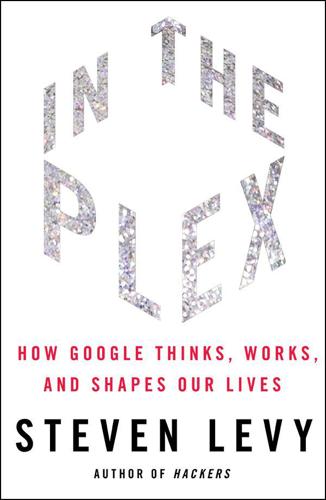
In the Plex: How Google Thinks, Works, and Shapes Our Lives
by
Steven Levy
Published 12 Apr 2011
In contrast, YouTube was dead simple: everything was free, you could find clips from just about anything, and it played inside your browser. God knows where its users had gotten access to some of the stuff they put up there, but because of the company’s lax policy of policing its archives, YouTube managed to have just about anything you were looking for. YouTube users had uploaded a popular clip from Saturday Night Live called “Lazy Sunday,” which became a phenomenon—5 million people streamed it until NBC demanded that YouTube remove the clip seven weeks after its appearance. The clip jacked up YouTube’s traffic by 83 percent. Later, it was cited as the event that restored luster to the aging SNL. Content providers were confused about how to deal with YouTube, but they were beginning to realize that its popularity made it impossible to ignore.
…
“I would say we were not executing well in the social space in general,” said Google VP Bradley Horowitz. “We had a bunch of different projects, but we didn’t have a coordinated goal that was going to get us in the conversation.” In early 2009, Horowitz’s team began work on yet another new product that, Horowitz predicted, “would blow Twitter away.” Its code name was Taco Town, named after a Saturday Night Live parody of a Taco Bell commercial where a tortilla-covered snack is increasingly, and absurdly, slathered with more food. (“And it gets even awesomer when we take a deep-fried gordita shell, smear on a little of our special ‘guacamolito’ sauce, and wrap that around the outside!”) That reflected Googlers’ judgment of the Internet’s current social strategy: big, messy layers of greasy, unwholesome stuff whose caloric volume tried to compensate for satisfying essence.
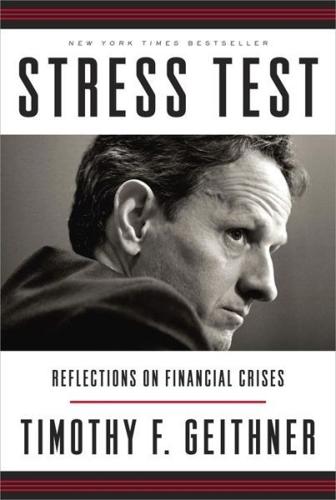
Stress Test: Reflections on Financial Crises
by
Timothy F. Geithner
Published 11 May 2014
“I heard Larry Kudlow say: ‘Geithner was really kind of a disaster,’ ” he said. “Mr. Secretary, that was among the nicer comments I heard from Larry Kudlow.” Kudlow was not an outlier. I didn’t read the reviews at the time, but the phrase “deer in the headlights” appeared in a lot of them. An actor playing me opened Saturday Night Live by announcing that my solution to the crisis was to give $420 billion to the first caller with a solution to the crisis. The substantive critiques were just as withering. “Someone should have told Treasury Secretary Timothy Geithner that the one thing to avoid at a time of uncertainty is raising more questions,” the New York Times editorial board declared.
…
Bridgewater’s positive assessment soon became the consensus view in the markets. Source: Bridgewater. I wasn’t dancing in the end zone, but that was a good day for the home team. NINE Getting Better, Feeling Worse Most Americans never heard about the stress test, and for many of those who did, it sounded like another Washington joke. Saturday Night Live had a field day with it, having an actor playing me open the show by earnestly announcing that we had given every bank a passing grade, since we didn’t want to “unfairly stigmatize banks who scored low on the test because they followed reckless lending practices or were otherwise not good at banking.”

Delivering Happiness: A Path to Profits, Passion, and Purpose
by
Tony Hsieh
Published 6 Jun 2010
As part of the paperwork we cover, one deals with the expectations for the four-week new hire class—which are essentially a list of reasons a person might get fired in those first weeks. Talk about a buzz kill on the first day. Yes, the information is important and needs to be shared, but how do we do it in a Zappos way? Thanks to two loyal Saturday Night Live watchers on my team, we decided to “steal” a few well-known and loved characters from the show and perform skits to convey the information but in a very over-the-top and funny way. There are many more examples I could give but suffice it to say that five years later, when I look at my team and what we have done at Zappos, I am so very proud and so very fulfilled in our work.

Frommer's New York City Day by Day
by
Hilary Davidson
Published 6 Jan 2006
/Times Square. 5 ★ Rockefeller Center and NBC Studios. This 1930s Art Deco wonder is a vision from the outside, but the tour of NBC studios will give you an up-close perspective on some of the shows filmed within. Starting at the NBC History Theater—which covers the network’s early radio days—the tour takes you to the studio where Saturday Night Live has been filmed since 1975, as well as to the studio homes of Late Night With Conan O’Brien, Dateline, and NBC Sports. As you listen to the NBC page conducting your tour, keep in mind that Regis Philbin, Ted Koppel, and Kate Jackson all started out as pages here. If you get here on a weekday between 7 and 10am, you can join the big outdoor party that watches the taping of the Today show.
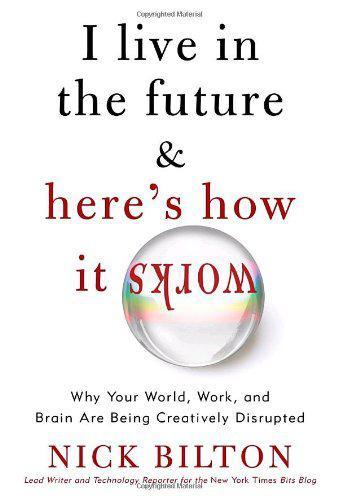
I Live in the Future & Here's How It Works: Why Your World, Work, and Brain Are Being Creatively Disrupted
by
Nick Bilton
Published 13 Sep 2010
My reliance on—and participation in—social networks and the anchoring community they provide hastened my transition from cable TV to a computer hooked up to my TV, from a landline for a telephone to an all-mobile household, and from print books and newspapers to digital readers. I moved to the new systems because I want everything I encounter and take in to be shareable, amendable, and receivable. It’s not about watching Saturday Night Live on cable TV versus watching it online; it’s that the people I share information with will cut the best clips out of the latest episode and share them with me. In the same respect, I don’t want to be like my grandmother and clip articles from the paper and mail them; rather, I want to share the two or three interesting articles I find on nytimes.com each day electronically with everyone who shares news with me.

You'll Grow Out of It
by
Jessi Klein
Published 11 Jul 2016
My mother was an English teacher who patiently taught me where to put my periods and commas, and my father, who loves books more than anyone I know, taught me from an early age that books are precious and should be handled gently, “like butterflies.” This butterfly exists because of, and for, them. About the Author Jessi Klein is the Emmy- and Peabody Award–winning head writer and an executive producer of Comedy Central’s critically acclaimed series Inside Amy Schumer. She’s also written for Amazon’s Transparent as well as Saturday Night Live. She has been featured on the popular storytelling series The Moth, and has been a regular panelist on NPR’s Wait Wait…Don’t Tell Me! She’s been published in Esquire and Cosmopolitan, and has had her own half-hour Comedy Central stand-up special. Thank you for buying this ebook, published by Hachette Digital.
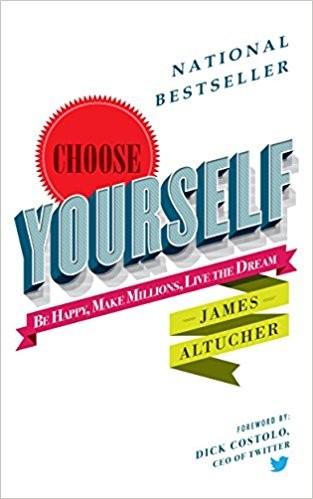
Choose Yourself!
by
James Altucher
Published 14 Sep 2013
Come up with ten ideas on how you can escape the trap of the degree and demonstrate you still have value. Ideas for the company you want to work for, or the person you want to work with. Or just go get a camera and start making movies without a film degree. When actor Andy Samberg was starting at Saturday Night Live he didn’t just huddle in the writers’ room with everyone else and try to come up with jokes. There was too much competition! Instead, he took a camera and with his buddies Jorm and Akiva went out and shot “Lazy Sunday,” which was the first YouTube video to get over 100 million views and became his first SNL digital short.

When You Find Out the World Is Against You: And Other Funny Memories About Awful Moments
by
Kelly Oxford
Published 17 Apr 2017
“Cool, I have a cabin here but I’m from Edmonton.” “Edmonton, weeeelllll,” Adam whined in a lady voice. Tim laughed. “Oh la, la, Edmonton and a cabin! Isn’t that speeecial!” Adam held his hands effeminately under his chin. “Oh!” I laughed, stopping short of him and kicking at some dandelions. “The Church Lady. I love Saturday Night Live. Isn’t she speeeeeecial.” I laughed. “Great for you,” Adam suddenly said, cold again . . . Man, Adam was hard to read. “So where are you from, Adam?” “Bowden.” I laughed, hard enough that I bent slightly at the waist, and wide enough that I felt it necessary to cover my mouth (even though my teeth were straight).
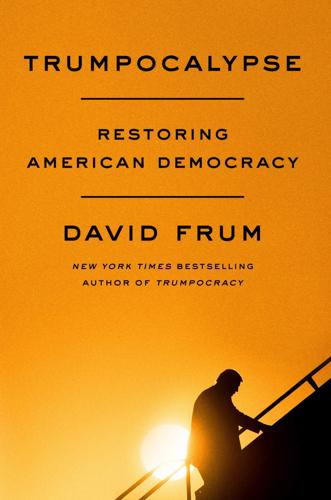
Trumpocalypse: Restoring American Democracy
by
David Frum
Published 25 May 2020
Among voters who approved of Trump’s performance, still only one in eight described him as “unpresidential.”29 Trump kept assuring himself that all was going well, that every bump in the road was the work of unfair media: @newtgingrich just stated that there has been no president since Abraham Lincoln who has been treated worse or more unfairly by the media than your favorite President, me! At the same time there has been no president who has accomplished more in his first two years in office!30 —January 19, 2019 Nothing funny about tired Saturday Night Live on Fake News NBC! Question is, how do the Networks get away with these total Republican hit jobs without retribution? Likewise for many other shows? Very unfair and should be looked into. This is the real Collusion!31 —February 17, 2019 93% Approval Rating in the Republican Party. 52% Approval Rating overall!
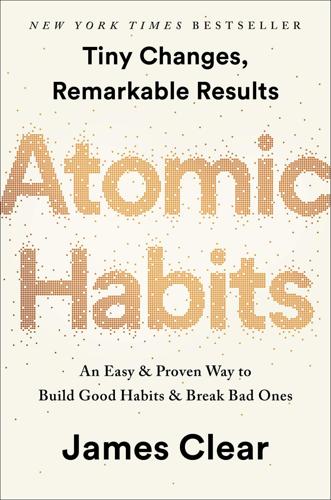
Atomic Habits: An Easy & Proven Way to Build Good Habits & Break Bad Ones
by
James Clear
Published 15 Oct 2018
He had to read three poems during the show just to make the routine long enough, but his skills continued to progress. He spent another decade experimenting, adjusting, and practicing. He took a job as a television writer and, gradually, he was able to land his own appearances on talk shows. By the mid-1970s, he had worked his way into being a regular guest on The Tonight Show and Saturday Night Live. Finally, after nearly fifteen years of work, the young man rose to fame. He toured sixty cities in sixty-three days. Then seventy-two cities in eighty days. Then eighty-five cities in ninety days. He had 18,695 people attend one show in Ohio. Another 45,000 tickets were sold for his three-day show in New York.
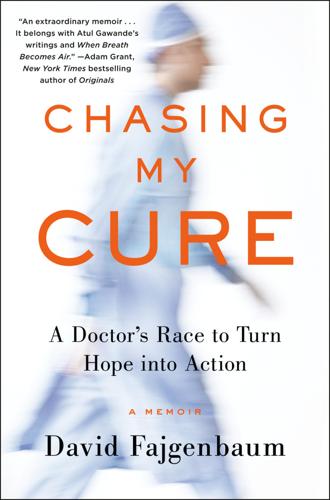
Chasing My Cure: A Doctor's Race to Turn Hope Into Action; A Memoir
by
David Fajgenbaum
Published 9 Sep 2019
It was late November now, so my dad cooked Thanksgiving dinner and brought it to my bedside. I had had my feeding tube removed, so my sisters, dad, several family friends, and I ate a feast together. It was my first real meal in weeks, and I got to feel normal for an afternoon. After the meal my sisters and I watched Borat and Saturday Night Live clips on YouTube and laughed and talked about absolutely nothing important. The next morning, I got to work from my hospital room. UPTODATE IS THE top online resource that doctors use to collect and access all the latest knowledge on any number of subjects, including diseases and treatments.
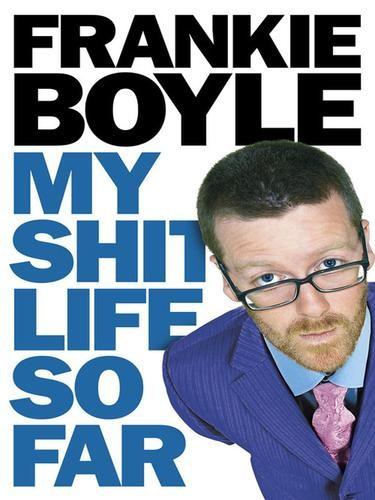
My Shit Life So Far
by
Frankie Boyle
Published 30 Sep 2009
Imagine nowadays if you were only happy with your gig if you’d made someone spit their drink out, or made milk shoot out of their nose. If a joke worked with one girl I’d keep it and maybe add something for the next one—working a little bit like a real comedian and driven by horniness. Actually, exactly like a real comedian. I was really into The Comic Strip Presents when it was on Channel 4 and Saturday Night Live. I seemed to be the only person in school who watched any of that stuff. It’s easy to forget that while alternative comedy is now the mainstream, at the time it was a real minority interest. It was watching Ben Elton that first made me aware of green issues. People give him a lot of stick now because he wrote some Queen musical that causes cancer, but I think he did a really good job of introducing green politics to a generation.
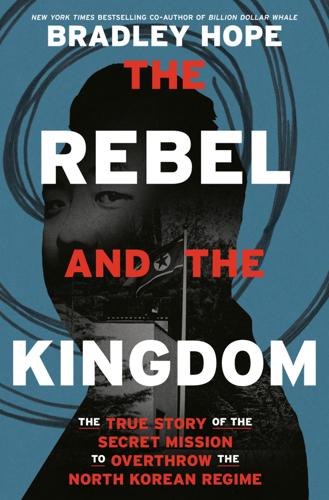
The Rebel and the Kingdom: The True Story of the Secret Mission to Overthrow the North Korean Regime
by
Bradley Hope
Published 1 Nov 2022
Weeks before the release, a group of hackers calling themselves Guardians of Peace, which the U.S. government later said were North Korean operatives, hacked into Sony’s systems, leaking embarrassing information about executives and destroying some of the company’s IT systems. Adrian penned an article in The Atlantic excoriating the movie and its premise, which traded in similar stereotypes to other famous spoofs of the North Korean regime on Saturday Night Live and the infamous Team America: World Police, which Adrian said were replete with “cheap and sometimes racism-tinged jokes.” “This film is not an act of courage,” he wrote. “It is not a stand against totalitarianism, concentration camps, mass starvation, or state-sponsored terror.” Adrian argued that the notion of a film striking the same tone about “Islamic state slavers” or “genocidaires in the Central African Republic” was inconceivable.
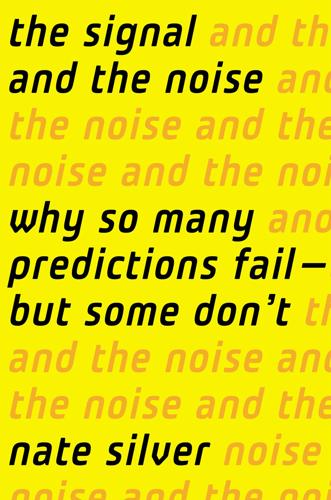
The Signal and the Noise: Why So Many Predictions Fail-But Some Don't
by
Nate Silver
Published 31 Aug 2012
It’s exactly when we think we have overcome the flaws in our judgment that something as powerful as the American economy can be brought to a screeching halt. 2 ARE YOU SMARTER THAN A TELEVISION PUNDIT? For many people, political prediction is synonymous with the television program The McLaughlin Group, a political roundtable that has been broadcast continually each Sunday since 1982 and parodied by Saturday Night Live for nearly as long. The show, hosted by John McLaughlin, a cantankerous octogenarian who ran a failed bid for the United States Senate in 1970, treats political punditry as sport, cycling through four or five subjects in the half hour, with McLaughlin barking at his panelists for answers on subjects from Australian politics to the prospects for extraterrestrial intelligence.
…
If they suddenly had to produce a vaccine that guarded against H1N1—and particularly if they were going to produce enough of it for the entire nation—they would need to get started immediately. Meanwhile, Ford was struggling to overcome a public perception that he was slow-witted and unsure of himself—an impression that grew more entrenched every weekend with Chevy Chase’s bumbling-and-stumbling caricature of him on NBC’s new hit show, Saturday Night Live. So Ford took the resolute step of asking Congress to authorize some 200 million doses of vaccine, and ordered a mass vaccination program, the first the country had seen since Jonas Salk had developed the polio vaccine in the 1950s. The press portrayed the mass vaccination program as a gamble.9 But Ford thought of it as a gamble between money and lives, and one that he was on the right side of.
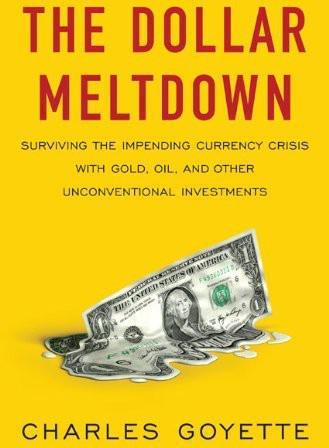
The Dollar Meltdown: Surviving the Coming Currency Crisis With Gold, Oil, and Other Unconventional Investments
by
Charles Goyette
Published 29 Oct 2009
What demands repeating of this obsession is that it is really not prices, which have no volition of their own, but parties to commercial transactions that are being controlled in this chronic busybody-ism. The government, deciding to favor one party against another, intrudes in mutually voluntary relationships to mandate prices. Sometimes governments set minimum prices or price floors. These encourage overproduction and result in gluts and waste. From Saturday Night Live many will remember comedian Chris Farley’s hilarious portrayal of the character Matt Foley, a motivational speaker who lived in a van down by the river, and subsisted by “eating a steady diet of government cheese.” That government cheese was the result of the glut produced by government price interference.
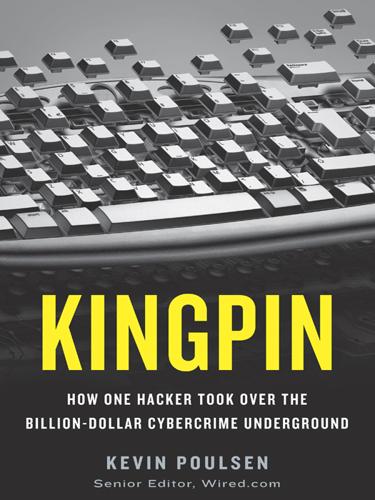
Kingpin: How One Hacker Took Over the Billion-Dollar Cybercrime Underground
by
Kevin Poulsen
Published 22 Feb 2011
When he returned to Pittsburgh on October 7, Mularski had written approval to acquire DarkMarket. Iceman was still listed as a subject of the undercover operation, but now JiLsi and DarkMarket’s other leaders were the primary targets. Once his wife went to bed, Mularski settled in front of his couch, turned on Saturday Night Live, and looked for JiLsi on ICQ. After some pleasantries, he got down to business. DarkMarket was under yet another DDoS attack, and Mularski, as Master Splyntr, was ready to take the site onto a secure server—JiLsi need only say the word, and his problems with Iceman would be history. JiLsi had some reservations.
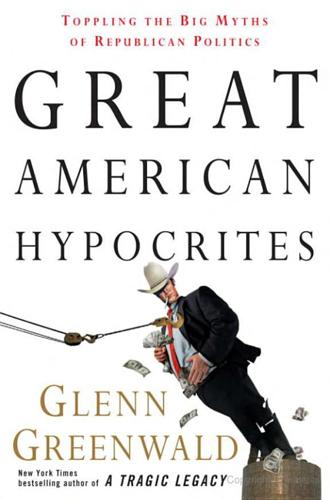
Great American Hypocrites: Toppling the Big Myths of Republican Politics
by
Glenn Greenwald
Published 14 Apr 2008
That was the first thing that came to mind for me. And it just shows you how high a mountain these Democrats are going to have to climb. You compare that image, which everybody across the world saw, with this debate last night where you have nine people on a stage and it doesn’t air until 11:30 at night, up against Saturday Night Live, and you see what a major, major struggle the Democrats are going to have to try and beat a popular incumbent president. Brit Hume hailed Bush’s courage in undertaking this dangerous mission: But this was risky business. You know, there’s grease and oil on the decks of those aircraft carriers.
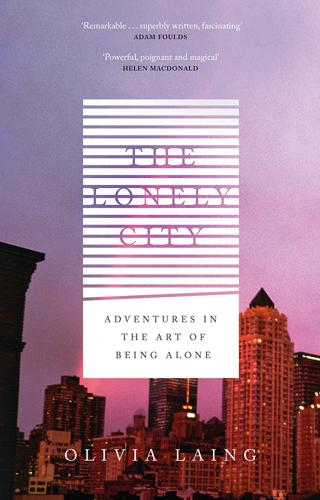
The Lonely City: Adventures in the Art of Being Alone
by
Olivia Laing
Published 1 Mar 2016
Nomi’s career exploded from that moment. At first, his shows were put together by a group of friends, who collaborated on writing songs, making videos and creating costumes, developing together the Nomi universe, the New Wave alien aesthetic. On 15 September 1979 he appeared with Arias as backing singers for David Bowie on Saturday Night Live, both dressed in robes by Thierry Mugler. There was an elaborate live show, growing crowds, a tour of America. Nomi wanted success, but he didn’t find it quite as fulfilling as he’d expected. According to the testimony of Andrew Horn’s affecting 2004 documentary, The Nomi Song, the alien act arose in part from a refined and hypermodern theatrical sensibility – that post-punk, Cold War infused infatuation with the apocalypse and outer space – and in part from a genuine sense of being freakishly other.
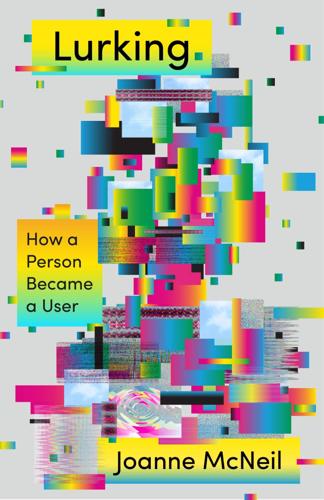
Lurking: How a Person Became a User
by
Joanne McNeil
Published 25 Feb 2020
A comment thread of this length and longevity is rare, and it is especially usual for a blog like Shiny Shiny. It was the flagship vertical of Shiny Media—a blog network that set out to be the Gawker Media of the UK—catering to a specific market: young women and gadgets (think a mixture of Tatler, CNet, and SkyMall, with a dash of the old Saturday Night Live skit “Chess for Girls”). Daily posts hyped anything Sony, Nokia, or Asus offered in metallic pink (Shiny! Shiny!). Featured products were bedazzled, bright, and celebrity-endorsed (“Samsung + Lily Allen = a netbook that looks like Victorian Wallpaper”). Acknowledging that women used gadgets and hiring them to write about them was better than nothing, but as Leach, the now former editor of Shiny Shiny, wondered back then—did the content have to be so bubbly, so baubly?
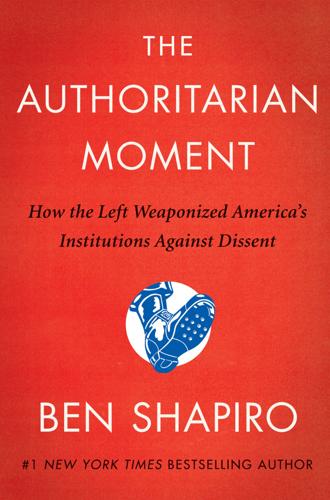
The Authoritarian Moment: How the Left Weaponized America's Institutions Against Dissent
by
Ben Shapiro
Published 26 Jul 2021
After Sarah Silverman, a radical leftist, revealed that she had lost a film role thanks to a blackface sketch from 2007 (again, the sketch was about racism faced by black Americans), she tore into cancel culture: “Without a path to redemption, when you take someone, you found a tweet they wrote seven years ago or a thing that they said, and you expose it and you say, ‘this person should be no more, banish them forever.’ . . . Do we want people to be changed? Or do we want them to stay the same to freeze in a moment we found on the internet from 12 years ago.”29 Dave Chappelle has slammed cancel culture, calling it “celebrity-hunting season.”30 Bill Burr ranted on Saturday Night Live, “You know, how stupid is that ‘canceled’ thing? They’re literally running out of people to cancel. They’re going after dead people now.”31 Rowan Atkinson recently and correctly compared the cancel culture to the “digital equivalent of the medieval mob, roaming the streets, looking for someone to burn.”
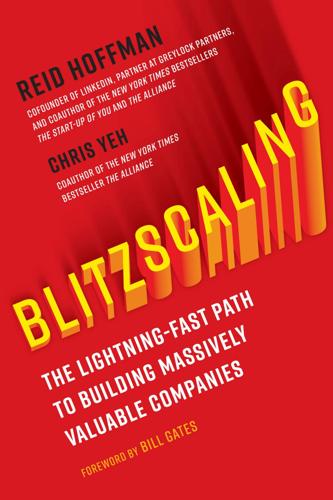
Blitzscaling: The Lightning-Fast Path to Building Massively Valuable Companies
by
Reid Hoffman
and
Chris Yeh
Published 14 Apr 2018
Netflix relied on the studios for its content (movies and TV shows), but the studios now saw online video companies like YouTube and Netflix as a threat. In response, they began to increase the price they demanded from Netflix for licensing their content and held back some of their “crown jewels” (e.g., massively popular content like Saturday Night Live) for themselves and Hulu (an industry joint venture). The logical conclusion was clear but daunting. Netflix needed to develop its own original content. Now the company had to climb what was perhaps its steepest learning curve yet, since it would be competing with Hollywood studios that had nearly a century of experience in their field.
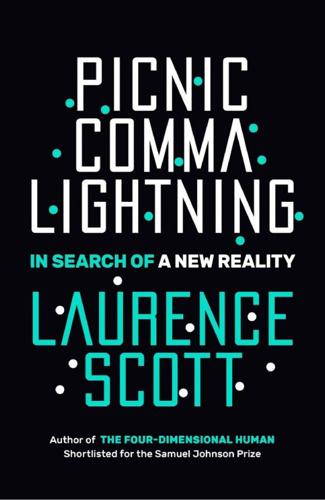
Picnic Comma Lightning: In Search of a New Reality
by
Laurence Scott
Published 11 Jul 2018
If you have any agency in these systems, it’s hard to disentangle yourself from this idea that you are somehow an accomplice to their effects. And so, amidst this growing sense of our mutual interdependence, the concept of complicity has begun to proliferate. Dictionary.com named ‘complicity’ the 2017 ‘Word of the Year’. To be complicit is to be involved in morally dubious activity. Interest in this concept spiked after a Saturday Night Live sketch in which Ivanka Trump, played by Scarlett Johansson, promoted a fictional perfume called ‘Complicit’. Later in the year, Arizona senator Jeff Flake resigned from his position because he ‘could not be complicit’ in Donald Trump’s governmental agendas. A major feature of our modern relationship with things is that they communicate to us ways in which we are complicit.
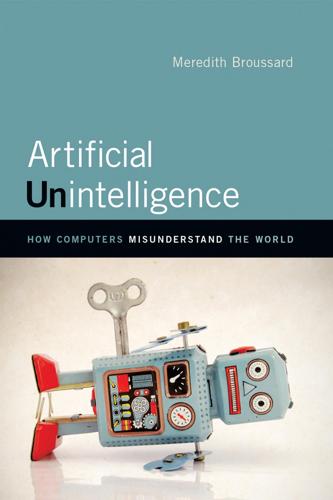
Artificial Unintelligence: How Computers Misunderstand the World
by
Meredith Broussard
Published 19 Apr 2018
Even though the directions clearly say to keep both hands on the wheel, he frequently bragged that he could take his hands off the wheel or just use one hand instead of two. He demonstrated some Easter eggs, jokes the programmers hid inside the code. He clicked six times on the steering wheel, and the display changed to show the rainbow road from Mario Kart. He showed a second Easter egg: the driver’s display dinged for “more cowbell,” a reference to a Saturday Night Live skit. I watched some promotional videos for Waymo. In one, the narrator claimed Waymo’s technology could “see” 360 degrees around the car, plus two football fields ahead. The shape of the car is optimized to allow field of view for the sensors. One major design feature, which isn’t yet perfected, is that the computer must withstand vibrations and heat fluctuations.
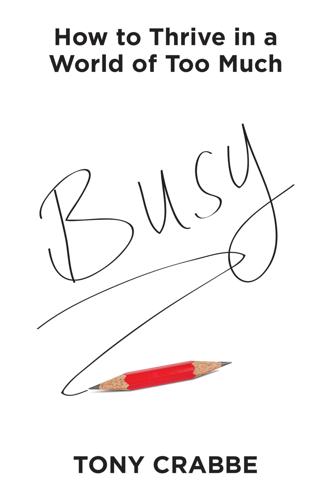
Busy
by
Tony Crabbe
Published 7 Jul 2015
Select the stuff that works and discard the stuff that doesn’t, and then vary things again. What aspect of your work isn’t working? What are three alternative, untried approaches? Try them and keep the most effective. Survive the Failures Chris Rock is one of the most successful comedians in the world today. He came to prominence performing on Saturday Night Live in the early 1990s, has appeared in a wide range of movies, and was voted the fifth greatest stand-up comic of all time by Comedy Central. Chris is constantly trying to come up with new jokes but, like most comedians, can’t accurately predict which ones will be funny and which will fail. To remain successful, he constantly tries out new material at small venues, where his reputation will survive a few bad jokes.8 The stories and jokes that work, that have been tried and tested, are the ones he successfully uses on the big stages.

Crushing It!: How Great Entrepreneurs Build Their Business and Influence—and How You Can, Too
by
Gary Vaynerchuk
Published 30 Jan 2018
Facebook 201 Facebook Live. Facebook has gone all in on Live, trying to give users a place to indulge in the raw, immediate experience of engaging directly with viewers in real time. It’s powerful stuff, but be aware that live video is the hardest art form. If you eliminate the news, sports, awards shows, and Saturday Night Live, there are very few live TV shows, and for good reason. It takes enormous skill to captivate an audience enough to disrupt their routine at the moment you want their attention. That’s a much bigger ask than trying to get people to watch you on their own time. And yet, the spontaneity can really work in your favor.
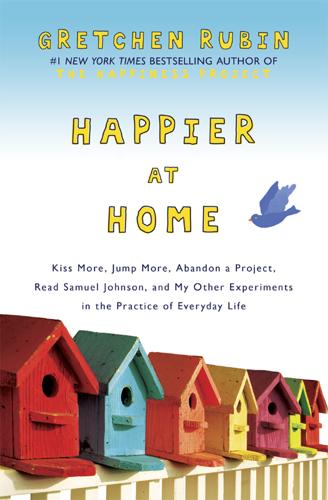
Happier at Home: Kiss More, Jump More, Abandon Self-Control, and My Other Experiments in Everyday Life
by
Gretchen Rubin
Published 3 Sep 2012
Then I chose the Asia Society, then Eliza chose Ripley’s Believe It or Not! (I took pictures of her amid the shrunken heads). Because of Eliza’s interest in video and commercials, I picked the Museum of Television and Radio; I’d expected them to have reels of the best old commercials, but they didn’t, so we ended up watching the Coneheads from Saturday Night Live. She picked a trip to Scribble Press, where she made her own set of illustrated greeting cards. I picked the Tiffany room in the Metropolitan Museum, to visit the stained-glass window Autumn Landscape and the Garden Landscape and Fountain that I loved. One afternoon, thrilled with her daring, Eliza chose Bloomingdale’s as our destination.
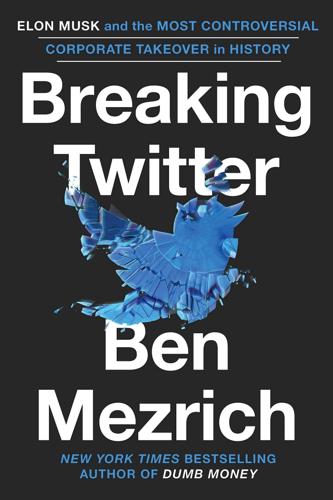
Breaking Twitter: Elon Musk and the Most Controversial Corporate Takeover in History
by
Ben Mezrich
Published 6 Nov 2023
No wonder Elon had chosen to blow off steam in a real-life dark corner, surrounded by eighteen thousand people who obviously had a sense of humor. Elon loved comedy, and the more puerile, the better. He’d promised to remove the w from Twitter’s name even before he’d taken over the company, and he’d even hosted Saturday Night Live in May 2021, when taking Twitter wasn’t even a passing thought in his mind. The reviews, as they usually did, tended negative, but the live audience had loved him, and why shouldn’t they? He’d been self-deprecating—telling the crowd he was on the spectrum—and up for anything, playing characters as diverse as Nintendo’s Wario and a Gen Z doctor.
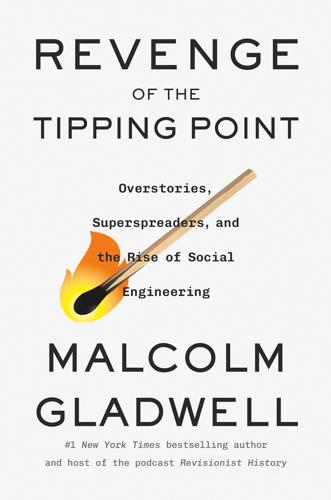
Revenge of the Tipping Point: Overstories, Superspreaders, and the Rise of Social Engineering
by
Malcolm Gladwell
Published 1 Oct 2024
Segelstein looked at the book, turned to Klein, and said, “Why don’t we do it?” And Klein replied, “We should.” Segelstein had a reddish beard and square, oversize glasses. He was chubby and irrepressible. He dressed in leisure suits with floral shirts, buttoned low. He had gotten his start in advertising. Once, early in the run of NBC’s Saturday Night Live, the show’s creator, Lorne Michaels, went to Segelstein and threatened to quit. Endless battles with his bosses over what he could and couldn’t do had left Michaels feeling frustrated and exhausted. Segelstein listened quietly. Then, in one of the great television rants, he told Michaels he wasn’t going anywhere: If you read your contract closely, it says that the show is to be ninety minutes in length.
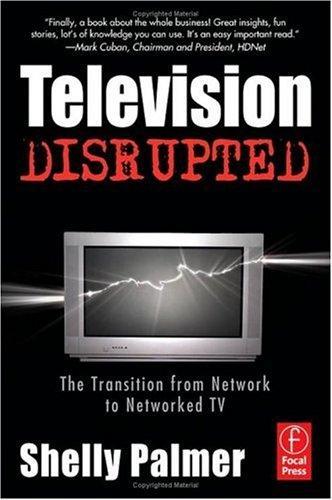
Television disrupted: the transition from network to networked TV
by
Shelly Palmer
Published 14 Apr 2006
137 When you are watching a program on a broadcast television network, why does 30 seconds of your time sell for two to three times as much as it does when you are watching a rerun of that show on a cable network? Ask a television sales executive and you’ll get one answer; ask a cable sales executive and you’ll get another. The actual answer was brilliantly given in a classic sketch from Saturday Night Live. Father Guido Sarducci (Don Novello) gave an economics class in his Five-Minute University. “Economics? Supply and demand. That’s it.” Although he didn’t know it, he was talking about the media business too. For example: to reach the same size audience as you can with one :30 second spot in the Super Bowl you would need to run that spot more than 100 times on a top-rated cable network show.
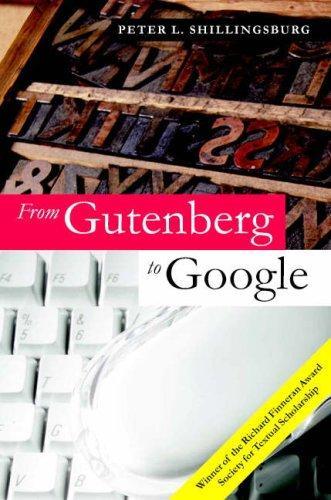
From Gutenberg to Google: electronic representations of literary texts
by
Peter L. Shillingsburg
Published 15 Jan 2006
Its early manifestations now make us smile: ftp sites from which one could download an ascii text file without italics or other formatting seemed adequate to many people who thought their personal libraries would be greatly increased at little or no cost. This scheme reduced the rich complexity of the codex into a flat stream of ascii characters. Then virtual worlds arrived, and ‘‘Saturday Night Live’’ satirized the virtual book with images of a book shown on a screen where keyboard commands turned codex pages. Like microfilm and facsimile projects – though actually not a bad place to start – this scheme demonstrates a paucity of imagination trapped in the world of physical objects and photography.
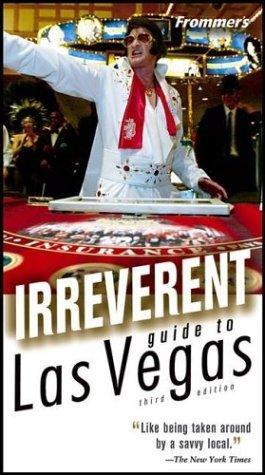
Frommer's Irreverent Guide to Las Vegas
by
Mary Herczog
and
Jordan S. Simon
Published 26 Mar 2004
At the JW Marriott, Gustav Mauler’s Lounge wittily parodies a men’s club: marble tables, forest green upholstery, copper accents, and barrel-vaulted ceilings of stained glass and cedar. It’s a prime spot for Summerlin’s less stuffy young professionals to decompress over a single malt and cigar. However, if you want real lounge lizard action, we mean, the sort that Bill Murray did to perfection on Saturday Night Live, the archetype lounge singer act is Mr. Cook E. Jarr, who must be seen—and you must see him—to be believed. He’s currently booked a couple nights a week at Harrah’s Carnaval Court. If he’s no longer there by the time you read this, he will surface eventually, so check local listings. Tit-illations...
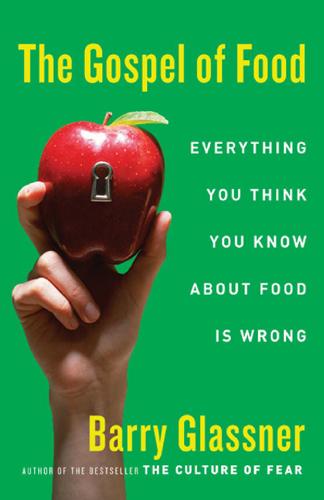
The Gospel of Food: Everything You Think You Know About Food Is Wrong
by
Barry Glassner
Published 15 Feb 2007
The more people present at a meal, the more they tend to eat, studies find.32 There may be another reason to stay away from crowds as well. Research by a group of scientists at Wayne State University suggests obesity may be caused by a coldlike virus called adenovirus-36. These biomedical researchers are serious. The idea of “catching obesity” may sound like the premise for a Saturday Night Live skit, but the Wayne State scientists have found that overweight people are four to six times more likely to have the adenovirus than leaner folks. What’s more, when they inoculated chickens, monkeys, and mice with an adenovirus, the animals gained weight and body fat without eating more. The researchers contend that the spread of this virus or its cousins may explain why rates of obesity have been rising throughout the world in recent years.
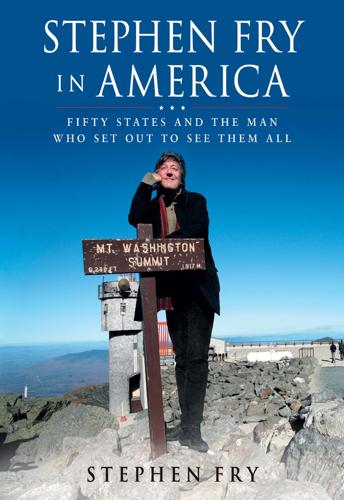
Stephen Fry in America
by
Stephen Fry
Published 1 Jan 2008
That Bitch, Comedy Mike Nichols, Elaine May, Ed Asner, Paul Mazursky, Alan Arkin, Joan Rivers, Peter Boyle, Harold Ramis, John Belushi, John Candy, Bill Murray, George Wendt, Shelley Long, Jim Belushi, Dan Castellaneta, Mike Myers, Chris Farley, Steve Carell, Stephen Colbert, Kevin Dorff, Tina Fey…the list of Chicago Second City alumni is extraordinarily impressive. It is here in Chicago that the traditions of improvisational sketch comedy have reached their pitch of refinement and influence. TV comedies like Saturday Night Live and Hollywood have all consistently been fed by those who have trained here. My acting partner looks dubious as I try to excuse myself from improv. * * * ILLINOIS KEY FACTS Abbreviation: IL Nickname: Land of Lincoln, The Prairie State Capital: Springfield Flower: Illinois Native Violet Tree: White Oak Bird: Cardinal Snack food: Popcorn Motto: State sovereignty, national union Well-known residents and natives: Abraham Lincoln (16th President), Ulysses S.
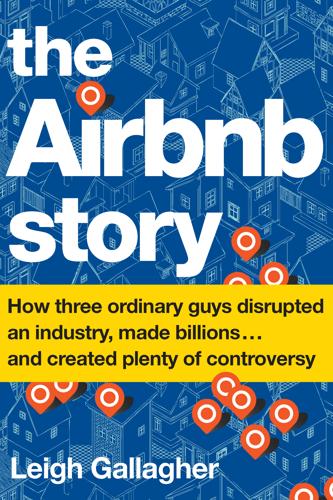
The Airbnb Story: How Three Ordinary Guys Disrupted an Industry, Made Billions...and Created Plenty of Controversy
by
Leigh Gallagher
Published 14 Feb 2017
These days, Airbnb is used by baby boomers, seniors, and so many other people—including celebrities like Gwyneth Paltrow and Beyoncé—that some of its earliest users, those who considered themselves pioneers at the cutting edge of a social experiment, now feel it has gone too “mainstream.” And, like it or not, Airbnb has captured our imaginations. It has become part of the zeitgeist. It has been a punchline on Saturday Night Live. It has been written into the plotline of HBO’s Silicon Valley. It’s been the answer to a question on Jeopardy! A romantic comedy with mistaken Airbnb host-identity high jinks as its plot device can’t be far away. It’s been used by marketers to create clever brand extensions: for a few weeks before the latest Teenage Mutant Ninja Turtles movie came out, in 2016, a listing showed up on Airbnb for the Turtles’ actual “lair,” an apartment in Tribeca the movie’s producers, Nickelodeon and Paramount Pictures, had converted into a themed hideout.
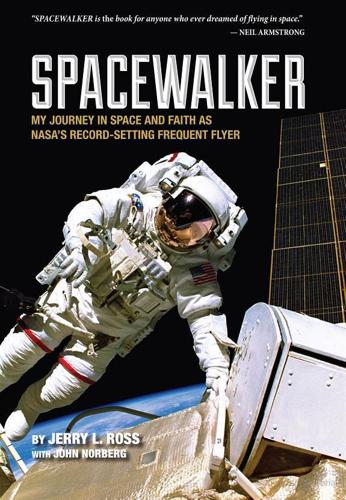
Spacewalker: My Journey in Space and Faith as NASA's Record-Setting Frequent Flyer
by
Jerry Lynn Ross
and
John Norberg
Published 31 Jan 2013
Woody has a silly laugh that sounds like Woody Woodpecker would sound if he were a horse. Woody always had a stupid joke to tell, and he is a lot of fun to be around. Bryan has a wonderful dry wit and did a great imitation of comedian Don Novello’s character Father Guido Sarducci, who frequently appeared on the television show Saturday Night Live. Charlie Walker was an employee of McDonnell Douglas and was on his third flight, more than the rest of the crew combined. He operated the Continuous Flow Electrophoresis experiment that McDonnell Douglas believed held great promise to manufacture new “wonder drug” pharmaceutical products utilizing the zero-g of space; however, process contamination problems and rapid advances in gene splicing technologies doomed their efforts.
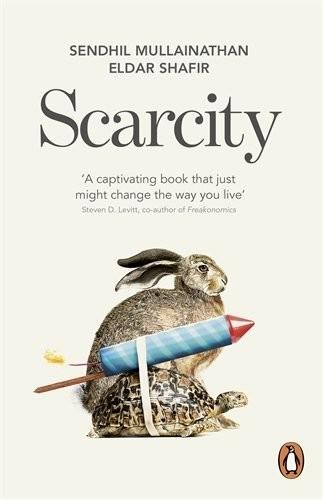
Scarcity: The True Cost of Not Having Enough
by
Sendhil Mullainathan
Published 3 Sep 2014
The more we understand the dynamics of how scarcity works upon the human mind, the more likely we can find ways to avoid or at least alleviate the scarcity trap. 7 POVERTY Before you criticize someone, you should walk a mile in their shoes. That way, when you criticize them, you’re a mile away and you have their shoes. —JACK HANDEY, SATURDAY NIGHT LIVE WRITER Poverty is surely the most widespread and important example of scarcity. The breadth and depth of poverty in the modern world is striking. UNICEF estimates that 22,000 children die each day due to poverty. Nearly one billion people are so illiterate that they cannot even sign their names.

The Interstellar Age: Inside the Forty-Year Voyager Mission
by
Jim Bell
Published 24 Feb 2015
Bill Nye recalls, “I was in class at Cornell in the spring of 1977 when Carl Sagan asked us which Chuck Berry song to put on the records. He actually pitched ‘Roll Over Beethoven,’ but we all insisted that the record include ‘Johnny B. Goode’ instead. And so it came to pass.” Passing the youth test, it apparently passed the social-media test of the day as well: Steve Martin did a skit on Saturday Night Live in spring 1978 where an alien’s response to the Voyager record was “Send more Chuck Berry!” “It is a sobering thought, though,” Jon Lomberg nonetheless laments, “that it was easier to send a record into deep space than it was to try to market it here on Earth.” Drake, Lomberg, and the others searched through picture books in libraries, in magazines from National Geographic to Sports Illustrated, and in NASA’s photo services.
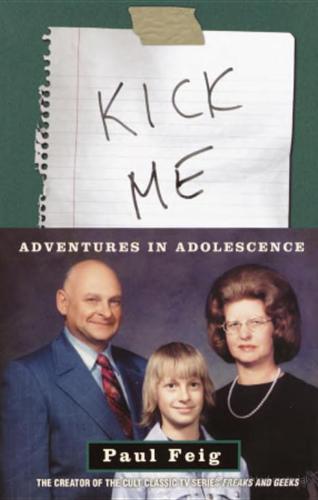
Kick Me: Adventures in Adolescence
by
Paul Feig
Published 23 Sep 2002
I would then continue talking like Ed Sullivan as I moved the mike away from my mouth, saying things like “All right, Mr. Carter, right this way,” creating the impression that Ed was walking away. When the mike was as far as possible from my mouth, I would go into my half-baked Jimmy Carter impression, which was simply a low-grade imitation of Dan Aykroyd’s impersonation from Saturday Night Live. I’d talk in a Jimmy Carter–like manner, thanking Ed Sullivan as I moved the mike slowly back to my mouth, simulating the approach of our thirty-ninth president. “Well, thank you very much, Mr. Sullivan. My fellow Americans, today I’d like to talk to you about . . . peanuts.” Neither my impressions nor my material were very good but my mike technique was outstanding.
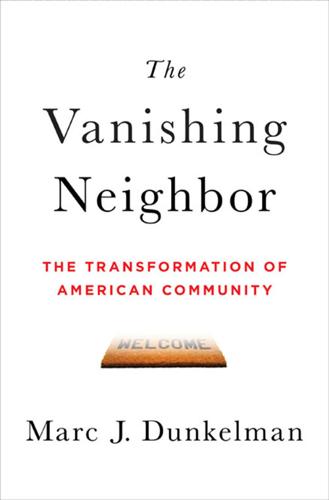
The Vanishing Neighbor: The Transformation of American Community
by
Marc J. Dunkelman
Published 3 Aug 2014
Ornstein, It’s Even Worse Than It Looks: How the American Constitutional System Collided with the New Politics of Extremism (New York: Basic Books, 2012), 59. 4Bill Carter, “Prime-Time Ratings Bring Speculation of a Shift in Habits,” New York Times, April 23, 2012. 5Eli Pariser, The Filter Bubble: What the Internet Is Hiding from You (New York: Penguin Press, 2011), 6–10. 6Cramer, Ruby. “2 Charts That Explain What Your Food Says About Your Politics,” Buzzfeed.com, October 31, 2012, http://www.buzzfeed.com/rubycramer/2-charts-that-explain-what-your-food-says-about-yo. 7Natasha Singer, “Your Online Attention, Bought in an Instant,” New York Times, November 17, 2012. 8Kenneth T. Jackson, Crabgrass Frontier: The Suburbanization of the United States (New York: Oxford University Press, 1985). 9Lizabeth Cohen, A Consumer’s Republic: The Politics of Mass Consumption in Postwar America (New York: Vintage Books, 2003), 288–89, 292–344. 10Chris Rock, Saturday Night Live, November 2, 1996. 11Cohen, A Consumer’s Republic, 258. 12Douglas S. Massey, Jonathan Rothwell, and Thurston Domina, “The Changing Bases of Segregation in the United States,” The Annals of the American Academy of Political and Social Science 1, no. 626 (2009): 74–90. 13Claude S. Fischer and Greggor Mattson, “Is America Fragmenting?”
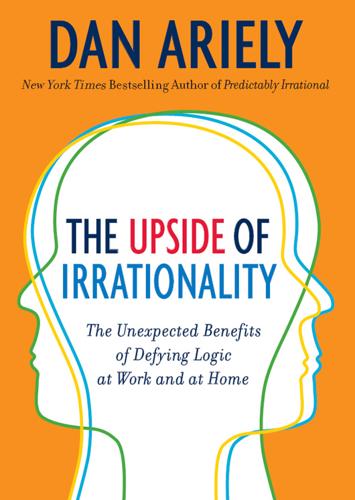
The Upside of Irrationality: The Unexpected Benefits of Defying Logic at Work and at Home
by
Dan Ariely
Published 31 May 2010
.* On top of that, even if both Janet and Julia accurately described themselves as having a sense of humor, what strikes one person as funny is not always funny to another. People who enjoy the Three Stooges may not appreciate Monty Python’s Flying Circus. David Letterman fans may not think much of The Office. Fans of any of these can rightfully claim to have a good sense of humor, but only by experiencing something with another person—say, watching Saturday Night Live together, either in person or in a virtual world—can you tell whether your senses of humor are compatible. SPEED DATING FOR OLDER ADULTS By the way, having an external object to react to works equally well in not-so-romantic encounters. Some time ago, Jeana Frost and I tried to run some speed-dating events for older (age sixty-five and above) adults.

Everything Is Perfect When You're a Liar
by
Kelly Oxford
Published 20 Aug 2012
He dyes his hair black, wears a plain black baseball cap, black T-shirt, black jeans, and black shoes at all times. He has murdery ice-blue eyes; I think his entire black costume is designed to accentuate those eyes. Some people just naturally look suspicious, but Harvey seems to try to make himself look suspicious on purpose. Like if Saturday Night Live were costuming a “casual murderer” character and came out with Harvey, people would say, “Whoa! Laying the murdery vibe on a little thick, don’t you think?” “You’ve got him filed under L?” I ask. “Under lawyer?” I always have to check his directions, which makes it sound like I’m terrible at my job, when the reality is that my boss, Harvey, is kinda fucking crazy.

Hot Lights, Cold Steel: Life, Death and Sleepless Nights in a Surgeon's First Years
by
Michael J. Collins
Published 1 Feb 2005
Perhaps that is why I needed to arm myself with memories like the look of that man in the door, the look in which I thought I saw sympathy and admiration. Back in the ER there were six patients, all of them upset at having to wait so long, all of them certain I had been sleeping or watching Saturday Night Live reruns. Connie Fritz, the charge nurse, tried to hand me a chart, but I brushed past her and went back to the call room. I took off my black-spattered lab coat and dropped it in one of the laundry baskets. Then I went into the bathroom to wash the blood off my hands. It seemed to take a long time.
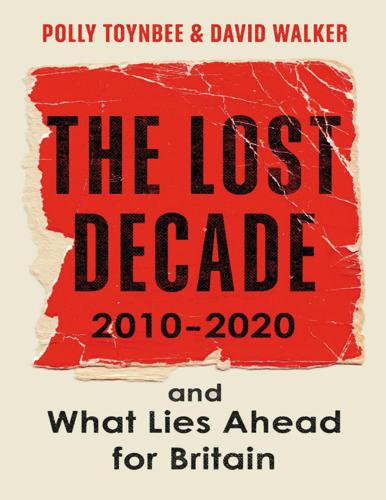
The Lost Decade: 2010–2020, and What Lies Ahead for Britain
by
Polly Toynbee
and
David Walker
Published 3 Mar 2020
A country famed for its humour, tolerance and irony was suddenly displaying fanaticism, xenophobia and all-round nastiness. It was now a country where MPs got shot and public figures were menaced; where extremists were garlanded and hate speech had become everyday. German and French humourists now had a ready supply of material, and the British prime minister became a stock target of Saturday Night Live mockery. The EU’s Future During Brexit, solipsism ruled. That is to say, a fixation on us and an absence of concern for them and future relationships. The effects of leaving on NATO and on European defence, let alone on our land border with the EU and our allies, were almost entirely ignored.

War for Eternity: Inside Bannon's Far-Right Circle of Global Power Brokers
by
Benjamin R. Teitelbaum
Published 14 May 2020
The president was increasingly resentful of a growing number of media narratives identifying Bannon, not Trump himself, as the architect of his electoral victory and the driving force behind the administration’s initiatives. Meanwhile, Bannon’s feud with Trump’s son-in-law was so highly exposed in American media that it was even dramatized on leading satire television programs like Saturday Night Live. Things were not looking good for Steve. It would take a sensational event, however, to push him out. The exact same event would also prove pivotal for Jason Jorjani and the alt-right. * * * THEY MET in McIntire Park in Charlottesville, Virginia, on Saturday, August 12, 2017, a little before eleven A.M.
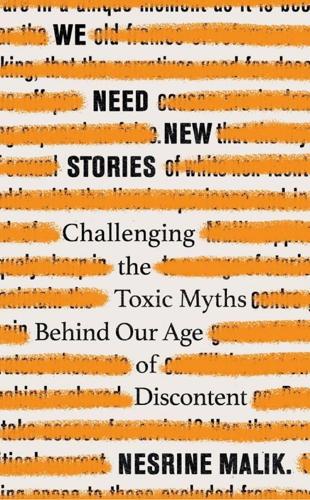
We Need New Stories: Challenging the Toxic Myths Behind Our Age of Discontent
by
Nesrine Malik
Published 4 Sep 2019
‘These are, make no mistake, men who wholly sought us for our strength, our independence and education. The jobs we held or coveted. The degrees in our name. Our passions and pursuits and our can-do, want-it-all attitudes. They work as medical researchers or in the arts, in teaching or social work,’ she writes. ‘They queue up the Saturday Night Live skits that humiliate Trump, to consume with our coffee on Sunday mornings, but find it unpalatable and unpleasant that our resentment and our fears linger long into the workweek.’ She reported on men who burnt their wives’ Women’s March and Hillary Clinton paraphernalia. Men who left their partners because they could no longer tolerate their anger.
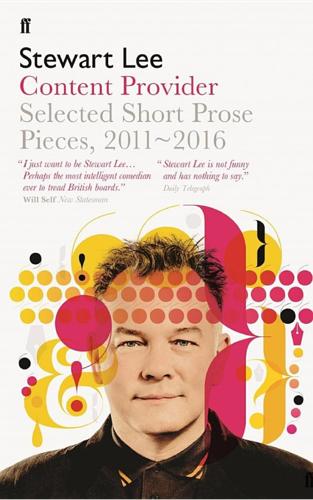
Content Provider: Selected Short Prose Pieces, 2011–2016
by
Stewart Lee
Published 1 Aug 2016
I’ve had it with comedy awards – and so has my bounty hunter alter ego Observer, 21 December 2014 I am a stand-up comedian. Last Tuesday, I attended the British Comedy Awards, my first since 1991. Today the awards are an edited Channel 4 highlights package from a Wembley warehouse, but back in ’91, in their second year, they were a prime-time ITV Saturday-night live spectacular in a big South Bank studio. I wrote for Radio 4’s On the Hour, which was up for best radio comedy, a category which, like best live comedian, has now been dropped to make space for TV faces. Broadcasters are no longer required to honour their general arts-coverage remit, so there’s more time for revenue-generating film of newsreaders eating insects.
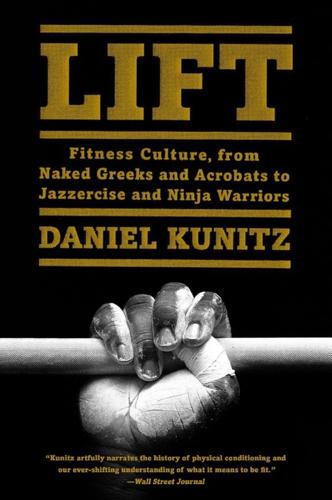
Lift: Fitness Culture, From Naked Greeks and Acrobats to Jazzercise and Ninja Warriors
by
Daniel Kunitz
Published 4 Jul 2016
It is not enough to say I want to be strong or fast: in order to aspire to some height, we first need our ideals embodied and presented to us; we need to give some form to the potential we feel within us. We are creatures of imitation. 6 TRAINING FOR THE MIRROR The Perfect Man * * * The aging lothario Fernando Lamas, played by comedian Billy Crystal in a Saturday Night Live skit from the eighties, smiles at the camera before pronouncing in a faux Latin accent, “It’s better to look good than to feel good.” The catchphrase has a satirical edge that cuts to the heart of the post–World War II belief that you can tell people’s fortune from the lack of lines on their face; it had staying power because it dug at the potent sentiment that appearance is all, which made people uneasy even as they embraced it.
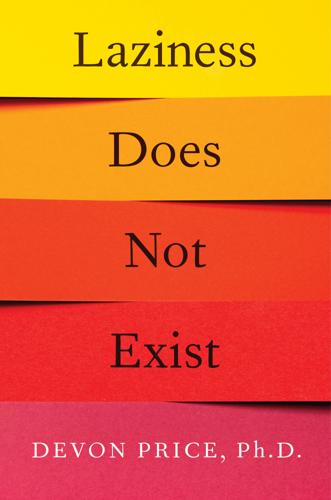
Laziness Does Not Exist
by
Devon Price
Published 5 Jan 2021
Unfortunately, in a world beholden to the Laziness Lie, it’s those negative thought patterns that are far more common. * * * The opposite of savoring is “dampening.” Dampening occurs when we suck the life out of a positive experience by distracting ourselves from it, worrying about the future, or focusing on small imperfections that we ought to just ignore. Think of Debbie Downer, from the famous Saturday Night Live sketch, who ruins a birthday party by talking about natural disasters and lecturing everyone about how unhealthy birthday cake is. Debbie is a master at dampening a good mood, because she knows how to draw attention away from mindfully savoring the things that make people happy. And she’s far from the only one who’s impulsively negative in that way.
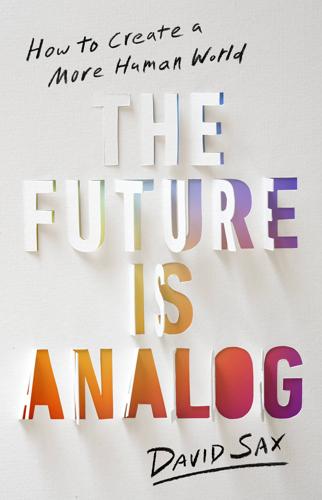
The Future Is Analog: How to Create a More Human World
by
David Sax
Published 15 Jan 2022
And like the character Diana Morales in the musical A Chorus Line, who fails at capturing the emotional essence of an ice cream cone, I dug right down to the bottom of my soul each time I sat in front of that laptop—and I felt nothing. “There’s something that happens in an improv show that only happens onstage,” said Michaela Watkins, an actor and comedian who was a member of the improv troupe The Groundlings before moving on to Saturday Night Live, Trophy Wife, Casual, The Unicorn, and other hit series. “We can have parties and joke around, but we’re doing this for the benefit of this audience that pushes us to this scary place. The scary place is still bonding. Some people jump out of airplanes or climb mountains. I do improv. It’s super fun, but that’s my thrill.
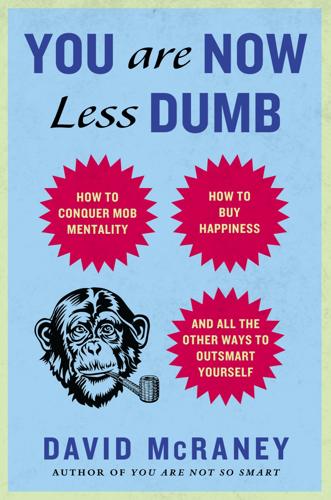
You Are Now Less Dumb: How to Conquer Mob Mentality, How to Buy Happiness, and All the Other Ways to Outsmart Yourself
by
David McRaney
Published 29 Jul 2013
The subjects then had to watch the boring video until they believed they had seen enough to answer a questionnaire about it. Nothing ever happened in the video, but something might have happened at any moment as far as the subjects knew. Each person was also told as soon as he or she ended the video that they would get to watch a clip from Saturday Night Live. The people who first performed the easy task and then had to press a button to end the boring video did so much sooner than the depleted group. They also held the button down longer when letting it go meant ending the clip. The depleted group just went with whatever was the most passive option in either case.

Enshittification: Why Everything Suddenly Got Worse and What to Do About It
by
Cory Doctorow
Published 6 Oct 2025
With so few ways to stumble on a stand-alone rival to one of Microsoft’s products, there’s very little reason to invest in such a product—just as there are very few ways to stumble onto an alternative to Google Search, thanks to the tens of billions of dollars Google pays every year to ensure that it’s the default search engine for every search box you encounter, ensuring in turn that only the most quixotic investors back rivals, no matter how much better their search results are. Viewers of Saturday Night Live in the 1970s lived through one of the most extraordinary eras in TV comedy, the birthplace of many cultural touchstones that still circulate today. My favorite of these is Ernestine, a character that Lily Tomlin created for Rowan & Martin’s Laugh-In, then brought with her to SNL. On SNL, Ernestine starred in a series of parodical ads for AT&T, in which she would nasally extol the dubious values of the Bell System.
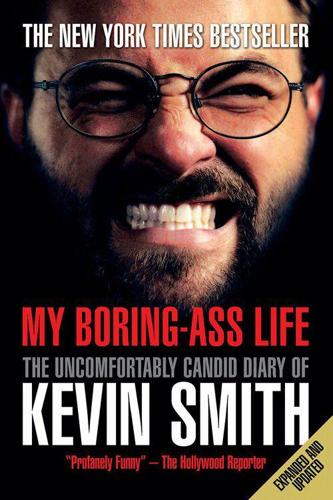
My Boring-Ass Life: The Uncomfortably Candid Diary of Kevin Smith
by
Kevin Smith
Published 24 Sep 2007
I call Burke Williams about getting a massage, but they’ve got me on hold so long that I give up. I stop at Book Soup on Sunset to see if the new Empire is out (it’s not), then opt to head home. I let the dogs out on the patio, then grab a bite in the kitchen. I head downstairs to check out my TiVo options, and settle on a Saturday Night Live from 1980 (the barely-watchable Denny Dillon/Charles Rocket year before the rise of Eddie Murphy). Jen calls, and I head over to the Valley to grab her from Orso’s. I say hi to the mom-squad in attendance, then whisk Schwalbach away because I’m parked in front of a fire hydrant. Jen wants to stop at In-N-Out on the way home, so I grab an iced tea.
…
into our lexicon, and he played both George and Oscar Bluth on one of my all-time favorite shows, Arrested Development. Give it up for a star of stage and screen, and a funny motherfucker... MR. JEFFREY TAMBOR. I’m pretty sure our next reader is the only cat in the room tonight who’s been on the stage at the World Famous Apollo. He’s just finished his first season on Saturday Night Live as a full-fledged cast member and he’s got a comedy DVD coming soon called I’m Snap Famous. Give it up for the man from Hot-Lanta, Starkisha himself... MR. FINESSE MITCHELL. Our next reader is the first of two living legends in the house tonight. Nobody knows who created the Greek gods of myth, but when it comes to twentieth-century mythology, we can all say we KNOW who created some of the biggest icons of pop culture history: Spider-Man, the Incredible Hulk, the Fantastic Four, Iron Man, the X-Men.
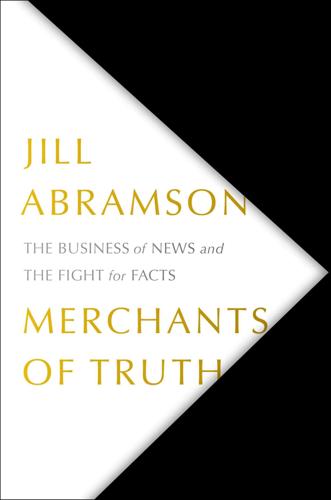
Merchants of Truth: The Business of News and the Fight for Facts
by
Jill Abramson
Published 5 Feb 2019
YouTube’s open call for submissions made it easier than ever for any average Joe with a camcorder to tape shows on network television and upload their bootleg version to the site, undermining the revenue models of the networks and violating their copyright. After YouTube was up and running for a few months, people at the networks began poring through its endless listings and found, to their horror, segments they had paid to produce. This was piracy! Or was it aggregation? One clip in particular, a music video spoof from Saturday Night Live called “Lazy Sunday,” starring Andy Samberg, who just so happened to have been Jonah Peretti’s elementary-school carpool buddy, had been posted to YouTube and was spreading virally. Considering whether to clamp down on the content theft or negotiate a deal with the website hosting it, the networks wisely chose the latter.
…
paid subscriptions to, 4–5, 193–94, 276–77, 373, 389, 397, 416, 425, 427 separate editorial staff of, 196 “Snow Fall” story on, 204–5, 211 traffic to, 373 “Trump bump” and, 397 2016 election and, 372 Upshot blog of, 248, 290 virtual reality and, 398–99 Nguyen, Dao, 113, 114, 116, 121, 144 Nieman Journalism Lab, 119, 124, 134 Nike: Peretti’s emails with, 16–17, 19 viral Ronaldinho ad of, 53 Nir, Sarah Maslin, 210 Nisenholtz, Martin, 73–74, 192, 194 Nixon, Richard, 225, 226 Nolan, Hamilton, 138, 164, 348 North Face, 161 Notopoulos, Katie, 130 Nunberg, Sam, 306 NYTimes.com, see New York Times, websites of Obama, Barack, 210, 252, 300, 323 BuzzFeed’s native advertising campaign for, 136–37 Shane Smith’s interview with, 179, 180 Trump’s lies about, 309 in 2012 election, 136 Obama, Michelle, 179 Obama administration, criminal leak investigations by, 9, 214 Occupy movement, 130 Ochs, Adolph, 77, 429 O’Keefe, James, 286, 338 Old Blue Last (London pub), 153 Oliver, John, 389 Onion, 119 Oregonian, 246 O’Reilly, Bill, 80, 361, 392 Ostrovsky, Simon, 179, 355 kidnapping of, 174, 357 Palmieri, Jennifer, 380–81 Panic 2012 (Hastings), 133 Paris climate accord, 351 Parker, Ashley, 376–77, 406, 407, 411 Pearl, Danny, murder of, 208, 209 Pentagon Papers, 64, 82, 225, 326, 402 Peretsman, Nancy, 257, 258 Peretti, Chelsea, 13, 17, 19, 107 Peretti, Jonah, 4, 8, 219, 242, 283 Ben Smith hired as head of BuzzFeed news department by, 127–28 Blackpeopleloveus.com and, 17, 19 on BuzzFeed mix of entertainment and news, 132 BuzzFeed started by, see BuzzFeed on Chartbeat, 247 childhood and adolescence of, 13–14 computing as early interest of, 14 contagious media and, 18, 285 and doubts about BuzzFeed’s entry into news industry, 143–44 dyslexia of, 13 explosion of social media anticipated by, 30–31, 103 at Eyebeam, 18–19 Facebook criticized by, 343 Facebook worldview adopted by, 103–4 and gaming of Google search system, 29, 30 as Huffington Post cofounder, 21–25, 29, 30, 33, 285 importance of BuzzFeed News to, 317 Lerer and, 20–21 at MIT Media Lab, 16, 18 Nike Sweatshop meme inadvertently created by, 16–17, 19 as proselytizer for machine learning, 330–31 reaction buttons introduced by, 302–3 Rejection Line meme created by, 17, 19 in search for new revenue sources, 344 Steele dossier publication approved by, 323, 328 as teacher at Isidore Newman School, 14–15 as untroubled by blurring of advertising and news content, 121–22, 137 and use of Facebook “sentiment data,” 304 video production as focus of, 328–29 virality and, see virality wealth of, 123 Perpich, David, 193, 394–96, 398 PETA, 38 Pew Foundation, 182 Philadelphia Daily News, 233 Piano, Renzo, 81, 187 Pilhofer, Aron, 197 Pincus, Walter, 92–93 Pinterest, 178 Plame, Valerie, 93 Playboy, 42 Plepler, Richard, 178, 179, 180 and Vice News Tonight, 350, 353, 355 Plunkett, Chuck, 424 Podesta, John, 381 hacked emails of, 319, 381 Politically Incorrect (TV show), 44 political polarization: Facebook and, 273–74, 279–80, 281, 282–83, 312 right and, 282–83 Politico, 98–99, 124, 130, 140, 144, 189, 197, 230, 237, 251, 263, 374, 406 Ben Smith at, 126, 131, 134 critical article on Abramson in, 211 “Salongate” story broken by, 240, 241 Powell, Colin, 93 Powers That Be, The (Halberstam), 3–4 Poynter Institute, 95, 109, 140, 309, 310 Prakash, Shailesh, 263, 266–67, 413–14 press, freedom of, see First Amendment Preston, Julia, 402 Priest, Dana, 233 ProPublica, 77, 141, 142, 237, 389, 408 Proud Boys, 368 Pruitt, Scott, 390 psychographics (psychometrics), 278–79, 286 Pulitzer Prizes, 3, 4, 82, 211, 233, 268, 392, 411, 416, 426 100th anniversary celebration of, 1–5, 402 Punch, Tom, 160 Purdy, Matt, 205, 378 Putin, Vladimir, 289 quality news, 9–10 see also investigative journalism; long-form journalism Quest Education Corporation, 90 Raines, Howell, 67, 78, 184, 186, 217, 385, 429 Rather, Dan, 60 Rattner, Steven, 65, 73, 188, 189 Ravitch, Joe, 154 Reagan’s War (film), 285 Rebel Media, 368 Reddit, 313 Redstone, Sumner, 154 Reeve, Elle, 351–52 Charlottesville violence covered by, 353–55 Regret the Error (blog), 310 Reid, Harry, 384 Reines, Philippe, 133 Rejection Line meme, 17, 19 relatability, virality and, 115–16 Remnick, David, 88, 209 Reporters Committee for Freedom of the Press, 327, 427 Republican National Convention (2016), 315–16 Republicans, news media distrusted by, 386–87 Reston, James, 397 Rezaian, Jason, 407 Rice, Condoleezza, 79 Rich, Frank, 75 Richardson, Terry, 59, 176 Ricks, Thomas, 93, 230 Risen, James, 92, 215, 384, 402 Roberts, Jim, 135 Robinson, Janet, 86, 193 Abramson’s relationship with, 198, 199, 202 business-side job cuts by, 191 news staff cuts resisted by, 70–71, 186 paywall on website urged by, 192, 193 print advertising department protected by, 73 Sulzberger’s firing of, 202–3 as Times’s CEO, 62–63, 65 Rodman, Dennis, 167 Rogers Communications, 358, 365 Rolling Stone, 130, 133 Romney, Mitt, in 2012 election, 129, 131–32, 136 Ronaldinho, viral Nike ad of, 53 Rose, Charlie, 417, 425 Rosen, Jay, 7, 76 Rosenthal, Abe, 75, 78, 185, 193, 390 Rosenthal, Andrew, 78, 192–93, 215 Rosenthal, Elisabeth, 402 Rotten, Johnny, 43 Rovere, Richard, 4 /r/The_Donald (subreddit), 405 Rubin, Alissa, 209–10 Rubio, Marco, 132 Run-Up, The (podcast), 370, 372–74, 375 Russia: Trump’s business connections with, 383–84 2016 election interference of, 289, 326, 341–42, 381, 382, 383, 420 Rutenberg, Jim, 374 Ryan, Carolyn, 370, 371, 374, 378, 379 Ryan, Fred, 98, 263, 264, 403–4 as Post publisher, 263–64, 430–34 St. Paul Pioneer Press, 424 Samberg, Andy, 54 Samsung, 393 Sandberg, Sheryl, 213 Sanger, David, 371, 382 Saturday Night Live (TV show), 54 Savile, Jimmy, 214 Scaramucci, Anthony, 385–86 Schafer, Gene, 223 Schmidt, Andrea, 358–59 Schmidt, Eric, 54 Schmidt, Michael, 379–80, 392 Schmitt, Eric, 92 Schoofs, Mark, 141–42, 302, 323, 345 Schreiber, Liev, 268 Schumpeter, Joseph, 153 Schweizer, Peter, 378–79 Scroll, 247 search engine optimization (SEO), 30, 31, 74, 242 Seattle Times, 249 September 11, 2001, terrorist attacks, 27, 49, 172 Sessions, Jeff, 416 Shadid, Anthony, 208–9 Shapiro, Ben, 290 Sheehan, Neil, 402 Shepherd, Jack, 38, 112 Shireman, Robert, 252 Shirky, Clay, 75–76, 193, 196 Shitty Media Men, 361 Shulgin, Alexander, 180–81 Sicardi, Arabelle, 117 Siegal, Al, 152, 189 Silver, Nate, 190, 248, 290, 375 Silverman, Craig: on BuzzFeed dress color story, 309 BuzzFeed joined by, 311 cognitive biases studied by, 309–10 fact-checking business of, 310–11 fake news investigations of, 294–95, 296–98, 299–300, 309, 320, 322, 340–41 as online media watchdog, 310 Simkins, Modjeska, 235 Simpson, Glenn, 323 Slim, Carlos, 5, 9 Times loan of, 188, 430 wealth of, 188, 259 “small world” networks, 15–16 smartphones, impact on digital news of, 32–33, 95 Smith, Ben, 224, 301, 411, 427 background of, 125 and blue-black/white-gold dress story, 146 in BuzzFeed 2016 election night coverage, 320, 321 BuzzFeed news team assembled by, 128–29, 130–31 BuzzFeed opinion pieces and, 345 in debate with Sullivan on native advertising, 137 hired as head of BuzzFeed news department, 127–28 IM interviews conducted by, 135 on impact of Facebook’s “sentiment data,” 304–5 importance of Facebook in 2016 election predicted by, 303, 305 journalism career of, 125–26, 131, 133–34 as master of chasing scoops, 131 NewsFeed podcast of, 342 news team expanded by, 141–43 at Politico, 126, 131, 134 posts critical of BuzzFeed advertisers deleted by, 139 in search for new revenue sources, 344 Steele dossier publication approved by, 323–24, 328 Twitter followers of, 126–27, 130 and use of Facebook “sentiment data,” 304 Smith, Shane, 4, 176 authenticity as prized by, 351 in buyback of Vice, 47 CEO title relinquished by, 369, 426 controversial Liberia documentary of, 169–70 embroidered background story of, 42 and evolution of Vice into serious news brand, 158, 171 extravagant spending by, 175–76 HBO weekly show as priority of, 357 international expansion stressed by, 368 Obama interviewed by, 179, 180 as out of touch with Vice employees’ concerns, 364 overtaking CNN as goal of, 346, 348, 369 sexism of, 59 transformative vision of, 60–61 and Trump’s election, 353 as Vice Media cofounder, 43–44 Vice News as envisioned by, 346, 369 and Vice News Tonight, 353 and Vice’s move into video, 56–57 and Vice’s sexist culture, 363–64 on Vice TV show Emmy nomination, 179 Virtue advertising agency created by, 158 Snapchat, 178, 249, 329, 412 Snowden, Edward, 80 NSA documents leaked by, 80, 215, 259–60, 268, 382 Times mistrusted by, 215 Social Intelligence Report, 110–11 social media, 232 credibility of news services as unimportant on, 294–95 explosion of, 30–32, 103 as news platforms, 294–95 Post content posted by, 412 power of, 5–6 as primary source of news for majority of Americans, 274 Social Network Soiree, 19 Softbank, 103 Sontag, Deborah, 402 Sorkin, Andrew Ross, 375 DealBook and, 189–90 Southern Poverty Law Center, 368 Spayd, Liz, 384, 385 Spencer, Richard, 353 Spicer, Sean, 339 Spotlight (film), 198, 255, 268 Steel, Emily, 362–63 Steele, Christopher, 323, 384 Steele dossier: critiques of BuzzFeed’s publication of, 324–25 lawsuits over, 326, 327–28 unverified claims in, 323 Steiger, Paul, 223, 408 Steiger, Wendy, 223 Steinberg, Jon, 120, 132, 135 Stelter, Brian, 184 “stickiness,” 23, 30, 204 Stopera, Dave, 116 Stopera, Matt, 104, 107, 108, 116, 288 as BuzzFeed early hire, 37–39 and BuzzFeed “List” formula, 117–18 as BuzzFeed’s relatability expert, 115–16 as expert on trend dynamics, 123 gender politics stories emphasized by, 140–41 on importance of adding reporting to BuzzFeed mix, 123–24 and “making a thing a thing,” 287 in move to BuzzFeed newsroom, 128–29 nostalgic posts by, 118 as trend dynamics expert, 123, 144 in 2012 election coverage, 135 Strange Justice (Mayer and Abramson), 196 Sullivan, Andrew, 22, 94, 137 Sullivan, Margaret, 324, 380, 385 Sulzberger, Annie, 65 Sulzberger, Arthur Gregg, 193, 203, 426 Abramson’s relationship with, 395, 396 as candidate for Times publisher position, 65, 394–96 innovation demanded by, 396, 398 named Times editor, 395, 396 reporting career of, 395 “Times Innovation Report” and, 218–20, 394 Times news staff joined by, 197 as Times publisher, 373, 430 on Times’s mistakes in election coverage, 376 Sulzberger, Arthur Ochs, Jr., 1, 5, 9, 407 Abramson fired by, 221–24 Abramson named as executive editor by, 201–2 Abramson’s relationship with, 197–98, 207–8, 216, 402 and blurring of line between news and business departments, 69–70, 189 business-side job cuts by, 191 Chinese princelings story and, 206, 207 Google investment declined by, 97 Keller and, 66, 67–68 lasting achievements of, 427, 429 “last man standing” strategy of, 70–71 liberal views of, 78 news staff cuts and, 70–71, 186, 187, 190–91 premium projects envisioned by, 189 and purchase of Post’s share in International Herald Tribune, 66, 86 retirement party of, 429–30 Robinson fired by, 202–3 shareholder unhappiness with, 63, 74 Times’s future as envisioned by, 62–63 unflattering articles on, 64, 74–75, 79, 183, 187 and Wall Street Journal rivalry, 183 website paywall ordered by, 193–94 Sulzberger, Arthur Ochs, Sr.
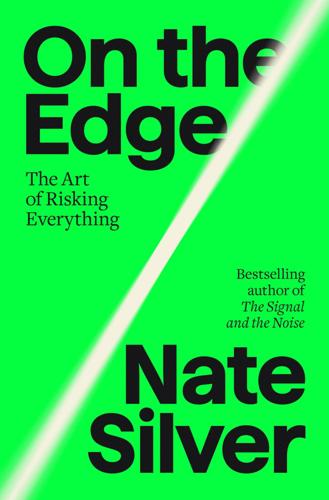
On the Edge: The Art of Risking Everything
by
Nate Silver
Published 12 Aug 2024
Similarly, the small sample of play you get at a particular casino won’t be statistically sufficient to tell you whether you’ve been cheated. You need to trust a reliable third party instead. *12 For an exaggerated version of this, think of working-class Chicagoans as portrayed in vintage TV or movies, such as the Chicago Bears Super Fans from Saturday Night Live. The vowel shift east of the Great Lakes, like in Buffalo or Rochester, New York, is milder. *13 I had to look this word up; it means a covered entrance for vehicles. Wynn can be salty on the one hand and fancy on the other one. *14 Wynn has a condition (retinitis pigmentosa) that essentially gives him tunnel vision—and he once unintentionally punched his elbow through a Picasso painting that he couldn’t see through his peripheral vision when showing it off to guests, causing a $54 million decline in its valuation
…
GO TO NOTE REFERENCE IN TEXT reported on elsewhere: Kate Clark, “Andreessen Horowitz’s AI Crusader Emerges as a Confidant of the Founders,” The Information, June 3, 2023, theinformation.com/articles/andreessen-horowitzs-ai-crusader. GO TO NOTE REFERENCE IN TEXT common to find: “Elon Musk Reveals He Has Asperger’s on Saturday Night Live,” May 9, 2021, bbc.com/news/world-us-canada-57045770. GO TO NOTE REFERENCE IN TEXT Daniel “Jungleman” Cates: Rick Maese, “How to Win at Cards and Life, According to Poker’s Autistic Superstar,” The Washington Post, May 3, 2023, washingtonpost.com/sports/2023/05/02/jungleman-poker-dan-cates-autisic.
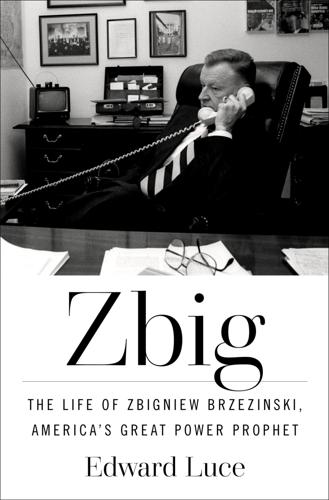
Zbig: The Life of Zbigniew Brzezinski, America's Great Power Prophet
by
Edward Luce
Published 13 May 2025
He added, “We regret that the President is either ignorant of an important problem in international affairs or indifferent (perhaps under Kissinger’s and Sonnenfeldt’s influence) to the fate of a large number of people who have kin in this country.”126 But the media was doing Brzezinski’s job for him. On Saturday Night Live, Chevy Chase picked up on the gaffe to embellish an impersonation of Ford that depicted him as clueless. “Last year I visited the capital of Poland, and let me say from the outset that Milwaukee is a beautiful city,” said Chase’s Ford.127 A few weeks later, Ford lost the popular vote by just two percentage points.
…
Debate transcript, “October 6, 1976 Debate Transcript,” The Commission on Presidential debates, https://www.debates.org/voter-education/debate-transcripts/october-6-1976-debate-transcript/. 125. Vaughan, “Zbigniew Brzezinski,” 266. 126. Brzezinski family private family collection, Ian. 127. Saturday Night Live, “Debate ’76,” October 1976, https://www.youtube.com/watch?v=xu2vdE0z7ds. 128. Isaacson, Kissinger, 703. 129. Zbigniew Brzezinski, campaign diary, November 3, 1976. 130. Zbigniew Brzezinski, campaign diary, November 29, 1976. 131. Zbigniew Brzezinski, campaign diary, November 29, 1976. 132.
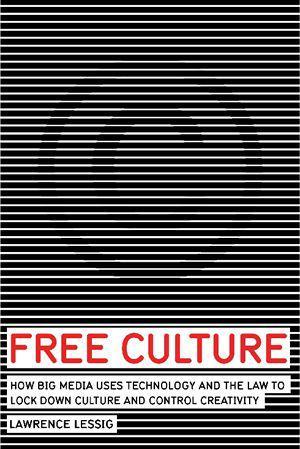
Free culture: how big media uses technology and the law to lock down culture and control creativity
by
Lawrence Lessig
Published 15 Nov 2004
And what reason would there be for objecting? We're talking about work that is not now being made; which if made, under this plan, would produce new income for artists. What reason would anyone have to oppose it? In February 2003, DreamWorks studios announced an agreement with Mike Myers, the comic genius of Saturday Night Live and Austin Powers. According to the announcement, Myers and Dream-Works would work together to form a "unique filmmaking pact." Under the agreement, DreamWorks "will acquire the rights to existing motion picture hits and classics, write new storylines and—with the use of stateof-the-art digital technology—insert Myers and other actors into the film, thereby creating an entirely new piece of entertainment."
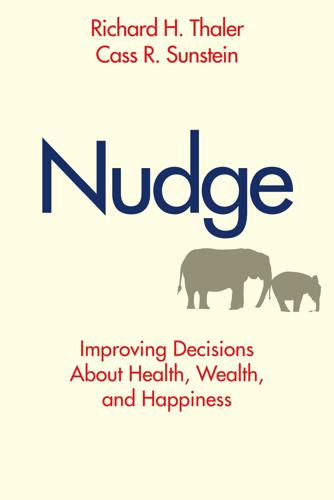
Nudge: Improving Decisions About Health, Wealth, and Happiness
by
Richard H. Thaler
and
Cass R. Sunstein
Published 7 Apr 2008
We are swamped with requests for help from beneficiaries.”4 The experience in McAllen was hardly unique. Seniors everywhere were confused. So were their doctors and pharmacists. Together they overwhelmed Medicare hot lines set up to help people figure out the best plan for them. Critiquing Medicare Part D’s complexity became so common that Saturday Night Live spoofed the maze of detail in a phony public service commercial. The commercial promised a simple and easy plan to tech-savvy seniors who had succeeded in completely mastering their computers, iPods, and satellite televisions. President Bush sympathized with the frustration but said that the program would ultimately be worth the pain.
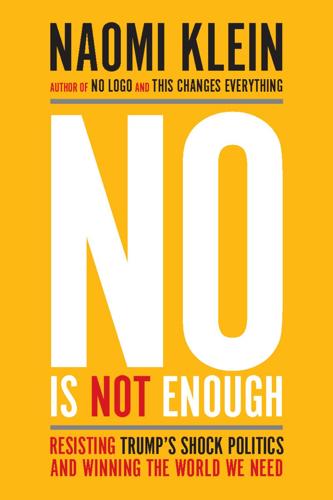
No Is Not Enough: Resisting Trump’s Shock Politics and Winning the World We Need
by
Naomi Klein
Published 12 Jun 2017
Ford, who died in 2016, created a performance-based image that was impossible to shame—because his brand was being shameless. Even when he was caught on tape smoking crack, it didn’t finish him off, because it was still the wacky Rob Ford show, and his supporters were his semi-ironic loyal audience, taking it all in like a Saturday Night Live sketch. But, as with Trump, the over-the-top performance and the personal scandals distracted from a sinister agenda, a pseudopopulism that specialized in handouts to corporations, a blank check for police, and eroded services for the most vulnerable. I didn’t foresee branding culture going this far when I started writing about it twenty years ago.
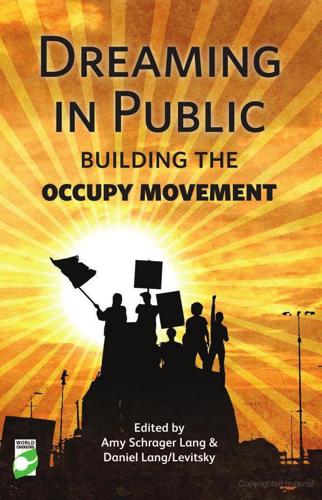
Dreaming in Public: Building the Occupy Movement
by
Amy Lang
and
Daniel Lang/levitsky
Published 11 Jun 2012
What’s created is new, perhaps not immediately recognizable to outsiders to the process – and so that much more powerful[…] The boat sails So, as with many evolutions of the last 30 days, though the ‘I’m on a Boat’ meming may have started out as an act of stress-relieving nonsense, relayed from one participant to another and echoed by bemused onlookers (like me), it has nevertheless become a useful metaphor for the Occupy Oakland movement as it enters its second month of life. Navigating treacherous waters as if the city streets and institutions were an uncharted ocean, OO continues to sail, despite hull-breaches and storms, etching a new social and political map of Oakland and the world along the way. – and yes, I know that the ‘I’m on a Boat’ thing is from a Saturday Night Live skit. I still have no idea how it’s come to be an echo, bouncing from node to node at the General Assembly and plaza. Anyone is free to add its origin in that regard to the historical record in my comments section[…] Chris Kendrick says: [23 November 2011 at 5.04pm] I started the boat! I swear on the occupation.
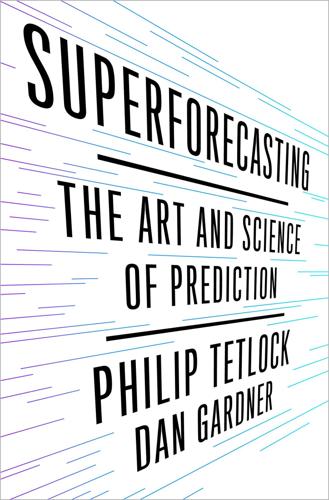
Superforecasting: The Art and Science of Prediction
by
Philip Tetlock
and
Dan Gardner
Published 14 Sep 2015
So perhaps you thought his chances were pretty good, but, obviously, he also stood a pretty good chance of losing. Maybe it was fifty-fifty? Or maybe you thought the war gave him the edge, with, say, a 60% or 70% chance of winning? In fact, your memory of your judgment is very likely wrong. And in a predictable direction. I can demonstrate by dredging from the archives a 1991 Saturday Night Live skit that captured the received political wisdom in 1991. The scene: a debate among the leading candidates for the Democratic nomination in 1992. Moderator: Good evening. I’m Fay Sullivan of the League of Women Voters. Welcome to this, the first in a series of debates among the five leading Democrats who are trying to avoid being forced by their party into a hopeless race against President George Bush.
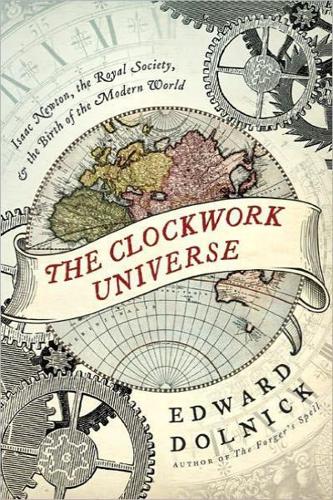
The Clockwork Universe: Saac Newto, Royal Society, and the Birth of the Modern WorldI
by
Edward Dolnick
Published 8 Feb 2011
To them that come after us, it may be as ordinary to buy a pair of wings to fly into remotest Regions, as now a pair of Boots to ride a Journey.”18 Such forecasts served mainly to inspire the mockers. By 1676 the Royal Society found itself the subject of a hit London comedy, the seventeenth-century counterpart of a running gag on Saturday Night Live. The play was called The Virtuoso, which could mean either “far-ranging scholar” or “dilettante.” Thomas Shadwell, the playwright, lifted much of his dialogue straight from the scientists’ own accounts of their work. Playgoers first encountered the evening’s hero, Sir Nicholas Gimcrack, sprawled on his belly on a table in his laboratory.
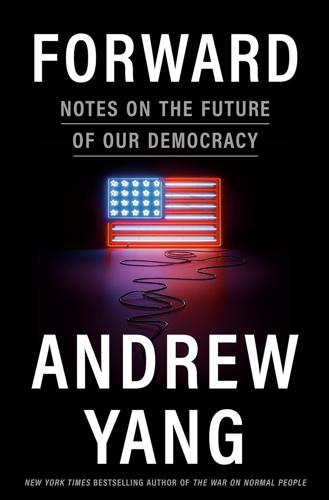
Forward: Notes on the Future of Our Democracy
by
Andrew Yang
Published 15 Nov 2021
* * * — THAT SATURDAY, after a labored four days of vote counting, Joe Biden was declared the president-elect by CNN and the other networks. People celebrated in the streets of New York City, whooping and hollering. It was as if a cloud had started to lift for millions. I felt both exhilaration and relief. That night, Evelyn and I went to see Dave Chappelle host Saturday Night Live; he had invited us the previous week to be his guests. In the car, I said to Evelyn, “I’m sure glad that Joe won. But if Mitch McConnell is the Senate majority leader, it’s going to be a rerun of the Obama years when Joe can’t do anything because it’s being blocked.” “That would be terrible,” Evelyn said.
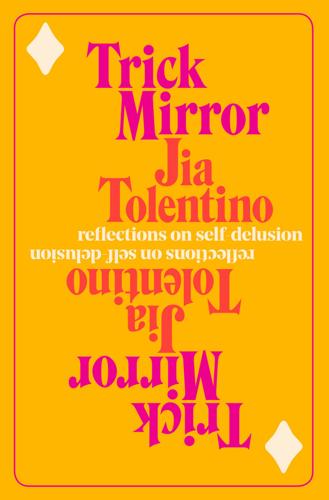
Trick Mirror: Reflections on Self-Delusion
by
Jia Tolentino
Published 5 Aug 2019
I’d add that she also likely knows that, on the terms of contemporary feminism, she will be defended in equally blunt terms, too. Later on, Jennifer Palmieri, the director of communications for Hillary Clinton’s presidential campaign, lamented in the Times that Steve Bannon was seen as an evil genius while Conway, equally manipulative, was just seen as crazy. When Saturday Night Live portrayed Conway like Glenn Close in Fatal Attraction in a sketch, that, too, was sexist, as were the memes that compared Conway to Gollum and Skeletor. But if you stripped away the sexism, you would still be left with Kellyanne Conway. Moreover, if you make the self-presentation of a White House spokesperson off-limits on principle, then you lose the ability to articulate the way she does her job.
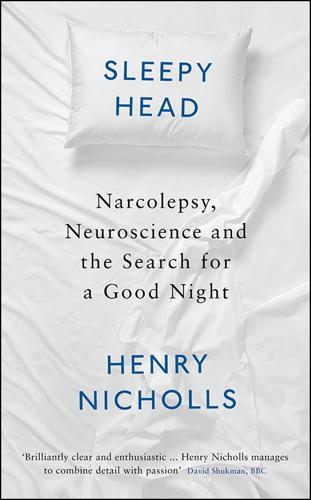
Sleepyhead: Narcolepsy, Neuroscience and the Search for a Good Night
by
Henry Nicholls
Published 1 Mar 2018
With direction from the judge, the jury acquitted him of both murder and arson, though he was sentenced to three years’ hard labour on account of adultery and lascivious cohabitation. Homicidal somnambulism has been used as a defence in a handful of cases since then, but the most celebrated of these, by far, is that of a young Canadian man called Ken Parks. On 23 May 1987, he was sitting up watching Saturday Night Live until the small hours of the morning. At around 1.30 a.m., he fell asleep on the couch. This wasn’t particularly unusual, because he was something of a night owl, going to bed late and rising late. What was a surprise was waking to find himself stabbing his mother-in-law, especially as she and her husband lived some 23 km away and he’d driven to their house, navigating several sets of traffic lights along the way.
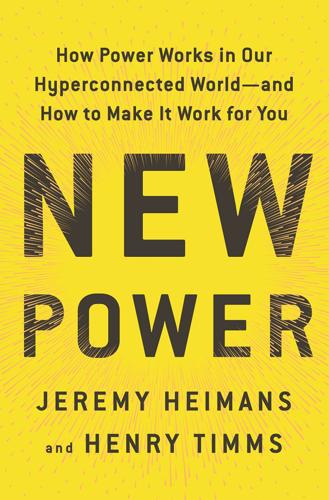
New Power: How Power Works in Our Hyperconnected World--And How to Make It Work for You
by
Jeremy Heimans
and
Henry Timms
Published 2 Apr 2018
One of the most popular subreddits is the “Ask Me Anything” (AMA) thread, where everyone from Barack Obama to Bill Gates takes questions from the Reddit community. As we write this, a ninety-something German woman is starring in an AMA about her experiences as a nurse during World War II—it’s the second most popular thread right now on Reddit, coming in just ahead of a discussion about criminal justice reform and a link to a skit about Beyoncé on Saturday Night Live. Victoria Taylor joined Reddit Inc. in 2013 as communications director. She then became director of talent, overseeing over 2,500 AMAs and serving as the company’s interface with many of its most important moderators. She was beloved by the “mods,” who saw her as more than just an enforcer on behalf of Reddit Inc. but as something more like a friend.
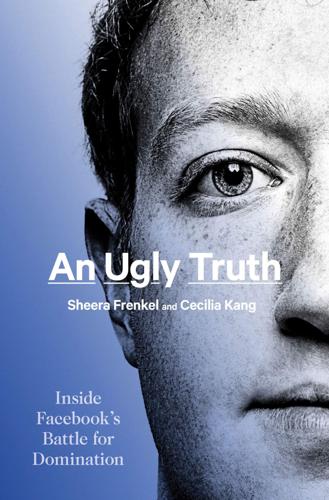
An Ugly Truth: Inside Facebook's Battle for Domination
by
Sheera Frenkel
and
Cecilia Kang
Published 12 Jul 2021
Zuckerberg and other members of the policy team pondered if the video could be defined as parody. If so, it could be an important contribution to political debate; satire had always held a critical place in political discourse. Some communications staff noted that the same kind of spoof of Pelosi could have appeared on the television comedy show Saturday Night Live. Others on the security team pushed back and said viewers clearly knew that SNL was a parody show and that the video of Pelosi was not watermarked as a parody. “Everyone was frustrated by how long it had taken,” one employee involved in the discussions explained. “But when you are trying to write a policy for billions of people, you have to abstract that and think of all unintended consequences.”

Recoding America: Why Government Is Failing in the Digital Age and How We Can Do Better
by
Jennifer Pahlka
Published 12 Jun 2023
Ryan Burke et al., “A Playbook for Improving Unemployment Insurance Delivery,” New America, June 22, 2021, https://www.newamerica.org/new-practice-lab/playbook/improve-unemployment/; Julia Simon-Mishel et al., “Centering Workers—How to Modernize Unemployment Insurance Technology,” The Century Foundation, National Employment Law Project, Philadelphia Legal Assistance, September 17, 2020, https://www.nelp.org/publication/centering-workers-how-to-modernize-unemployment-insurance-technology/. 10. “I’m Just a Bill,” Schoolhouse Rock!, https://www.youtube.com/watch?v=OgVKvqTItto. There are also millions of views for its Saturday Night Live parody, “How a Bill Does Not Become a Law,” which is well worth watching (https://www.youtube.com/watch?v=JUDSeb2zHQ0). 11. For more on intentional sabotage of government programs in their implementation see Pamela Herd and Donald P. Moynihan, Administrative Burden: Policymaking by Other Means (New York: Russell Sage Foundation, 2018), and Leah Cardamore Stokes, Short Circuiting Policy: Interest Groups and the Battle over Clean Energy and Climate Policy in the American States (New York: Oxford University Press, 2020). 12.

The Sirens' Call: How Attention Became the World's Most Endangered Resource
by
Chris Hayes
Published 28 Jan 2025
Over the course of the ensuing decades, this phenomenon of information overload became a fixation of pop culture. In 1990, the band Living Colour released the single “Information Overload,” singing, “Sometimes I feel / Like my mind will explode / Sometimes I feel / Like I’ve got no control…” In 1992, Bruce Springsteen performed on Saturday Night Live his new single, “57 Channels (and Nothin’ On),” about the utter emptiness of boundless entertainment. In the video of the song, the Boss narrates shooting up his TV with a .44 caliber pistol. A year later, Duran Duran released the straightforwardly named single “Too Much Information,” decrying the bombardment of commercial messages across different platforms: “Hey TV child / Look into my eyes / Here by intervention / I want your attention.”
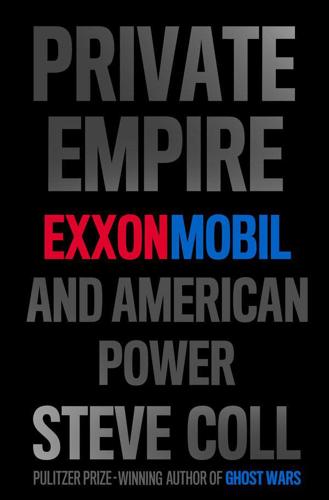
Private Empire: ExxonMobil and American Power
by
Steve Coll
Published 30 Apr 2012
Davies had grown up in central Philadelphia, a child of “campers and hippies.” His father was an architect, and his mother was a computer programmer and elections judge. In the midst of the Reagan administration, he studied environmental issues at Hampshire College, whose reputation for crunchiness was the subject of a recurring skit on Saturday Night Live. After graduation, he backpacked around the world and earned a master’s degree in environmental studies at the University of Montana before taking up green campaigning as a formal profession.4 He had substantial experience by the time the ExxonMobil challenge fell to him. His thinking was forged as well by Greenpeace’s rigorous internal culture.
…
The ExxonMobil scientists who specialized in phthalate lobbying turned up to represent the corporation. The congressional staff sat in committee member chairs, like judges. The industry scientists and the consumer group scientists and advocates took their places in the audience—on opposite sides. The setting felt “like one of those Saturday Night Live point-counterpoint debates,” Janet Nudelman of the Breast Cancer Fund recalled. “Pretty much every developed nation in the world has banned phthalates from kids’ toys,” Nudelman told the meeting. “But Congress is still debating.” It was time to act, she said.21 Somebody presented a Gumby doll as an exhibit.
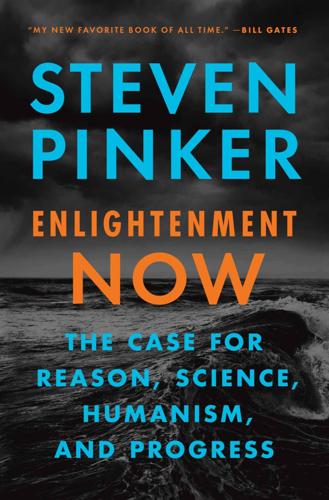
Enlightenment Now: The Case for Reason, Science, Humanism, and Progress
by
Steven Pinker
Published 13 Feb 2018
People can even value autonomy over happiness: many who have gone through a painful divorce, for example, would still not choose to return to a time when their parents would have arranged their marriages. What about happiness itself? How can a scientist measure something as subjective as subjective well-being? The best way to find out how happy people are is to ask them. Who could be a better judge? An old Saturday Night Live skit has Gilda Radner in a postcoital conversation with a nervous lover (played by Chevy Chase) who is worried she didn’t have an orgasm, and she consoles him by saying, “Sometimes I do and I don’t even know it.” We laugh because when it comes to subjective experience, the experiencer herself is the ultimate authority.
…
K., 99, 100, 118 Ruddiman, William, 123 rule of law democracy as dependent on, 335–6 establishment of, in early modern Europe, 43 integrity of, and emancipative values, 228 violent crime reductions and, 43, 168–70, 174 Rushdie, Salman, 443 Ruskin, John, 165 Russell, Bertrand, 421, 445 Russell, Stuart, 300, 477n20 Russia as autocracy, 201, 203, 205, 335 civil war, 78 conflict with Georgia, 335 conflict with Ukraine, 158, 159, 335 Crimea annexation (2014), 164, 335 cyberattacks by, 335 democracy, undermining of, 335 famine in, 72 homicide rates in, 172, 174 homophobia in, 223 legitimacy of government, and crime wave, 174 nationalism of, 159 nuclear power and, 147, 150 nuclear weapons, 308, 315, 316–17, 318, 320–21 revolution, 78 secularization and, 436 Time of Troubles, 199, 484n77 Trump administration’s collusion with, 335 See also Cold War; nuclear war; Soviet Union Rwanda, 69, 85, 86, 161–2 safety, 167–90, 323, 480n2 auto safety, 177–8, 190 fall prevention, 181–2 fire safety, 183 flood control, 188 gas and vapor, 183 government regulations, 177–8, 186, 187 natural disasters and, 187–9 opioid addiction, 184 Trump and, 335 in the workplace, 185–7, 187 See also accidental deaths; motor vehicles Sagan, Carl, 308, 310 Sahel, 73 Said, Edward, 39–40 Saint-Pierre, Abbé de, 13 Sale, Kirkpatrick, 456n1 Salk, Jonas, 63–4, 65 Sanders, Bernie, 97 Sanger, Margaret, 400 sanitation, 63, 67, 331 San Pedro Sula, Honduras, 172 San people, 249, 353–4 São Paulo, Brazil, homicide rate in, 172 Sartre, Jean-Paul, 39–40, 446, 447 Saturday Night Live, 266 Satyarthi, Kailash, 232 Saudi Arabia, 209–210, 336, 419 Savulescu, Julian, 402 Scalia, Antonin, 336 Scandinavia. See Nordic countries Schank, Roger, 477n20 Scheidel, Walter, 106–7 Schelling, Friedrich, 30 Schelling, Thomas, 480nn105,112 Schell, Jonathan, 309–310, 456n1 Schmitt, Carl, 447 Schneier, Bruce, 303, 304 Schopenhauer, Arthur, 39–40, 165 Schrag, Daniel, 151 Schumer, Amy, 434 Schwartz, Richard, 274 science application to wealth creation, 82–3, 94–5 beauty and, 34, 260, 386, 407–8, 433–4 climate change, consensus on, 137–8, 464n45 collaboration in, 64, 409 cosmopolitan virtues of, 409 definition of, 9, 391–3 depth of achievements of, 385–7 doubt as first principle of, 390 and errors and prejudices, discrediting own, 391 heroes of, 63–4 ideals of, 27, 387–8, 390, 392–3, 409 methods of, 10, 390, 392 naïveté of scientists on policy, 390–91 national boundaries transcended by, 387–8, 409 nuclear war activism by scientists, 308–310 nuclear weapons as indictment of, 308 and political correctness, accusations of, 138 political ideology in scientists, 138, 356–8, 372 and “scientific method,” as term, 392 science, disdain for, 33–4, 387, 389–90, 395, 408–9 and bioethics, 402 as bipartisan, 388–9 cultural sophistication and, 17 faitheism and, 430 history of science and, 395–6 and Thomas Kuhn’s The Structure of Scientific Revolutions, 395, 486n21 left-wing repression, 373, 388 medical progress and, 63 right-wing politicians and, 387–8 “science studies” and, 396 Second Culture paranoia about, 389–90, 409 university general education, 400–401 See also intellectuals; scientism —EVILS BLAMED ON SCIENCE, 388–9, 397, 400 eugenics, 388, 399–400 Holocaust, 397 nuclear weapons, 308–310 racism and imperialism, 34, 388, 397–8, 399, 486n32 Social Darwinism, 388, 398–9, 486nn36–37 Tuskegee syphilis study, 401 science of man, 10 Scientific Revolution, 8, 9–10, 24, 326 scientism, 34, 388, 389, 390, 392, 395.
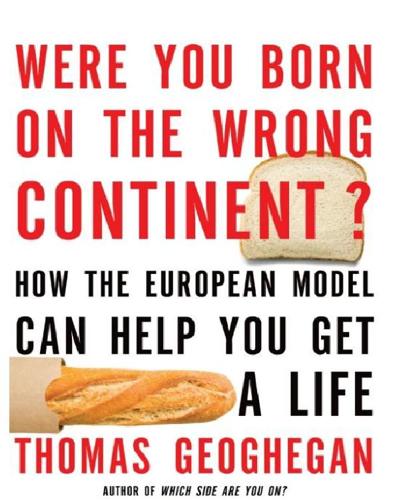
Were You Born on the Wrong Continent?
by
Thomas Geoghegan
Published 20 Sep 2011
I told Tom I was trying to write a book about Europe. “I’m especially interested in Germans and their education system.” He laughed. “Why write about the Germans? You should be writing about the French.” He thought the French were ahead. “I can’t write about the French,” I said. “Why not?” “Have you ever seen Saturday Night Live? Well, they used to have a skit about these aliens, the ‘Coneheads,’ and when they were asked where they were from, they’d say, ‘Oh, we’re from France.’And the point is, it would be like writing about the Coneheads. You see, no one has ever seen French people. They don’t have ethnic neighborhoods.
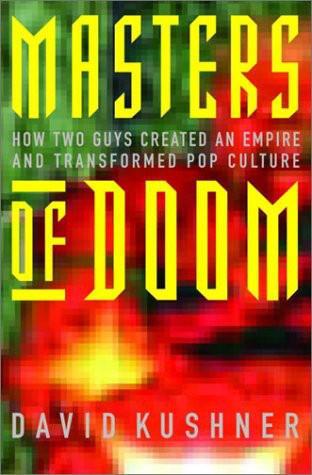
Masters of Doom: How Two Guys Created an Empire and Transformed Pop Culture
by
David Kushner
Published 2 Jan 2003
It happened first outside a CompUSA, when the clerk came sheepishly after Romero, who was getting into his yellow Testarossa, and asked for an autograph. Such displays were becoming a regular occurrence, especially when he donned the “Wrote It” shirt. Gamers began not only asking for autographs but literally falling to their knees and echoing the “we’re not worthy!” refrain that Saturday Night Live characters Wayne and Garth bestowed upon rock royalty. The other guys at id couldn’t believe it. In fact, they were embarrassed by it: We aren’t Metallica, we’re gamers. But as the enigma around the company grew, the fans and media wanted more and more information about just who id was. In response, the guys created a news file that gamers could obtain by sending a message request or, in technical slang, “fingering” id’s computers.
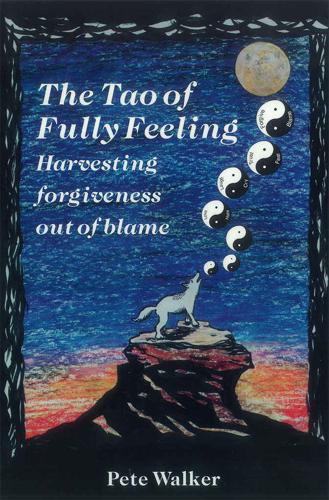
The Tao of Fully Feeling: Harvesting Forgiveness Out of Blame
by
Pete Walker
Published 1 Jan 1995
On those days students drank wine, ate sweets, danced, played games, told jokes and stories, and refused to focus on self-refinement. Most reported that the day helped them to reconnect with the lightheartedness of the child within, which in turn refocused them on attaining balance in their lives. Stuart Smalley, the Saturday Night Live character who lampoons the recovery movement, wrote a delightful book that may help the workaholic recoveree lighten up. It’s whimsically entitled: I’m Good Enough, I’m Smart Enough, and Doggone It, People Like Me! It’s both hilarious and poignant, and there is considerable recovery wisdom veiled within its satire.
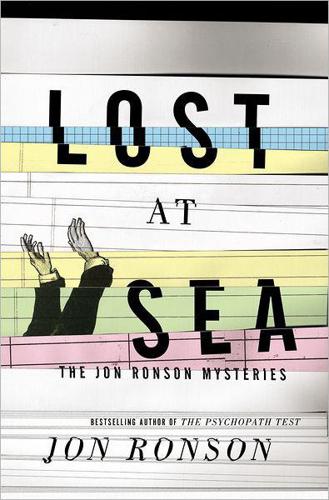
Lost at Sea
by
Jon Ronson
Published 1 Oct 2012
They smoke, but considerately blow the smoke away from my face. “Oh, I’m sorry, let me put that out. That’s some bullshit on my part,” says Shaggy 2 Dope when he sees me flinch slightly away from it. But they also seem melancholy and preoccupied with the negative critical response to “Miracles.” Saturday Night Live just parodied it (“Fuckin’ blankets, how do they work?”), and the Internet is filled with amused and sometimes outraged science bloggers dissecting the lyrics. Violent J and Shaggy have been watching them, they tell me, feeling increasingly saddened and irate. “A college professor took two days out of her fucking life to specifically attack us,” says Violent J.
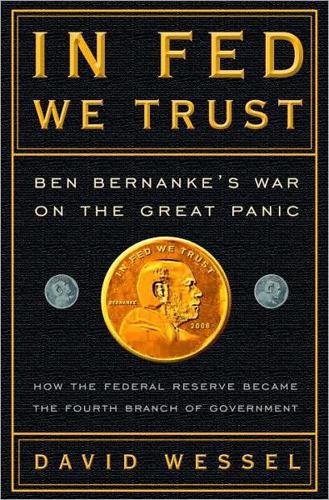
In FED We Trust: Ben Bernanke's War on the Great Panic
by
David Wessel
Published 3 Aug 2009
Appearing younger than his forty-seven years, just two weeks younger than Obama, made it hard for Geithner to project wisdom and experience, and difficult for him to calm the fears of the people and the markets. His habit of answering questions in public as if he were giving a deposition didn’t help. Geithner found himself ridiculed on Saturday Night Live, mocked on YouTube videos, lampooned in political cartoons. The Indianapolis Stars Gary Varvel showed Geithner as an airline pilot, poking his head through the cockpit door and telling alarmed passengers: “I’m Captain Geithner. We’re going to have to try things we’ve never tried before. We will make mistakes.”
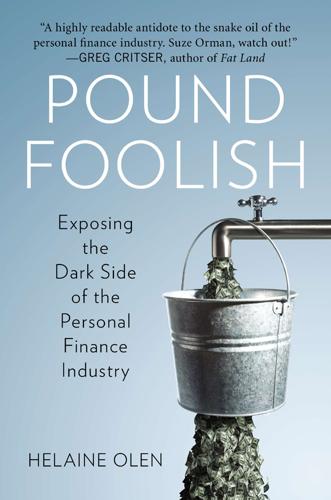
Pound Foolish: Exposing the Dark Side of the Personal Finance Industry
by
Helaine Olen
Published 27 Dec 2012
His four-hour show is designed to appeal to the baby boomers and Generation Xers who make up the bulk of his audience, at least as far as Raleigh goes. There are clips from the Bill Murray cult film What About Bob?, Shrek, and Jerry Maguire. He references Darryl and his other brother Darryl from the beloved 1980s sitcom Newhart. A replay of the hilariously infamous Steve Martin, Chris Parnell, and Amy Poehler Saturday Night Live skit “Don’t Buy Stuff” brings down the house. But mostly there is Dave Ramsey and his snappy one-liners like my favorite, “Life happened without a plan and Visa caught your slack. Guess who had a plan?” Ramsey’s politics can best be described as muddled conservative. He appears regularly on Fox Business News (despite the cancellation of his show), proselytizes for supply-side economics, and in 2010 endorsed unsuccessful Republican candidate Zach Wamp for governor of Tennessee.
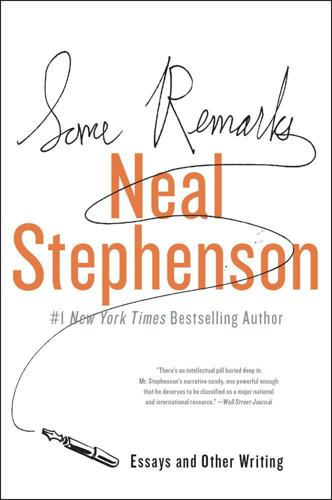
Some Remarks
by
Neal Stephenson
Published 6 Aug 2012
Styled and informed by pulp novels, comic books, video games and Asian martial arts flicks, science fiction eats this kind of material up, and expresses it in ways that look impossibly weird to people who aren’t used to it. Lack of critical respect means nothing to sci-fi’s creators and fans. They made peace with their own dorkiness long ago. Oh, there was momentary discomfort around the time of William Shatner’s 1987 “Saturday Night Live” sketch, in which he exhorted Trekkies to “get a life.” But this had been fully resolved by 2000, when sci-fi fans voted to give the Hugo Award for best movie to “Galaxy Quest,” a film that revolves around making fun of sci-fi fans. The growing popularity of science fiction, the rise of graphic novels, anime and video games, and the fact that geeks can make lots of money now, have given creators and fans of this kind of art a confidence, even a swagger, that—hard as it is for some of us to believe—is kind of cool.
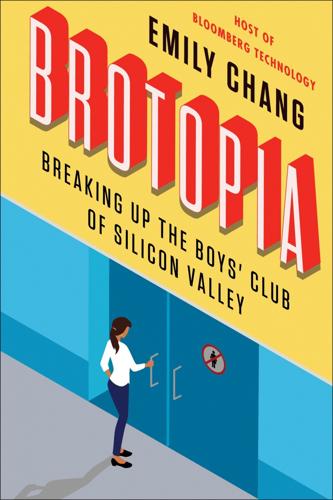
Brotopia: Breaking Up the Boys' Club of Silicon Valley
by
Emily Chang
Published 6 Feb 2018
For many women, especially those in the public eye, the hate being thrown around means the internet at large has become a place where they feel unwanted. Marissa Mayer told me she took a monthlong break from Twitter while she was running Yahoo because “it was just so negative.” In the summer of 2016, the Saturday Night Live star Leslie Jones tweeted, “I feel like I’m in a personal hell,” after she was swamped with racist and sexist attacks sparked by her appearance in the all-female Ghostbusters remake. She also took a break from Twitter, but before leaving, she wrote, “Twitter I understand you got free speech I get it.

Ask Me About My Uterus: A Quest to Make Doctors Believe in Women's Pain
by
Abby Norman
Published 6 Mar 2018
To fathom that level of fatigue, particularly when it has become chronic, and therefore begins to seem normal, is not only challenging, but legitimately depressing. When I happened upon Gilda Radner’s memoir several years ago, in the midst of my own medical turmoil, I grew deeply concerned about her life. The Saturday Night Live alum—wife of Gene Wilder and a gifted comedienne in her own right—left a lasting impression on me. I had not realized that she had died of ovarian cancer; nor had I realized that she was only forty-two years old when she did. What troubled me even more were the passages of her book recounting those final years of her life.

Pure Invention: How Japan's Pop Culture Conquered the World
by
Matt Alt
Published 14 Apr 2020
Sony’s marketing team poured $30 million, unprecedented for a video game, into an all-out media blitz modeled on the campaigns for tentpole American films. They targeted young audiences with ads in Marvel and DC comic books, adults with spots in Rolling Stone, Playboy, and Spin, and everyone with slick commercials that aired in movie theaters, during football games, on MTV, even during Saturday Night Live. “They said it couldn’t be done in a major motion picture,” teased one ad, taking aim at the establishment. “They were right!” Each commercial ended with a close-up of the PlayStation logo, with a young female voice robotically intoning the word as pronounced in Japanese: “purei-sutayshon!” The previous bestselling PlayStation title, the British-made Tomb Raider, sold a very respectable one hundred fifty thousand copies in the first quarter of 1997.
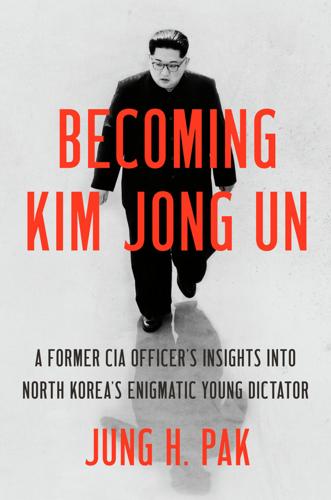
Becoming Kim Jong Un: A Former CIA Officer's Insights Into North Korea's Enigmatic Young Dictator
by
Jung H. Pak
Published 14 Apr 2020
Alexandra Alter of The New York Times noted that “North Korea is a long-running punch line in American pop culture.” In the movie Team America: World Police, Kim Jong Il turns into a cockroach. On the television show 30 Rock, Margaret Cho plays the cheese-loving, cognac-swilling leader Kim Jong Il, and late-night talk and variety shows like Saturday Night Live and The Daily Show have gotten laughs with endless Kim jokes. The Korea historian Charles Armstrong told Alter, “North Korea embodies all the stereotypes of imagery from the Cold War, but in an absurd way, so we can poke fun at it in a way that we couldn’t poke fun at the Soviet Union or Communist China….We don’t take North Korea seriously enough.”
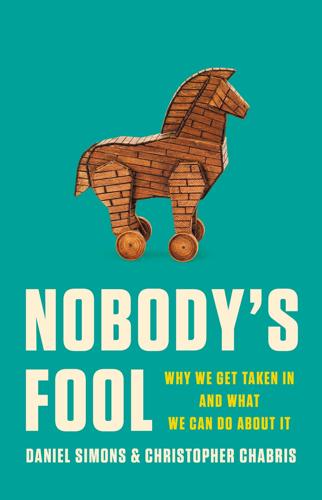
Nobody's Fool: Why We Get Taken in and What We Can Do About It
by
Daniel Simons
and
Christopher Chabris
Published 10 Jul 2023
From Wall Street Ponzi schemes to Nigerian email scams, from chess cheaters with hidden computers to bridge cheaters with covert signaling systems, from psychic mediums preying on credulous audiences to scientific fraudsters making up results their colleagues will believe, from art forgers to deceptive marketers, traps abound. And all successful deceptions have one thing in common: They take advantage of how our minds work. The Saturday Night Live characters Hans and Franz famously said, “Hear us now and believe us later.” The irony of their catchphrase is that by default, we don’t wait until later to believe. Humans operate with a “truth bias”—we tend to assume that what we see and hear is true until and unless we get clear evidence otherwise.
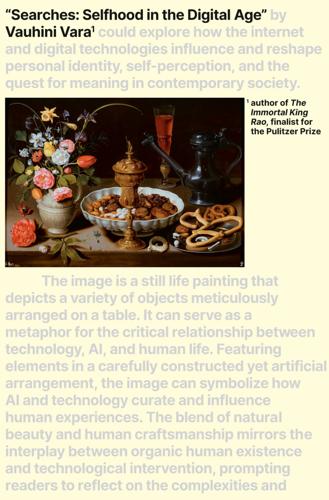
Searches: Selfhood in the Digital Age
by
Vauhini Vara
Published 8 Apr 2025
Tompkins, Peter Baker, Pets, Photographers, Photography, Physics, Podcasts, Podcasts & radio, Poetry, Political News, Political elections, Political figures, Political issues, Politics, Politics and current events, Pop, Princeton University, Professions, Pub games. Quiz games. Racial Equality, Rap, Retail industry, Rex Manning Day, Richa Chadha, Rock, Roger Federer, Rolling Stone, Romance films, Russian political figures. Sacramento, San Diego, San Francisco, San Francisco Giants, San Francisco cultural scene, San Francisco transit, San Jose, Saturday Night Live, Schitt’s Creek, Sci-fi & fantasy, Sci-fi & fantasy books, Sci-fi & fantasy films, Science, Science news, Seasonal cooking, Seth Meyers, Sewell Chan, Shah Rukh Khan, Shoes, Snapchat, Soccer, Social media, Some Good News with John Krasinski, Space, Space and astronomy, Sports, Sports events, Sports figures, Stanford University, Stephen Colbert, Stephen King, Succession, Superstores, Susan Orlean, Swara Bhasker.

Screenplay: The Foundations of Screenwriting
by
Syd Field
Published 17 Dec 2007
Then Lucas and Spielberg left to work on other projects, and Kasdan went into his office and wrote Raiders of the Lost Ark. Writers collaborate for different reasons. There are times, at least on some projects, when screenwriters think it’s easier to work with someone else. Most television writers work in teams, and shows like Saturday Night Live, Desperate Housewives, or the CSI: Miami and CSI: New York shows have a staff of anywhere from five to ten writers working on each episode. A comedy writer has to be both gag-man and audience—a laugh is a laugh. Only the gifted few like Woody Allen or Neil Simon can sit in a room alone and know what’s funny and what isn’t.
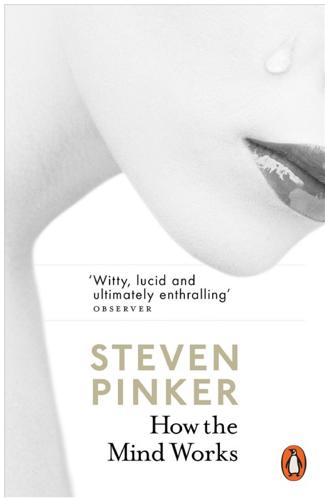
How the Mind Works
by
Steven Pinker
Published 1 Jan 1997
The inferential role of our mental symbol cat would have changed almost beyond recognition. But surely the meaning of cat would be unchanged: you’d still be thinking “cat” when Felix the Robot slunk by. Score two points for the causal theory. A third view is summarized by the television ad parody on Saturday Night Live: You’re both right—it’s a floor wax and a dessert topping. Together the causal and inferential roles of a symbol determine what it represents. (On this view, Swampman’s thoughts would be about my mother because he has a future-oriented causal connection with her: he can recognize her when he meets her.)
…
If so, would they interpret the sounds and images as we intended, or would they hear the voice as the whine of a modem and see the line drawings of people on the cover as showing a race of wire frames? If they understood it, how would they respond? By ignoring us? By coming over to enslave us or eat us? Or by starting an interplanetary dialogue? In a Saturday Night Live skit, the long-awaited reply from outer space was “Send more Chuck Berry.” These are not just questions for late-night dorm-room bull sessions. In the early 1990s NASA allocated a hundred million dollars to a ten-year Search for Extraterrestrial Intelligence (SETI). Scientists were to listen with radio antennas for signals that could have come only from intelligent extraterrestrials.
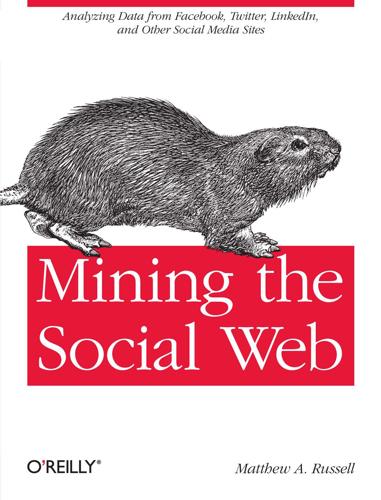
Mining the Social Web: Finding Needles in the Social Haystack
by
Matthew A. Russell
Published 15 Jan 2011
For example, twitter_search.trends() initiates an HTTP call to GET http://search.twitter.com/trends.json, which you could type into your web browser to get the same set of results. As further context for the previous interpreter session, this chapter was originally drafted on a Saturday night, so it’s not a coincidence that the trend SNL (Saturday Night Live, a popular comedy show that airs in the United States) appears in the list. Now might be a good time to go ahead and bookmark the official Twitter API documentation since you’ll be referring to it quite frequently. Given that SNL is trending, the next logical step might be to grab some search results about it by using the search API to search for tweets containing that text and then print them out in a readable way as a JSON structure.
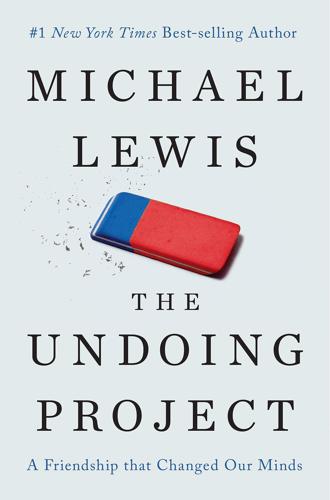
The Undoing Project: A Friendship That Changed Our Minds
by
Michael Lewis
Published 6 Dec 2016
Amos’s three children have vivid memories of watching their parents drive off to see some movie picked by their mother, only to have their father turn up back at their couch twenty minutes later. Amos would have decided, in the first five minutes, whether the movie was worth seeing—and if it wasn’t he’d just come home and watch Hill Street Blues (his favorite TV drama) or Saturday Night Live (he never missed it) or an NBA game (he was obsessed with basketball). He’d then go back and fetch his wife after her movie ended. “They’ve already taken my money,” he’d explain. “Should I give them my time, too?” If by some freak accident he found himself at a gathering of his fellow human beings that held no appeal for him, he’d become invisible.
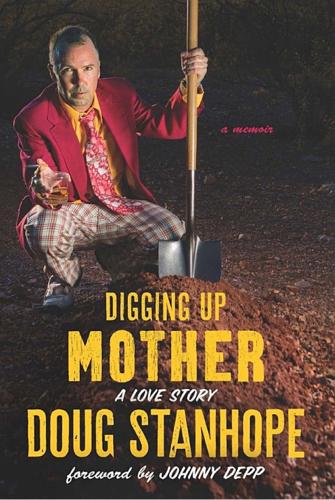
Digging Up Mother: A Love Story
by
Doug Stanhope
Published 9 May 2016
The only teacher I remember ever “getting” me was a French teacher named Gertrude Healy, who was a lot more tolerant of my monkey business. I remember delivering some well-timed heckle that actually landed, and after the laughs Mrs. Healy said, “I can see you some day, Douglas, writing for Saturday Night Live.” That was quite a compliment back then as it was still the late 70s, when SNL was funny. Mrs. Healy went on to flunk me for not one but two years in a row, but I’d never forget the one time some adult outside of Mother got the joke. Most teachers generally found me more disturbing than simply disruptive.

A Demon of Our Own Design: Markets, Hedge Funds, and the Perils of Financial Innovation
by
Richard Bookstaber
Published 5 Apr 2007
And just how much planning can you do when prices are jumping all over the place, anyway? These questions bothered me throughout my MIT catechism. Something was clearly missing in the academic view of the world, something that is immediately apparent once you step into the real world of Wall Street. In one news segment on Saturday Night Live, the newscaster announces, “And today on the New York Stock Exchange, no shares changed hands. Everyone finally has what they want.” The punch line raises a legitimate issue: Why is it that shares are always trading? Why are we never satisfied with what we have? The principal reason that prices vary, especially in the short term, is liquidity demand.
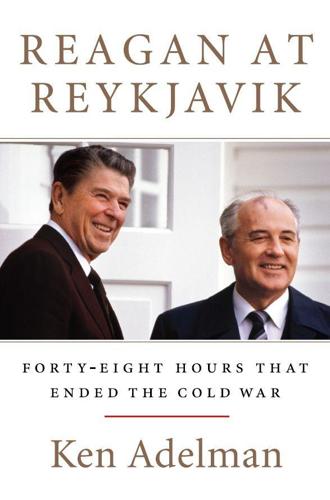
Reagan at Reykjavik: Forty-Eight Hours That Ended the Cold War
by
Ken Adelman
Published 5 May 2014
This was stated as fact, despite our hearing all afternoon that the Western European leaders would feel greater relief if the missiles stayed put. Jennings then turned to his ace White House correspondent Sam Donaldson. By then, Donaldson had become something special in Washington, his aggressive manner being heralded in journalism schools and parodied on Saturday Night Live. A merry pantomime had unfolded whenever the president came or went on the White House lawn. The press would be corralled behind barriers, from which Donaldson would yell out questions. The president would look in Donaldson’s direction, cup his hand behind his ear, and shake his head sadly while shifting his gaze to the waiting chopper, indicating that he couldn’t hear the question because of the loud, whirling blades.

Siege: Trump Under Fire
by
Michael Wolff
Published 3 Jun 2019
The Trump political team would shortly triple down on its closing theme with a nationally aired ad so racially charged that even Fox News, after several airings, declined to run it further. The spot featured Luis Bracamontes, a strangely ebullient murderer who laughed dementedly and boasted about killing cops—more Saturday Night Live than a realistic and threatening figure. Brad Parscale bragged about how cheaply he had produced it; the president was annoyed about not being featured in it. * * * Thematically, the president’s obsession with the caravan, and the deep hatreds that provided the issue’s subtext, seemed of a piece with two other October surprises.

Catch and Kill: Lies, Spies, and a Conspiracy to Protect Predators
by
Ronan Farrow
Published 14 Oct 2019
Only NBC didn’t mention the news that first evening, and only NBC offered no original reporting the next morning. Instead, Craig Melvin, filling in for Lauer, read a script that ran less than a minute and was dominated by Weinstein’s rebuttals to the allegations. That weekend, the pattern repeated: Saturday Night Live, which had eagerly riffed on similar stories about Bill O’Reilly, Roger Ailes, and Donald Trump, didn’t mention Weinstein once. Nevertheless, NBC News was quietly shaping the public narrative around the story. Oppenheim and Kornblau, the head of communications, began talking to media reporters.
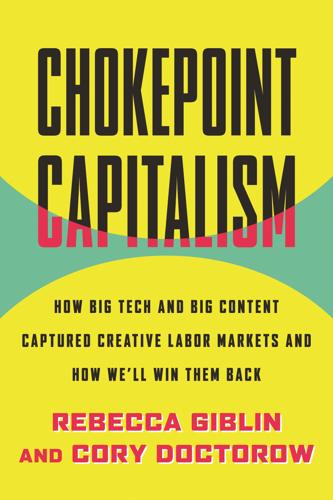
Chokepoint Capitalism
by
Rebecca Giblin
and
Cory Doctorow
Published 26 Sep 2022
By March 2006, YouTube began limiting videos to ten minutes with the intent of eliminating infringing movies and TV shows,3 and even before that, uploads had been kept short by a 100MB file size limit.4 However, unauthorized snippets of highly commercial copyrighted works remained widely available. In December 2005, a two-and-a-half minute Saturday Night Live sketch titled “Lazy Sunday” was famously uploaded. Viewed 1.2 million times in ten days, the clip increased YouTube’s traffic by 83 percent, reignited interest in the fading sketch show, launched Andy Samberg’s career, and catapulted YouTube into mainstream public consciousness. Meanwhile, just a few miles away, Google was struggling to build its own online video offering.
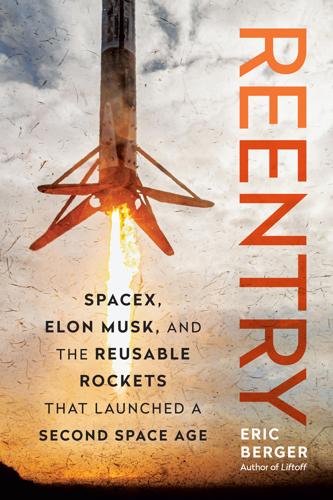
Reentry: SpaceX, Elon Musk, and the Reusable Rockets That Launched a Second Space Age
by
Eric Berger
Published 23 Sep 2024
A small team of engineers worked quickly to develop the vehicle, which was powered by four RL-10 engines. A team of just one hundred people built the original DC-X in a mere twenty-one months, completing the vehicle by the summer of 1993. Painted white and standing thirty-nine feet tall, the DC-X bore resemblance to the bald, conical heads popularized in the Coneheads skit on Saturday Night Live. In August, as the rocket sat on a concrete pad at White Sands Missile Range, seven people crammed into a nearby trailer. Among them was Pete Conrad, the former Apollo astronaut who worked for McDonnell. Under their supervision, the vehicle ascended to 150 feet, moved laterally, and landed down range 350 feet.
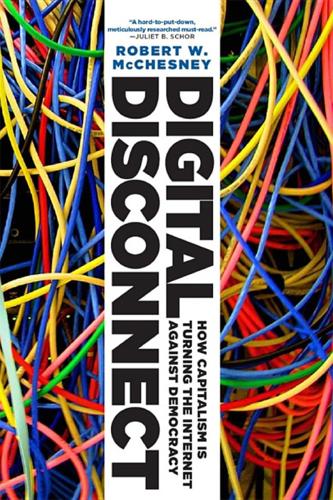
Digital Disconnect: How Capitalism Is Turning the Internet Against Democracy
by
Robert W. McChesney
Published 5 Mar 2013
In particular, its role as paying the piper gave the masters control over the very media system a free people required to address corporate power.101 This radical critique of advertising and the attendant political movements receded from public view in the postwar decades, but advertising remained largely suspect, fodder for comedy due to its insincerity, absurdity, and asininity, as piles of Mad magazines or parodies on Saturday Night Live attest. Meanwhile, considerable scholarship examined the dubious contribution of advertising to the content of American entertainment and journalism. When the Internet emerged, the notion that it would be a distinctly noncommercial space was uncontroversial and widely embraced. I was there and I can tell you that in the early 1990s no one was bellyaching about a lack of advertising on the Internet, or a shortage of advertising anywhere else for that matter.
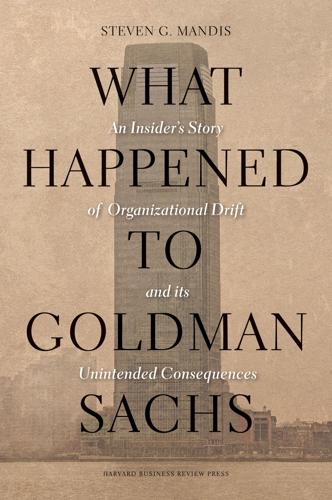
What Happened to Goldman Sachs: An Insider's Story of Organizational Drift and Its Unintended Consequences
by
Steven G. Mandis
Published 9 Sep 2013
Goldman’s procurement of doses of the swine flu vaccine for its employees when the drug was being rationed to hospitals and schools had consequences. People wanted to know why Goldman got as many doses for its bankers as a local hospital got, while people at much greater risk had to wait. “Can you not read how mad people are at you?” demanded Amy Poehler on a Saturday Night Live skit poking fun at Goldman. She added, “When people saw the headline, ‘Goldman Sachs Gets Swine Flu Vaccine’ they were super happy—until they saw the word ‘vaccine.’”3 Clearly, there is a gap between the way Goldman views itself and the way some people outside the firm view it, particularly regarding its government connections and the ethics surrounding its business practices.4 What are the organizational elements that prevent Goldman from noticing, or acknowledging, its changes or their consequences?
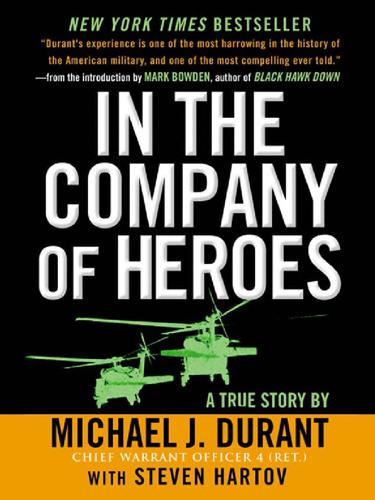
In the Company of Heroes
by
Michael J. Durant
and
Steven Hartov
Published 1 Dec 2006
But he must have warned his gunmen to be mindful of the leg, because they gripped my mat and carefully slid me from my corner of the room to the other side. The wooden bed arrived in pieces. It looked like something from a Sears catalogue, with a polished ornate headboard and smooth dowel supports. Watching four Somali mooryan assemble this thing was almost comical, like some skit out of Saturday Night Live. But when they brought in the mattress, dressed it up with my flowered cotton sheets, and came up with a pillow, it wasn’t funny anymore. Why are they doing all this? I asked myself. Yet at this point there was only one answer. They’re getting ready to release me. And still, I forced that thought down.

Your Face Belongs to Us: A Secretive Startup's Quest to End Privacy as We Know It
by
Kashmir Hill
Published 19 Sep 2023
Yet for more than a year, as thousands of police officers around the country deployed it, Ton-That and Schwartz kept the superpower hidden from everyone else. But not for much longer. Their cover was about to be blown. Chapter 14 “YOU KNOW WHAT’S REALLY CREEPY?” (2011–2019) The comedian turned politician Al Franken was one of the most recognizable lawmakers in Washington, D.C. His time performing on Saturday Night Live had made his broad smile and dimpled jowls famous, and he had put his face on the covers of the bestselling books he had written to skewer political conservatives, including Lies and the Lying Liars Who Tell Them: A Fair and Balanced Look at the Right. After narrowly winning a Senate seat in Minnesota in 2008, he zeroed in on privacy as his signature issue.
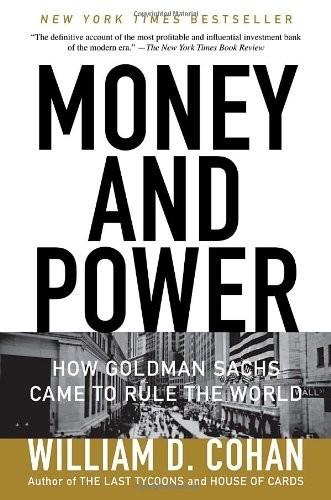
Money and Power: How Goldman Sachs Came to Rule the World
by
William D. Cohan
Published 11 Apr 2011
With Sullivan & Cromwell at its side, Goldman headed off the vast majority of the suits—the last one of which did not get settled until 1968—by compromising and settling. One lawsuit, involving comedian and movie star Eddie Cantor, rattled the firm’s partners especially, not only because Cantor asked for a huge sum in damages—$100 million—but also because Cantor made the firm a punch line in his stand-up routines, not unlike the way Saturday Night Live made fun of Goldman in November 2009 for being given doses of the swine flu vaccine before those perceived to be more in need. Or the way Jon Stewart did in January 2011 when he wondered in the wake of Goldman’s investment in Facebook, which some claimed helped Facebook bend SEC rules that require companies to be public if they have more than five hundred shareholders, “Oh Goldman, is there any regulation’s intent you can’t subvert?”
…
Regis Corporation, 11.1, 11.2 Salem, Deeb, 18.1, 19.1, 22.1, 22.2, 22.3 Salomon, William “Billy” Salomon Brothers, 5.1, 7.1, 9.1, 14.1, 14.2 Salomon Brothers, Inc., 9.1, 9.2, 10.1, 10.2, 10.3, 12.1, 12.2, 15.1, 16.1, 16.2, 16.3, 16.4, 16.5, 17.1, 19.1 capital of Goldman Sachs’s proposed merger with, 16.1, 16.2 securitization by, 18.1, 18.2 Salomon Brothers, overseas offices of Salovaara, Mikael, 12.1, 12.2 Samuelson, Paul, 13.1, 13.2 Sara Lee, 14.1, 17.1 Sarbanes-Oxley Act (2002) Saturday Night Live, 2.1 Saufley Field Savage, Thomas Savitz, Jonathan Sawyer, David Scaramucci, Anthony SCA Services Inc. Schapiro, Mary Schelling, Thomas Schiff, Jacob, 1.1, 1.2 Schoenberg, Eric Scholer, Kaye, 11.1, 11.2 Scholes, Merton Schrader, Edward Schur, Marvin Schwartz, David, 12.1, 14.1, 15.1 Schwartz, Harvey Schwartz, Laura, prl.1, 20.1 Schwartz, Mark, 15.1, 18.1 Schwarzman, Stephen, 22.1, 24.1, 24.2, 24.3 Scotland Scott, David Seagram Building, 6.1, 7.1, 8.1, 14.1 Sealy Sears, Roebuck, 1.1, 1.2, 1.3, 3.1, 3.2, 3.3, 4.1, 5.1 Dean Witter acquired by securities, see also derivatives; “mark-to-market”; mortgage-backed securities Securities Act (1933), 3.1, 4.1 Securities and Exchange Commission (SEC), U.S., prl.1, prl.2, 2.1, 2.2, 3.1, 4.1, 5.1, 7.1, 8.1, 11.1, 11.2, 11.3, 12.1, 16.1, 23.1 American Stock Exchange investigated by Goldman Sachs investigated by, prl.1, prl.2, prl.3, prl.4, 7.1, 7.2, 17.1 insider trading laws and Penn Central lawsuit report of, 7.1, 7.2, 7.3, 7.4, 7.5, 7.6, 7.7 Securities Exchange Act (1934) Securities Industry and Financial Markets Association SEC v.

Gorbachev: His Life and Times
by
William Taubman
And furthermore, his longevity in office might well have been extended if he had received more help from the United States—help that they resisted rendering to him. If Bush trusted Gorbachev more than some of his advisers did, why didn’t he override Scowcroft? Why did he instead order an across-the-board reassessment of U.S. policy toward the USSR, which dragged on through the spring? Partly because, as Dana Carvey’s Saturday Night Live Bush double would have put it, “Wouldn’t be prudent!” Bush was cautious and more than a little insecure. “I don’t want to do anything dumb,” he told Scowcroft in late January.20 He also had a complicated relationship with Reagan and Reaganism that held him back. Bush wanted to emerge from Reagan’s shadow as his own man, “to put his own fingerprint on the country’s foreign policy,” as Baker later put it.
…
Petersburg, 283, 432, 575, 576, 582, 659, 661, 676, 676 see also Leningrad Sajudis, 435 Sakharov, Andrei, xxii, 122, 144, 250–51, 430, 439, 440, 442, 444–48, 447, 453–57, 507, 572 samizdat publications, 249, 339 Sandburg, Carl, 399 San Francisco, 262, 290, 562, 563, 571 Sanya (Gorbachev’s aunt), 23 Saturday Night Live, 470 Saudi Arabia, 570 Savranskaya, Svetlana, 271 Sawyer, Diane, 324 Schabowski, Günter, 462–63 Schmidt, Helmut, 657 Schönefeld Airport, 484 Schröder, Gerhard, 668 Schweitzer, Albert, 572 Science of Logic (Hegel), 86 Scowcroft, Brent, xxii, 396, 458, 469–71, 494, 496, 499, 543, 551, 553, 585, 588, 618, 623 SCUD missiles, 566 Second Medical Institute, 166 Secret Service, U.S., 407 Seminars at the Historical Archives Institute, 338 Semipalatinsk testing range, 394 Senate Building, 206 Serbia, 692 serfdom, 10, 34, 435 Sevastopol (city), 372, 629 Seville World’s Fair (“Expo-92”), 656 Shakespeare, William, 260, 441 Shakhnazarov, Georgy, xxii, 4, 92, 123, 126, 141, 144, 172, 178, 217, 223–25, 223, 227, 233, 254, 267–70, 346, 347, 353, 364, 364, 371, 373, 378, 379, 383, 386, 434, 449, 453, 459, 460, 466, 480–81, 502, 505, 506–7, 512, 515, 517–19, 525, 530, 535, 538, 543, 575, 581, 583, 584, 585, 607, 619, 623, 625, 626, 650, 654, 660, 663 Shalayev, Stepan, 328 Shales, Tom, 404 Shamir, Yitzhak, 631 Shapko, Valery, xxii, 51–52 Shaposhnikov, Yevgeny, xxii, 630, 635, 636, 638, 647 Sharansky, Natan, 201 Shatalin, Stanislav, xxiii, 511, 523, 524, 527, 531, 534 Shatrov, Mikhail, xxiii, 340, 346, 359 Shchelokov, Nikolai, 181 Shcherbakov, Vladimir, 592, 593 Shcherbitsky, Vladimir, xxiii, 206, 221, 226, 349 Shebarshin, Leonid, 621 “sheep empire,” 131, 160 Shenin, Oleg, xxiii, 533, 577, 601, 607–9 Shevardnadze, Eduard, xxiii, 2, 162, 173, 210, 220, 221, 232, 248, 257–60, 265, 268, 281, 294, 296, 305, 308, 328–29, 349, 353, 376–78, 394, 398–401, 418, 419, 436–37, 443, 451, 470, 473, 474, 488, 491, 499, 506, 511, 520, 521, 531, 532, 535, 536, 540, 542, 543, 546, 548, 553, 554, 563, 565–67, 575, 617, 637, 654, 752n Shevardnadze, Nanuli, 418, 473 Shevchenko, Vladimir, 261 Shmelyov, Nikolai, xxiii, 93, 233, 359, 370, 430 “Shock Worker” fabric, 68 Shostakovich, Dmitri, 561 Shultz, George, xxiii, 257, 276–78, 281, 282, 287, 291, 292, 296–301, 302, 305, 357, 377, 394–96, 398–402, 404, 405, 408, 410, 412, 413, 418, 419, 422, 423, 468, 469, 562, 683 Shultz, Helena, 401, 410, 418 Shushkevich, Stanislav, xxiii, 627–30, 634 Siberia, 10, 12, 59, 63, 71–72, 74, 75, 186, 222, 237, 249, 432, 444, 504, 566, 662 Sicily, 150 Silayev, Ivan, xxiii, 523, 532, 532, 613 siloviki (power) ministers, 584 Simons, Thomas, 301–2, 396, 412, 414–15 Simpson, Alan, 405, 406 Sinyavsky, Andrei, 92 Sitaryan, Stepan, 565 Slansky, Rudolf, 54 Slava (Soviet cruiser), 495 Slavsky, Efim, 241 “Sleep and Dreaming in the Teaching of I.
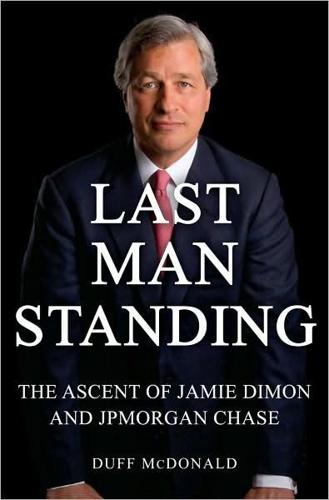
Last Man Standing: The Ascent of Jamie Dimon and JPMorgan Chase
by
Duff McDonald
Published 5 Oct 2009
About $500 billion was withdrawn from money market funds in the two weeks that followed Lehman’s collapse. On Tuesday, September 16, the government chose to rescue the insurance giant AIG with an $85 billion loan, just one day after Lehman had been deprived of such largesse. (By April 2009, the total amount thrown at AIG was $162.5 billion and climbing.) The firm was later mocked on Saturday Night Live for sending executives on a swank retreat just days after receiving the bailout funds. The next day, the Dow fell another 499 points. Investors, it seemed, were losing their last vestiges of faith in the system. On Friday, September 19, Hank Paulson and the Fed’s chief, Ben Bernanke, floated a bailout proposal to Congress that was not rejected out of hand.
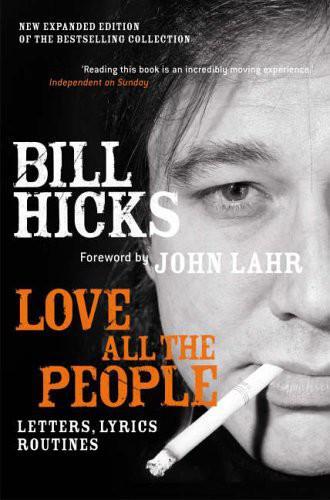
Love All the People: Letters, Lyrics, Routines
by
Bill Hicks
Published 2 Jan 2005
Dick Clark (b. 1929) presented American Bandstand on the ABC network between 1957 and 1987. He was long known as America’s Oldest Teenager’. To this day he retains his boyish good looks. 2. A former Pentecostal Preacher, Sam Kinison (1953-92) featured on numerous cable comedy specials and guested regularly on Saturday Night Live. In the late eighties he performed with Mötley Crüe and Ozzy Osbourne. His comedy was marked by a relentless and sometimes disturbing honesty about sex, politics and religion. He died in a car accident in 1992. Hicks was 17 years old when he started to work with Kinison and the other Texas Outlaws, Riley Barber and Carl LaBove.
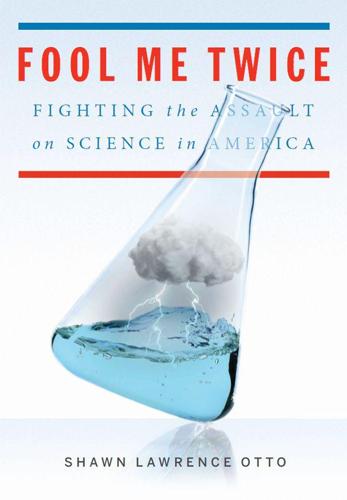
Fool Me Twice: Fighting the Assault on Science in America
by
Shawn Lawrence Otto
Published 10 Oct 2011
“But just to keep things in balance there is a widespread feeling among our young people that no one over 30 understands them.”14 These baby boomers, feeling powerless, needed an outlet for their anger and moral distrust of the older generation, so they adopted the protest songs of folk music. Singer-songwriter Bob Dylan became an overnight sensation, the “poet to a generation.”15 Satire became a dominant cultural art form, lampooning all kinds of authority for its hypocrisy and failure. The Graduate, Catch-22, One Flew Over the Cuckoo’s Nest, MAD magazine, Dr. Strangelove, Saturday Night Live, and many other satirical cultural touchstones were fueled by rage against the dominant culture. The hilarious, humanitarian, childlike but darkly pessimistic novels of Kurt Vonnegut Jr. became runaway hits. In 1970, Vonnegut gave a commencement address at Vermont’s Bennington College in which he famously said, “Everything is going to become unimaginably worse and never get better again.”16 He cautioned the baby boomers that “we would be a lot safer if the Government would take its money out of science and put it into astrology and the reading of palms.
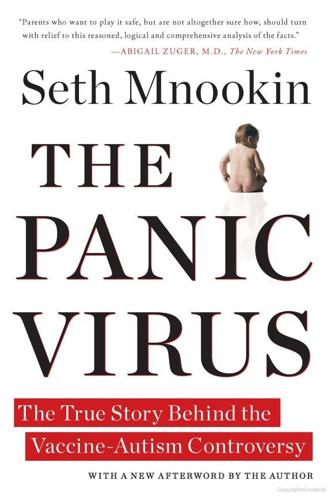
The Panic Virus: The True Story Behind the Vaccine-Autism Controversy
by
Seth Mnookin
Published 3 Jan 2012
I also work in a developmental clinic for premature infants, and often the most distressing part of dealing with these kids are things like feeding disorders or bowel disorders. . . . I thought it was nice that someone was finally paying attention.” Despite her open-mindedness, soon after the committee was formed, SafeMinds members began to refer to McCormick as “Church Lady,” a reference to the sanctimonious Saturday Night Live character played by Dana Carvey in the 1980s. At one point, Liz Birt was given a voodoo doll of McCormick so she could stick it “full of pins.” Another time, after McCormick had told reporters that thimerosal had not been “proven to be dangerous,” Lyn Redwood wrote in an e-mail, “I am out for blood here.
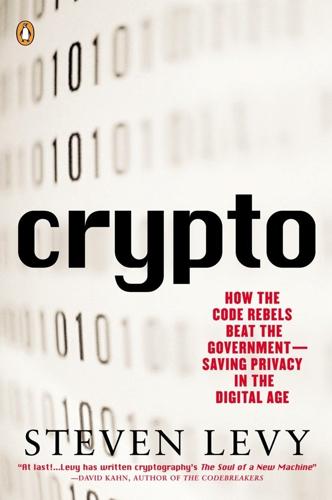
Crypto: How the Code Rebels Beat the Government Saving Privacy in the Digital Age
by
Steven Levy
Published 15 Jan 2002
Eschewing DES and the RSA-owned RC-2 standard devised by Ron Rivest, he attempted the risky course of producing his own cipher. It was based on the one that Charlie Merritt had taught him, the cipher Merritt had produced for the navy. But Zimmermann toughened the system by introducing multiple rounds of substitution. As he refined his concept, he recalled a Dan Aykroyd routine from the original Saturday Night Live television show. Portraying a fast-talking late-night huckster, Aykroyd hawked a blender so powerful that you could throw a fish into it: the liquefied output would be a healthy juice (yum). This was the Bass-O-Matic, a perfect name, Zimmermann figured, for an encryption algorithm. Any cryptanalyst who confronted his scrambled messages would be as ineffectual at reconstructing them, he hoped, as someone attempting to reconstitute a silvery, flopping fish from the noxious goo emerging from the Bass-O-Matic blender.
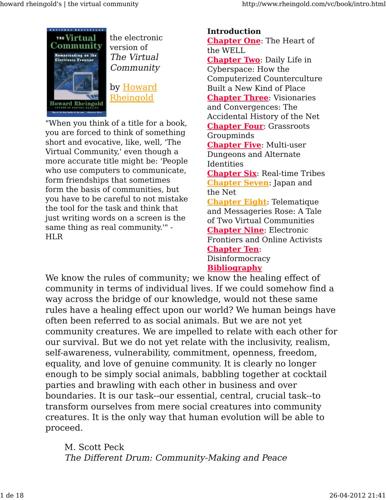
Howard Rheingold
by
The Virtual Community Homesteading on the Electronic Frontier-Perseus Books (1993)
Published 26 Apr 2012
Why do people pretend they are characters in a television program? Perhaps the most well known "fan culture" in the material world is the international, intergenerational cult of Star Trek enthusiasts--"trekkies." They have newsletters and fanzines and conventions. They were even mocked on "Saturday Night Live" when William Shatner, the actor who played Captain Kirk of the original Starship Enterprise, told an audience of Trekkies at a fictional convention to "get a life." One honest answer to the question "Don't these people have lives?" is that most people don't have a terribly glamorous life. They work, they subsist, they are lonely or afraid or shy or unattractive or feel that they are unattractive.
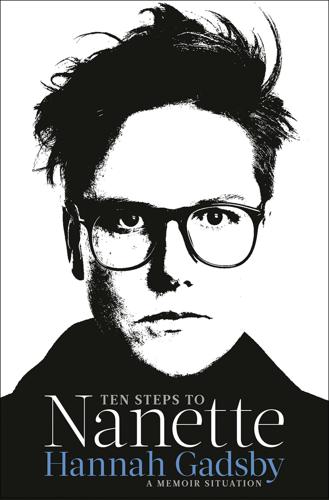
Ten Steps to Nanette: A Memoir Situation
by
Hannah Gadsby
Published 15 Mar 2022
But I didn’t do the crowning, so I don’t know what the fuck they want me to do about it. Ultimately, I don’t feel compelled to defend Nanette as comedy, because that’s a dull game, but I do want to take a moment to directly address any Americans who may be reading this: your comedy gods are not mine. I have heard all about your Saturday Night Live thing; and I acknowledge its place in your pantheon of yuk-yuks—but ultimately, it means nothing to me. SNL could be a freight company for all I care. All jokes aside, which is what got me into this mess to begin with, I should stress that the Australian comedy scene is very, very different to the American model, and that my work is not simply a reflection of who I am as an individual, but also very richly informed by the culture and circumstance of where I learnt my craft.[*15] I am what you could call a “festival comic,” which means I am something of a long-form comic.
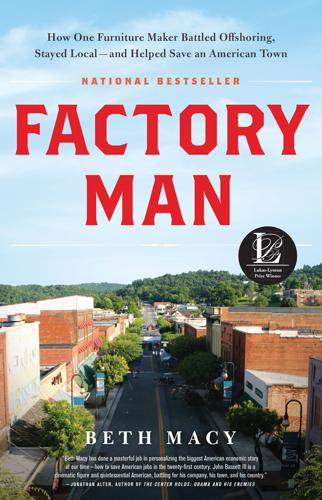
Factory Man: How One Furniture Maker Battled Offshoring, Stayed Local - and Helped Save an American Town
by
Beth Macy
Published 14 Jul 2014
Some were papered in fake marble. An entertainment center called Good Vibrations came with your choice of fake marble, fake wood, or mirrors, and it had compartments for a television and a stereo, as well as a rack for shot glasses and a bottle of, say, Courvoisier, like something from “The Ladies’ Man,” that old Saturday Night Live sketch. One dresser was so wobbly that the plant manager had to put it on skis. “It was actually a shim, with two pieces of wood to make the dresser stable enough that it wouldn’t tip over, but it was just like a person wearing skis,” recalled Bob Merriman, Vaughan-Bassett’s longtime sales chief and a board member of V-B/Williams.
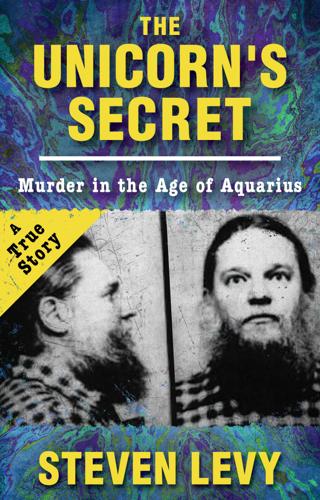
The Unicorn's Secret
by
Steven Levy
Published 6 Oct 2016
To a local business leader about city politics. To a well-known economist about her theories on matriarchy. To a British reporter about CIA activities in covert psychic warfare. To a television producer about the possibility of Einhorn’s doing regular appearances on a youth-oriented television show to appear opposite “Saturday Night Live.” He sorted through papers for possible network distribution. He maintained his regimen of a book a day, and often more. He saw movies. Delighted by The China Syndrome (as a solar energy activist how could he not be?), he wrote a friend, “Jack Lemmon should get an Academy Award … the nuclear issue is going to heat up.”
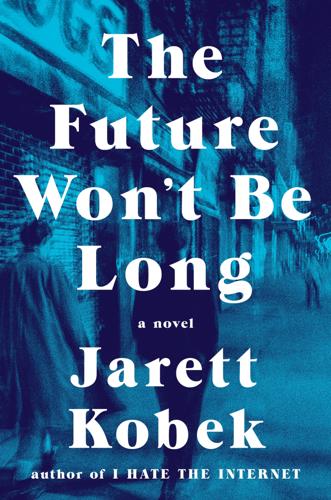
The Future Won't Be Long
by
Jarett Kobek
Published 15 Aug 2017
Led by President George Herbert Walker Bush, this military escapade was directed against the Iraqi dictator, Saddam Hussein, who’d invaded the Arabian country of Kuwait. Yours truly was one of the very first Americans to hear about Hussein’s invasion. I’d been up all night, working on a problematic illustration, with the television droning a rerun of Quincy Jones hosting Saturday Night Live when the screen went solid blue, reading only the words SPECIAL NEWS BULLETIN. Coming in the middle of a comedy program known for its satire of contemporary affairs, I assumed that I was watching a very poor gag, but soon realized that this was legitimate product. No images, only the lone voice of whoever was hanging around the studio at 12:45 am, announcing the Iraqi invasion of Kuwait.
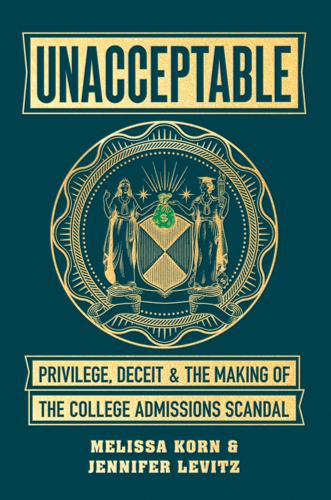
Unacceptable: Privilege, Deceit & the Making of the College Admissions Scandal
by
Melissa Korn
and
Jennifer Levitz
Published 20 Jul 2020
And confirmation, in the view of many, that the admissions system is not fair. The internet lit up with memes about Aunt Becky’s betrayal, a reference to Loughlin’s character on Full House, and the scandal trended on every major news outlet. Late-night comedians readied their laugh lines for the day and Saturday Night Live writers made space for a new sketch, while politicians and academics rushed to opine. Companies began quickly canning employees named in the scandal. Bill McGlashan submitted his letter of resignation to private equity firm TPG around 1:55 p.m., while the company sent him a note at 2:04 p.m. saying he was being terminated for cause and that they’d already been writing it when his resignation came through.

The Controlled Demolition of the American Empire
by
Jeff Berwick
and
Charlie Robinson
Published 14 Apr 2020
But nothing is even in the same class as Western civilization, which is responsible for almost all the good things that we have in the world today. But it’s dying—being murdered really. Western civilization is in collapse, and it’s being replaced by an unnamed system, but let’s call it political correctness. So what is political correctness? When I first heard the term, it was on Saturday Night Live early in the eighties. I thought it was a punchline in a skit, where a comedian acting PC was the butt of a joke. But it was completely serious, and the PC meme has now conquered Western society. The concept of political correctness should be considered perverted, degraded, and antihuman, akin to the related Soviet notion of being “politically unreliable”.
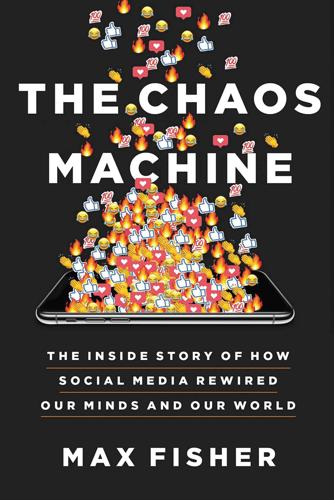
The Chaos Machine: The Inside Story of How Social Media Rewired Our Minds and Our World
by
Max Fisher
Published 5 Sep 2022
Launched in early 2012 at YouTube, this new system’s powers extended beyond mere search results. Imagine watching, say, a clip of a 2012 presidential debate. The page would now recommend, alongside your video, thumbnails of a dozen others you might watch next: a video of Obama’s worst gaffes, a Saturday Night Live spoof, a vlogger decrying Mitt Romney’s policies. Once the video you’re watching ends, the system will even pick one of these to automatically play next. Each is selected from among YouTube’s billions of videos by a corporate A.I. shorthanded as “the algorithm”—one of the most powerful machine-learning systems in consumer tech.
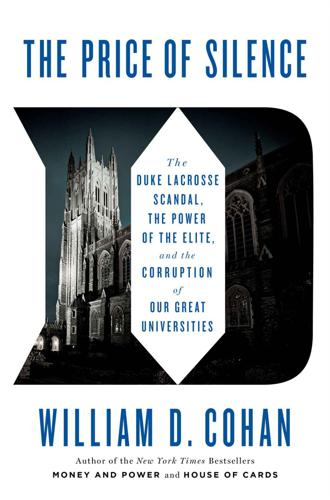
The Price of Silence: The Duke Lacrosse Scandal
by
William D. Cohan
Published 8 Apr 2014
“It’s all about being there for them.” Asked whether a vindication for his three former players would mean vindication for him, he replied, “Like I said, I’m here for the guys and all those things will happen in time.” Were the players innocent? “We believe in the truth,” he said. “That’s what we believe.” Late that night, Saturday Night Live spoofed the lacrosse case in a skit that feautured comedian Amy Poehler as a “sour-faced” Nancy Grace, the outspoken television host, delivering a Christmas message. It turned out Poehler’s Grace was upset that many people had now concluded that Mangum was probably lying about being raped by Seligmann, Finnerty, and Evans.
…
See also Reitman, Janet Roosevelt, Theodore, 237 Rose, Michael, 286 Rose, Tammy, 28, 71 Ross, Bobby, 546 Ross, John Brad (lacrosse player): Mangum identifies, 190, 191 Mangum identifies (falsely), 67 as McFadyen’s roommate, search of dorm room and, 116–17 not present at March 13 party, 116–17, 191 Rossen, Jeff, 597 Rouse, Katharine, 487–89 Royer, Chip, 355 Royster, Lee, 44 Rubenstein, David, 600 Rubin, Michael, 158 Russell, Hamish (lacrosse player), 267 Rutgers University, 217 Saacks, David, 75, 77, 79, 196, 572 Nifong’s contempt trial and, 572 Saeli, Brent, 122, 497 Safire, William, 339 Sale, Joyce, 34 Salovey, Peter, 159 Sandoval, Amada, 611 Sanford, Terry, 83, 142 Sarvis, Ed, 47, 50, 52, 58 Saturday Night Live, 436 Sauer, KJ (lacrosse player), 36, 37, 204 Saunders, Barry, 582, 589 Saunders, Dick, 288 Savarino, Debbie, 216, 577 Scales, Deacon James, 258 School of Hawthorne, The (Brodhead), 154 Schroeder, Rob (lacrosse player), 254–55, 270 Schumoski, Carole, 28 Selig, Scott, 68 Seligmann, Kathy, 261, 262–63, 266 60 Minutes interview, 475 Seligmann, Philip, 137, 261, 263, 378–79, 498, 517 Seligmann, Reade (lacrosse player), xi, 137, 255, 268 alibi for, 267, 271–72, 279, 281, 283, 285, 315, 323, 335–36, 385, 428, 476 arrest and posting of bail, 265–66 attempting to finish studies, 2006, 339, 366, 379 attorneys for, 261–62, 266, 270, 292–93, 314, 323, 428 (see also Cooney, Jim; Osborn, Kirk) bail and bail reduction, 260, 314, 338, 378–79 at Brown University, 547 cell phone records, 465–66 character and personality, 366, 385 charges against, 251 charges against dropped and AG declares innocent, 504–6 charges’ impact on life of, 366 civil lawsuit against Duke and financial settlement, 548, 568–71 civil lawsuit against Durham and Durham police, 581–84 decision not to return to Duke, 410, 457, 459, 485, 507, 547 Delbarton Medal awarded to, 554 DNA evidence and, 326, 335, 431, 434 Duke administration’s treatment of, 406 Duke’s reinstatement of, 410–11, 456–57 first hearing and harassment of, 336–38 girlfriend of, 263 home of, 251, 262, 366, 459 indictment of, 250, 260–63 interim suspension of, 269 letter to author, 603–4 life after exoneration, 602–4 Mangum identifies, 63, 67 Mangum identifies as her attacker, 190, 192, 283, 428 Meadows’s sympathetic article on, 459–60 media pursuit of, 266, 459 NTO photographs and, 78 opinion of Nifong, 530 rape charge against dropped, 447 refuses author’s request for interview, 604 search of dorm room, 269–71 Sheck and, 581, 602–3 60 Minutes and, 404, 406, 530 testimony at state bar trial against Nifong, 553–55 Semans, Mary, 181 “Sex, Scandal, and Duke” (Reitman), 355–60, 387, 399, 596 Shabazz, Malik Zulu, 303, 311, 312 Shabazz, Yusuf, 312 Sharpton, Al, 258, 273, 281 Shay, Andy, 340 Sheck, Barry, 581, 602–3 Sheehan, Ruth, 108–9, 320, 371–72, 413–14, 455–56, 476 Shelton, John, xi, 58 determination of Mangum’s mental illness, 25–26 dispatch to 610 North Buchanan Blvd., 24, 59 dispatch to Kroger market and account of Mangum state, 24–26, 256–57 doubts Mangum’s credibility, 27, 113 Mangum makes statement to, 27 Shepherd, James, 313 Sherwood, Chuck, 275 Sherwood, Devon (lacrosse player), 17, 275, 410 Good Morning America interview, 417–18 Shungu, Nick, 322 Sigma Alpha Epsilon (SAE), 45, 608 disaffiliation and rape allegation, 46 Sigma Nu “Halfway House,” 48 Simeon, Mark, 261, 282–83 Simon, Tanya, 403 “Sister Sasha,” 311 60 Minutes: Bradley segment on lacrosse case, 403–7, 408, 428, 437 Stahl segments on lacrosse case, 474–75, 476, 528–30 video of Mangum dancing and, 407, 408, 415, 515 Skorton, David, 608 Skube, Michael, 259, 454–55 Slate, 394 Smith, Alisa, 184 Smith, Bill, 389–90 Smith, David, 412 Smith, Dean, 2, 577 Smith, Gary, 60, 254 Smith, George, 176 Smith, Kathleen, 181, 348 Smith, Malbert, 136, 184 Smith, Mariecia, 26, 60, 364 Smith, Toni, 75 Smith, Wade, xii, 240, 249, 253, 325, 326, 382, 401, 506, 509, 565 on AG’s takeover of prosecution, 474 Nifong’s dropping of rape charge and, 448, 450 Nifong’s reaction to exoneration of players and, 525 Smith, Judge W.
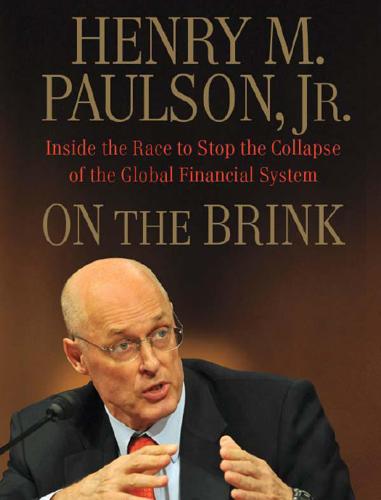
On the Brink: Inside the Race to Stop the Collapse of the Global Financial System
by
Henry M. Paulson
Published 15 Sep 2010
Fortunately, I had been forging relationships on both sides of the aisle. One was with longtime Democratic congressman Barney Frank of Massachusetts. With his gravelly voice and pugnacious demeanor, Barney is famous not only inside the Beltway but, for wildly different reasons, to fans of The O’Reilly Factor and Saturday Night Live. Barney’s a showman with a quick, impromptu wit. But he’s also a pragmatic, disciplined, completely honorable politician: he never once violated a confidence of mine. Secure in his seat, he pushes for what he thinks is right. To get things done, he’s willing to deal, to take half a loaf. Right from the start, he indicated that he was willing to work with me on GSE reform, hashing out the issues of portfolio limits and regulation.
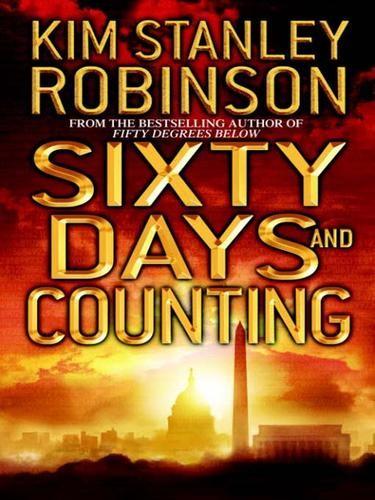
Sixty Days and Counting
by
Kim Stanley Robinson
Published 27 Feb 2007
It was like it had been for Frank when trying to evaluate Chessman as a chess player. Once while waiting for Nick to get ready, Frank had posed the three-box problem to Anna, and she had repeated his scenario carefully, and squinted, and then said “I guess you’d want to change to that other box, then?” and he had laughed and put out his hands and bowed like the kids on Saturday Night Live. And this was just the smallest kind of indicator of her quickness—of a quality of thought Frank would have to characterize as boldly methodical. Charlie only grinned at the exchange and said, “She does that kind of thing all the time.” He would never see the style of her thought well enough to know how to admire it.
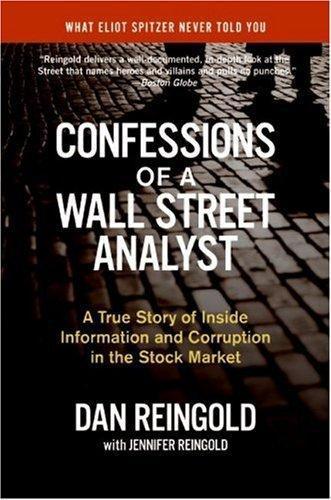
Confessions of a Wall Street Analyst: A True Story of Inside Information and Corruption in the Stock Market
by
Daniel Reingold
and
Jennifer Reingold
Published 1 Jan 2006
And although I was still embarrassed by ostentation, I made sure the conference had all the trappings that executives and investors expected. I worked with a conference planner to choose entertainment, considering a lot of big-name performers, but ultimately chose the less showy comedian Darrell Hammond, the Saturday Night Live comedian most famous for his Bill Clinton impersonations. Unfortunately, Hammond bombed. He made a lot of jokes about undeserving rich people that didn’t go over too well in this crowd. We also set up something called a “Telecom Café,” which had tons of Bloomberg machines for instant quotes and research, and flat-screen TVs so people could watch financial news shows.

Sandy Hook: An American Tragedy and the Battle for Truth
by
Elizabeth Williamson
Published 8 Mar 2022
“We suck at dealing with abuse and trolls on the platform and we’ve sucked at it for years,” former chief executive Dick Costolo wrote in an internal memo in 2015.[14] A year later, Charlie Warzel, then a senior tech writer for BuzzFeed, investigated Twitter’s abuse problem in an article titled “ ‘A Honeypot for Assholes’: Inside Twitter’s 10-Year Failure to Stop Harassment.”[15] Several women and people of color had left the platform in 2016, amid torrents of abuse and threats, including Leslie Jones, then at Saturday Night Live. “Fenced in by an abiding commitment to free speech above all else and a unique product that makes moderation difficult and trolling almost effortless, Twitter has, over a chaotic first decade marked by shifting business priorities and institutional confusion, allowed abuse and harassment to continue to grow as a chronic problem and perpetual secondary internal priority,” wrote Warzel, who now writes for The Atlantic and Galaxy Brain, an online newsletter.
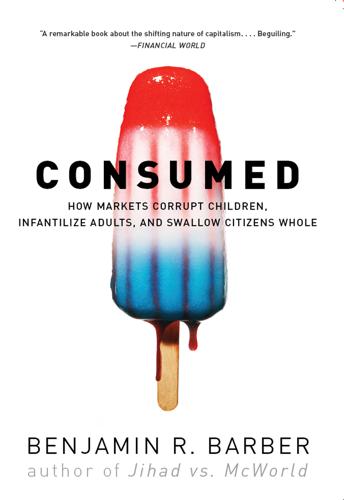
Consumed: How Markets Corrupt Children, Infantilize Adults, and Swallow Citizens Whole
by
Benjamin R. Barber
Published 1 Jan 2007
Naylor, Affluenza: The All-Consuming Epidemic (San Francisco: Berrett-Koehler Publishers, 2001), pp. 14–15, a popular book based on the television documentaries of the same name. 33. See Nick Burns, “Shaving with Five Blades When Maybe Two Will Do,” New York Times, January 19, 2006. Thirty years ago, the television comedy show Saturday Night Live mocked a triple-track three-bladed razor with the slogan “Because you’ll believe anything.” 34. Weber, The Protestant Ethic and the Spirit of Capitalism, p. 182. 35. Wilhelm Röpke, A Humane Economy: The Social Framework of the Free Market (Indianapolis, Ind.: Liberty Fund, 1971), p. 113. 36.
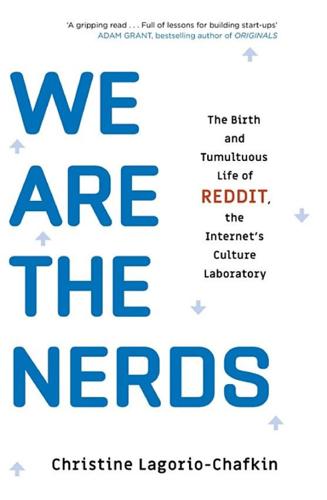
We Are the Nerds: The Birth and Tumultuous Life of Reddit, the Internet's Culture Laboratory
by
Christine Lagorio-Chafkin
Published 1 Oct 2018
Co-created by former Morgan Stanley analyst Joshua Schachter, Delicious had earned Graham’s esteem after it directed significant traffic to some of his essays, which had been boosted to its “popular” page. Clicking on that particular tab on Delicious yielded a delightful mix of content, from highly technical Linux how-tos to general-interest links to Saturday Night Live clips and Roger Ebert’s best movie list for the year. In Graham’s mind, the Delicious page was good—but it could be far better. The root of the site’s problem was in its utility: Many people used it as a bookmarking site, which meant its content veered toward longer articles and journals and programming guides individuals were saving for later rather than things they simply loved and were currently reading.
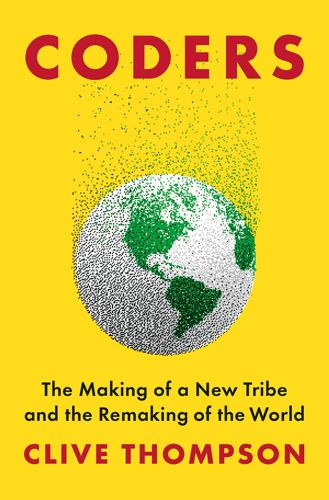
Coders: The Making of a New Tribe and the Remaking of the World
by
Clive Thompson
Published 26 Mar 2019
If you could figure out how to utilize it, you would unlock a huge amount of uploading power. The trick was getting lots of people to use their upload capacity together, in cooperation. And that’s how Cohen devised the central concept of BitTorrent. It would break the huge file—like last night’s episode of Saturday Night Live—into small pieces, and share them among several people online, “peers.” When someone wanted to download that episode, they’d collect the little pieces from all those peers. Sure, each individual peer had a tricklingly slow upload speed, but if 30 of them all streamed their piece at the same time, the entire file would arrive at the downloader’s computer in a brisk flow.

Evil Geniuses: The Unmaking of America: A Recent History
by
Kurt Andersen
Published 14 Sep 2020
A single two-year period in the mid-’70s seems like a hinge moment in this regard: the Vietnam War ended, the oldest baby boomers turned thirty, the youngest baby boomers entered puberty, Rolling Stone moved from a hippie dump in San Francisco to a fancy Establishment building in midtown Manhattan, the new president was a Dylan fan, Saturday Night Live went on the air, the Apple II was invented, and Microsoft was founded. In retrospect, Milton Friedman’s 1970 manifesto on behalf of shameless greed amounted to a preliminary offer by the philosopher-king of the economic right to forge a grand bargain with the cultural left. Both sides could find common ground concerning ultra-individualism and mistrust of government.
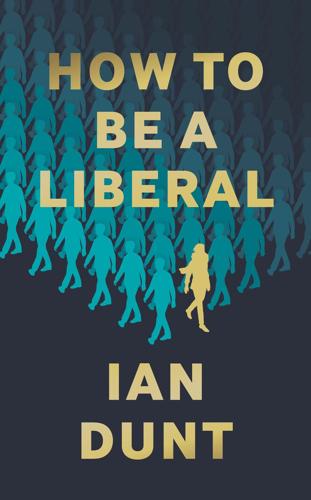
How to Be a Liberal: The Story of Liberalism and the Fight for Its Life
by
Ian Dunt
Published 15 Oct 2020
Campaigners insisted that the prohibition only held when the dominant culture appropriated an item from a marginalised culture, but in fact the attacks were far broader. The singer Bruno Mars – of Jewish, Puerto Rican and Filipino heritage – was accused of appropriating ‘black music.’ The Trinidad and Tobago-born rapper Nicki Minaj was accused of appropriating Chinese culture when she performed her song ‘Chun-Li’ on the US TV show Saturday Night Live. The cultural appropriation argument contained a grain of truth. Cultural mixing is frequently unequal and, historically, has often taken place as a result of war or colonialism. Even in peacetime, racism and inequality have tended to scar cultural exchange. It was because of racism, for instance, that the black pioneers of rock and roll were ignored, in favour of the white Elvis Presley.

Rikers: An Oral History
by
Graham Rayman
and
Reuven Blau
Published 17 Jan 2023
So my task was to just stay awake. Not to nod off. So at one point the mayor is yakking to someone from the community and Tony needs to go to the bathroom. We are all on the dais. And when he walks down, he’s met by his security of like six guys. The earpieces. They walk him right up the middle. It was like a Saturday Night Live skit. People were wondering who that guy was. I think that was the last straw for the mayor. But that’s the kind of place it can be. Early on I was going to a meeting and I saw some of the correction guys leaving where I was going. I asked where they were going. “Advance!” That’s what they do.

Spies, Lies, and Algorithms: The History and Future of American Intelligence
by
Amy B. Zegart
Published 6 Nov 2021
But they are also leveling the intelligence playing field and making open democratic societies more vulnerable. To give just one example, President Trump’s Twitter feed became an open-source intelligence gold mine for foreign actors, providing a steady stream of information about the president’s opinions on matters from the frivolous (whether he liked the latest Saturday Night Live episode) to the consequential (whether the secretary of state should negotiate with North Korea).41 The tweets conveyed what Trump thought, felt, and prioritized; what actions or words elicited different responses from him; and whose opinion he valued. It’s believed about half of Trump’s tweets came directly from him.42 The U.S.

The War Came to Us: Life and Death in Ukraine
by
Christopher Miller
Published 17 Jul 2023
Zelensky was a writer, director, actor, and leader of the troupe, which was composed of friends who all grew up on the same block (kvartal) in the south-central industrial city of Kryvyi Rih and went to university together. His wife, Olena Zelenska, was a scriptwriter for the program. Evening Kvartal was made up of various sketches poking fun at Ukrainian culture, society, and politics. It was more Benny Hill than Monty Python. Like a cross between Saturday Night Live and Mad TV, though more slapstick and racy. The first time I ever watched it was exactly ten years earlier. Igor and I were working through a two-liter bottle of Lvivske 1715 beer. It was a frigid February evening in Bakhmut and the city was shut down. We tried to entertain ourselves by boiling pots of water on the stove and then tossing them out the window to watch them transform instantly into white powder in the -20 degree cold.
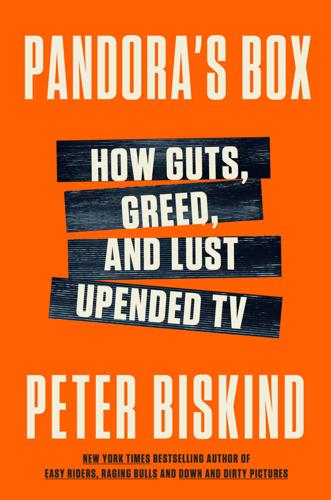
Pandora's Box: How Guts, Guile, and Greed Upended TV
by
Peter Biskind
Published 6 Nov 2023
I watched Jason Reitman come up, [saw] the homosocial behavior of men where they really know how to mentor a rising star, but they didn’t know how to do that with women. Opportunity hoarding. So we were just left to one side.”55 The Sopranos premiered on January 10, 1999. To say it made a splash is an understatement. Recalls Albrecht, “Nobody had ever paid attention to us before. Now, Saturday Night Live was doing parodies of a first-season show. We were the focus of media attention, whether it was five o’clock news or The Tonight Show or The New York Times.”56 Adds Konner, “David was a guy who, for twenty-five years, had been told, ‘You can’t do it,’ but when he was given the chance, did it better than anybody else had ever done it, being his own dark, twisted self.”57 The excitement generated by The Sopranos was as intoxicating as it was contagious.
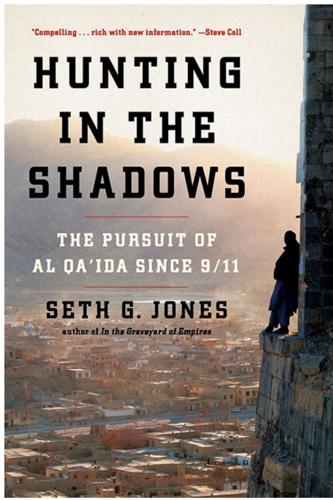
Hunting in the Shadows: The Pursuit of Al Qa'ida Since 9/11: The Pursuit of Al Qa'ida Since 9/11
by
Seth G. Jones
Published 29 Apr 2012
Headley cryptically hinted at his intention in a 2008 posting on an on-line forum called “abdalians7479,” which mostly included friends from Headley’s high school in Pakistan, Cadet College Hasan Abdal.49 “Everything is not a joke,” he wrote in the exchange, which was monitored by U.S. intelligence agencies. “We are not rehearsing a skit on Saturday Night Live. Call me old-fashioned but I feel disposed towards violence for the offending parties, be they cartoonists from Denmark or Sherry Jones (Author of Jewel of Medina) or Irshad Manji (Liberal Muslim trying to make Lesbianism acceptable in Islam, amongst other things). They never started debates with folks who slandered our Prophet, they took violent action,” he said, referring to the early followers of Muhammad.50 Lashkar-e-Taiba members gave Headley a thumb drive with basic economic and other information about Denmark, as well as photographs of two individuals they were interested in assassinating.
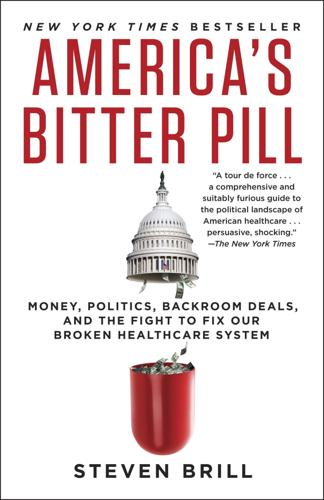
America's Bitter Pill: Money, Politics, Backroom Deals, and the Fight to Fix Our Broken Healthcare System
by
Steven Brill
Published 5 Jan 2015
At the end of April, he had been instrumental in persuading Pennsylvania Republican senator Arlen Specter—a longtime friend and former Senate colleague facing a tough primary fight from a conservative challenger—to switch to the Democratic Party. On July 7, 2009, Specter’s switch became that much more important when Al Franken—the Saturday Night Live comedian turned Democratic Senate candidate in Minnesota—was sworn in following a recount battle that had lasted nine months. With the Democrats able to count on Vermont independent Bernie Sanders, they now had the sixty votes needed to get healthcare past a filibuster, provided they could corral all the Democrats.

Baghdad at Sunrise: A Brigade Commander's War in Iraq
by
Peter R. Mansoor
,
Donald Kagan
and
Frederick Kagan
Published 31 Aug 2009
As the activity reached a frantic peak, the task force engineer, hiding in a dark corner of the command post, finally (and sheepishly) admitted, “I guess I forgot to tell you we were in a blast window.” The explosions had been nothing more than demolitions set off by U.S. engineers to destroy old ordnance found in the area. The collective sigh of relief was audible, and then we laughed until our sides split. Saturday Night Live could not have written a more comic script. Besides interdicting arms traffic between Baghdad and the west, Task Force Ready’s other priorities centered on eliminating three elusive dangers: sus- 98 Bad Karmah pected insurgent cells, potential weapons caches concealed in the myriad of warehouses throughout the area, and clearing unexploded ordinance (uxo) that littered the landscape west of Baghdad.
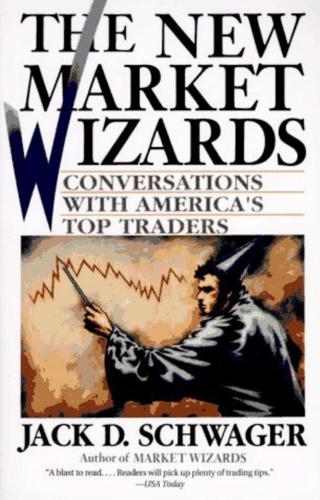
New Market Wizards: Conversations With America's Top Traders
by
Jack D. Schwager
Published 28 Jan 1994
The interview was conducted at Sperandeo’s “office,” which is located in the basement of his house, the main section of which he has converted to a lounge, complete with a fifteen-foot bar, seating for seventy-five, and an elaborate sound system. You almost expect Bill Murray to pop up and do his “Saturday Night Live” lounge singer act. 1 couldn’t help but smile at the image of a starchy pension fund trustee doing an onsite inspection of Sperandeo’s operations in considering him as a prospective manager for its funds. I found Sperandeo very relaxed and friendly—the type of person who is instantaneously likable.
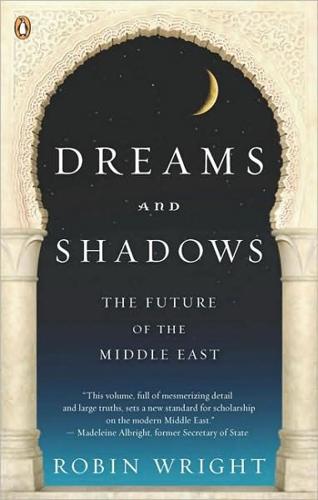
Dreams and Shadows: The Future of the Middle East
by
Robin Wright
Published 28 Feb 2008
Satellite dishes, perched atop mud-brick homes in the countryside and dangling with laundry off apartment balconies in the cities, brought in the outside world. As we watched the U.S. election results, Salih flicked between CNN, Fox, MSNBC, and the BBC with his remote. The Kurds had also launched their own television stations, some with satellite links on Kurdsat that beamed into the United States and Europe. One station aired an equivalent of Saturday Night Live with irreverent pokes at Kurdish politicians. Kurdistan, which was divided into eastern and western regional governments, had the early trappings of democracy. One of the first signs was a decision by the two regional governments to form a united front and hold elections in 1992 for a single new Kurdish legislature.
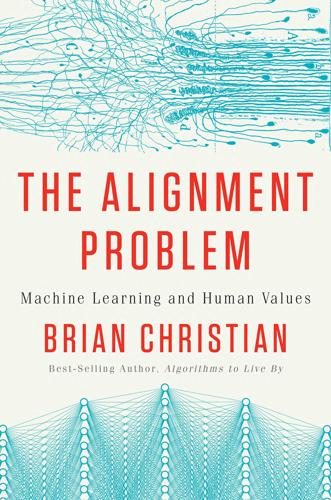
The Alignment Problem: Machine Learning and Human Values
by
Brian Christian
Published 5 Oct 2020
This test picture became known as the “Shirley card,” named after Shirley Page, a Kodak employee and the first model to pose for it.32 It perhaps goes without saying that Shirley and her successors were overwhelmingly White. The chemical processing of film was tuned accordingly, and as a result cameras simply didn’t take good photos of Black people. (In video just as in photography, colors have for decades been calibrated to White skin. In the 1990s, Roth interviewed one of the camera operators on Saturday Night Live about the process of tuning the cameras before broadcast. He explained, “A good VCR person will have a color girl stand in front of the cameras and stay there while the technicians focus on her flesh tones to do their fine adjustments to balance the cameras. This color girl is always white.”)33 Amazingly, Kodak executives in the 1960s and ’70s described the major impetus for making film that was sensitive to a wider range of darker tones as having come not from the civil rights movement but from the furniture and chocolate industries, which complained that film wasn’t properly showing the grains of darker woods, or the difference between milk and dark chocolate.34 Former manager of Kodak Research Studios Earl Kage reflects on this period of research: “My little department became quite fat with chocolate, because what was in the front of the camera was consumed at the end of the shoot.”
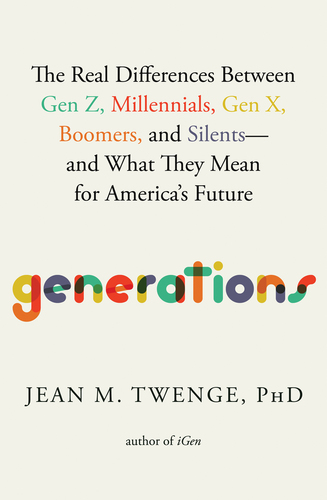
Generations: The Real Differences Between Gen Z, Millennials, Gen X, Boomers, and Silents—and What They Mean for America's Future
by
Jean M. Twenge
Published 25 Apr 2023
Karim discussed the problem with his coworkers Chad Hurley (b. 1977) and Steve Chen (b. 1978), and they all decided a video-sharing site would be a good idea. Karim posted the first YouTube video (titled “Me at the zoo”) on April 23, 2005, and YouTube officially launched that December. Helped along by uploads of the Saturday Night Live skit “Lazy Sunday,” the site quickly garnered millions of views. Videos of drugged kids after the dentist, epic fails, makeup tutorials, and funny cats (so many funny cat videos) followed. In the 2020s, it’s hard to remember a time when YouTube didn’t exist. Of course, sites like YouTube couldn’t exist without the internet—and Gen X was there from the beginning.

The Survival of the City: Human Flourishing in an Age of Isolation
by
Edward Glaeser
and
David Cutler
Published 14 Sep 2021
A federal class-action lawsuit was filed in 2013 on behalf of minority civilians of New York City. Ray Kelly and Michael Bloomberg were both named defendants. The case was heard by Judge Shira Scheindlin. The judge noted that “between January 2004 and June 2012” the NYPD made 4.4 million stops and “over 80% of these 4.4 million stops were of blacks or Hispanics.” There is a Saturday Night Live skit from 1978 with a horribly apt parody. The experienced baggage inspector, played by Dan Aykroyd, tells his trainee to “always check black people!” They find an obviously innocent seed on the shirt of an African American man, played by Garrett Morris, that they claim is marijuana and submit him “to a personal search.”
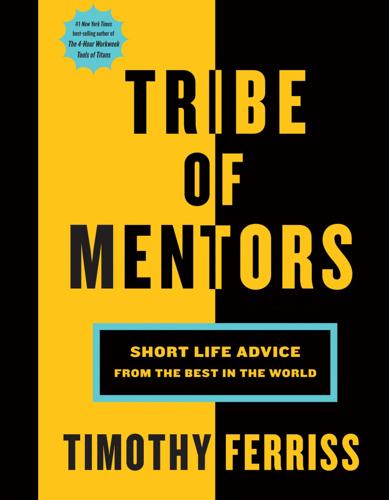
Tribe of Mentors: Short Life Advice From the Best in the World
by
Timothy Ferriss
Published 14 Jun 2017
The app Headspace is a fun way to start. Try and do it every day. But I suggest not doing it while you are walking . . . for now.” Jimmy Fallon TW/IG: @jimmyfallon tonightshow.com JIMMY FALLON is an Emmy Award– and Grammy Award–winning comedian. He is known for his work as a cast member of Saturday Night Live and as the host of the late-night talk show The Tonight Show Starring Jimmy Fallon. He is the author of several books, including Your Baby’s First Word Will Be DADA, and his latest, Everything Is Mama. Jimmy lives in New York City with his wife, Nancy, and their two daughters, Winnie and Franny.

The Rough Guide to Jamaica
by
Thomas, Polly,Henzell, Laura.,Coates, Rob.,Vaitilingam, Adam.
Newly rebuilt yet still overpriced touristy place with reggae covers band alongside the traditional (and impressive) spectacle of local boys diving from the high cliffs. The Sands at The Caves, West End Rd. Negril’s most exclusive hotel now has an attractive public bar to match, but it’s strictly for sunset, 4–7.30pm only. Nonetheless, it’s markedly atmospheric and unpretentious. Seastar Off West End Rd (turn inland just before Rick’s). This hotel’s “Saturday Night LIVE Twisting by the Pool Party” has fast become a high point of the entertainment scene, with live drumming and band plus buffet meal included for US$15 (7pm–midnight). Sexy Rexy’s West End Rd. Just beyond LTU, this small shack has as good a clifftop view as anywhere in the West End. Rexy is an entertaining local character and will cook up tasty fried fish if you’re hungry.

Atomic Accidents: A History of Nuclear Meltdowns and Disasters: From the Ozark Mountains to Fukushima
by
James Mahaffey
Published 15 Feb 2015
On Friday evening, March 30, at 8:23 P.M., the Associated Press had gotten wind of the worries about hydrogen exploding in the reactor, and they issued an urgent advisory to the public.239 Two thirds of the people around Harrisburg who heard this announcement interpreted it as a warning of an impending massive nuclear explosion, a “hydrogen bomb,” and 42,000 left town as quickly as was possible. The next day on the TV show Saturday Night Live, the venerable comedy team of Bob & Ray announced a contest to name a new capital of Pennsylvania. By Sunday, 135,000 people, or 20 percent of everybody who lived within 20 miles of the plant, had voluntarily evacuated. At the same time, the various emergency holding tanks in the containment building and the auxiliary building were reaching maximum capacity.
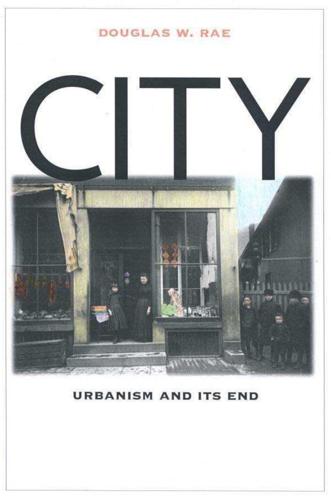
City: Urbanism and Its End
by
Douglas W. Rae
Published 15 Jan 2003
Le Corbusier would have looked with horror at the higgledy-piggledy scattering of small groceries, oddly shaped hardware stores, and streets on which a seller of caged birds competed for space and attention with a saloon, all housed in buildings meant for some earlier use now long forgotten.56 The housing stock, built at ten discernable levels of expense and elegance, designed in a dozen or more very different architectural vocabularies, would for this cardinal of modernism have seemed nothing more than a dog’s breakfast of mistakes. So, too, from an accountant’s perspective would it seem a waste of resources to provide hundreds of tiny groceries across the city, and to operate civic organizations whose salable work could in good measure be replaced by television sets emitting Monday Night Football or Saturday Night Live. The manufacturing core of the city was itself less and less efficient in competition with alternative locations for the production of identical products in the years after 1950. During fevered bursts of demand, usually occasioned by warfare, industrial capacity elsewhere was absorbed so fully that New Haven’s aged plants could hold their own for orders not yet accommodated.
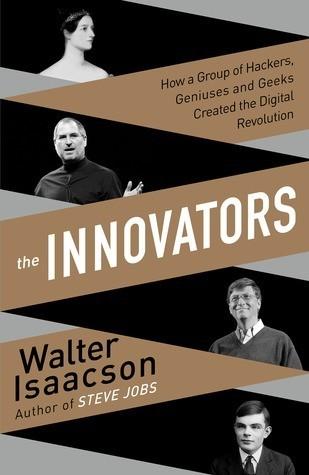
The Innovators: How a Group of Inventors, Hackers, Geniuses and Geeks Created the Digital Revolution
by
Walter Isaacson
Published 6 Oct 2014
What saved Grove from seeming like a tyrant was that he was so irrepressible, which made him hard not to like. When he smiled, his eyes lit up. He had a pixielike charisma. With his Hungarian accent and goofy grin, he was by far the most colorful engineer in the valley. He succumbed to the dubious fashions of the early 1970s by attempting, in an immigrant geek manner worthy of a Saturday Night Live skit, to be groovy. He grew his sideburns long and his mustache droopy and wore open shirts with gold chains dangling over his chest hair. None of which hid the fact that he was a real engineer, one who had been a pioneer of the metal-oxide semiconductor transistor that became the workhorse of modern microchips.
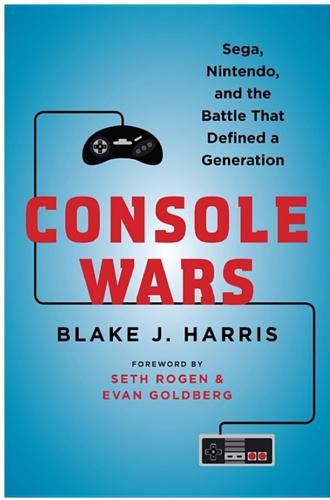
Console Wars: Sega, Nintendo, and the Battle That Defined a Generation
by
Blake J. Harris
Published 12 May 2014
He continued on, questioning the reason for the commercial’s existence—not in a particularly cruel way, but not in a particularly kind way either. “It’s supposed to be funny,” an executive finally said in defense. “Yes,” Kalinske said. “It’s supposed to be funny. But this is just derivative. It’s an obvious rip-off of Saturday Night Live’s Church Lady. But at least she’s less likable. She’s prissy without any glimpse of warmth. She’s angry on the outside, not the inside, and that makes the HAG joke fall flat.” “Kalinske’s spot-on,” Race interjected. “If we’re serious about going to war with Nintendo, then it’s time for us to start launching grenades.”
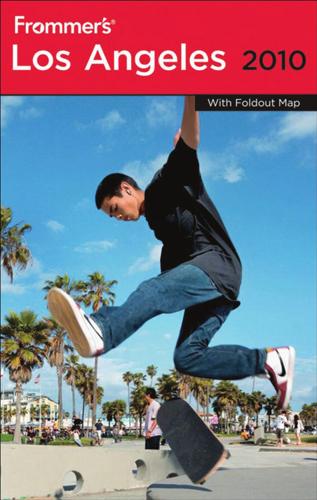
Frommer's Los Angeles 2010
by
Matthew Richard Poole
Published 28 Sep 2009
Groundling Theater L.A.’s answer to Chicago’s Second City has been around for more than 25 y ears, yet it r emains the most inno vative and funny gr oup in to wn. The skits change ev ery year or so, but they take ne w improvisational twists ev ery night and the satire is often sav age. The Groundlings were the springboar d to fame for P ee-Wee Herman, Elvira, and former Saturday Night Live stars Jon Lovitz, Phil Hartman, and Julia “It’s Pat” Sweeney. Phone for showtimes and reservations. 7307 Melrose Ave., Los Angeles. & 323/934-4747. www.groundlings.com. Tickets $11–$21. The Improv A showcase for top stand-ups since 1975, the I mprov offers something different each night. Although it used to hav e a fairly active music schedule, the place is now mostly doing what it does best—sho wcasing comedy.
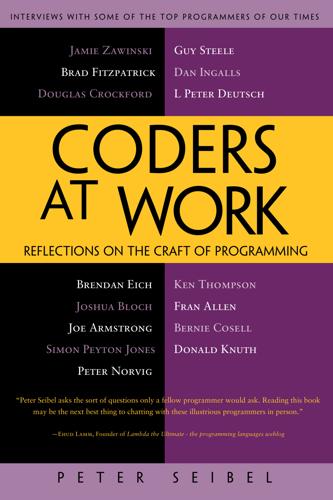
Coders at Work
by
Peter Seibel
Published 22 Jun 2009
Something I worry about a lot when I write, that I'm less worried about with a computer, is about the ways in which English is ambiguous. I'm constantly worrying about ways in which the reader might misinterpret what I've written. So I've actually spent a lot of time consciously crafting the mechanics of my prose style to use constructions that are less likely to be misinterpreted. My favorite Saturday Night Live sketch, even more than the bees or the wild and crazy guys, was a sketch where Ed Asner was on and he played the manager of a nuclear power plant going on vacation for two weeks. He walked out the door, saying, “Goodbye, everybody, I'm going. Remember, you can't give too much coolant to the nuclear reactor.”
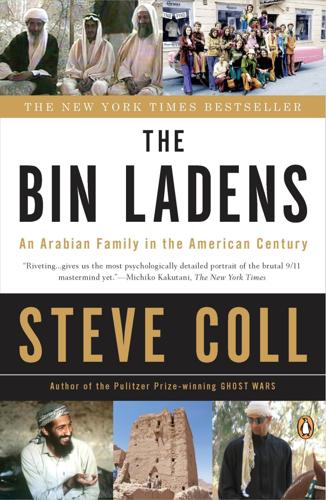
The Bin Ladens: An Arabian Family in the American Century
by
Steve Coll
Published 29 Mar 2009
Up the White House driveway they strolled on the chilly night of February 11—Yogi Berra, the New York Yankees manager; Vice President George Bush; Linda Gray, star of Dallas, the television series about oil barons; Oscar Wyatt, the genuine Texas oil baron; the actress Sigourney Weaver; and Donald and Ivana Trump. “It’s exciting. It’s Americana. It’s Ronald Reagan,” joked Saturday Night Live comedian Joe Piscopo, who was also on the state dinner’s guest list. “The king of Saudi Arabia came here to see how a real king lives, I suppose.”14 Saudi royals do not travel on official business with their wives, so the king escorted Abdulaziz, his eleven-year-old son by Princess Jawhara Al-Ibrahim.
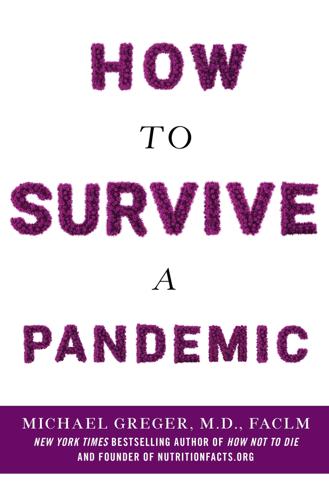
How to Survive a Pandemic
by
Michael Greger, M.D., FACLM
If you mix the influenza virus with a sample of blood, the hundreds of surface hemagglutinin spikes on each viral particle form crosslinks between multiple sialic acid–covered red blood cells, effectively clumping them together. It agglutinates (glutinare or “to glue”) blood (heme-).317 The docking maneuver prompts the cell to engulf the virus. Like the classic Saturday Night Live “landshark” skit, the virus fools the cell into letting it inside. Once inside, it takes over, turning the cell into a virus-producing factory. The conquest starts with the virus chopping up our own cell’s DNA and retooling the cell to switch over production to make more virus with a single-mindedness that eventually leads to the cell’s death through the neglect of its own needs.318 Why has the virus evolved to kill the cell, to burn down its own factory?

1,000 Places to See in the United States and Canada Before You Die, Updated Ed.
by
Patricia Schultz
Published 13 May 2007
But Chicago’s greatest claim to comedy fame is as the birthplace of modern improvisational theater, and the most influential of its practitioners have been the members of the Second City, a troupe from the Near North Side that helped define the style of sketch comedy broadly popularized by NBC’s long-running late-night hit Saturday Night Live. Founded in 1959, the company grew out of a University of Chicago undergraduate group that included Alan Alda, Elaine May, and Mike Nichols. The students took the name Second City as a self-deprecating gesture, referring to a series of derisive essays about Chicago by A. J. Liebling that appeared under that title in The New Yorker a decade before.
…
The biggest crowds turn up on July 3 for a concert by the Grant Park Orchestra, culminating in a performance of Tchaikovsky’s 1812 Overture and a spectacular fireworks display launched from barges along the lakefront. Taste of Chicago’s smorgasbord takes over Grant Park for 10 days each summer. One mainstay at the Taste is the Billy Goat Tavern and Grill. Most famous as the inspiration for a Saturday Night Live sketch (“Cheezborger! Cheezborger! No fries, cheeps!”), the Goat is also part of sports history. When his pet goat was ejected from Wrigley Field during the 1945 World Series, tavern founder Billy Sianis declared that the Cubs would never win the championship as long as the goat wasn’t allowed in the stadium.
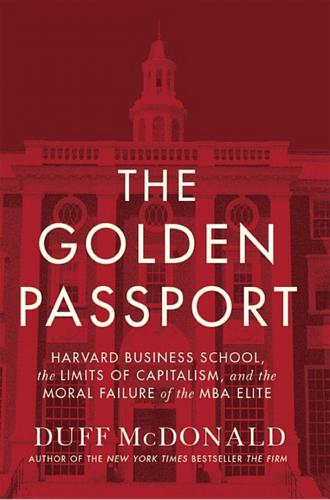
The Golden Passport: Harvard Business School, the Limits of Capitalism, and the Moral Failure of the MBA Elite
by
Duff McDonald
Published 24 Apr 2017
That’s the thing about HBS—tens of thousands of people have graduated from the School over the years, and while they naturally choose to emphasize the success stories while downplaying the less than successful ones, the image of the School as a preeminent training ground for the supersuccessful is unquestionably the result of a kind of survivorship bias. If your company—or your career—has stalled out, they simply stop talking about it. Consider the winner of the Student Business portion of the School’s 2014 New Venture Competition. The victor, an online butler called Alfred, could serve as a Saturday Night Live parody of a startup. Unlike the engineering-driven ideas you’re likely to see coming out of the likes of Stanford or MIT, Alfred is simply high-concept marketing, a virtual butler for people too busy to make their own bed. For $128 a month, Alfred’s butlers will tidy your apartment weekly, deliver your groceries, and pick up your dry cleaning.
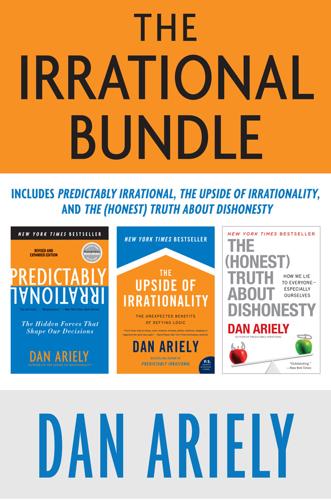
The Irrational Bundle
by
Dan Ariely
Published 3 Apr 2013
.* On top of that, even if both Janet and Julia accurately described themselves as having a sense of humor, what strikes one person as funny is not always funny to another. People who enjoy the Three Stooges may not appreciate Monty Python’s Flying Circus. David Letterman fans may not think much of The Office. Fans of any of these can rightfully claim to have a good sense of humor, but only by experiencing something with another person—say, watching Saturday Night Live together, either in person or in a virtual world—can you tell whether your senses of humor are compatible. SPEED DATING FOR OLDER ADULTS By the way, having an external object to react to works equally well in not-so-romantic encounters. Some time ago, Jeana Frost and I tried to run some speed-dating events for older (age sixty-five and above) adults.
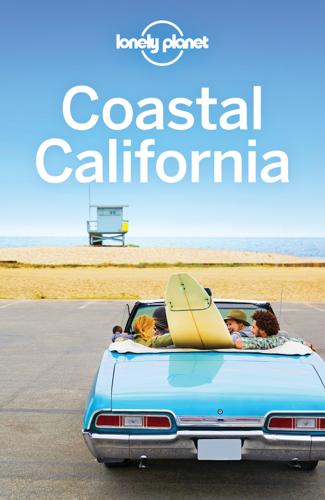
Coastal California Travel Guide
by
Lonely Planet
It has something going almost every night, including some big names: David Spade, Arsenio Hall, Alonzo Bodden, Jon Lovitz, and 10 – count ’em, 10! – comedians most Fridays and Saturdays. Sunday means Jay Leno live and up close; he's the place's big draw. oUpright Citizens Brigade TheatreCOMEDY ( MAP GOOGLE MAP ; %323-908-8702; http://franklin.ucbtheatre.com; 5919 Franklin Ave; tickets $5-12) Founded in New York by Saturday Night Live alums Amy Poehler and Ian Roberts along with Matt Besser and Matt Walsh, this sketch-comedy group cloned itself in Hollywood in 2005. With numerous nightly shows spanning anything from stand-up comedy to improv and sketch, it's arguably the best comedy hub in town. Valet parking costs $7. LGBTQ LOS ANGELES LA is one of the country’s gayest cities and has made many contributions to gay culture.

Dirty Wars: The World Is a Battlefield
by
Jeremy Scahill
Published 22 Apr 2013
Obama’s demeanor revealed nothing about the high-stakes preparations that were taking place on the other side of the globe. Instead, the president appeared calm and jovial, cracking a number of jokes, including one targeting billionaire Donald Trump, who was in the audience. Trump had been on a media rampage, promoting his inane theory that the president was not a US citizen. Saturday Night Live star Seth Meyers, who hosted the dinner, actually made a joke about bin Laden, obviously unaware that a number of people in the room were intimately involved in planning his imminent demise. “People think bin Laden is hiding in the Hindu Kush,” Meyers said. “But did you know that every day from 4 to 5 p.m. he hosts a show on C-SPAN?”
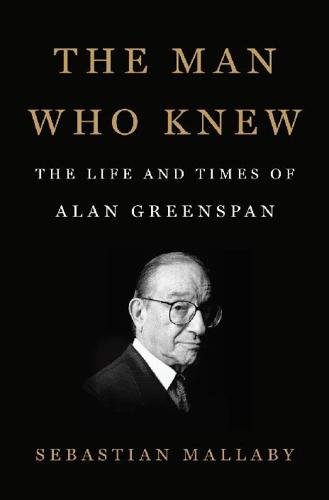
The Man Who Knew: The Life and Times of Alan Greenspan
by
Sebastian Mallaby
Published 10 Oct 2016
Andrea wore another Oscar de la Renta creation, this one a black lace gown; conveniently, the designer was a friend, and never mind the fact that Alan had first come to know him when he was dating Barbara. Sitting at the president’s table at the state dinner, Andrea found herself with Dan Aykroyd, famous for his starring roles in The Blues Brothers and Saturday Night Live; and Marylouise Oates, who had befriended the Clintons during the anti-Vietnam protests of the 1960s. At one point in the evening, Aykroyd and Oates burst into song, belting out an old Beatles number as though Bobby Kennedy had not yet been shot and Richard Nixon were still the enemy. Andrea could not help feeling that the solemn portrait of Abraham Lincoln hanging in the State Dining Room clashed oddly with the sixties ballad; for Alan, naturally, the dissonance was even more awkward.6 The Clintonites’ roots were in the counterculture he had battled as a Nixon aide.

Eastern USA
by
Lonely Planet
A Miami police detective with a big secret proves that the answer just may be ‘yes.’ » Tremé: New Orleans gets its close-up in this drama of the city’s historic African American neighborhood trying to rebuild post-Katrina. » 30 Rock: OK, this one’s not on cable, but airs on regular ol’ network TV. It’s comedy queen Tina Fey’s brainchild, inspired by her years writing for Saturday Night Live. THEATER Eugene O’Neill put American drama on the map with his trilogy Mourning Becomes Electra (1931), which sets a tragic Greek myth in post-Civil War New England. O’Neill was the first major US playwright, and is still widely considered to be the best. Best Modern Art Museums »Museum of Modern Art, NYC »Whitney Museum of American Art, NYC »Salvador Dalí Museum, St Petersburg, FL »Andy Warhol Museum, Pittsburgh After WWII two playwrights dominated the stage: Arthur Miller, who famously married Marilyn Monroe and wrote about everything from middle-class male disillusionment ( Death of a Salesman, 1949) to the mob mentality of the Salem Witch Trials ( The Crucible, 1953); and Tennessee Williams, whose explosive works The Glass Menagerie (1945), A Streetcar Named Desire (1947) and Cat on a Hot Tin Roof (1955) dig deep into the Southern psyche.
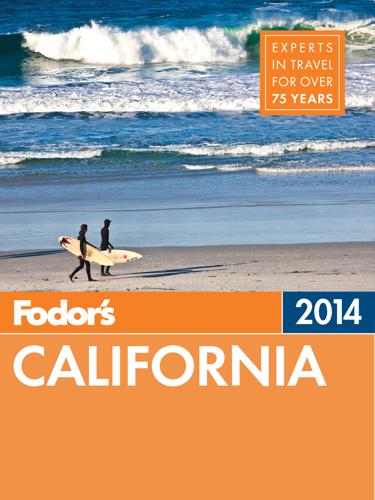
Fodor's California 2014
by
Fodor's
Published 5 Nov 2013
In the elegant restaurant, waitresses glide by in kimonos, and entrées can zoom up to $42; on the terrace, a spectacular hilltop view spreads out before you. TIP Valet parking is mandatory and runs $8. | 1999 N. Sycamore Ave. | 90068 | 323/466–5125 | www.yamashirorestaurant.com. Comedy Groundlings Theatre. For close to forty years, this renowned theater company has been a breeding ground for Saturday Night Live performers; alumni include Will Ferrell, Lisa Kudrow, and Bridesmaids’ Melissa McCarthy. The primarily sketch and improv comedy shows run Wednesday–Sunday, costing $13–$19. | 7307 Melrose Ave. | 90046 | 323/934–4747 | www.groundlings.com. Upright Citizens Brigade. New York’s UCB marched in with a mix of sketch comedy and wild improvisations skewering pop culture.
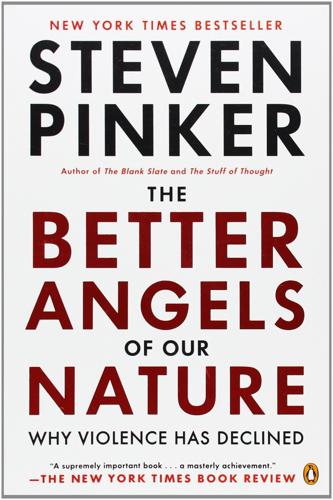
The Better Angels of Our Nature: Why Violence Has Declined
by
Steven Pinker
Published 24 Sep 2012
Perhaps at this very moment terrorists from some liberation movement no one has heard of are plotting an attack of unprecedented destruction, or an eschatological ideology is fermenting in the mind of a cunning fanatic who will take over a major country and plunge the world back into war. As the Saturday Night Live news analyst Roseanne Roseannadanna observed, “It’s always something. If it’s not one thing, it’s another.” But it is just as foolish to let our lurid imaginations determine our sense of the probabilities. It may always be something, but there can be fewer of those things, and the things that happen don’t have to be as bad.

Frommer's Caribbean 2010
by
Christina Paulette Colón
,
Alexis Lipsitz Flippin
,
Darwin Porter
,
Danforth Prince
and
John Marino
Published 2 Jan 1989
If you’re on the party circuit around Martinique, you are likely to find the most action at Crazy Nights, Ste-Luce (& 596/68-56-68), a wild dance parlor that on weekends can attract hundreds of patrons, each bent on having one “ crazy night.” Jazz is showcased at the Calembasse Café, 19 bd. Allègr e Le M arin ( & 596/74-69-27), which sometimes features its own Billie Holiday clone. Meals are served, and the place is packed on Saturday nights. Live performances on Thursday around 10:30pm are a regular feature at Les Soirees de l’Amphore, Anse-Mitan (& 596/66-03-09), a small restaurant and minibar. Funk, disco, and soul are all featured. If you want to gamble, head for M artinique’s major casino, Casino Bâtelière Plaza, at Schoelcher ( & 596/61-73-23), a 10-minute drive from the center of Fort-de-France.

Frommer's California 2009
by
Matthew Poole
,
Harry Basch
,
Mark Hiss
and
Erika Lenkert
Published 2 Jan 2009
Groundling Theater L.A.’s answer to Chicago’s Second City has been around for more than 25 y ears, yet it r emains the most inno vative and funny gr oup in to wn. The skits change ev ery year or so, but they take ne w improvisational twists ev ery night and 595 the satire is often sav age. The Groundlings were the springboar d to fame for P ee-Wee Herman, Elvira, and former Saturday Night Live stars Jon Lovitz, Phil Hartman, and Julia “It’s Pat” Sweeney. Phone for showtimes and reservations. 7307 Melrose Ave., Los Angeles. & 323/934-4747. www.groundlings.com. Tickets $11–$21. The Improv A showcase for top stand-ups since 1975, the I mprov offers something different each night. Although it used to hav e a fairly active music schedule, the place is now mostly doing what it does best—sho wcasing comedy.
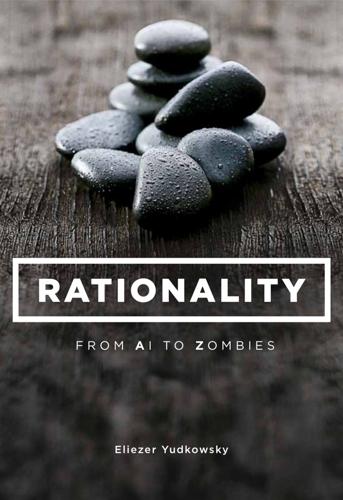
Rationality: From AI to Zombies
by
Eliezer Yudkowsky
Published 11 Mar 2015
An enormous bolt of electricity comes out of the sky and hits something, and the Norse tribesfolk say, “Maybe a really powerful agent was angry and threw a lightning bolt.” The human brain is the most complex artifact in the known universe. If anger seems simple, it’s because we don’t see all the neural circuitry that’s implementing the emotion. (Imagine trying to explain why Saturday Night Live is funny, to an alien species with no sense of humor. But don’t feel superior; you yourself have no sense of fnord.) The complexity of anger, and indeed the complexity of intelligence, was glossed over by the humans who hypothesized Thor the thunder-agent. To a human, Maxwell’s equations take much longer to explain than Thor.

France (Lonely Planet, 8th Edition)
by
Nicola Williams
Published 14 Oct 2010
Miss Marple ( 03 20 39 85 92; www.lemissmarple.com, in French; 18 rue de Gand; 4pm-midnight Mon-Thu, 4pm-1am Fri, 4pm-2am Sat) A friendly and unpretentious lesbian and gay bar that welcomes hétéros under its crystal chandeliers. The upstairs lounge features 1970s retro styling; the art on the walls changes monthly. There’s a DJ from 10pm on some Friday and Saturday nights. LIVE MUSIC The Orchestre National de Lille ( 03 20 12 82 40; www.onlille.com, in French; adult €18-30, under 28yr €10) plays in the circular Nouveau Siècle concert hall (place Pierre Mendès-France; Rihour). NIGHTCLUBS Although you no longer have to cross the Belgian frontier (eg to Gand) to dance past 4am, some locals still do because, they say, the techno is edgier, the prices lower, substances more available and the closing time even later (1pm!)

USA Travel Guide
by
Lonely, Planet
Of course, ‘good’ American TV has been around for a long time, whether through artistic merit or cultural and political importance. The 1970s comedy All in the Family aired an unflinching examination of prejudice, as embodied by bigoted patriarch Archie Bunker, played by Carroll O’Connor. Similarly, the sketch-comedy show Saturday Night Live, which debuted in 1975, pushed social hot buttons with its subversive, politically charged humor. In the 1980s, videotapes brought movies into American homes, blurring the distinction between big and small screens, and the stigma Hollywood attached to TV slowly faded. Another turning point in this decade was The Cosby Show, starring comedian Bill Cosby.